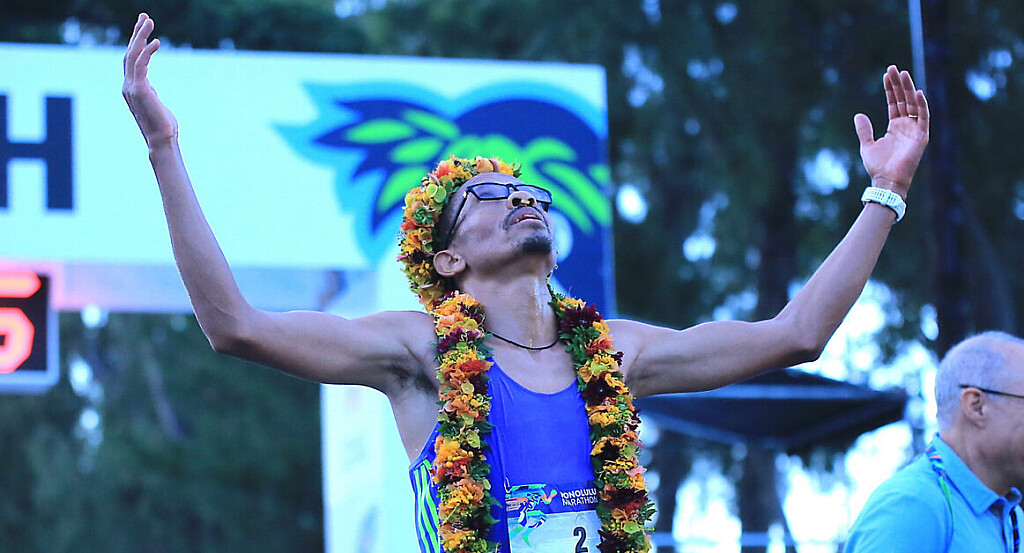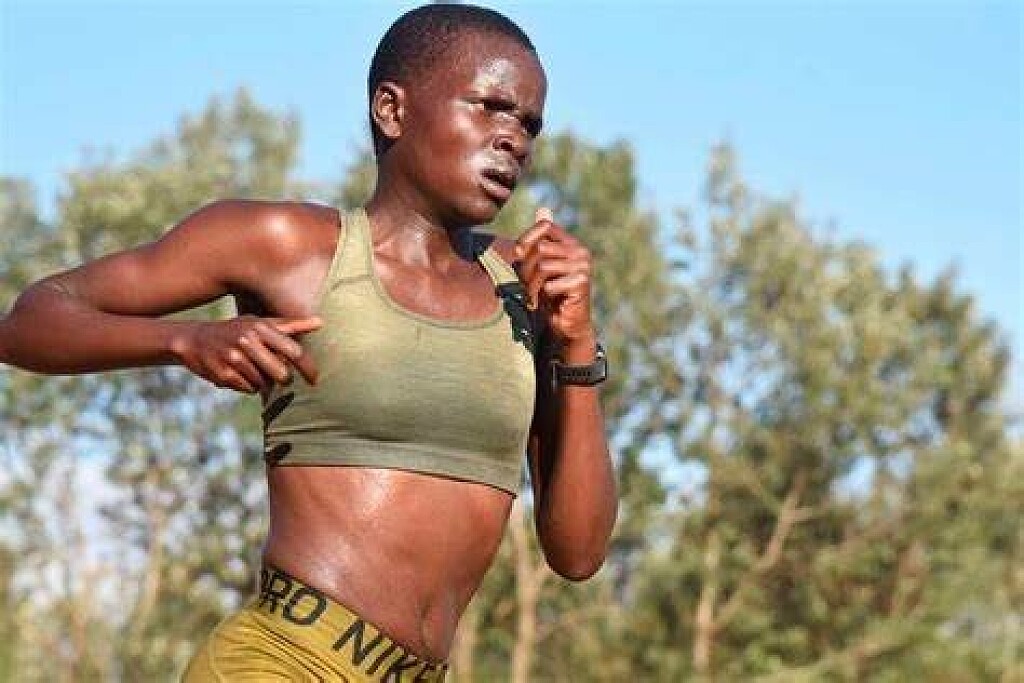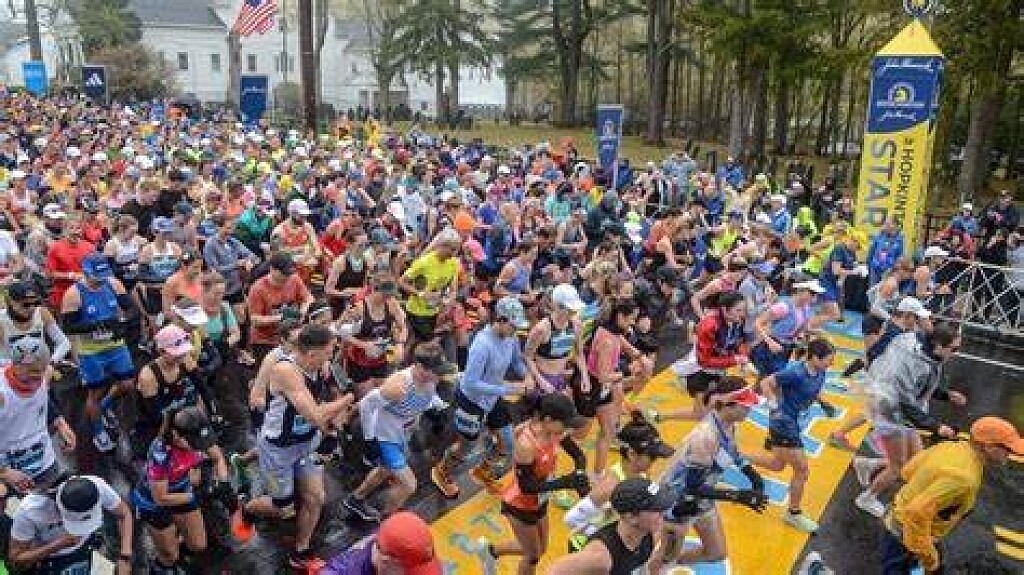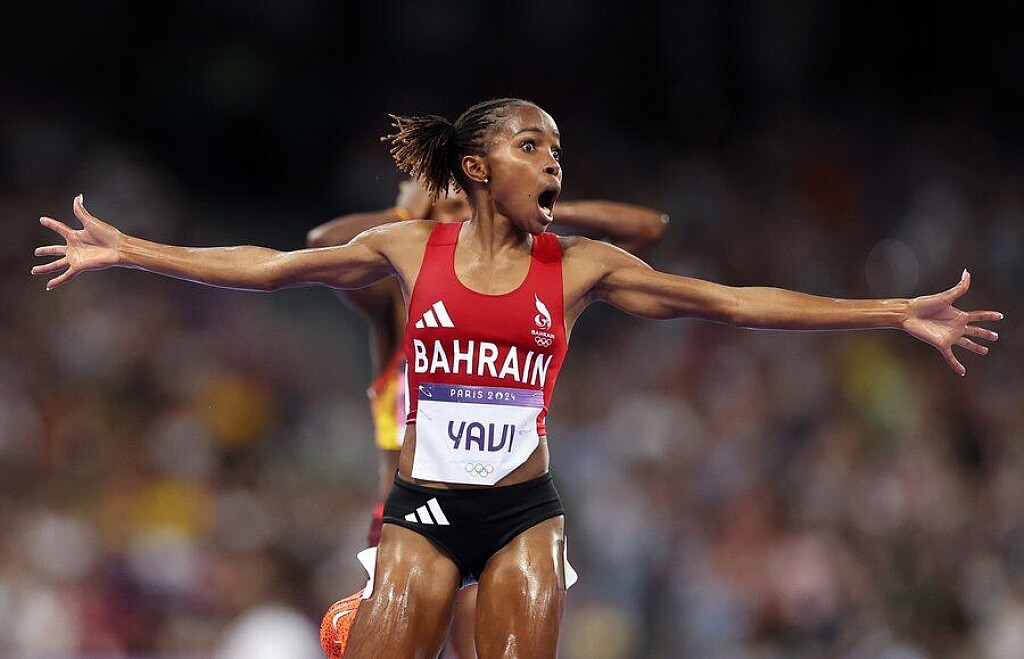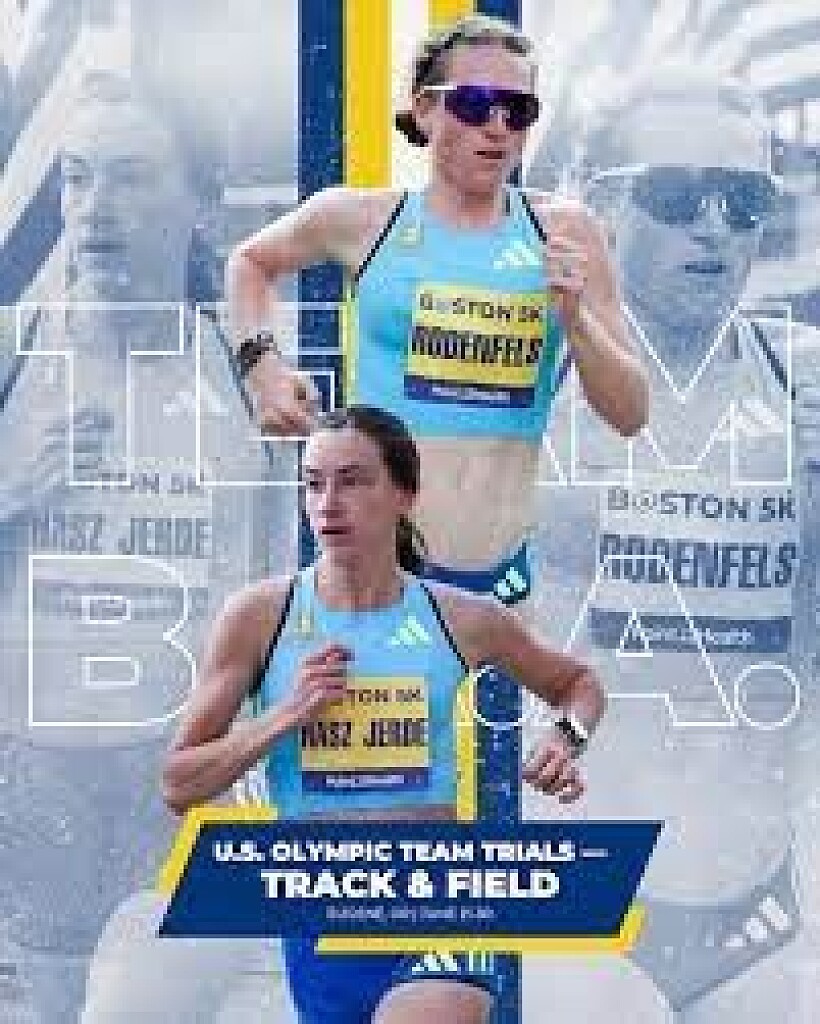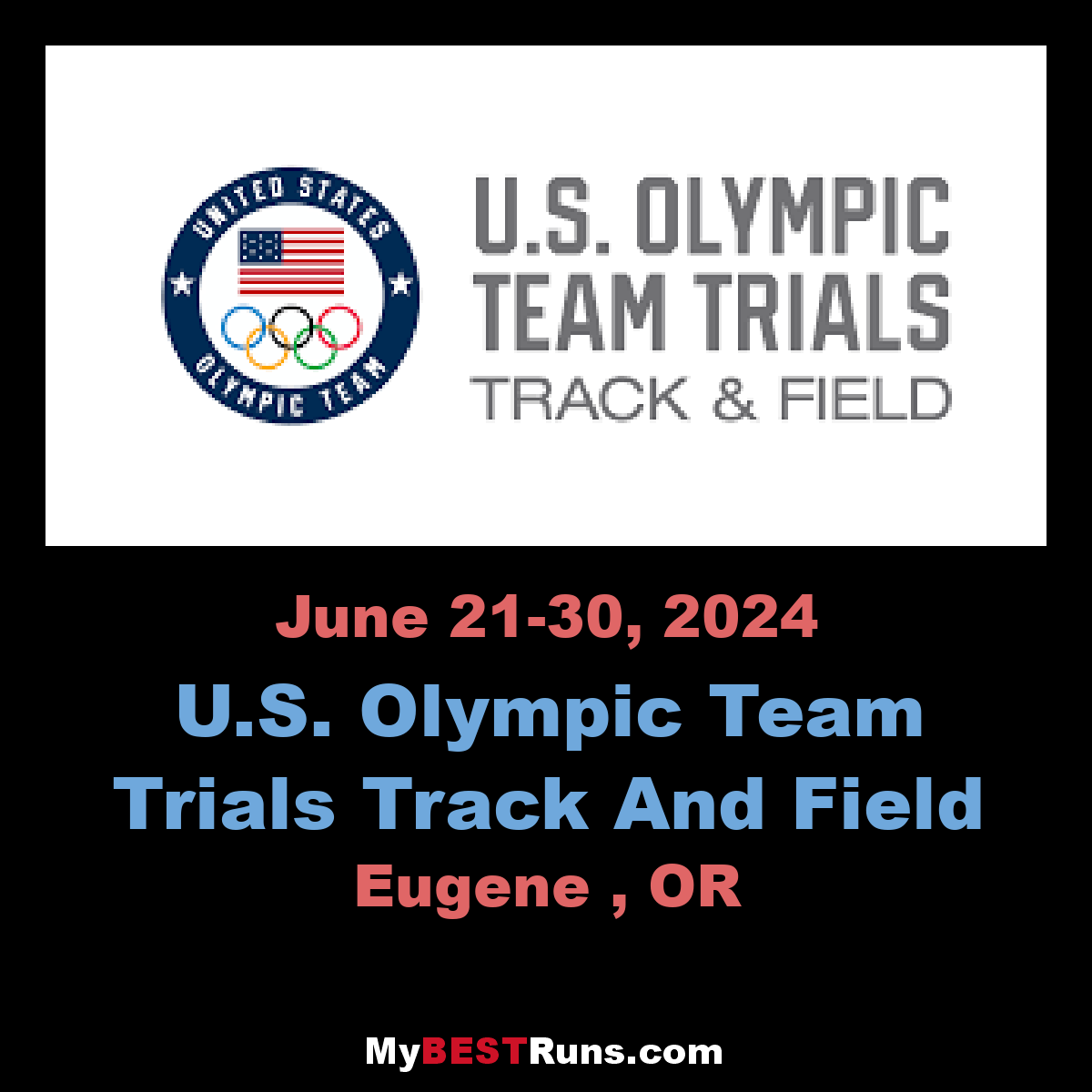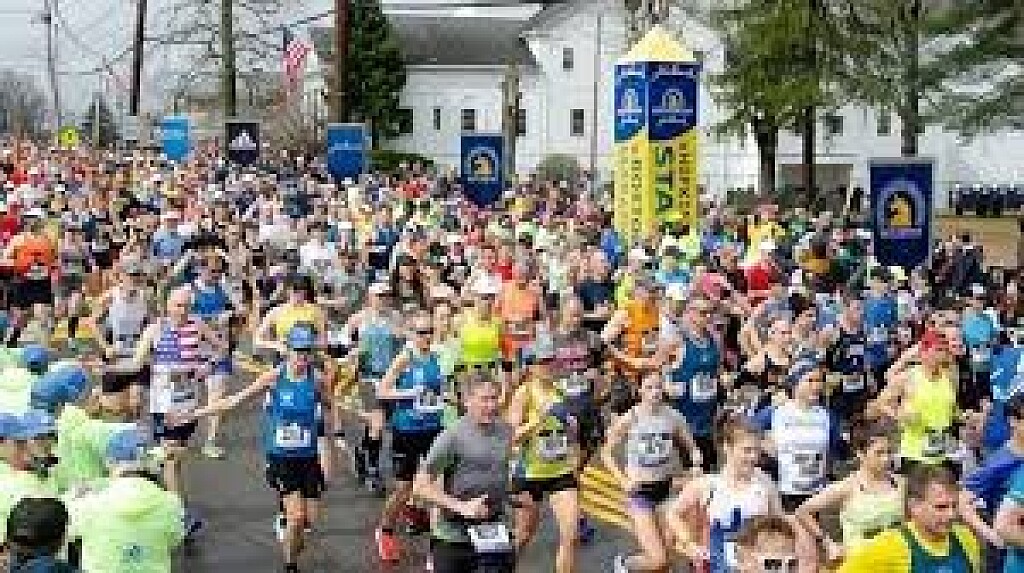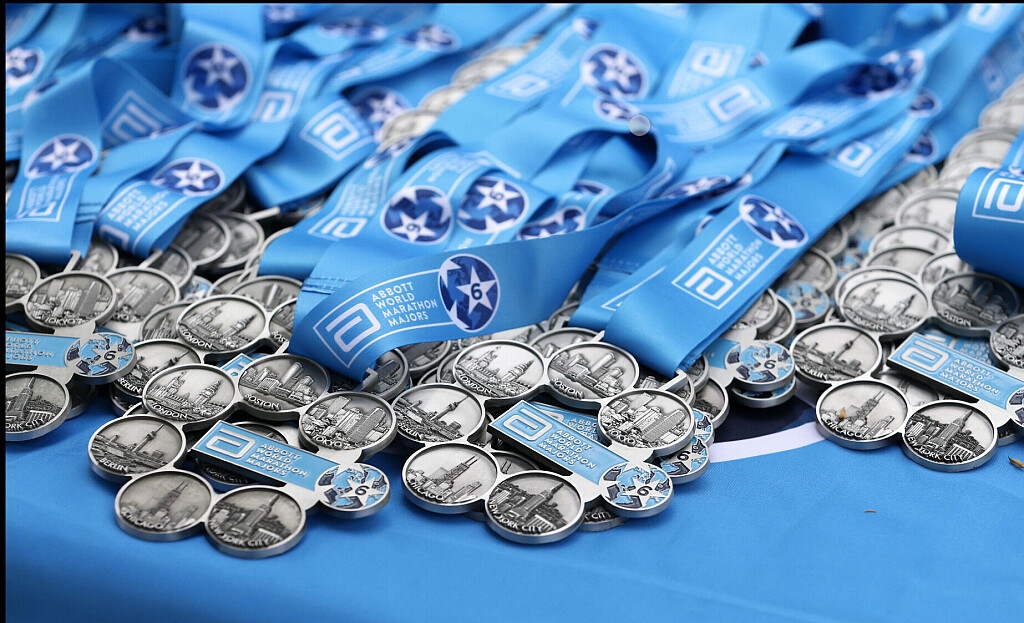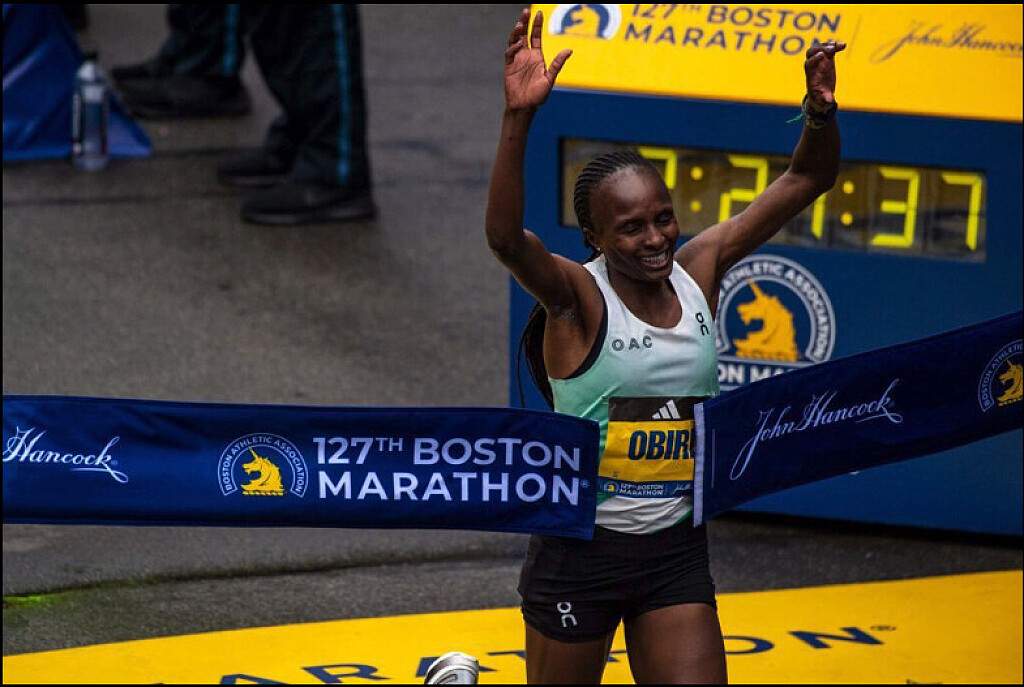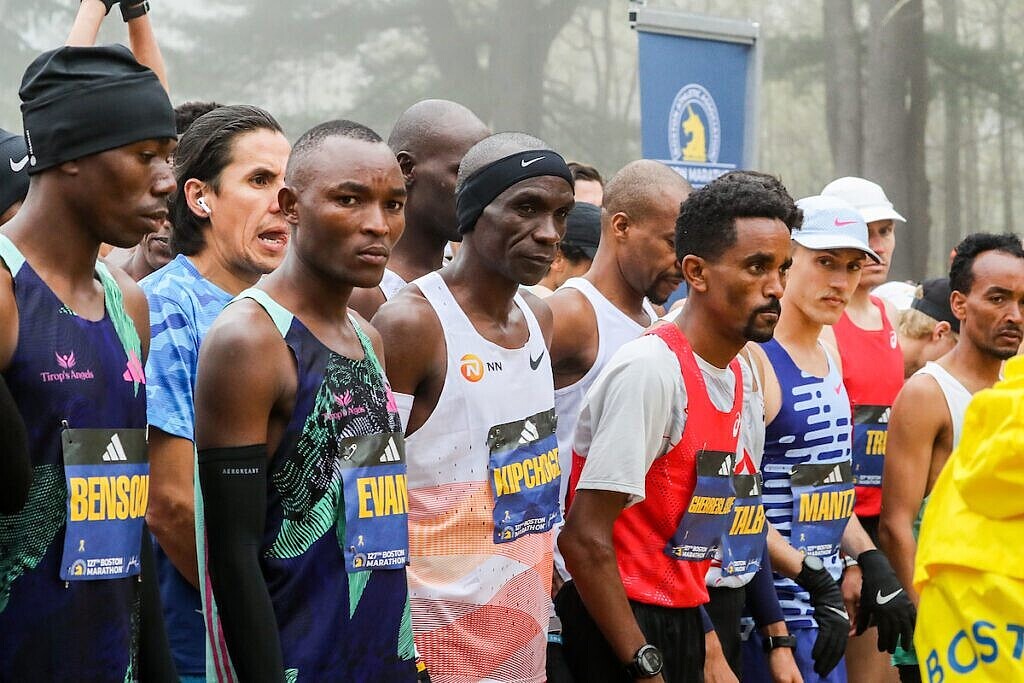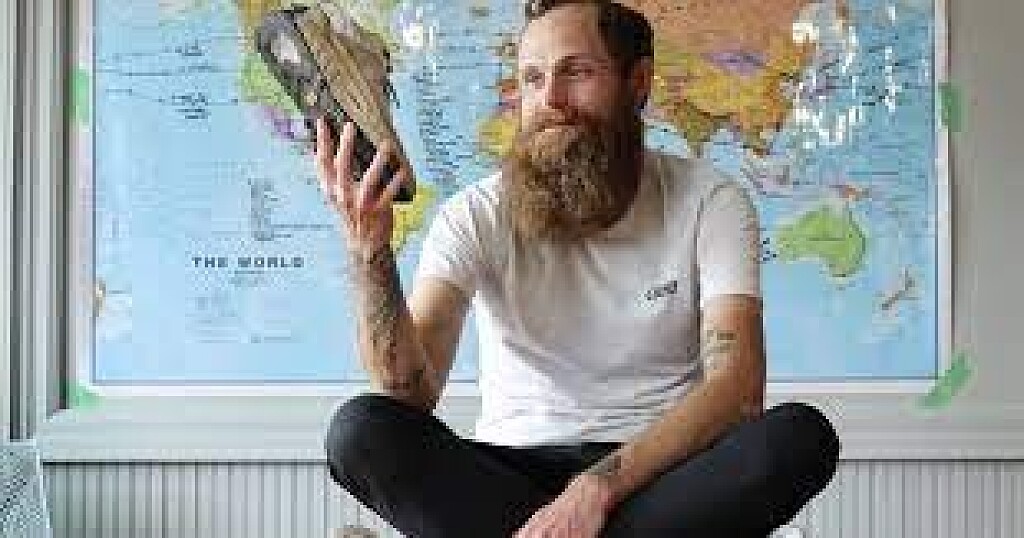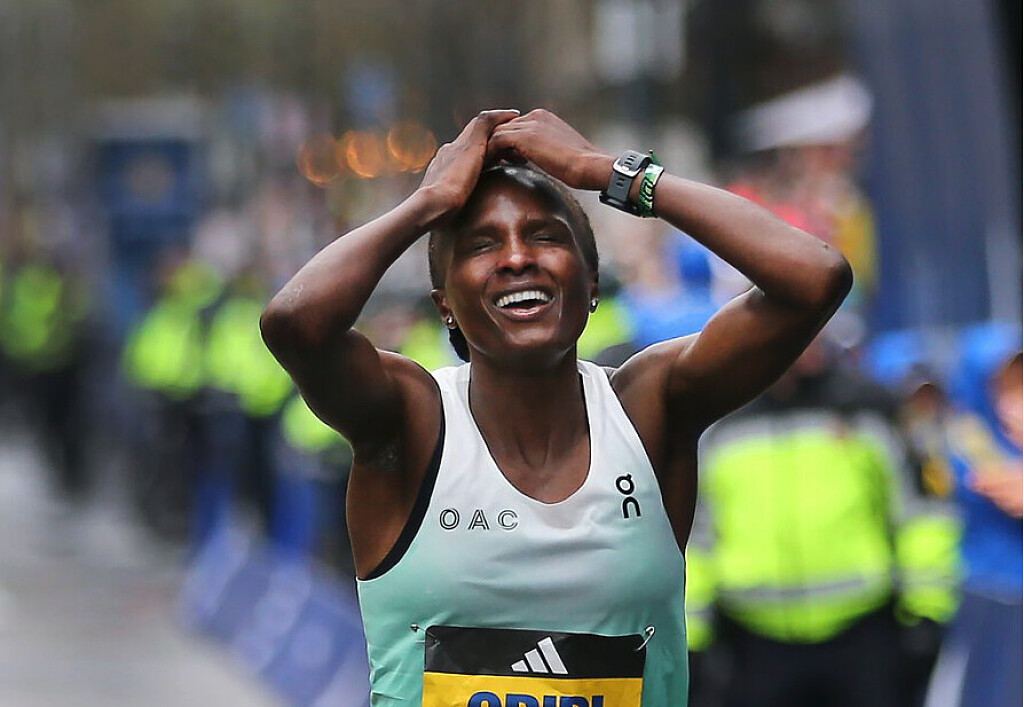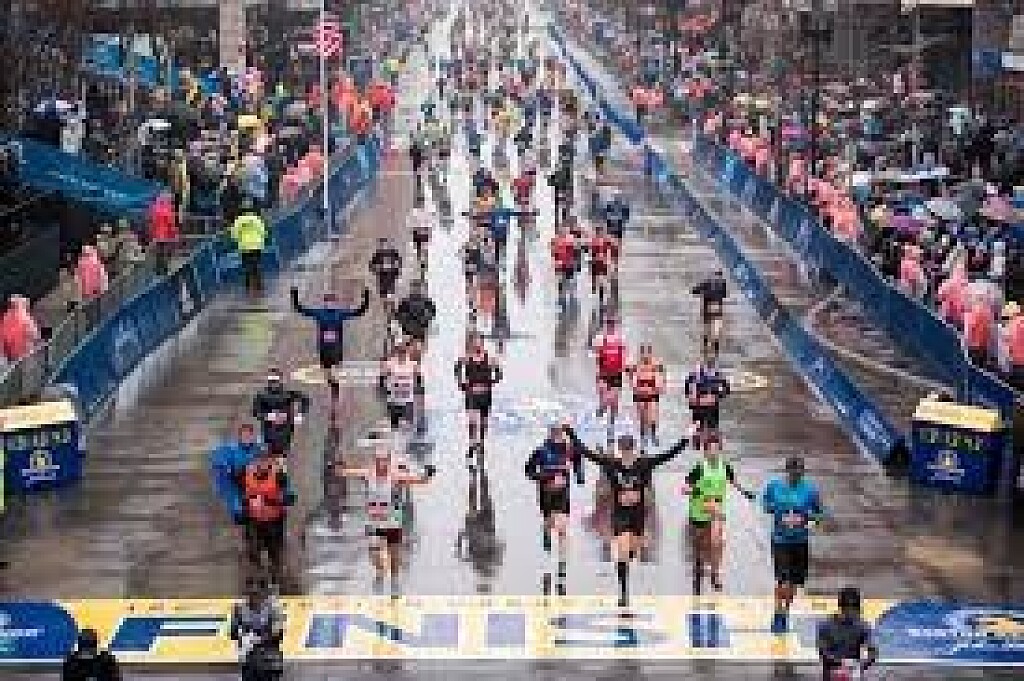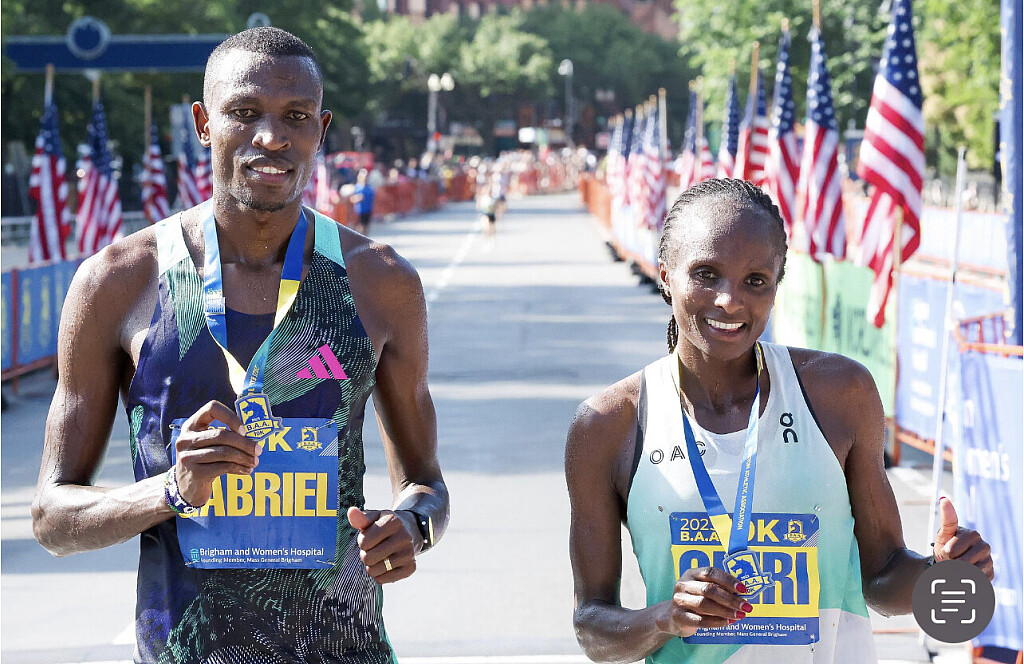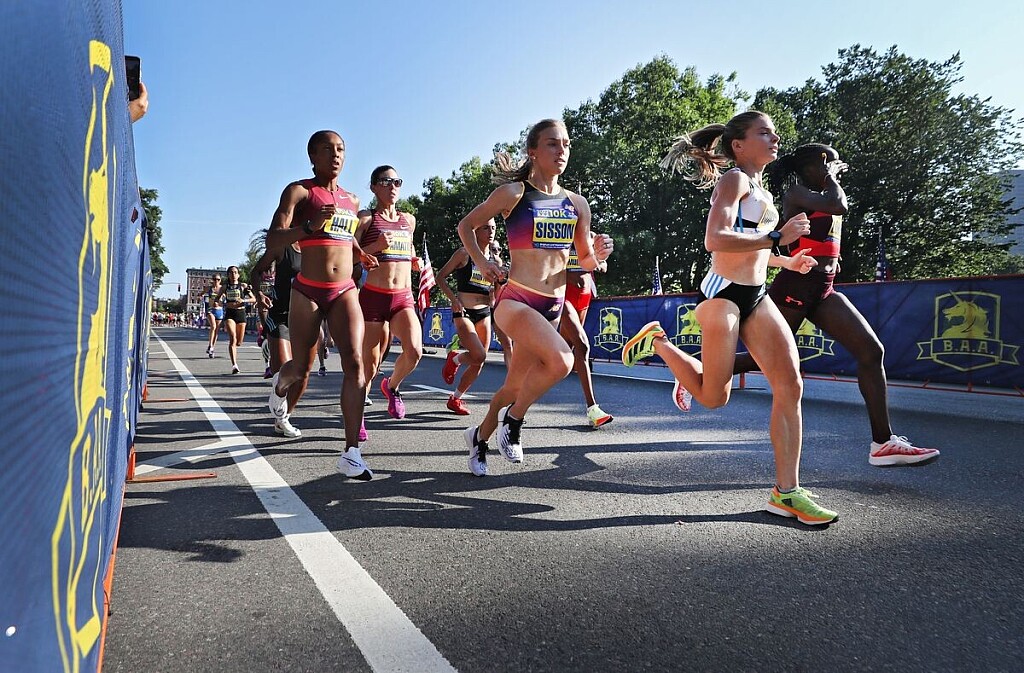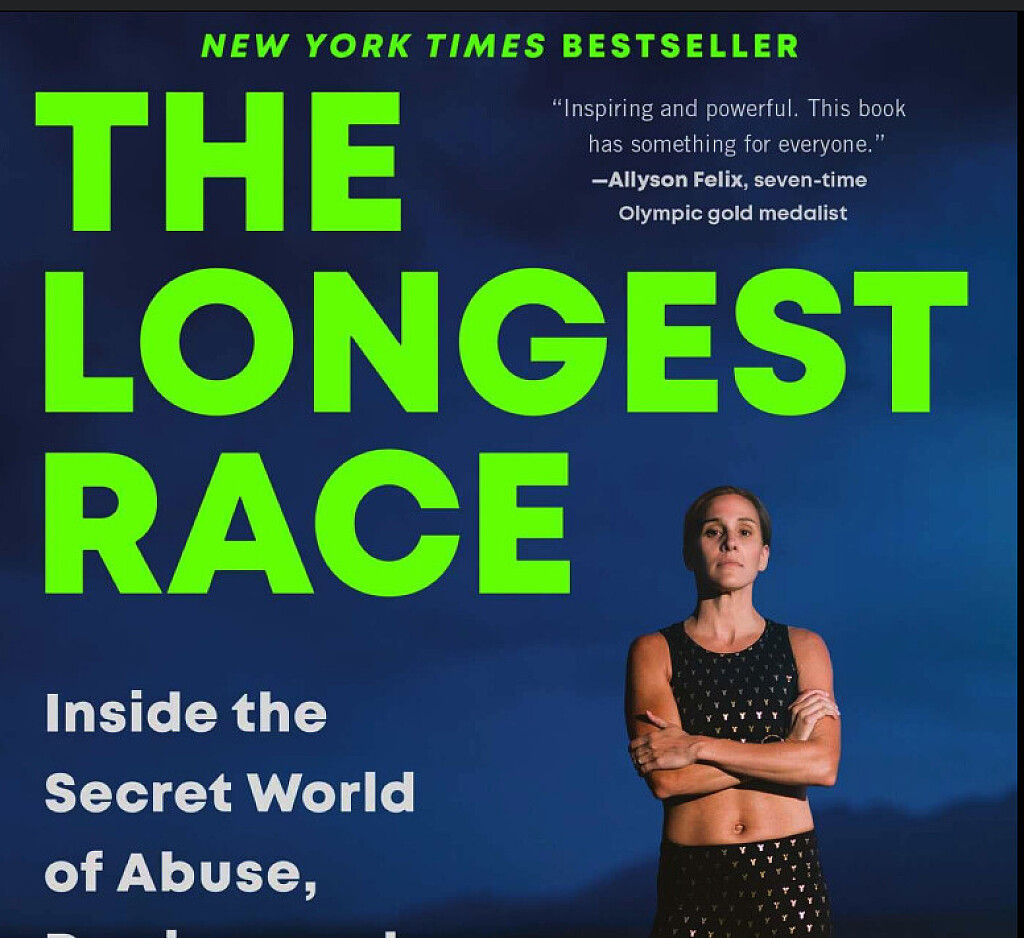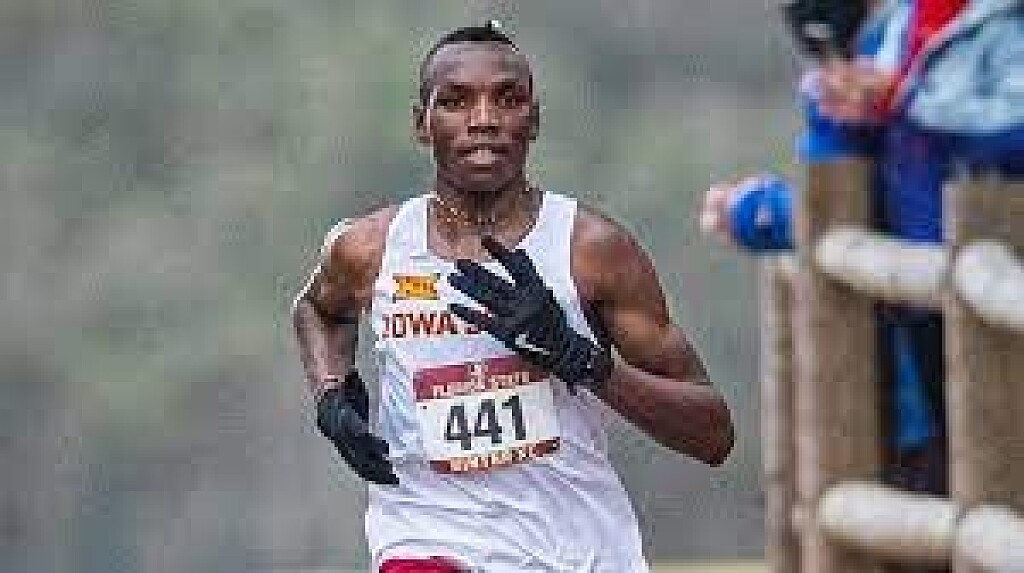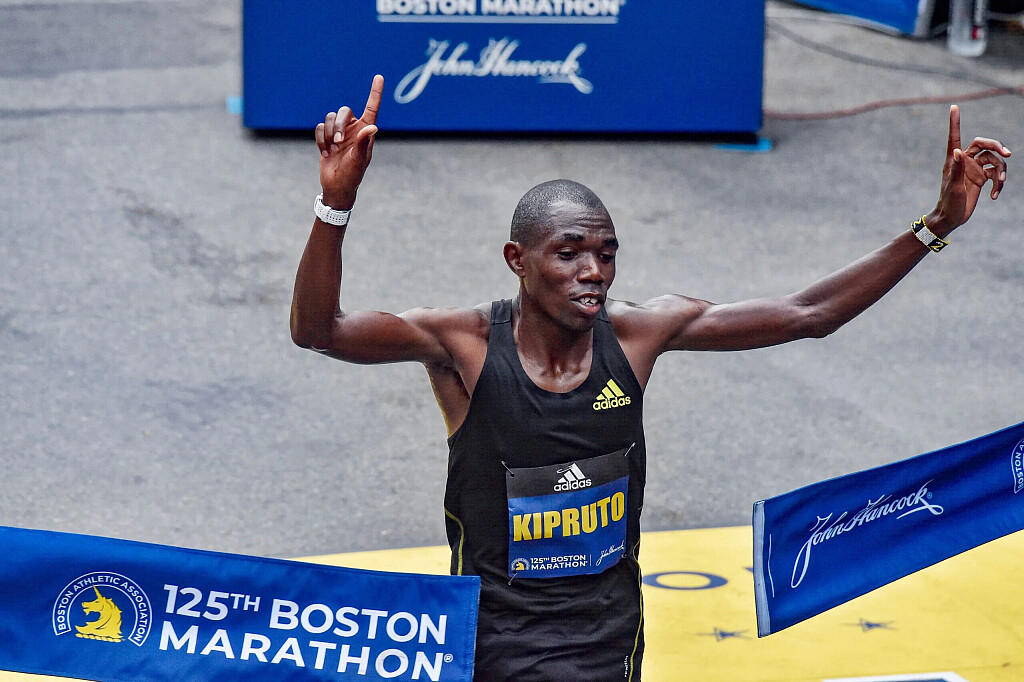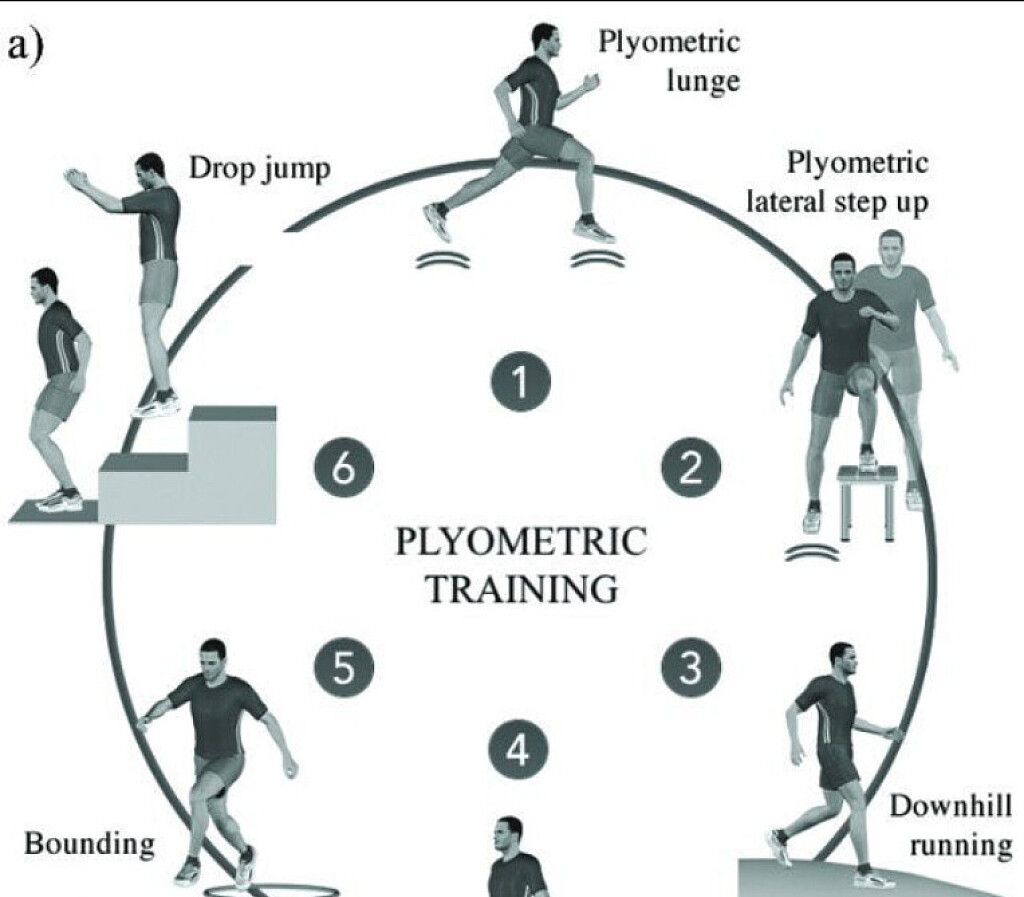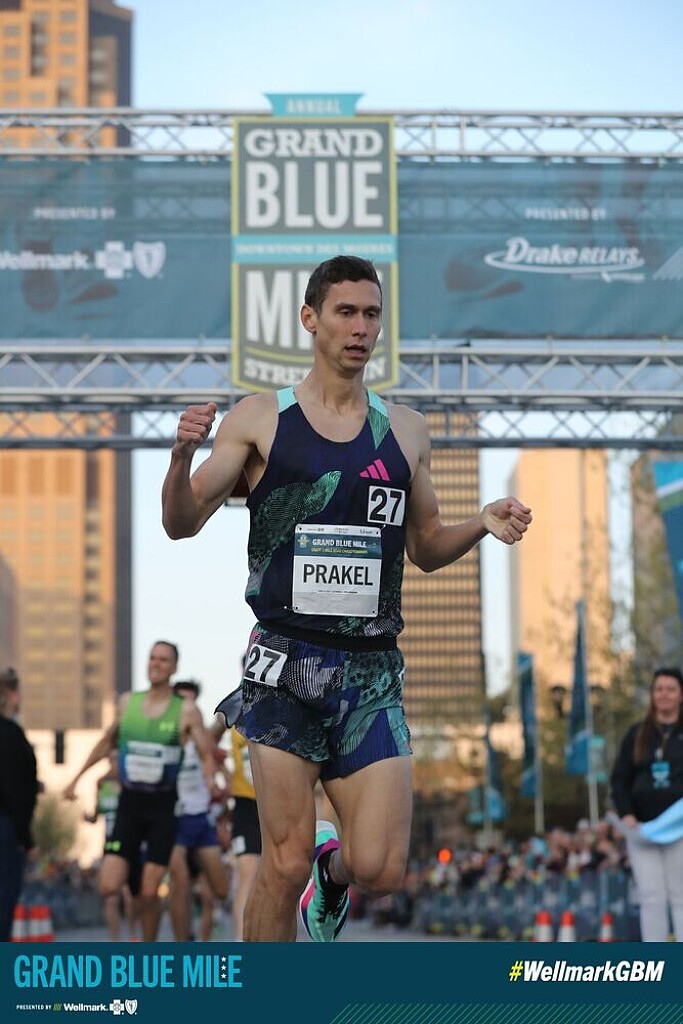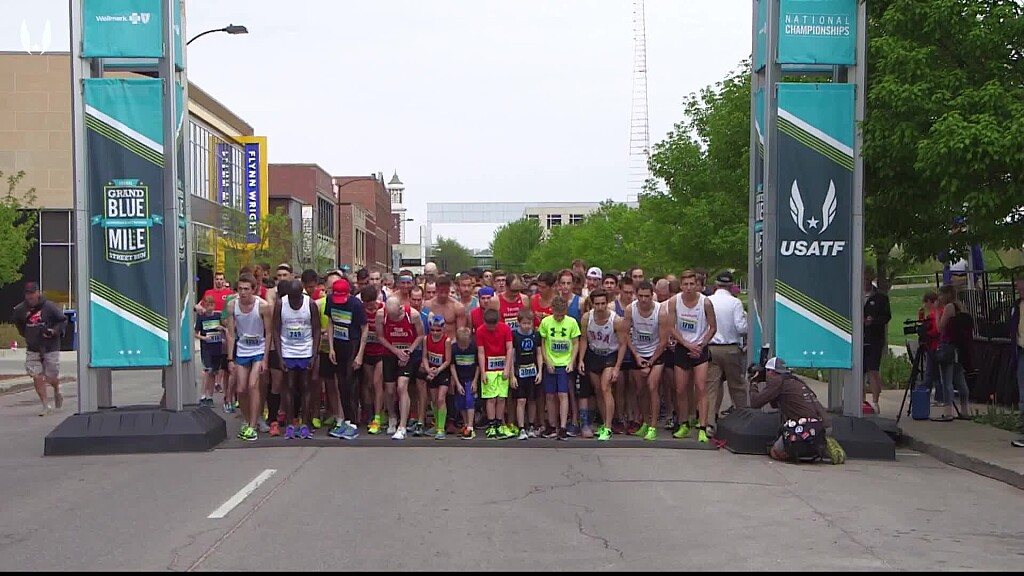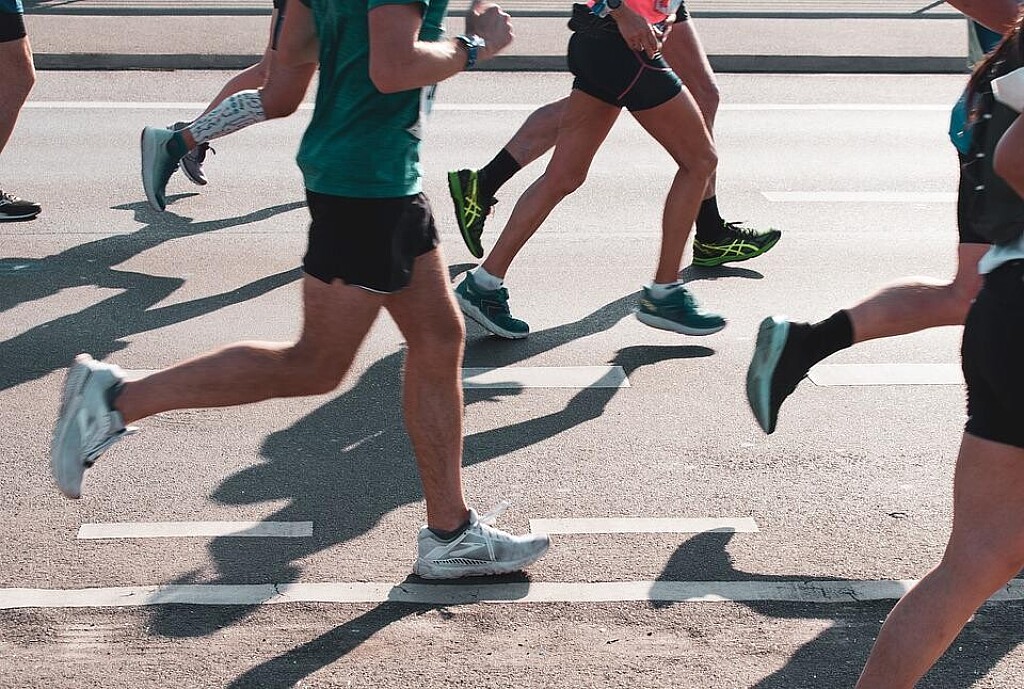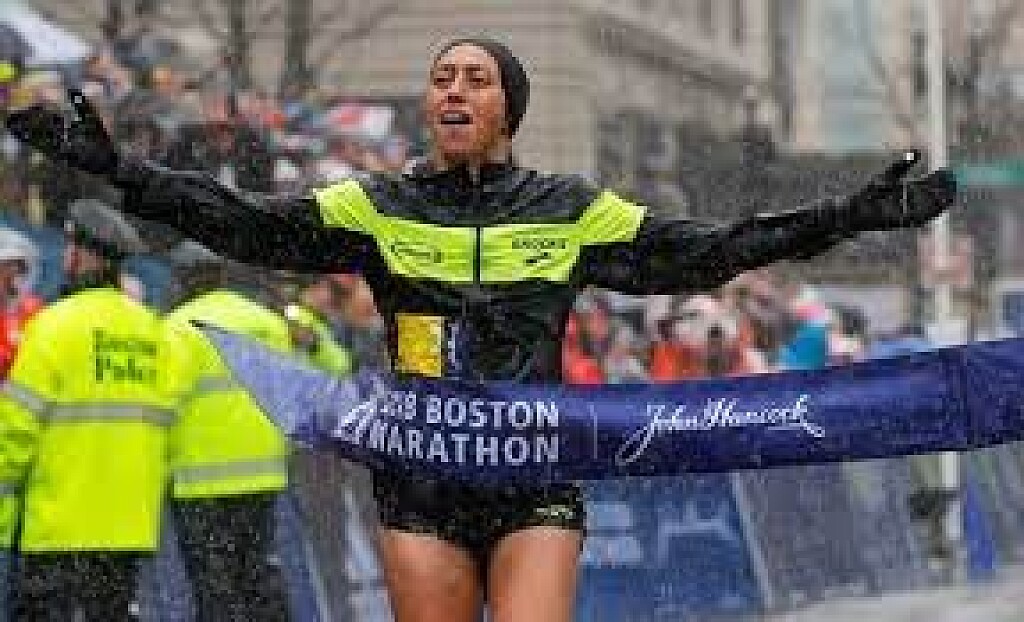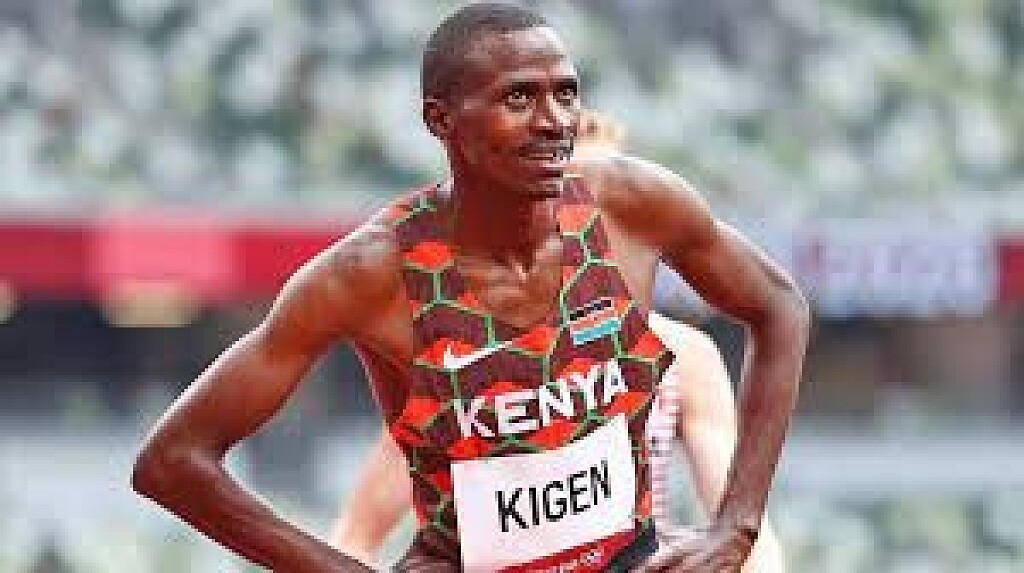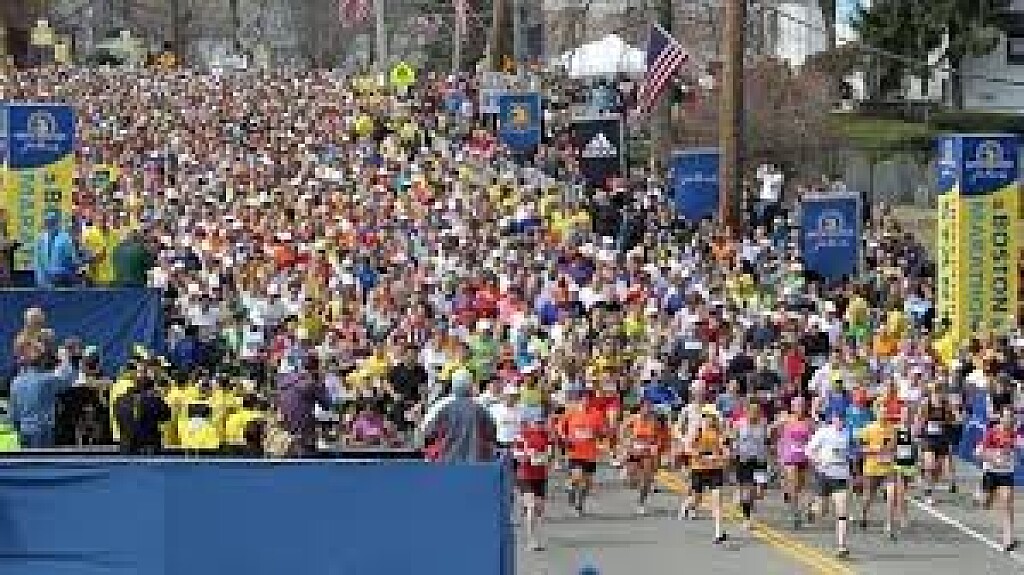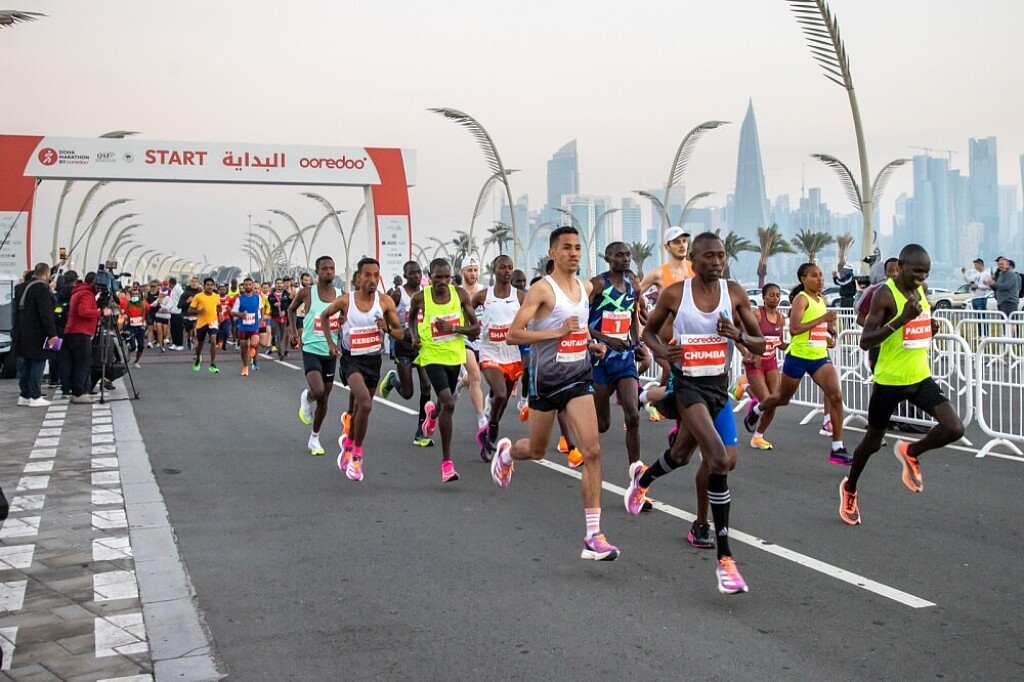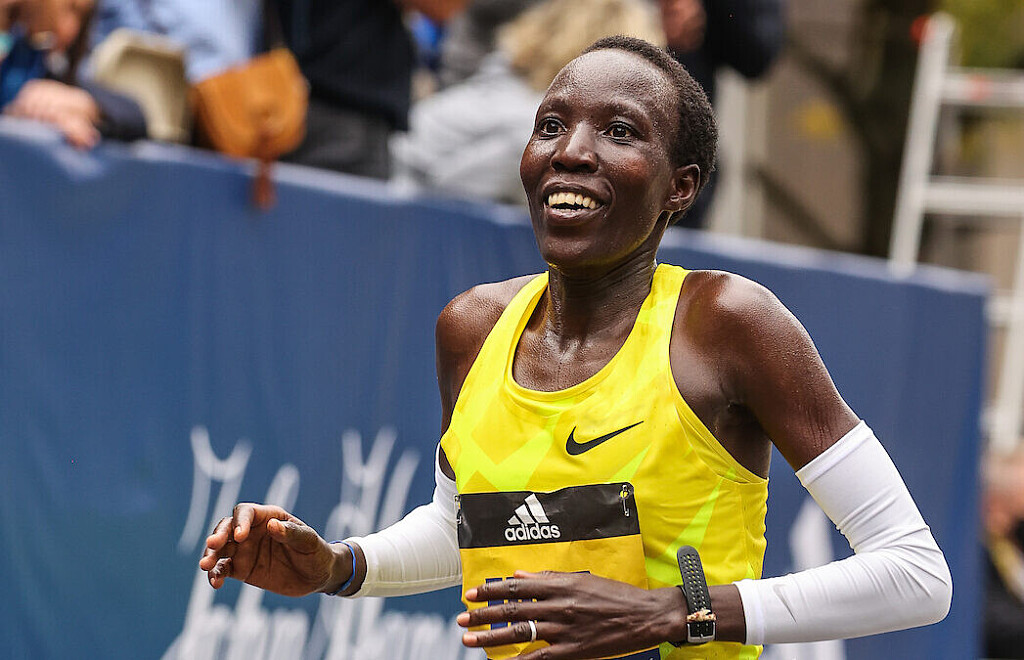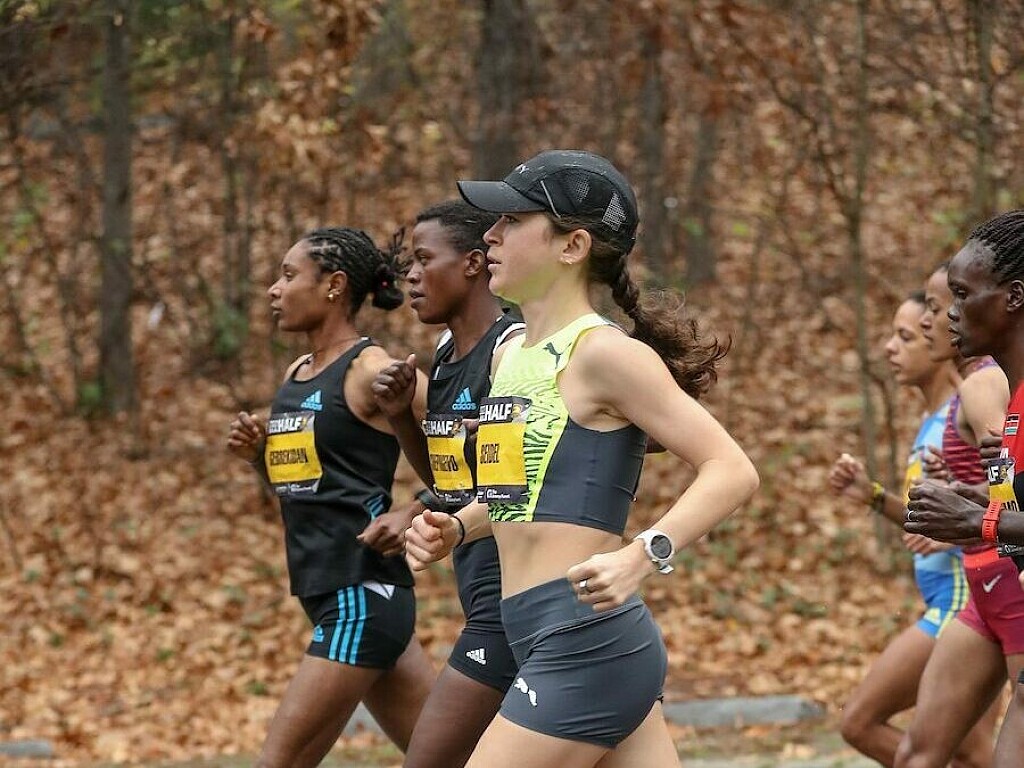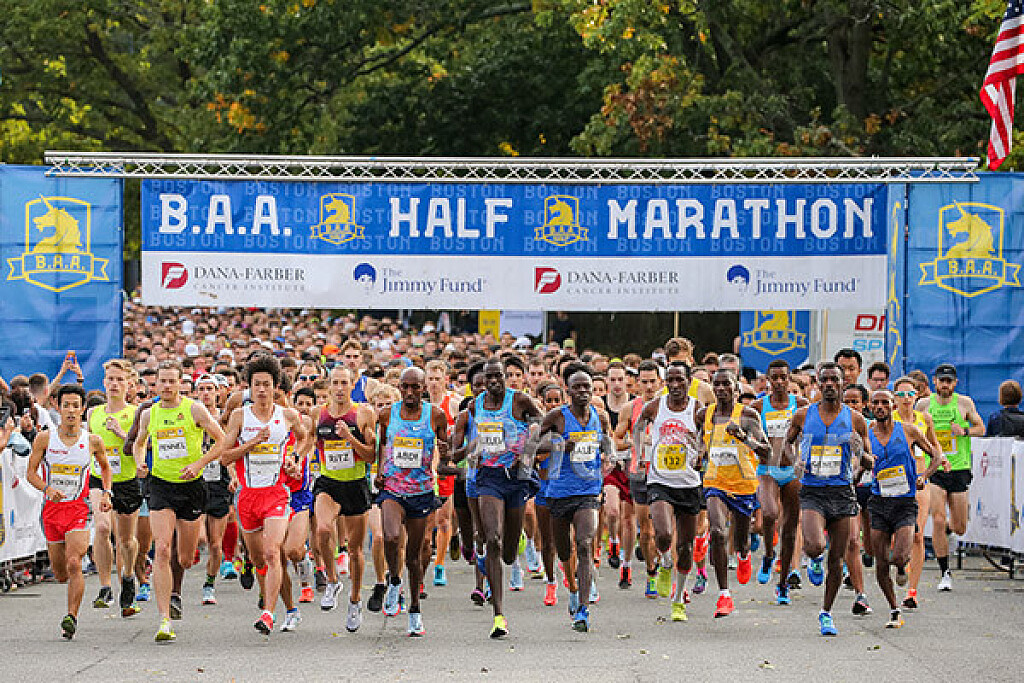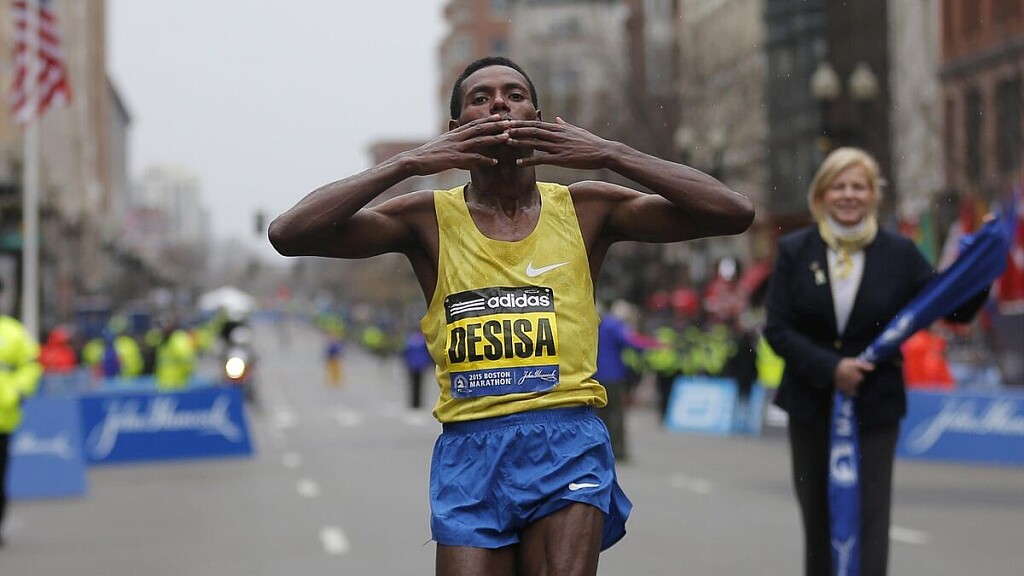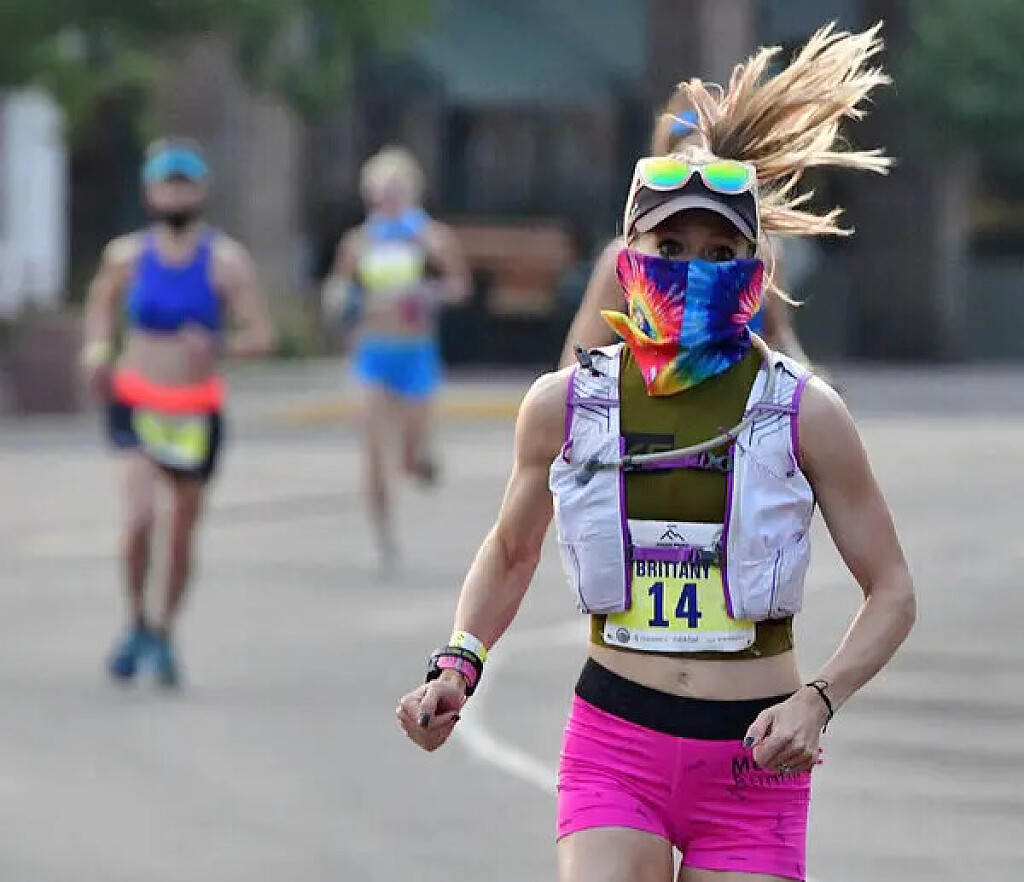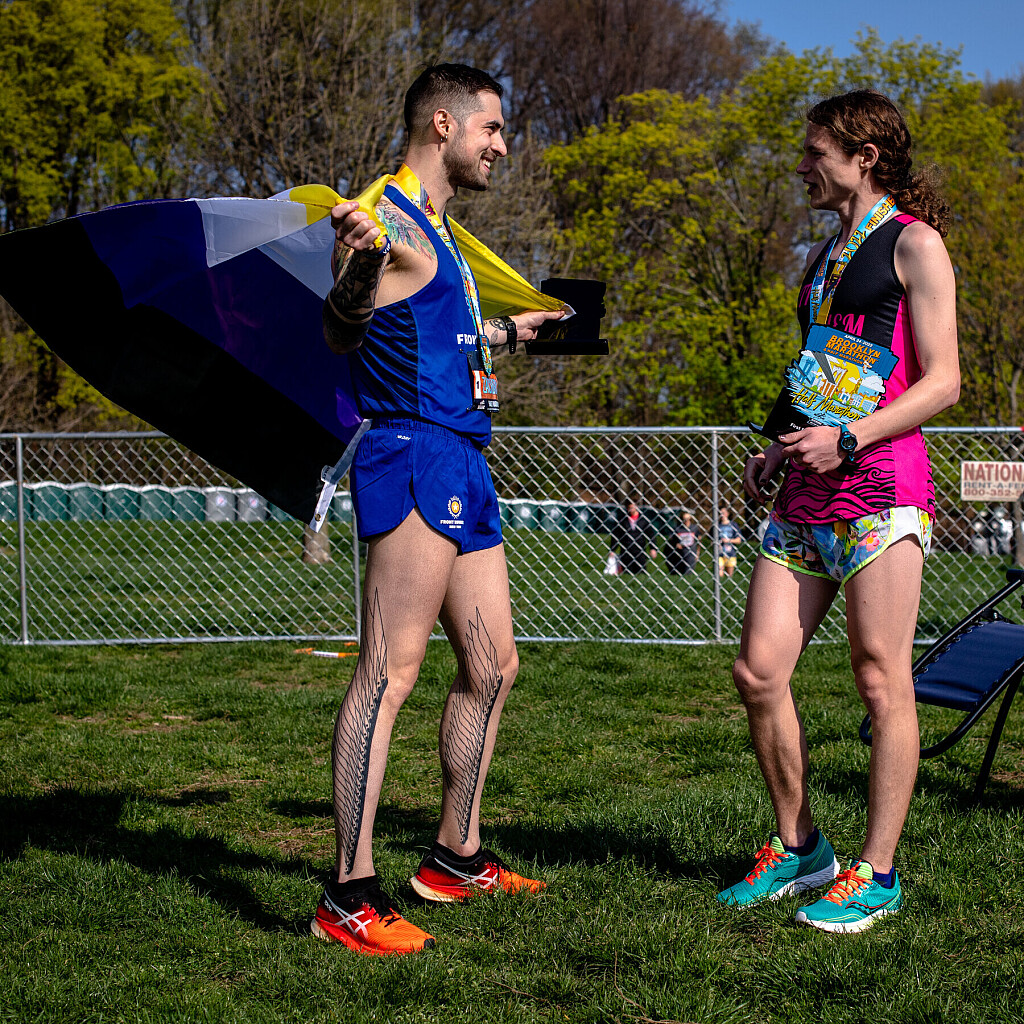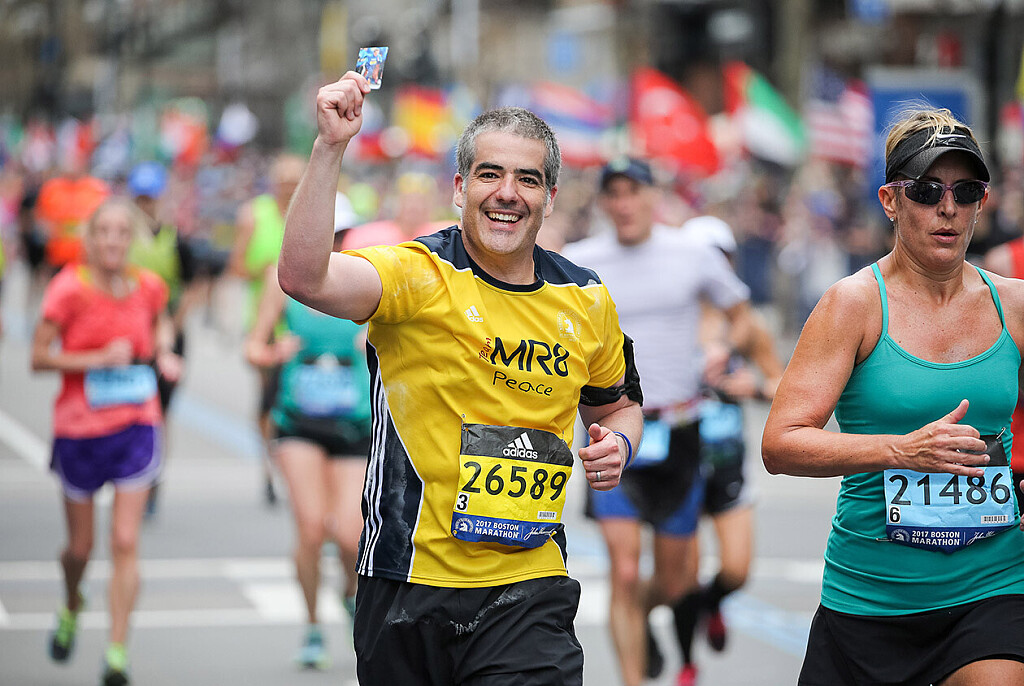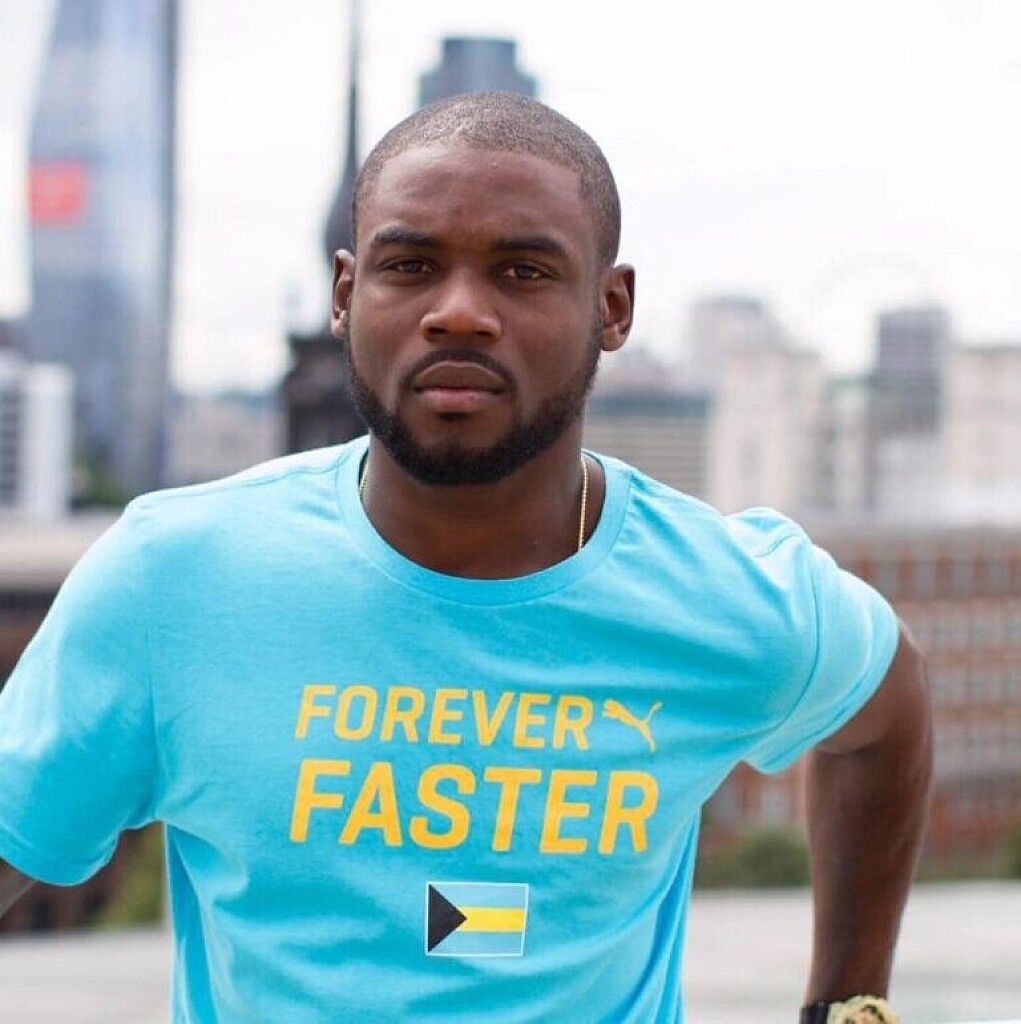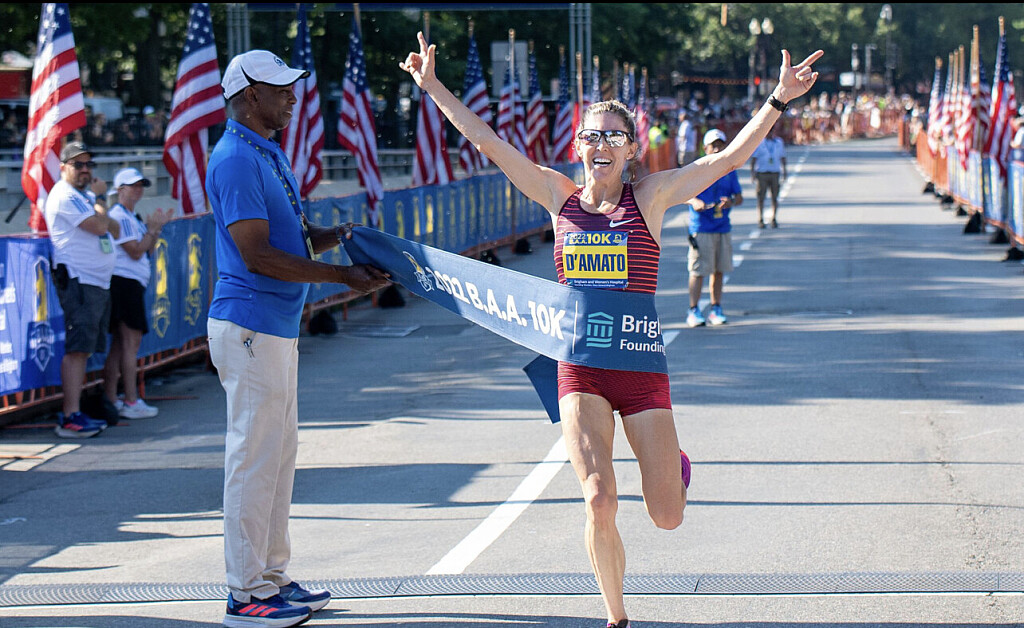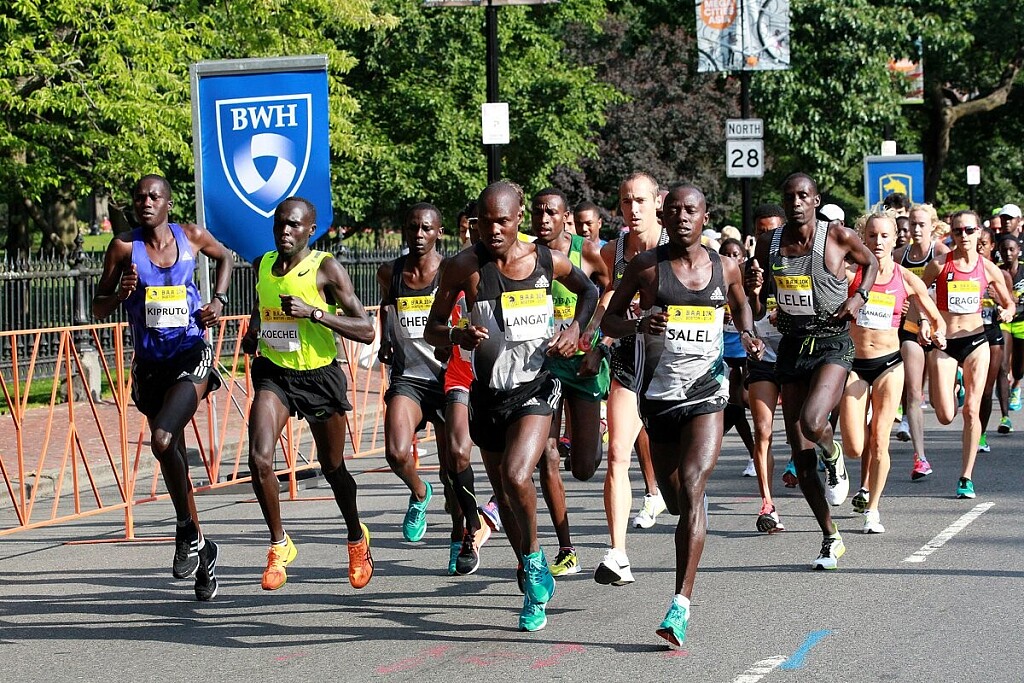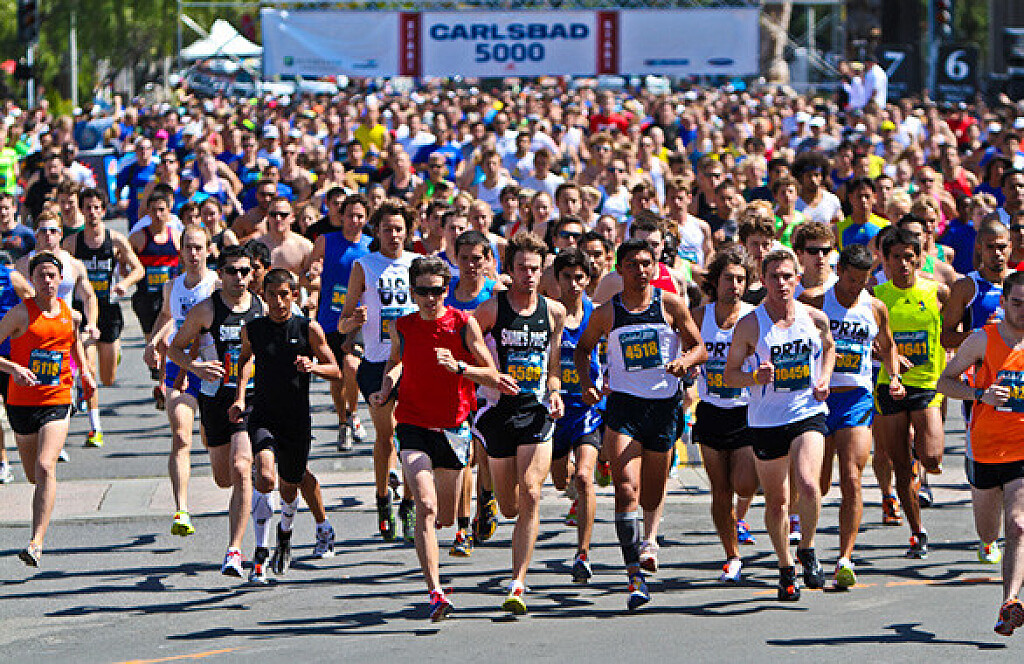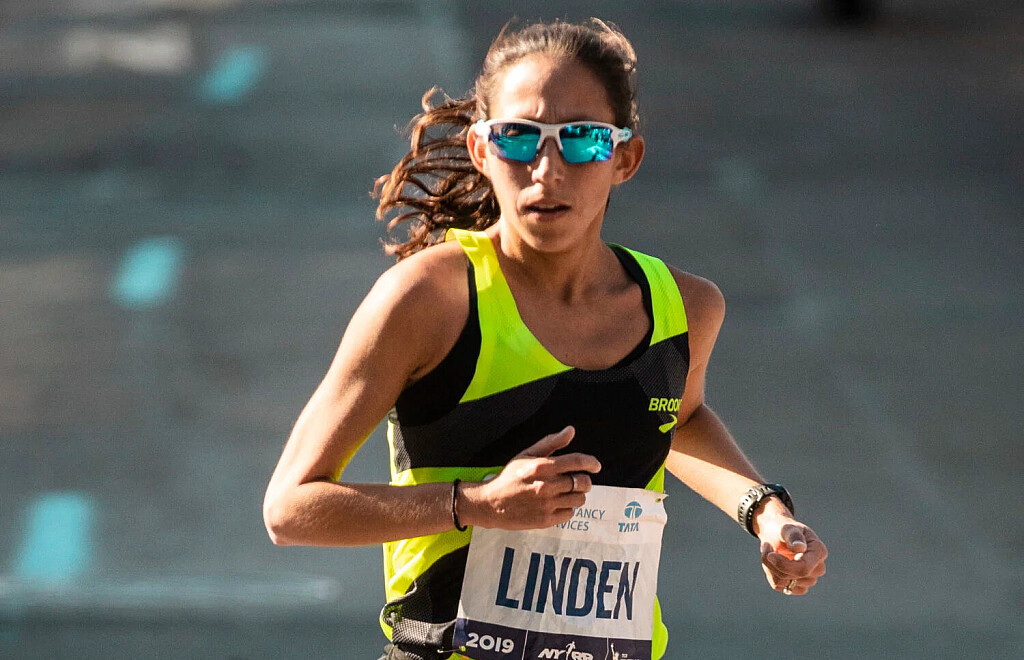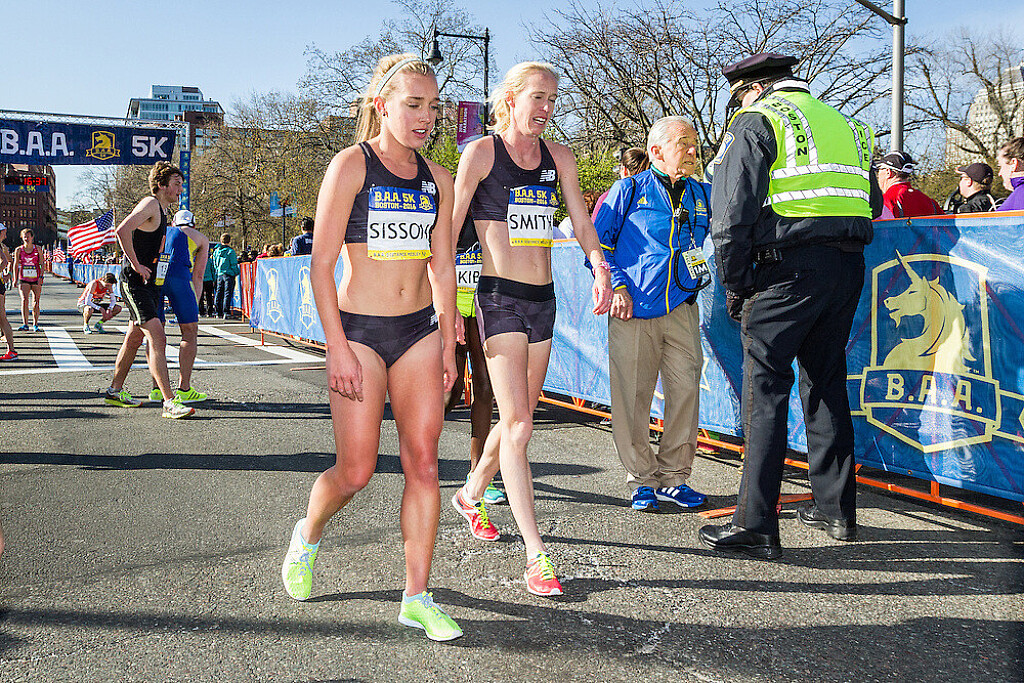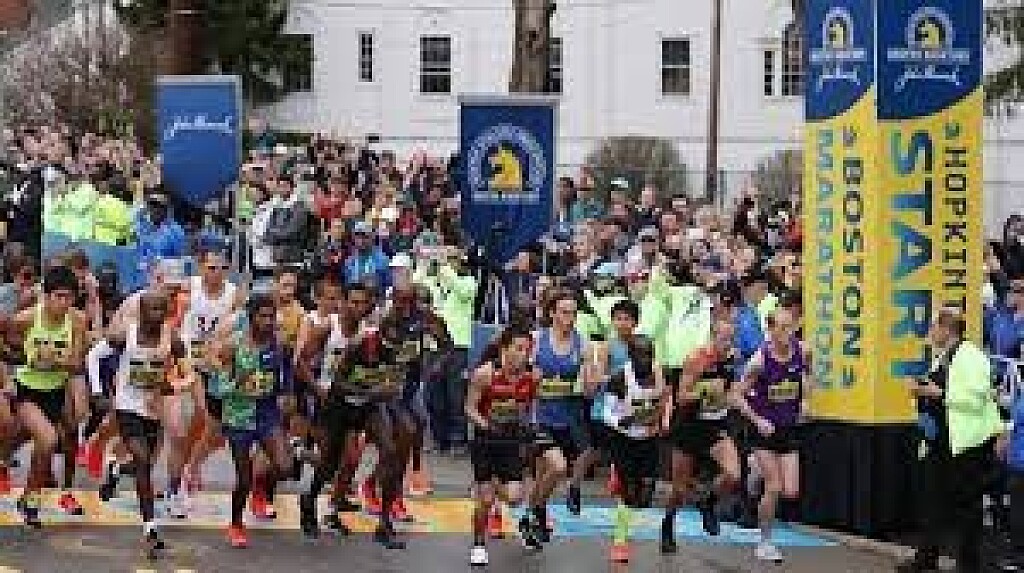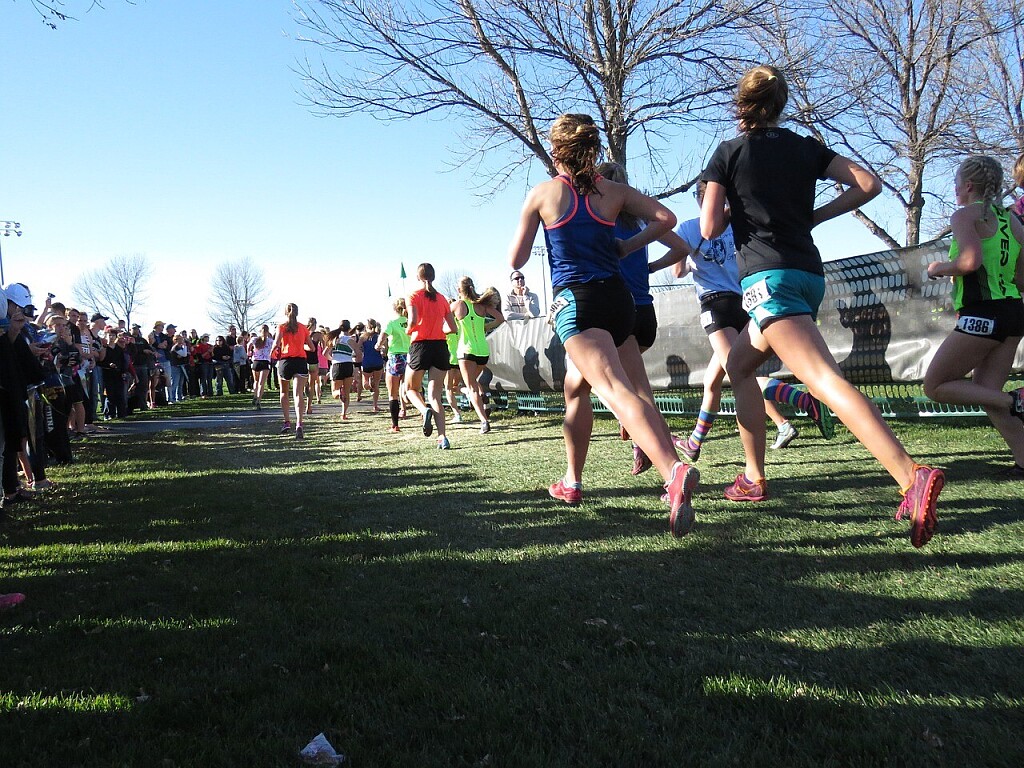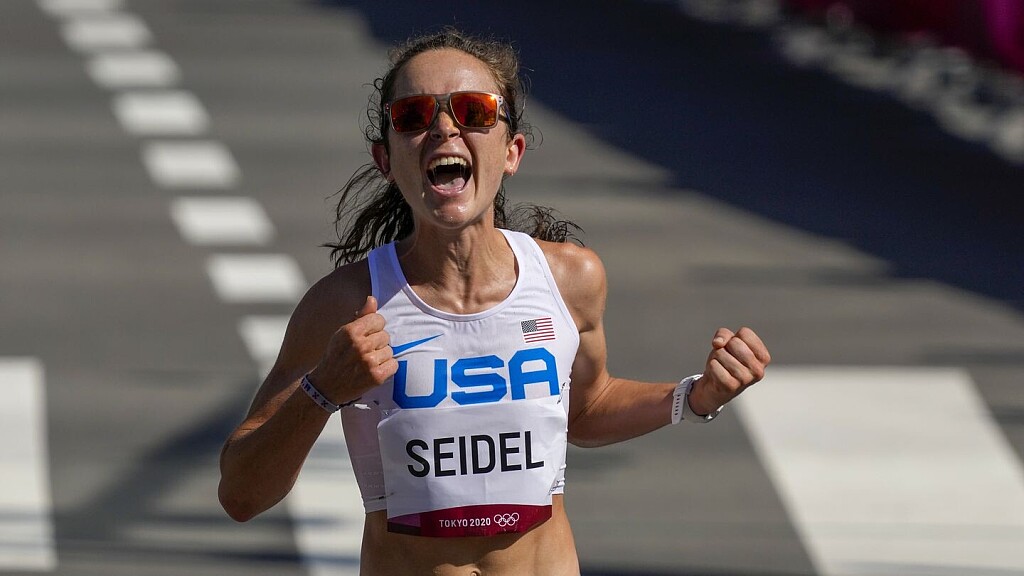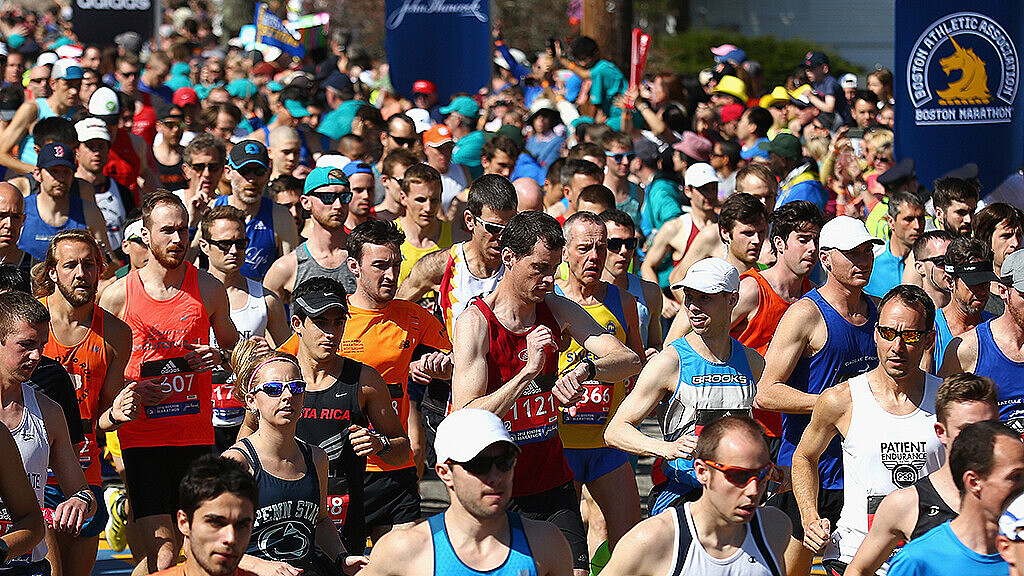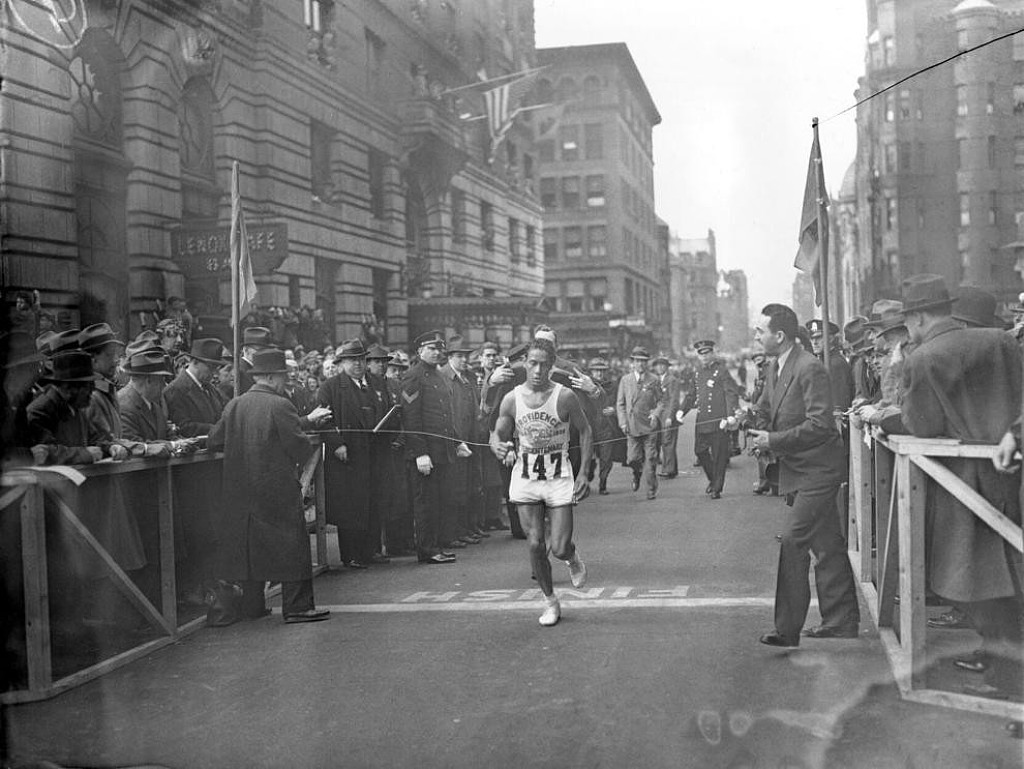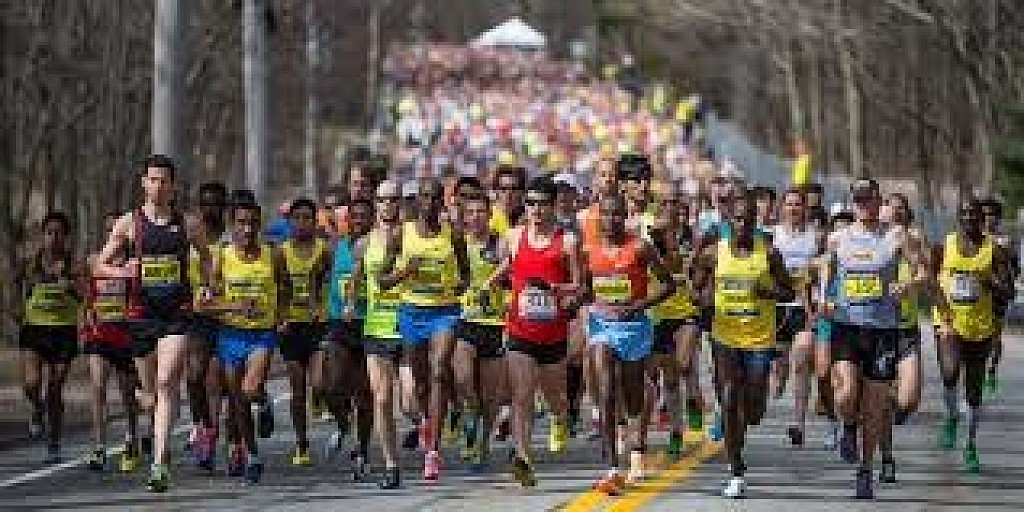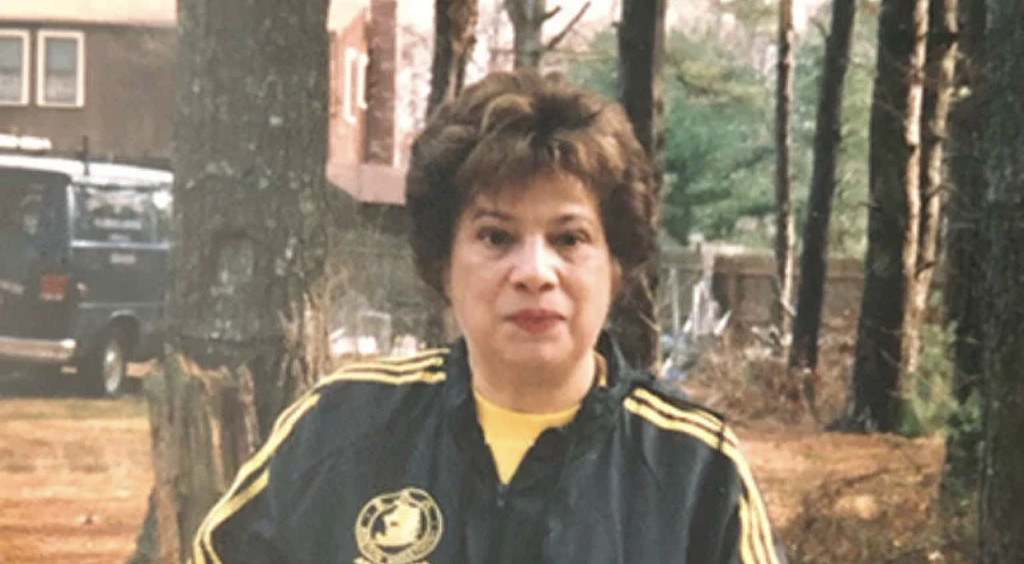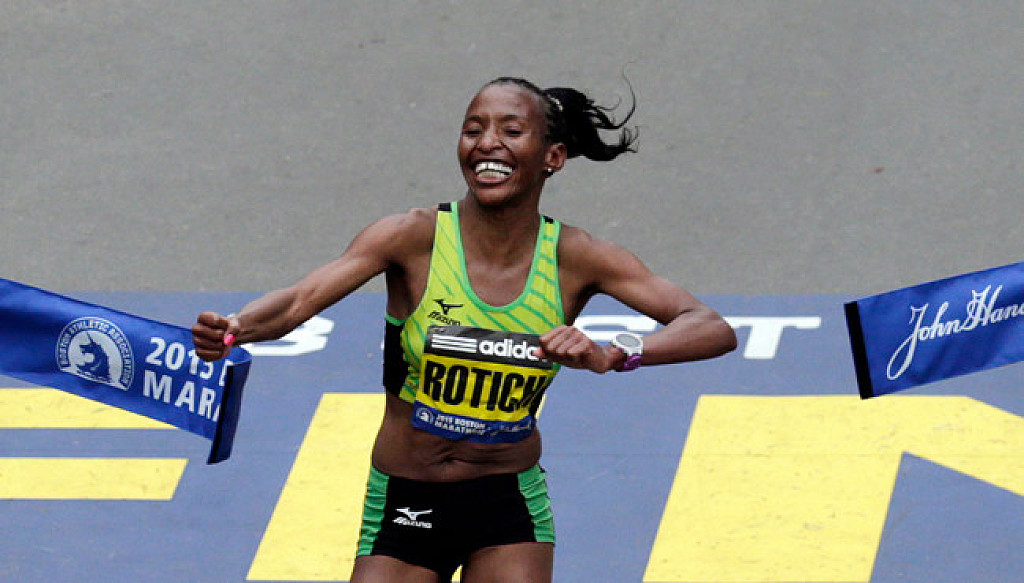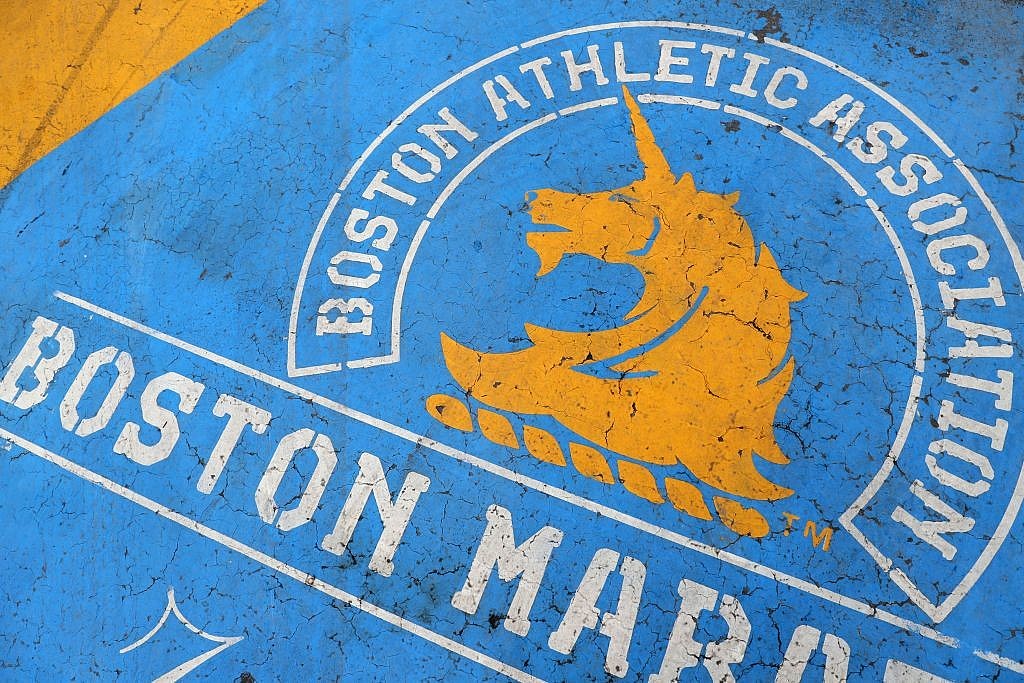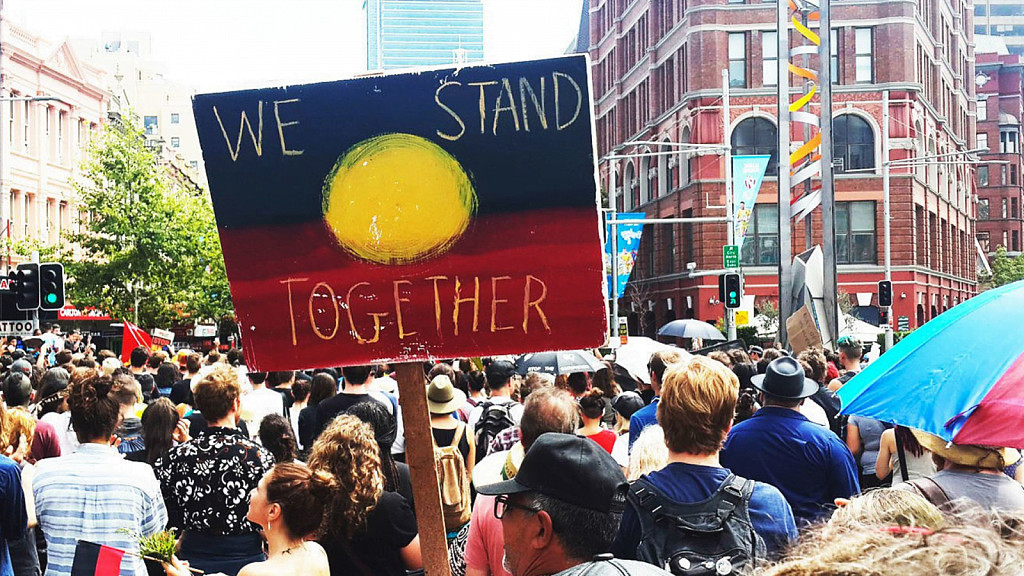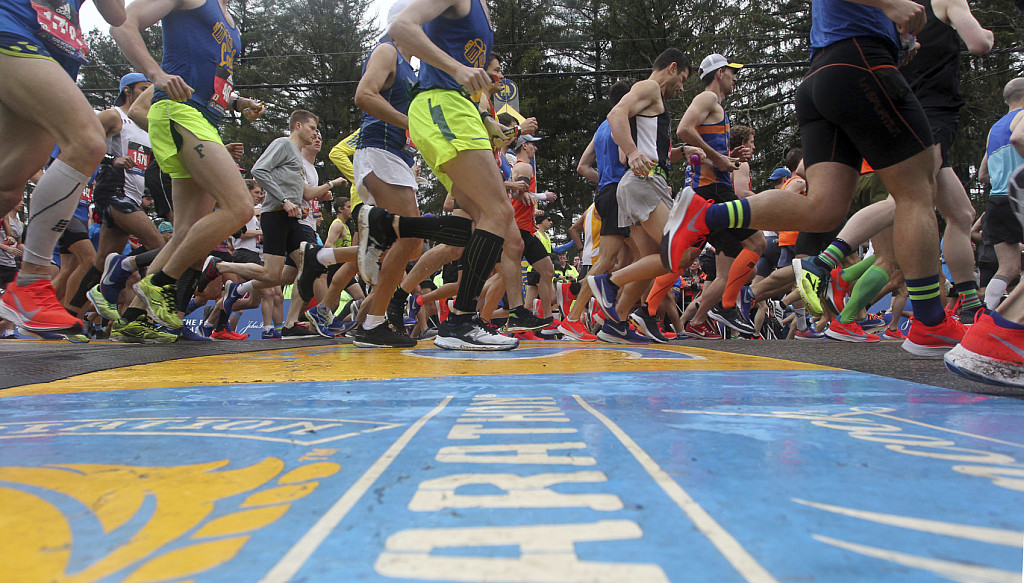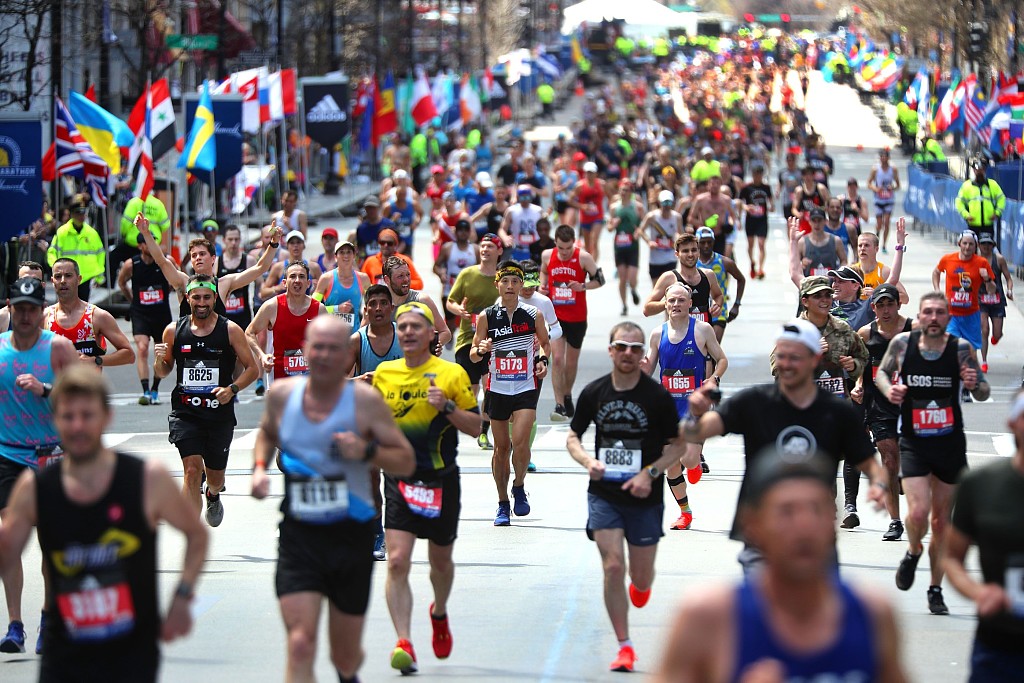Running News Daily
Running News Daily is edited by Bob Anderson. Send your news items to bob@mybestruns.com Advertising opportunities available. Train the Kenyan Way at KATA Kenya and Portugal owned and operated by Bob Anderson. Be sure to catch our movie A Long Run the movie KATA Running Camps and KATA Potato Farms - 31 now open in Kenya! https://kata.ke/
Index to Daily Posts · Sign Up For Updates · Run The World Feed
Articles tagged #BAA
Today's Running News
The 52nd Honolulu marathon was another fun and spirited event
Nearly 25,000 runners started the 52nd Honolulu Marathon under 72°F temperatures, 88% humidity and very calm winds. Due to the increased competition that has grown during a second running boom in recent years, Honolulu’s pro marathon field was not as deep as in the past.
“It’s getting harder to get the top runners here,” admitted marathon president Dr. Jim Barahal. “There are other races now, like Valencia, that have faster so they come back they come back courses, no heat or hills. But I’m happy with the field we got and the races they produced.”
Both defending champions returned, heading up small, but strong lead packs.
Kenya’s Paul Lonyagata came down with a small injury two months ago back home in Kenya, and wasn’t prepared to defend his title with any strength. He dropped out just before the 10K mark.
But women’s defender, Cynthia Limo, who debuted with her victory in Honolulu last year in 2:33:01, saw herself in a tight four woman battle that lasted from the 1st mile until 30 km.
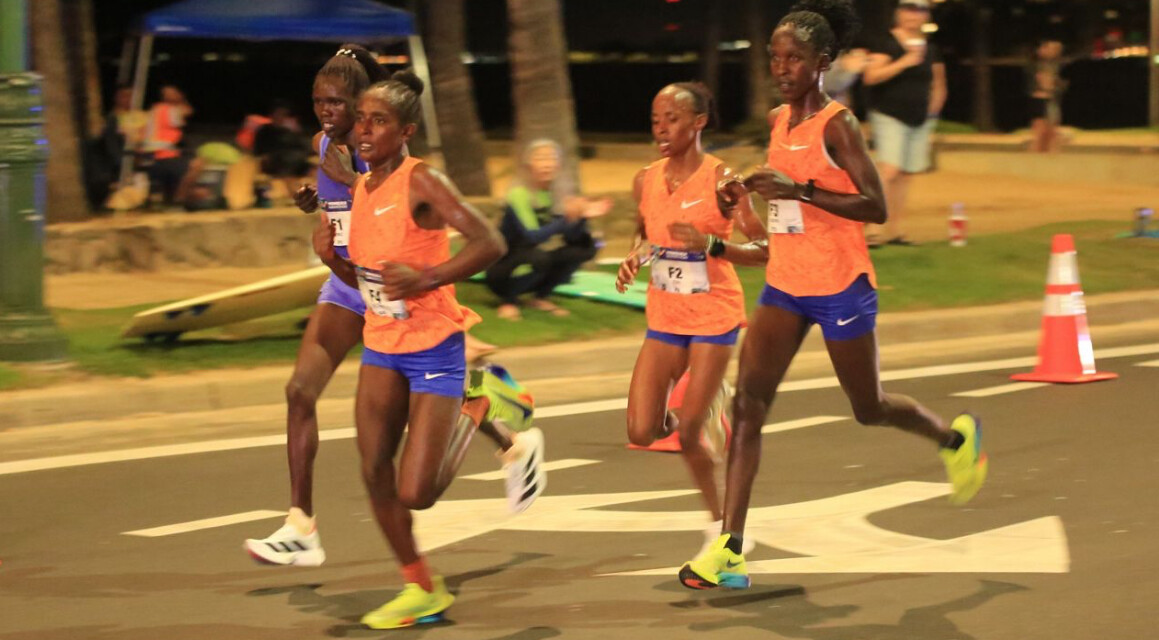
Last year’s third place men’s finisher, Reuben Kerio, 30, of Kenya, for some reason, downloaded a 4:38 11th mile as the race headed out Kalanianaʻole Highway for the 4 mile stretch out to Hawaii Kai and the turnaround.
What had been a four man pack was instantly reduced to two as Eritrean Olympian Yamane Haileselassie, 26, who debuted in Boston in April, answered the call a few steps behind the rushing Kenyan.
Super shoes not withstanding, a 4:38 is more like a breakaway mile after 30 km not a how-do-you-do mile not even halfway through the race. Pundits on the scene questioned Kerio‘s decision.
At 15 miles, Yamane HaileSelassie made a move of his own, and within a mile had 10 seconds on Kerio. The lead grew to 30 seconds by 20 miles and the race seemed all but over.
HaileSelassie defected to the United States after the world championships in Eugene, Oregon in 2022. He moved to Flagstaff, Arizona, where he drives an Uber making food deliveries 40 hours a week to supplement is racing income.
He recently won the BAA Half Marathon in Boston on November 10th, running 1:01:46. He was third in that race last year and in seventh the year before. So you knew he was on form. He was also the fifth place finisher at the 2021 Olympic steeplechase final in Tokyo. When you can run top five in the Olympic steeplechase, you know this could be a great marathon runner.
According to his coach, James McKirdy, this is the first season that Yamane has worn super shoes. But he didn’t seem to be dialed in to the new technology quite yet as his feet came out full of blisters at the end of the competition. Still, he held off a never-say-die Reuben Kerio to win the race in 2:11:59
Kerio, who closed within 12 seconds going up Diamondhead at 40 km, finished 17 seconds back with Japan’s Kensuke Horio taking third place in 2:15:30.
Women leaders through Waikiki in mile 6 (33:10)
The women staged a four-person battle from mile one to mile 19. Defending champion Cynthia Limo ran alongside country woman F3 Judith Korir, silver medalist at the 2022 World Championships marathon in Eugene, Oregon. Along with them was F2 Sandrafelis Tuei, also of Kenya, who is has personal best of 2:22:22 from a fourth place finish in Shanghai, China in 2023. The fourth woman in the group was F4 Fanta Gelasa of Ethiopia, runner up at the 2024 Milan Marathon in Italy.
The tall striding Judith Korir controlled the pace for much of the first half, but at 19 miles the Ethiopian Gelasa finally let go and Cynthia Limo began to show signs of trying to take the race over.
In mile 20 Judith Korir finally fell away, leaving just Cynthia and Sandrafelis.
Those two stay together until Diamond Head when, at the 39 km mark, at the aid station Tuei seemed indecisive, unsure how to go to the table and almost ran into it before coming around the table to get her drink. But then she failed to grab it, whereas Cynthia easily snatched her bottle and kept on trucking’.
Suddenly, a side-by-side battle was a two stride advantage. And that seemed to be enough to break Tuei. From there, Limo loped home uncontested to finish in 2:31:13 to take her second straight, Honolulu Marathon title. Tuei finishing 2:31:47, with Judith Korir taking third in 2:36:17.
In this modern area of super shoes, when winning times are faster than ever, sometimes an old-fashioned foot race can be more fun to watch than a solo run against the clock.
Honolulu never had, nor never will have, a reputation for being a fast marathon. But pro racing is just as important to the Honolulu Marathon Association as tens of thousands of average runners. Though In 2019, Honolulu had both the fastest marathon in the America (2:07:59) and the slowest, as they never close their finish line and some finishers take up to 17 hours to complete their journey.
But that’s what makes Honolulu special. And with more people than ever coming to enjoy sun and sand and swaying palm trees while the snow flies back home, it seems the aloha spirit will never go out of style.
by Toni Reavis
Login to leave a comment
Honolulu Marathon
The Honolulu Marathon’s scenic course includes spectacular ocean views alongside world-famous Waikiki Beach, and Diamond Head and Koko Head volcanic craters.The terrain is level except for short uphill grades around Diamond Head. ...
more...Emmaculate Anyango faces four-year ban following provisional suspension over doping
Kenya’s long-distance runner Emmaculate Anyango faces the prospect of a four-year ban after being handed a provisional suspension for doping as the net nabs another big fish.
Kenya’s long-distance prodigy Emmaculate Anyango has joined the list of shame following her provisional suspension for a doping violation.
The Athletics Integrity Unit (AIU) announced Anyango’s provisional suspension on Friday for the presence/use of a prohibited substance (Testosterone and EPO).
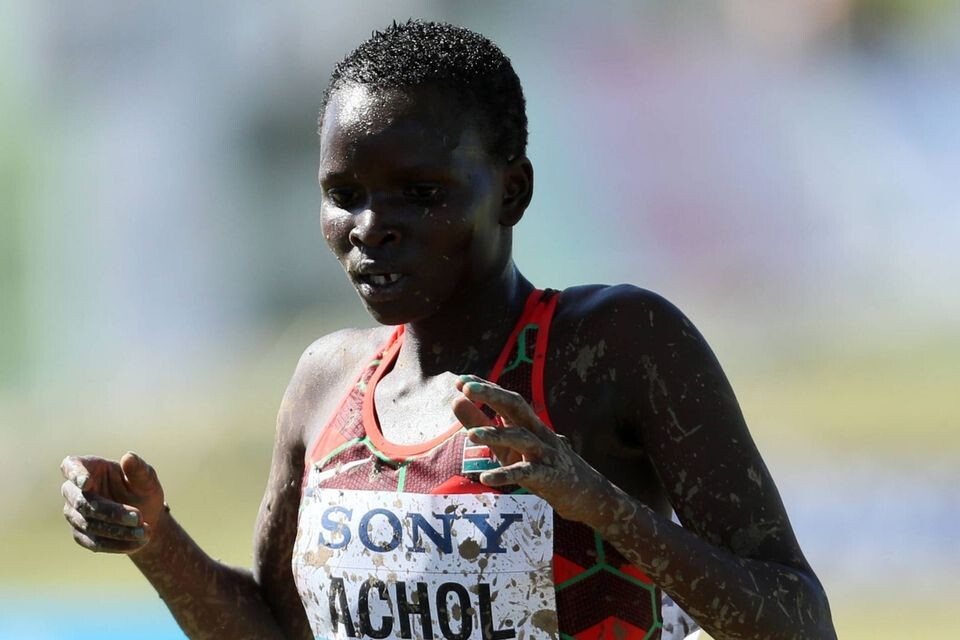
It means Anyango will remain suspended until her case is heard and determined and she faces a minimum of a four-year ban if she is found culpable.
It is a blow to the 24-year-old who was already making waves having been one of the standout athletes in the early months of the 2024 season.
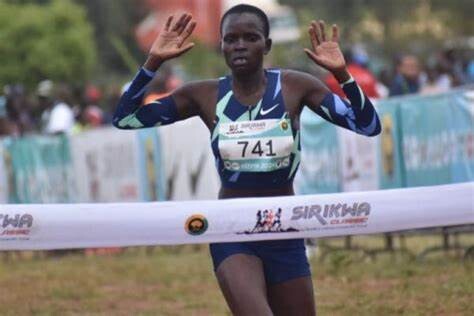
The Sirikwa Classic Cross-country champion was awarded the Sports Personality of the Month award for February by the Sports Journalists Association of Kenya (SJAK) after coming close to breaking the world 10km world record in February.
Anyango recorded the second fastest 10km time in history when she clocked 28:47 in Valencia, Spain, improving Ethiopian Yalemzerf Yehualaw’s world record (29.14) but unfortunately for her, compatriot Agnes Ngetich won the race in a better time of 28.46.
She would go on to finish fourth at the World Cross-Country Championships in Serbia followed by second place at the BAA 5k Road Run in Boston and in 10km Road in Bengaluru, India.
She, however, missed a place in team Kenya to the Paris Olympics after finishing sixth in the 10,000m trials which was held at the Prefontaine Classic, the Eugene Diamond League in May.
Back-to-back second places finishes would follow in 10km in Atlanta and in 15km in New York in July.
by Joel Omotto
Login to leave a comment
Hoping to qualify for the 2026 Boston Marathon? You'll have to run even faster
All age groups under 60 will have to run five minutes faster as demand to participate grows.
Runners hoping to qualify for the 2026 Boston Marathon are going to have to pick up the pace.
The Boston Athletic Association has updated its qualifying times for the world's oldest annual marathon, asking most prospective competitors to run a 42.195 kilometre race five minutes faster than in recent years to earn a starting number.
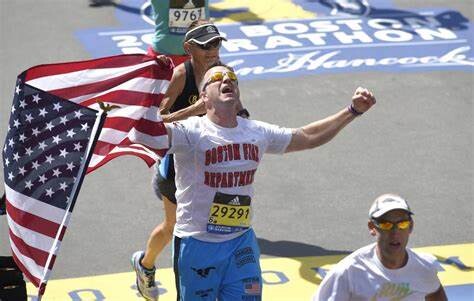
"Every time the BAA has adjusted qualifying standards — most recently in 2019 — we've seen athletes continue to raise the bar and elevate to new levels," Jack Fleming, president and CEO of the BAA, said in a statement posted Monday.
"In recent years we've turned away athletes in this age range (18-59) at the highest rate, and the adjustment reflects both the depth of participation and speed at which athletes are running."
The BAA introduced qualifying times in 1970 and has expanded and adjusted the requirements through the decades.
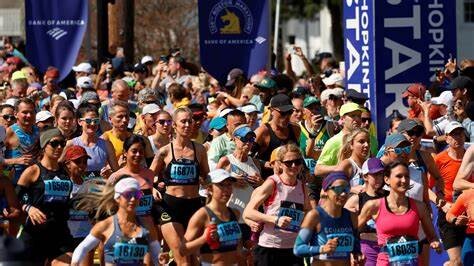
Runners participating in the event to raise money for charity do not have to meet the qualifying standards.
All age groups up to age 60 will be required to run five minutes faster than in previous years. This means men between the ages of 18 and 34 will have to run a marathon during the qualification window in two hours, 55 minutes or faster to earn a spot in the 2026 race.
Women and nonbinary applicants age 18-34 need to complete the distance in three hours, 25 minutes.
The BAA said it decided to tighten its times after turning away "thousands of runners" in the past who met the qualifying time. In his statement, Fleming said athletes have gotten faster, the sport of marathon running is growing and so is demand to participate in the Boston Marathon.
Athletes are getting faster
The qualifying times for runners age 60 to 80-plus didn't change. The slowest competitors that can earn qualification are in the 80 and over age group. The men in that category must complete a marathon in four hours, 50 minutes, while women and nonbinary competitors must finish in five hours, 20 minutes.
The BAA said it had 36,406 qualifier entry applications for next year's race, more than ever before.
"The record number of applicants indicates the growing trend of our sport and shows that athletes are continuously getting faster and faster," Fleming said.
The qualifying window for the 2026 race began on Sept. 1 and will run through the conclusion of the registration period of that race next September.
Next year's Boston Marathon will take place on April 21.
by The Associated Press
Login to leave a comment
Boston Marathon
Among the nation’s oldest athletic clubs, the B.A.A. was established in 1887, and, in 1896, more than half of the U.S. Olympic Team at the first modern games was composed of B.A.A. club members. The Olympic Games provided the inspiration for the first Boston Marathon, which culminated the B.A.A. Games on April 19, 1897. John J. McDermott emerged from a...
more...Winfred Yavi's Bahrain heavily sanctioned by World Athletics following multiple accounts of doping scandals
Bahrain have been heavily sanctioned by World Athletics over doping scandals which will heavily impact their athletes, including Kenyan-born Olympic champion Winfred Yavi.
The World Athletics Council has approved a series of corrective actions against the Bahrain Athletics Association (BAA) following historical breaches of the World Athletics Anti-Doping Rules (ADR).
This decision comes after an 18-month investigation by the Athletics Integrity Unit (AIU), which uncovered serious violations linked to doping practices within the BAA.
The investigation was triggered by doping infractions involving two Bahraini athletes at the Tokyo 2020 Olympic Games, where both were found guilty of homologous blood transfusions.
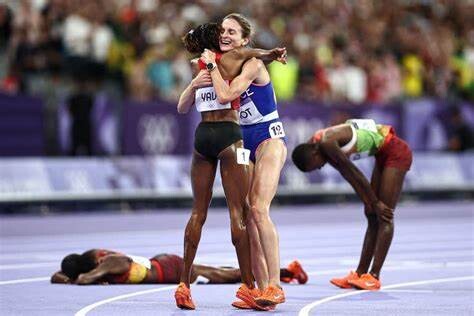
Additionally, it was discovered that the BAA had employed a coach between 2019 and 2021 who was banned from the sport for prior anti-doping violations.
Acting negligently and recklessly in relation to doping, thereby damaging the reputation of World Athletics and the sport as a whole.
Failing to conduct proper due diligence when hiring athlete support personnel, which increased the risk of doping within the national team.
In response, the BAA admitted to the charges and has cooperated with the AIU throughout the process. As a result, the following sanctions and corrective measures have been imposed:
1.Restricted Participation: The BAA's involvement in the Paris 2024 Olympic Games and the World Athletics Championships in Tokyo 2025 will be limited to a maximum of 10 athletes, a move that could impact stars like Winfred Yavi and others.
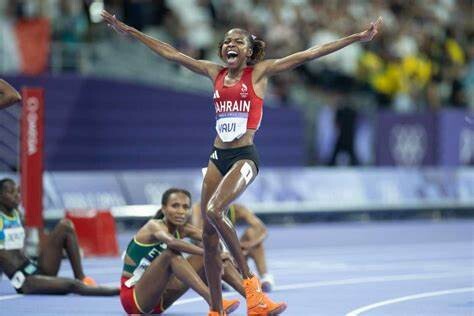
2.12-Month Ban: The BAA will be barred from participating in any other World Athletics Series events for a period of 12 months starting from June 1, 2024.
3.Transfer Freeze: The BAA will not be allowed to apply for transfers of allegiance or recruit any foreign athletes until 2027, marking a significant shift in the association’s recruitment strategy. Yavi is one of many athletes who were recruited from other countries.
4. $7.3 Million Investment: The BAA is required to invest up to $7.3 million over the next four years in measures aimed at addressing doping and integrity issues. This includes the implementation of a detailed strategic plan and operational roadmap (SPOR), developed in coordination with the AIU, to overhaul the federation’s governance and management practices.
5. Establishment of a National Anti-Doping Organization (NADO): Bahrain will establish a WADA-compliant NADO, fully funded by the government until at least 2026. This organization has already been operational for a year, marking a significant step forward in managing doping risks.
6. Talent Development Academy: The BAA will create and fund a talent academy focused on nurturing local athletes, signaling a shift towards developing homegrown talent rather than relying heavily on foreign recruits.
7. AIU Costs: The BAA will cover the AIU’s costs associated with the investigation and the supervision of the SPOR implementation.
David Howman, Chair of the Athletics Integrity Unit, praised the BAA’s leadership for their cooperation and proactive steps in addressing the federation’s failings.
“The BAA, to its great credit, has displayed genuine contrition about its past wrongdoings and commitment to change,” Howman said. He highlighted the establishment of a new NADO in Bahrain as a particularly significant achievement for clean sport.
Despite the BAA's past shortcomings, the AIU acknowledged that the federation's senior leadership was not involved in deliberate rule breaches and expressed satisfaction with the outcome, which aims to balance punitive measures with the goal of fostering real change within Bahrain's athletics landscape.
As Bahrain's athletes, including World Champion steeplechaser Winfred Yavi, prepare for the upcoming international competitions, the repercussions of these sanctions will undoubtedly have a lasting impact on the nation’s athletic programs.
by Mark Kinyanjui
Login to leave a comment
Two B.A.A. Athletes Qualify For U.S. Olympic Team Trials
The Boston Athletic Association (B.A.A.) today announced that B.A.A. High Performance Team members Annie Rodenfels and Bethany Hasz have earned spots on the starting line for the U.S. Olympic Team Trials – Track & Field, to be held later this month in Eugene, Oregon from June 21-30.
Rodenfels will compete in the women’s 3000m steeplechase (preliminary round June 24/final on June 27), while Hasz will toe the line in the women’s 5000m (preliminary round on June 21/final on June 24).
The Trials will be held at historic Hayward Field in Eugene, Oregon, with top three finishers in each event slated to qualify for the Paris Olympic Games (so long as athletes have met the Olympic standard or earned enough qualifying points).
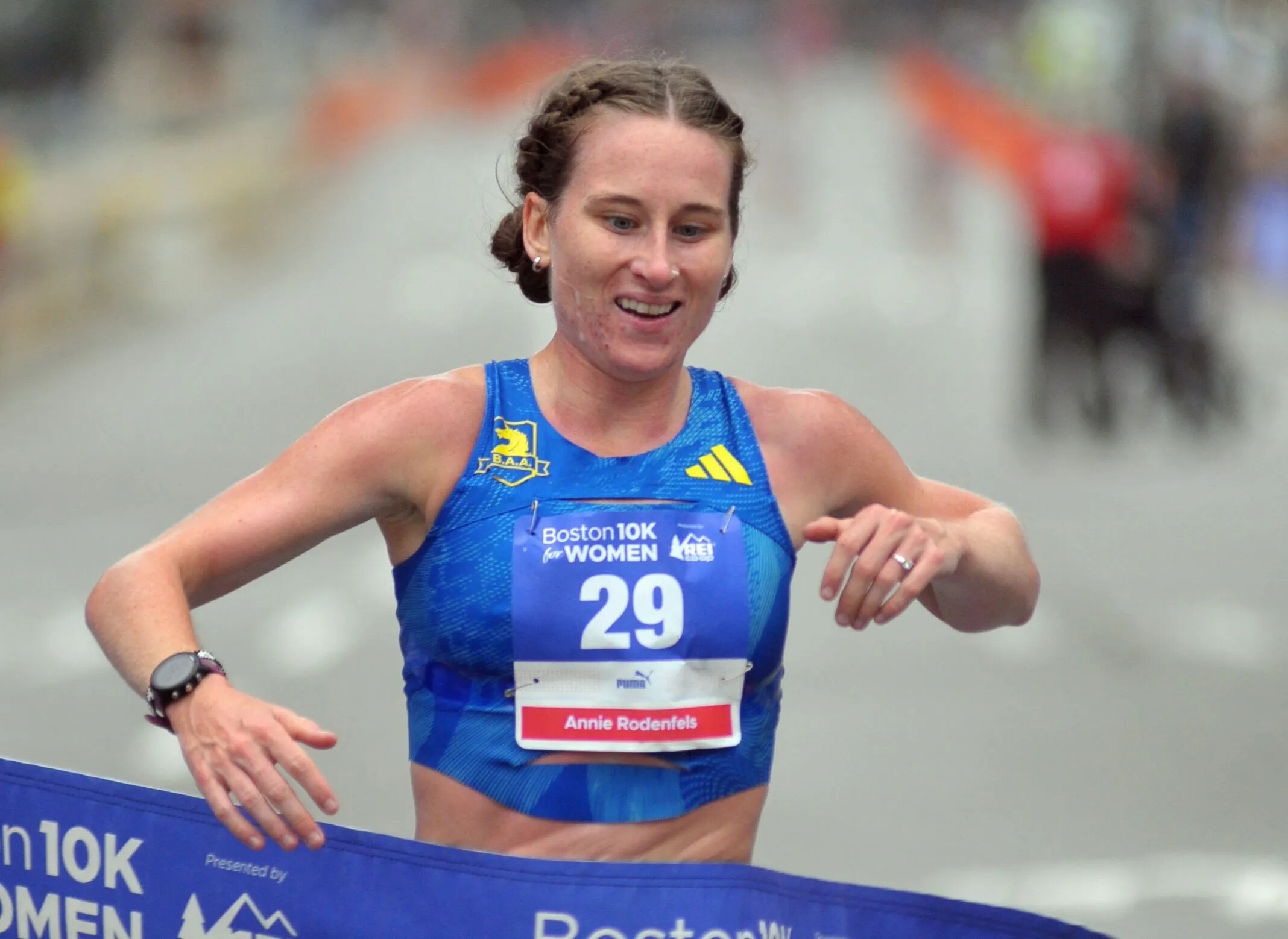
Rodenfels’ personal best in the steeplechase is 9:25.48, set last year. She won the steeplechase at the Drake Relays this year (9:31.03), was fourth at the Boston 5K in April, and clocked 15:03.97 indoors for 5000m in December 2023. Last fall she won the USATF 5K National Championship on the roads in New York City.
Hasz is coming off a 5000m lifetime best of 15:05.80 set May 17 in winning the Drake Relays 5000m. This year she’s also recorded personal bests in the road 5K (15:30), road 10K (32:03), and mile indoors (4:39.24). She earned a bronze medal at the 2023 USATF 5K National Championships, finishing third just behind Rodenfels and Olympian Rachel Smith.
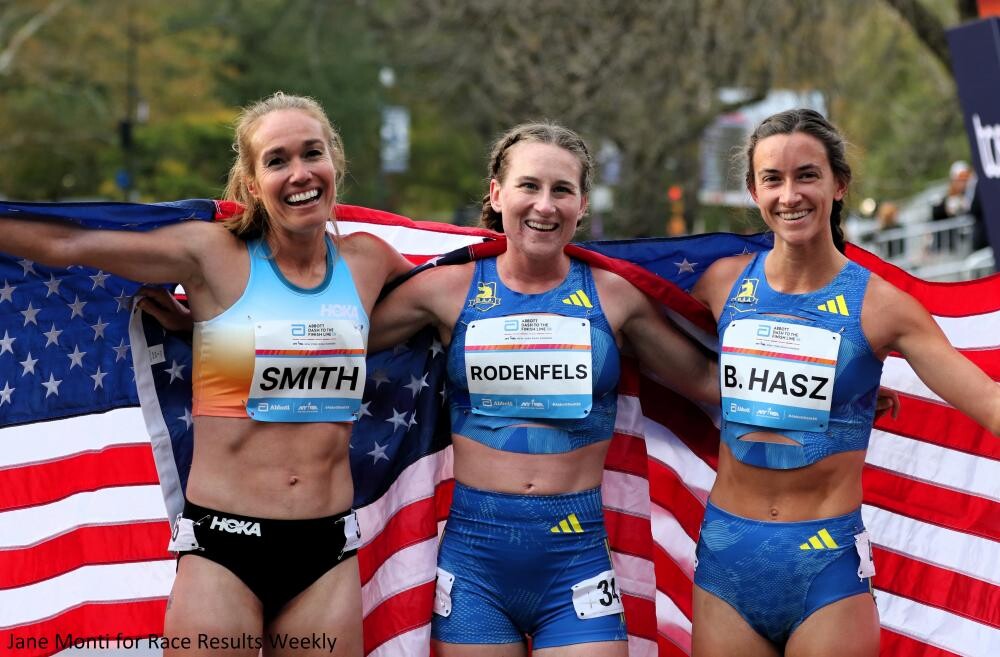
The B.A.A.’s High Performance team supports runners on their way towards making international teams, with the goal of competing at the highest level: the Olympic Games, World Athletics Championships, and Abbott World Marathon Majors. The B.A.A. is sponsored by adidas, which provides comprehensive support for the organization’s High Performance team, running club, and mass-participatory events.
B.A.A HIGH PERFORMANCE TEAM ROSTER:
Eric Hamer
Bethany Hasz
Megan Hasz
Josh Kalapos
Barry Keane
Matt McDonald
Annie Rodenfels
Abbey Wheeler
ABOUT THE BOSTON ATHLETIC ASSOCIATION (B.A.A.)
Established in 1887, the Boston Athletic Association is a non-profit organization with a mission of promoting a healthy lifestyle through sports, especially running. The B.A.A. manages the Boston Marathon, and supports comprehensive charity, youth, and year-round programming. The 129th Boston Marathon presented by Bank of America is scheduled to take place on Monday, April 21, 2025. The Boston Marathon is part of the Abbott World Marathon Majors, along with international marathons in Tokyo, London, Berlin, Chicago, and New York City. For more information on the B.A.A., please visit www.baa.org.
by B.A.A.
Login to leave a comment
U.S. Olympic Team Trials Track And Field
Eugene, Oregon has been awarded the 2024 U.S. Olympic Team Trials - Track & Field, USA Track & Field and the U.S. Olympic & Paralympic Committee announced today. From June 21 to 30, Hayward Field at the University of Oregon will be home to one of the biggest track and field competitions in the country, as the U.S. Olympic Team...
more...Registration dates for the 129th Boston Marathon announced
The Boston Athletic Association (B.A.A.) announced Monday that registration for the 129th Boston Marathon will take place over five days, from Sept. 9–13 at www.baa.org
The field size for the 129th Boston Marathon, to be run on Monday, April 21, 2025, will be 30,000 participants.
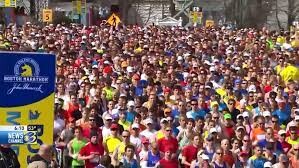
Qualifier registration will open on Sept. 9 at 10 a.m. and will close on Sept. 13, at 5 p.m. Any athlete who has achieved a currently valid Boston Marathon qualifying time may submit a registration application during registration week.
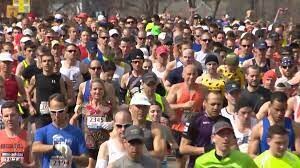
Applications will be accepted until 5 p.m. on Sept. 13. The 2025 Boston Marathon qualifying window began on Sept. 1, 2023, and will close at 5 p.m. on Friday, Sept. 13. If space is still available after the conclusion of registration week, registration will re-open on Sept. 16.
Qualifying standards across all divisions will remain the same as they were for the 2024 Boston Marathon.
by Andrew Clark
Login to leave a comment
Boston Marathon
Among the nation’s oldest athletic clubs, the B.A.A. was established in 1887, and, in 1896, more than half of the U.S. Olympic Team at the first modern games was composed of B.A.A. club members. The Olympic Games provided the inspiration for the first Boston Marathon, which culminated the B.A.A. Games on April 19, 1897. John J. McDermott emerged from a...
more...Controversy Arises Over Boston’s Moving 6-Hour Results Cutoff
For back of the packer, heartbreak is learning their finishes are not official, even though they have times.
Laura Caster wants to be clear: She knew what the Boston Marathon rule was about official finishers.
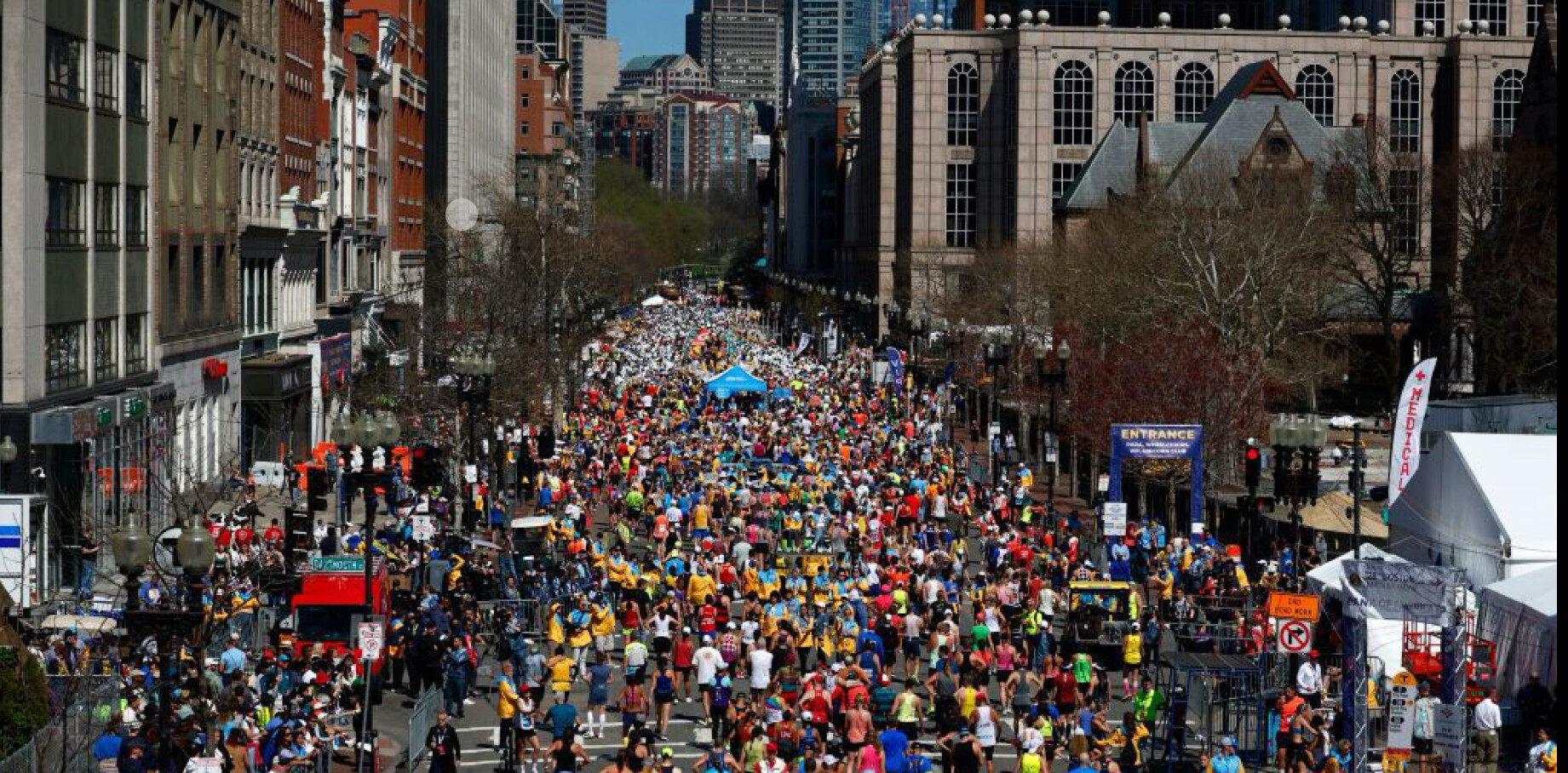
She was aware she had 6 hours from the time the last finisher crossed the starting line to finish the race in order to be considered official.
Her problem? She didn’t know what time the last finisher crossed the starting line.
Caster, 52, from Idlewild, California, was in corral 7 of Boston’s final wave, wave 4. And she crossed the starting line at 11:25 a.m. So for how many more minutes were runners crossing the starting line behind her? “Are they a minute behind me? Five minutes?” she wondered.
Every minute would count for her.
As it turned out, the final starter crossed the line at 11:28 a.m., so Caster needed to finish by 5:28 p.m. to be considered official.
Caster typically runs about 5:40 for a marathon. She finished Tokyo on March 3 in 5:41:50. Tokyo was her fifth of the World Marathon Majors six-star challenge. Boston was to be her sixth.
To gain entry to Boston, she had run for a charity, Team for Kids. She raised more than $5,000—part of the more than $40 million Boston Marathon organizers say the race raises through charity runners every year. And she treated Tokyo as a long run for Boston.
But the weather was warm on Marathon Monday, April 15. The slower runners start later in the day. And from early on, Caster knew she was in trouble. Her stomach was upset. She couldn’t take in all the fluids she needed. She was grabbing ice every time a spectator offered it.
Still, she plugged along, hitting every timing mat—even though the mats are rolled up along the course on pace with the 6-hour finish time. She passed halfway in 2:58:40.
At numerous points, Caster became aware of a vehicle trailing runners like her, who were going at about 6-hour pace. And she asked a volunteer at one timing mat, “How do I know if I’m going to be official?” Caster said he pointed at the car and told her she needed to finish in front of it.
“I was like, okay. That’s a definite answer,” she said. “I’m not going to look at my watch. I’m going to focus on not throwing up and being in front of that car.”
Caster was well ahead of the car on Commonwealth Avenue when she turned right onto Hereford Street. Just to be safe, as she approached the finish line on Boylston, Caster took a final look behind her. No sign of the official car. She crossed at 5:31 p.m., in 6:05:59. Volunteers put her in a wheelchair and sent her to the medical tent. From there, she was transported to a hospital with low blood potassium levels. She was released later that evening.
At the hospital, she looked at the results and realized she was not official. She had a gun time and a net time, but no place.
Caster was devastated. All the training, all the time and expense of pursuing the six stars, and she wasn’t really done. “I’ve worked for years, was so excited to have gotten to this point,” she said of her progress. “I was just leveled.”
Caster’s coach is Meb Keflezighi, an Olympic silver medalist and the 2014 Boston Marathon champion. On the phone with him, she broke down.
He told her, “I couldn’t be prouder of you. You missed it. We both know that you completed all six. You’re not official. But you showed grit, you showed determination.”
Allowing roads to reopen
Caster was not alone. Chris Lotsbom, a BAA spokesman, wrote in an email to Runner’s World that 497 people appeared to have crossed the Boston finish line this year after it officially closed. Volunteers staffed the area and handed out medals for approximately 4 hours, or until 9:45 p.m., longer than the race has ever continued to note times before.
Of those 497, many were within a few minutes or seconds of 5:28 p.m.
Cortney Blackburn, also in pursuit of her sixth star at Boston, missed by 37 seconds.
In an email exchange after the race with BAA officials, she asked how she was to know what the cutoff time was after she had started running. She, too, was told about the car, with flashing lights on the top, going at 6-hour pace and alerting runners if they were falling behind. Blackburn never saw the car—she finished well ahead of it—and she, too, recorded a split at every finish line mat along the way.
Lotsbom confirmed the car was there—a “road reopening vehicle”—he called it, meant to inform runners that roads were reopening and aid stations were shutting down.
“Without knowing specifics, I can’t comment on the individual instances referenced,” he wrote. “I can say that we are reviewing our processes and procedures in regards to final finishers for future Boston Marathons.”
Blackburn crossed the finish line and picked up two medals: the Boston Marathon medal and the World Marathon Majors six-star medal. Only later did she realize she wasn’t official in Boston’s results and therefore isn’t official in the WMM results, either. She has the medals, but no online record of her achievement.
But if the finish line remains open, and the timing continues, why not allow runners to be official? Or at least communicate a time—for example, 5:30 p.m.—that is consistent from year to year? Why use a moving target?
Boston’s strict cutoff is part of the agreement the race has with the cities and towns along the route. The 6-hour time limit is in place “to support the communities throughout which the race runs, to allow their road reopening program to commence as planned,” Lotsbom wrote.
“We understand we could do even more in communicating the closing time on race day and we are looking to enhance that messaging to all runners for next year to ensure everyone is clear [on] the time limit and time that the finish line will officially close on race day,” Lotsbom wrote.
A grace period
A few runners who are much slower than 6 hours get to start in earlier waves, which gives them more time to finish. For some runners close to the 5:28 p.m. cutoff, starting in an earlier corral of wave 4 would have meant the difference between an official and unofficial finish.
In 2015, some members of Boston’s Quarter Century Club, people with 25 or more consecutive Boston finishes, were concerned about the 6-hour limit, which was imposed for the 2016 race. So race officials moved them to Wave 2. Problem solved.
For others, the problem remains. And the moving cutoff appears to affect more women than men, older runners more than younger ones, and many runners of color.
Hector Espinal, like Blackburn, only discovered well after the race that he wasn’t official. He wrote on Instagram on April 18, “Despite crossing the finish line, finishing the race and receiving my medals, this morning I was informed that I did not complete the Boston Marathon in the time allotted to be considered an official finisher and @wmmajors 6 Star Marathoner.”
The post has more than 10,000 likes, and 1,000 comments, the majority of them supportive. Elite runner Mary Ngugi of Kenya, who was sixth in 2:24:24, wrote, “No no, you are a 6 time world major marathoner and a hero.”
Boston is a race that has at times struggled with its image, which critics call elitist. Spectators last year accused the race of over-policing enthusiastic fans, most of whom were people of color, at a mile 21 cheer zone, which prompted a lawsuit. Runner’s World reported in 2022 about the B.A.A.’s obscure, largely white, invitation-only membership group, which is involved with governance of the organization.
To many observers in the running community, setting a fixed finish time would be an easy way to help the race’s image as concerned about runners of varying abilities, not just the front of the pack.
Other races in the World Marathon Majors are much more lax about their finishing times, with the exception of Tokyo, which has nine cutoff points along the route, and runners are stopped if they lag behind. There are no questions, however, about where they stand.
But finishers of London, New York, and Chicago appear in results with times hours slower than the races’ published cutoff times. Berlin, which has a posted cutoff time of 6:15, stays open for an extra 15 to 20 minutes before the Brandenburg Gate closes, according to previous finishers.
Blackburn won’t be back to Boston anytime soon. “I don’t know honestly if I would do it again without major changes to actually be inclusive of non-qualifying athletes,” she wrote in a message to Runner’s World. “I think [B.A.A. officials] are putting out ‘we are trying’ vibes without actually trying.”
Caster, on the other hand, plans to try again. The uncertainty while she was on the course—and the wrong information she was given about the official vehicle—were what upset her. She doesn’t know if it would have made a difference for her had she been aware of the time she had to beat.
“But I would have liked to the opportunity to have tried,” she said. “That’s the part that I’m sore about.”
Login to leave a comment
How to Watch the 2024 Boston Marathon
The world’s oldest annual marathon is back for its 128th edition.
On Monday, April 15, the World Marathon Majors will return stateside to the 2024 Boston Marathon. In its 128th year, the world’s oldest annual marathon features must-see storylines, including the return of defending women’s champion Hellen Obiri and two-time men’s winner Evans Chebet.
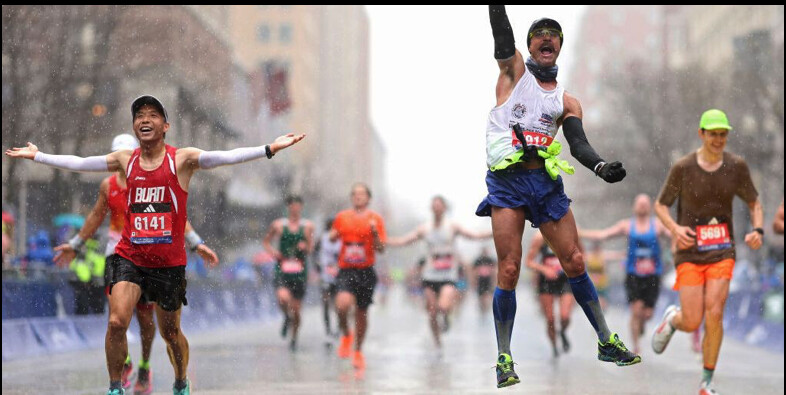
The point-to-point race is scheduled to begin in Hopkinton, Massachusetts, and ends in the Back Bay neighborhood of Boston. The weather forecast for Patriots’ Day is showing slightly warmer temperatures than average in the city. The conditions could make race day more challenging on a course famous for its hills (we ranked Boston as the second-toughest of the six World Marathon Majors).
Here’s everything you need to know about this year’s race.
How to watch the 2024 Boston Marathon
ESPN2 will broadcast the Boston Marathon from 8:30 a.m. ET to 12:30 p.m. ET. You can also live stream the race with an ESPN+ subscription, which costs $10.99 a month.
For those tuning in from Boston, live coverage will be provided by WCVB beginning at 4:00 a.m. ET and lasting throughout the day.
Boston Marathon start times (ET)
Men’s wheelchair division—9:02 a.m.
Women’s wheelchair division—9:05 a.m.
Men’s elite race—9:37 a.m.
Women’s elite race—9:47 a.m.
Para athletics division—9:50 a.m.
First wave—10 a.m.
Second wave—10:25 a.m.
Third wave—10:50 a.m.
Fourth wave—11:15 a.m.
Race preview
This year’s elite race comes with added high stakes for many international athletes. Countries that don’t host Olympic Trials for the marathon are currently in the national team selection process. A standout performance in Boston could be a game-changer for athletes looking to represent their country in Paris this summer.
Women’s race
On the women’s side, Boston podium contenders Hellen Obiri and Sharon Lokedi were included in the shortlist of marathoners under national team consideration by Athletics Kenya.
Obiri, 34, is set to return to Boston after a stellar 2023 campaign. Last year, the On Athletics Club runner won the Boston Marathon and the New York City Marathon. A former track standout with two world championship titles, Obiri aims to continue her winning streak on Monday.
Lokedi, 30, is looking to top the podium at a key moment in her career. The University of Kansas graduate is set to run her first 26.2 since finishing third at the New York City Marathon last fall—a race she won in her marathon debut two years ago.
Kenya will also be represented by 2022 World Championship silver medalist Judith Korir and two-time Boston Marathon champion Edna Kiplagat, among other standouts.
The Ethiopian contingent should be strong as well. Ababel Yeshaneh finished second at Boston in 2022 and fourth in 2023. Plus, 2:17 marathoner Tadu Teshome will be one to watch in her Boston debut.
In the weeks after the U.S. Olympic Marathon Trials in February, more Americans were added to the field. Sara Hall, 40, enters the race after finishing fifth in a new American masters record (2:26:06) at the Trials in Orlando, Florida. 2015 Boston champion Caroline Rotich, 39, joins the field after placing sixth at the Trials. Jenny Simpson, 37, also entered after dropping out in her marathon debut in Orlando. And keep an eye out for 2018 Boston Marathon champion Des Linden, 40, and Emma Bates, 31, who finished fifth in Boston last year.
Men’s race
Evans Chebet is looking for a hat trick. Last year, the Kenyan became the first athlete to repeat as men’s champion since Robert Kipkoech Cheruiyot won three in a row between 2006 and 2008. In the process, the 35-year-old took down two-time Olympic champion Eliud Kipchoge in Boston.
His biggest challenger will likely be Sisay Lemma of Ethiopia, who is returning after a breakthrough season in 2023. In December, Lemma, 33, won the Valencia Marathon in 2:01:48, making him the fourth-fastest marathoner in history. Lemma also won the Runkara International Half Marathon in 1:01:09, a new personal best.
Gabriel Geay, last year’s Boston runner-up, is returning to the field on Monday. The 27-year-old from Tanzania is coming off a fifth-place finish at the Valencia Marathon.
Other runners to watch include 2023 New York City runner-up Albert Korir; Shura Kitata, who placed third in New York last year; and Zouhair Talbi, who finished fifth in Boston last year.
The American men’s field also grew after the Olympic Trials with the addition of Elkanah Kibet and Sam Chelanga. Kibet finished fourth in Orlando in a 2:10:02 personal best, and after dropping out after mile 18 of the Trials, Chelanga will aim for redemption in Boston. They join 50K world record-holder CJ Albertson and the BAA’s Matt McDonald in the elite race.
by Runner’s World
Login to leave a comment
Chebet, Lemma and Geay to clash at Boston Marathon
Evans Chebet and Gabriel Geay, the top two finishers at last year’s BAA Boston Marathon, will return to the World Athletics Platinum Label road race on April 15, to take on recent Valencia Marathon winner Sisay Lemma.
Chebet successfully defended his Boston title last year in 2:05:54. In fact, the Kenyan has won six of his past seven marathons.
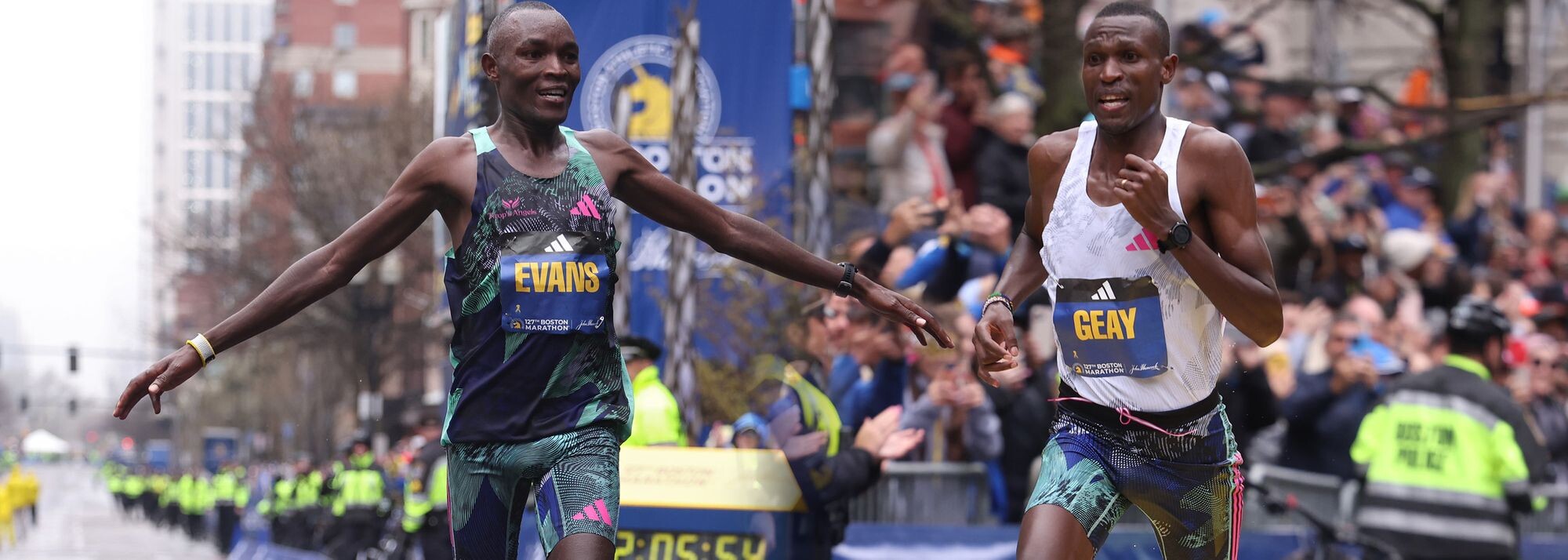
Lemma won in Valencia last month in 2:01:48, making him the fourth-fastest man in history. The Ethiopian, who also won the 2021 London Marathon, is the fastest man in this year’s Boston Marathon field, which features 20 men with sub-2:10 PBs.
Tanzania’s Geay, runner-up in Boston last year, has an identical PB to Chebet – 2:03:00 – and, like Chebet, it was also set in Valencia.
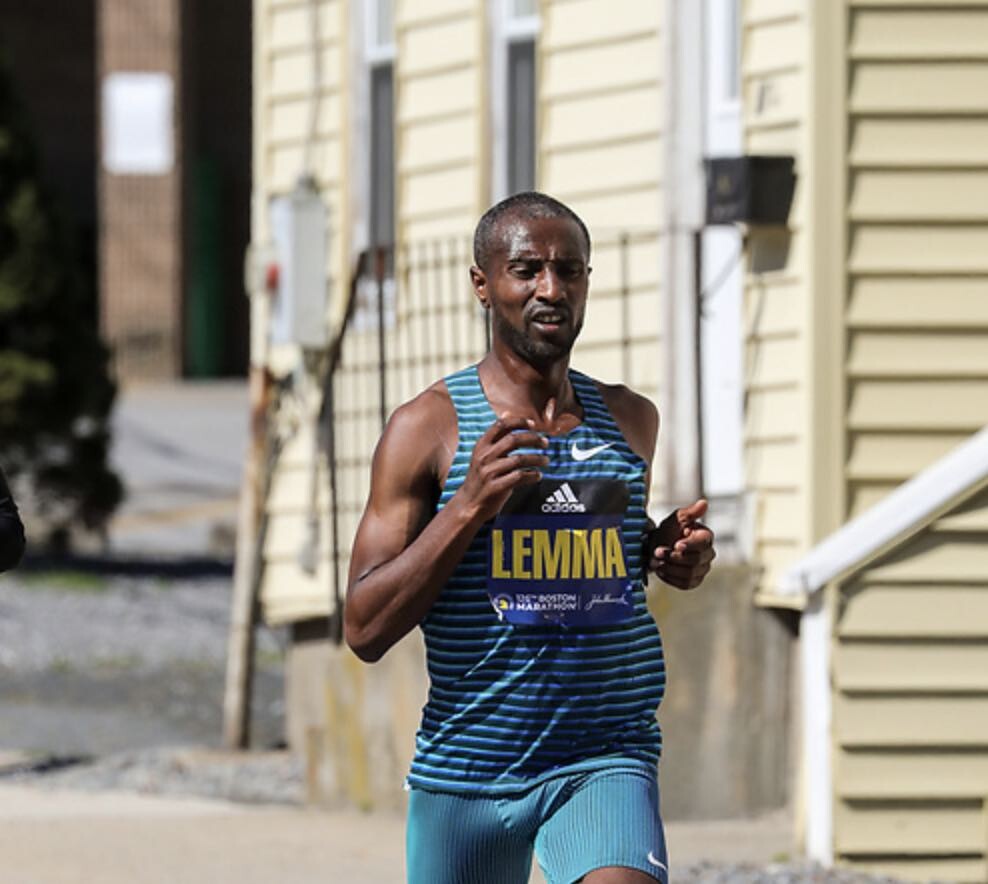
Other men in the field with sub-2:05 PBs are Kenya’s Joshua Belet (2:04:18), Ronald Korir (2:04:22), and Cyprian Kotut (2:04:34), as well as Ethiopians Haftu Teklu (2:04:43) and London and New York City runner-up Shura Kitata (2:04:49).
New York Marathon champion Albert Korir, former Japanese record-holder Suguru Osako, and Norwegian record-holder Sondre Moen are also in the field, as are Morocco’s Zouhair Talbi, winner of last week’s Houston Marathon in a course record 2:06:39, and multiple NCAA champion Edward Cheserek.
Elite field
Sisay Lemma (ETH) 2:01:48
Evans Chebet (KEN) 2:03:00
Gabriel Geay (TAN) 2:03:00
Joshua Belet (KEN) 2:04:18
Ronald Korir (KEN) 2:04:22
Cyprian Kotut (KEN) 2:04:34
Haftu Teklu (ETH) 2:04:43
Shura Kitata (ETH) 2:04:49
John Korir (KEN) 2:05:01
Mohamed Esa (ETH) 2:05:05
Suguru Osako (JPN) 2:05:29
Sondre Moen (NOR) 2:05:48
Filmon Ande (ERI) 2:06:38
Zouhair Talbi (MAR) 2:06:39
Isaac Mpofu (ZIM) 2:06:48
Albert Korir (KEN) 2:06:57
Kento Otsu (JPN) 2:08:15
Ryoma Takeuchi (JPN) 2:08:40
Segundo Jami (ECU) 2:09:05
Tsegay Tuemay (ERI) 2:09:07
Matt McDonald (USA) 2:09:49
David Nilsson (SWE) 2:10:09
Tristan Woodfine (CAN) 2:10:39
CJ Albertson (USA) 2:10:52
Chris Thompson (GBR) 2:10:52
Edward Cheserek (KEN) 2:11:07
Yemane Haileselassie (ERI) debut
by World Athletics
Login to leave a comment
Boston Marathon
Among the nation’s oldest athletic clubs, the B.A.A. was established in 1887, and, in 1896, more than half of the U.S. Olympic Team at the first modern games was composed of B.A.A. club members. The Olympic Games provided the inspiration for the first Boston Marathon, which culminated the B.A.A. Games on April 19, 1897. John J. McDermott emerged from a...
more...Toronto runner completes 242 marathon distance runs across 70 countries in one year
On Thursday, Toronto-native Ben Pobjoy announced that he had successfully concluded the Marathon Earth Challenge, a solo journey around the world that was an attempt to surpass the Guinness World Record of most marathons in one year (Pobjoy ran 242 42.2 kilometer runs in 365 days) but also to expand the challenge by navigating these runs across nearly 70 countries.
“This past year has been mentally and physically taxing, but it’s an incredible feeling to have achieved this momentous goal of mine and meet incredible people along the way,” said Pobjoy. “From trekking in Ulaanbaatar’s chilly -20 degree temperatures with makeshift winter gear to enduring extreme levels of humidity in Malta, my year-long, earth-spanning adventure has been an unforgettable experience.”

“The purpose of Marathon Earth Challenge was never to race others, but rather, transform my physical exercise into a creative endeavor and observe our world up-close,” said Pobjoy. He explains on his website that each marathon was a method to nurture curiosities and document findings through written essays in newsletters, social media updates and photographic books for others to enjoy.
Pobjoy initiated his self-funded challenge on Jan. 1, 2023, equipped with a backpack filled with pens and cameras for documentation. Over 365 days, he completed 242 freestyle 42.2 km runs, covering an impressive 11,465 kilometers by foot. The diverse geographical locations included South America, the Caribbean, North America, Europe, Africa, the Middle East and Asia.
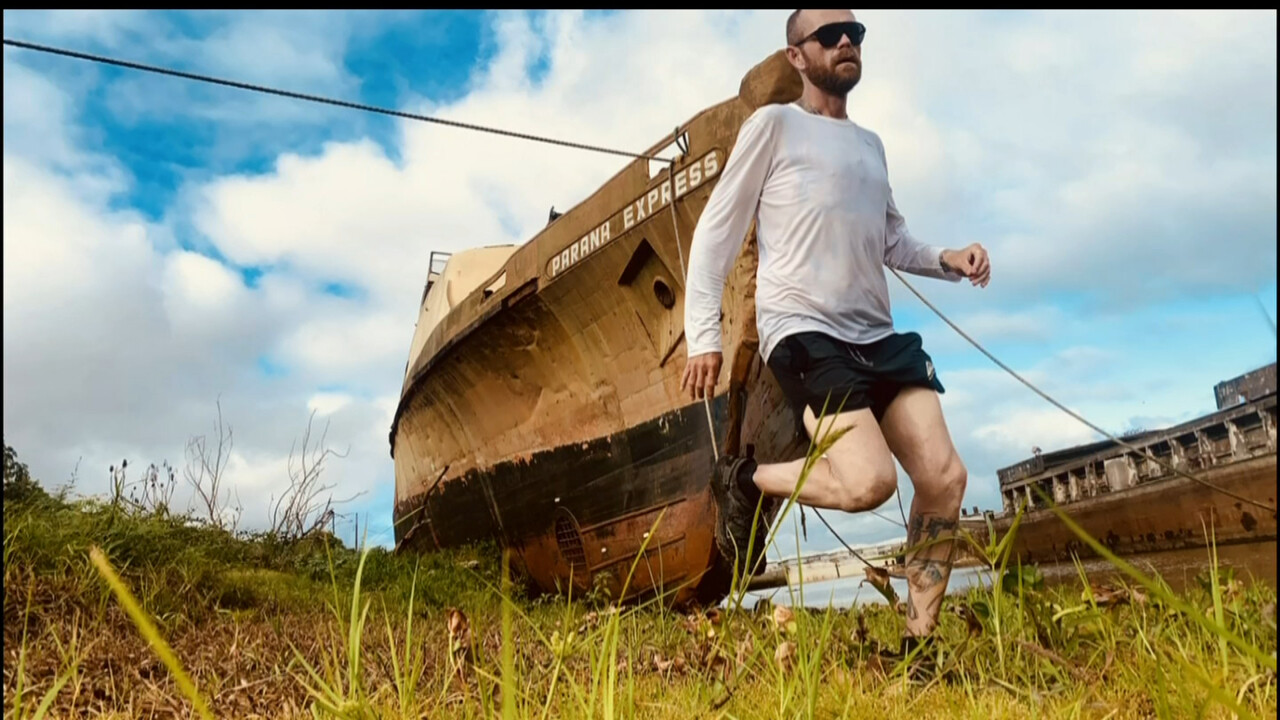
“Was regularly tested on earth’s streets yet somehow lived to tell,” Pobjoy shared on Instagram. “This adventure taught me how tenacious we humans are, and how we’re more alike than we are dissimilar. Furthermore, I observed that when we choose division over commonality, we lose our humanity. ”
Pobjoy’s running journey began in 2015, a transformative period in his life when he battled severe health issues while being morbidly obese. Starting with outdoor walks, he shed 100 pounds in eight months, and found that this form of exercise not only improved his health but also allowed him to appreciate the “exquisite beauty of Mother Earth.”
“While Marathon Earth Challenge is now complete, my awe for the physical world and my growing appetite to explore it further remain. I am excited to see what my next adventure holds,” said Pobjoy.
American runner Larry Macon currently holds the title of the official Guinness record for most marathons completed in one year (by a man) with 239 marathons completed in 2012, which were done at 239 marathon races.
by Keeley Milne
Login to leave a comment
Hellen Obiri dominates Falmouth Road Race; Wesley Kiptoo equals 19-year-old men’s course record
Hellen Obiri is making a habit of winning in Massachusetts this year.
After kicking away from the field to win April’s Boston Marathon and dominated the BAA 10K in June, Obiri made it a triple crown with a win at Sunday’s Falmouth Road Race. After leading the pack through the 5K mark, the two-time Olympic silver medalist built up a 25-second lead through 10K and cruised to the win on the 7-mile course in 35 minutes 13 seconds.
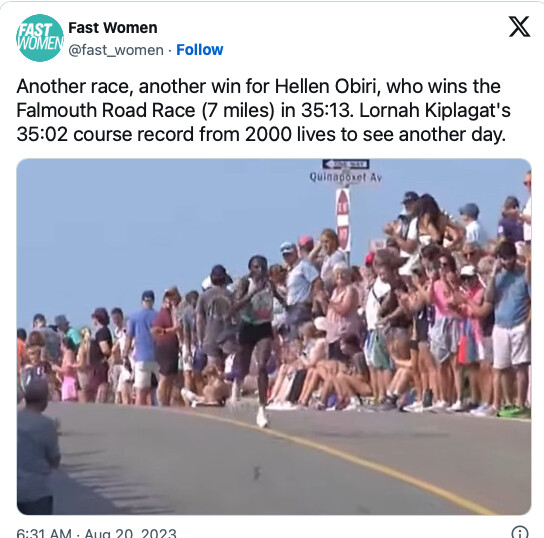
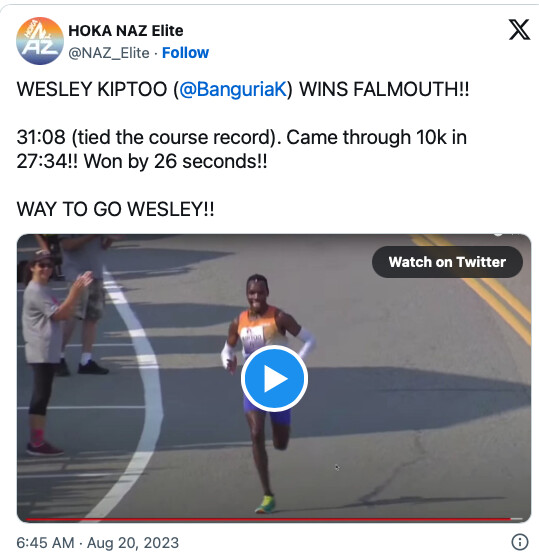
“The uphill was terrible for me,” Obiri said. “But I knew after that it was downhill and it was an incredible finish.”Emily Sisson, the American record holder in the marathon, was the runner-up, 19 seconds behind Obiri.
In the men’s race, Kenya’s Wesley Kiptoo made his move much earlier, setting a strong pace from the gun. Kiptoo was already 12 seconds clear of the field at 5K and 20 seconds up the road at 10K, breaking the tape in 31:08, which matched the course record set by Gilbert Okari in 2004.John Korir and Edwin Kurgat made it a Kenyan sweep on the podium. Former BYU star Clayton Young was the top American, finishing fifth.
Daniel Romanchuk, of Maryland, captured his fifth Falmouth victory in the men’s wheelchair division, taking 25 seconds off his own course record to finish in 21:13.
Susannah Scaroni broke her own women’s wheelchair course record, going practically unchallenged to finish in 24:38, 52 seconds faster than her record-setting time last year.
“I always like pushing things farther and farther,” she said. “I don’t think I have ever done a more beautiful course.”
Login to leave a comment
Registration for 128th Boston Marathon presented by Bank of America Begins September 11
With nearly one month to go until registration opens for the 128th Boston Marathon presented by Bank of America, the Boston Athletic Association reminds athletes of what to expect during registration week, September 11-15. The 128th Boston Marathon will feature a field size of 30,000 athletes and will mark the first Boston Marathon with Bank of America as presenting partner.
REGISTRATION TIMETABLE
Qualifier registration will open on Monday, September 11 at 10:00 a.m. ET and will close on Friday, September 15, 2023, at 5:00 p.m. ET. The B.A.A. will use the same registration process for qualified runners as it used for the 2021, 2022, and 2023 races, allowing any athlete who has achieved a currently valid Boston Marathon qualifying time to submit a registration application during Registration Week, September 11–15.
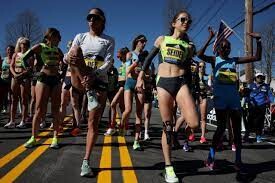
Registration will be held within the B.A.A.’s online platform Athletes' Village. Registration is not on a first-come, first-served basis – all applications will be accepted until 5:00 p.m. ET on Friday, September 15 and treated in the same manor regardless of when they are submitted during the application period.
PRE-VERIFY YOUR QUALIFYING TIME
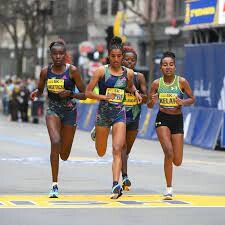
To enhance the Boston Marathon registration experience, the B.A.A. is offering a special pre-verification period for 128th Boston Marathon qualifying times. Athletes who plan to register for the 128th Boston Marathon between September 11-15 may take part in this pre-verification, helping to expedite their registration application in September.
Please note that verifying a qualifying time during the pre-verification period does not enter you in the Boston Marathon. Rather, it simply allows us to confirm and verify one’s qualifying time early so that when applying between September 11-15, the athlete’s qualifying information is already in our system.
Pre-verification submission is open within Athletes’ Village through August 23. Additional information is available here.
QUALIFYING WINDOW & STANDARDS
The 2024 Boston Marathon qualifying window began on September 1, 2022, and will close at 5:00 p.m. ET on Friday, September 15, 2023. If space is still available after the conclusion of Registration Week, registration will re-open on Monday, September 17.
Qualifying standards for the 128th Boston Marathon can be found here. Achieving a Boston Marathon qualifying standard does not guarantee acceptance into the event. Those who are fastest among the pool of applicants in their age and gender group will be accepted.
ENTRY FEE
The entry fee for accepted qualifiers will be $230 USD for United States residents and $235 USD for international residents. Participants will have the opportunity to purchase registration insurance at the point of registration. Entry fees will only be processed once an athlete is accepted into the Boston Marathon.
129TH BOSTON MARATHON
The qualifying window for the 129th Boston Marathon, scheduled to take place on April 21, 2025, will begin on September 1, 2023. Registration details for that race will be announced following the 2024 Boston Marathon.
ABOUT THE BOSTON ATHLETIC ASSOCIATION (B.A.A.)
Established in 1887, the Boston Athletic Association is a non-profit organization with a mission of promoting a healthy lifestyle through sports, especially running. The B.A.A. manages the Boston Marathon, and supports comprehensive charity, youth, and year-round programming. The Boston Marathon is part of the Abbott World Marathon Majors, along with international marathons in Tokyo, London, Berlin, Chicago, and New York City. Starting in 2024, the Boston Marathon’s presenting partner will be Bank of America. The 128th Boston Marathon is scheduled to take place on Monday, April 15, 2024. For more information on the B.A.A., please visit www.baa.org.
Login to leave a comment
Boston Marathon
Among the nation’s oldest athletic clubs, the B.A.A. was established in 1887, and, in 1896, more than half of the U.S. Olympic Team at the first modern games was composed of B.A.A. club members. The Olympic Games provided the inspiration for the first Boston Marathon, which culminated the B.A.A. Games on April 19, 1897. John J. McDermott emerged from a...
more...ATHLETES FROM 49 STATES AND 102 COUNTRIES PARTICIPATED IN THE BAA 10k RACE THROUGH BACK BAY
The summer road racing season kicked off with sunshine and spectacular finishes, as 7,867 athletes took part in today’s 2023 B.A.A. 10K presented by Brigham and Women’s Hospital. Kenya’s Hellen Obiri, returning to the city two months after winning the 127th Boston Marathon, took home the win in the women’s open division, while Tanzania’s Gabriel Geay earned his second B.A.A. 10K win in five years. Obiri’s finish time for the out-and-back course was 31:21, with Geay clocking in a new personal best 27:49.
In the wheelchair division, Hermin Garic of New York successfully retained his men’s title – crossing in 22:44 just inches ahead of James Senbeta—while Yen Hoang of Illinois took home top honors in the women’s wheelchair division in 25:25.
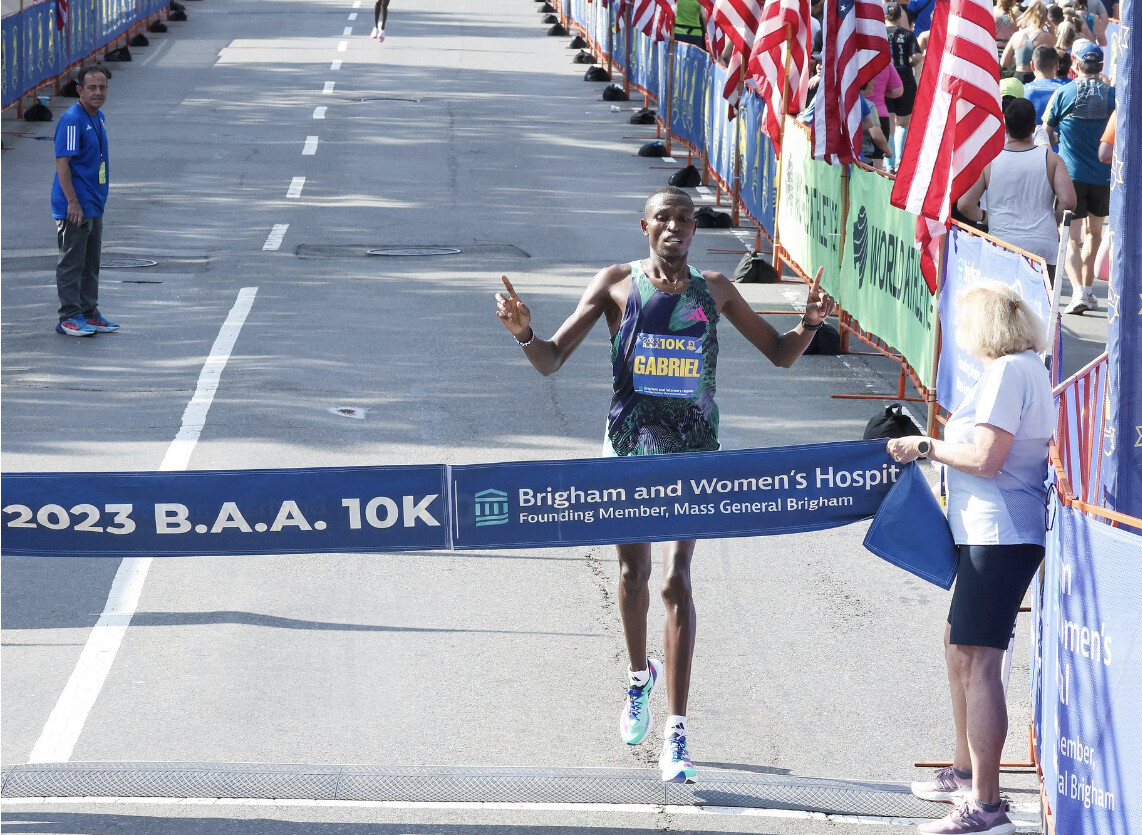
From the outset Obiri asserted her frontrunning prowess, building a 13-second lead by 5K. It was then that the hot and humid conditions began to impact the double Olympic medalist.
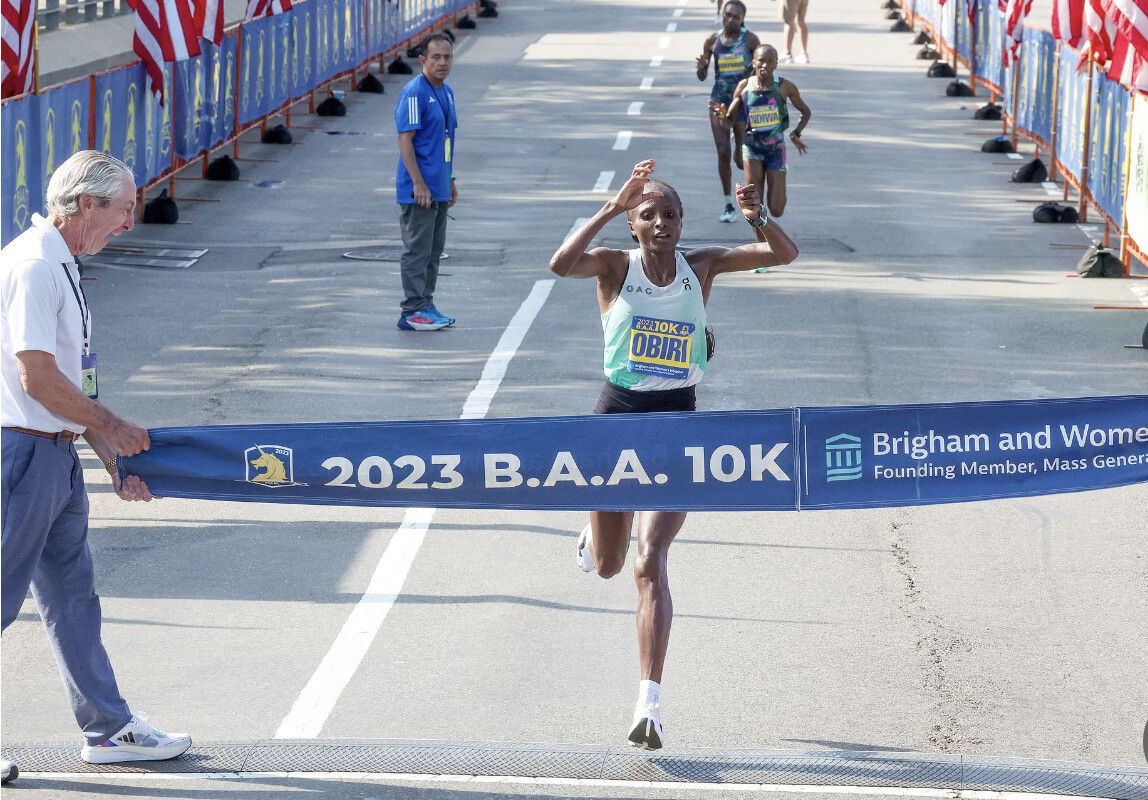
“At 8K my body was so tired. Maybe I went out too hard from the start,” admitted Obiri. “The ladies coming from behind were so strong. But I say, I’m also the best. I can try to win.”
That she did, crossing in 31:21. Stacy Ndiwa of Kenya was second in 31:25, followed by compatriot Sheila Chepkirui (31:27), American Emily Sisson (31:35), and Kenyan Mary Ngugi (31:45).
“I’m so happy about the result,” said Obiri between smiles. “I wanted to run in the 30s [minutes] but unfortunately the weather was too hot, it was humid. But I am so happy for the win today.” The energetic support from the Boston running community also spurred Obiri on: “The crowd was so friendly, all the way they say Go Hellen! You get that energy; you want to race hard so that don’t let your fans down.”
A pack of nine men hit the halfway mark in 14:11, though Geay soon began pressing the accelerator. He’d hit 8K with a five second lead (22:16) before extending the margin of victory to 11 seconds at the finish. Kenya’s Edwin Kurgat (28:01) was second, with Kenyan Alex Masai rounding out the podium in third (28:09). American Diego Estrada was fifth in 28:19.
“I tried to push at the beginning, and from 6K or 5K I tried again to push it. There were three guys at my back but in a few meters they dropped off. I was intending to win,” said Geay, who is coming off a runner-up finish at the Boston Marathon in April. “The time was fast. I was hoping to run 27; I’m happy because of the weather.”
Login to leave a comment
B.A.A. 10K
The 6.2-mile course is a scenic tour through Boston's Back Bay. Notable neighborhoods and attractions include the legendary Bull and Finch Pub, after which the television series "Cheers" was developed, the campus of Boston University, and trendy Kenmore Square. ...
more...World class racing returns to Boston on Sunday with the BAA 10K
The BAA 10K is this Sunday in Boston. The elites—as well as a mass field of nearly 10,000 runners—will race through the streets of the Back Bay neighborhood.
Emily Sisson has her eyes on another American record; she’s been on a tear the past year on the roads. In October, at the 2022 Chicago Marathon, she took 43 seconds off Keira D’Amato’s American record, running 2:18:29 for second place. Three months later, at the Houston Half Marathon, she broke her own American record, crossing the line in 1:06:52. She’s setting her sights on Shalane Flanagan’s 10K record of 30:52, which Flanagan set at the 2016 edition of the BAA 10K.
Also toeing the line is Molly Seidel, who’s been running some shorter races to prepare for a fall marathon. In February, she finished eighth at the U.S. Half Marathon Championships in 1:13:08.
A slew of former Boston Marathon champions are also competing on Sunday. Hellen Obiri, who won April’s race, will line up next to two-time champion Edna Kiplagat and 2015 winner Caroline Rotich. The course record of 30:36 could be up for grabs.
The men’s field is highlighted by 2021 Boston Marathon champion Benson Kipruto, who won the BAA 10K in 2018. American Leonard Korir returns as the race’s reigning champion, taking last year’s win in 28:00—12 seconds off the American record of 27:48 that has stood since 1985. Gabriel Geay, Geoffrey Koech, and Tsegay Kidanu should also be in contention.
Those in the Boston area can catch coverage of the race on WCVB. The BAA Racing App will also provide live updates and results, but there is no stream of the race. The elites are scheduled to start at 8 a.m. ET.
by Runner's World
Login to leave a comment
B.A.A. 10K
The 6.2-mile course is a scenic tour through Boston's Back Bay. Notable neighborhoods and attractions include the legendary Bull and Finch Pub, after which the television series "Cheers" was developed, the campus of Boston University, and trendy Kenmore Square. ...
more...Kara Goucher’s Book Offers Rare Insight Into Elite Athlete Contracts
Confidentiality clauses usually stop runners from talking about their endorsement deals.Kara Goucher’s memoir about her career in professional running, The Longest Race, alleges shocking behavior by her longtime coach, Alberto Salazar, and how she overcame it. But a subplot throughout the book is how much money she was earning in the sport along the way.
Goucher is open about her contract with Nike and appearance fees at races, including the New York City Marathon, the Boston Marathon, and the Great North Run in the U.K. (Nike did not respond to an email from Runner’s World seeking comment.) Even though the deals are from 10 to 20 years ago, they provide an interesting look at the business side of professional running. It’s a rare peek, too, because sponsor contracts are bound by confidentiality clauses and, in many cases, those clauses extend beyond the term of the contract.
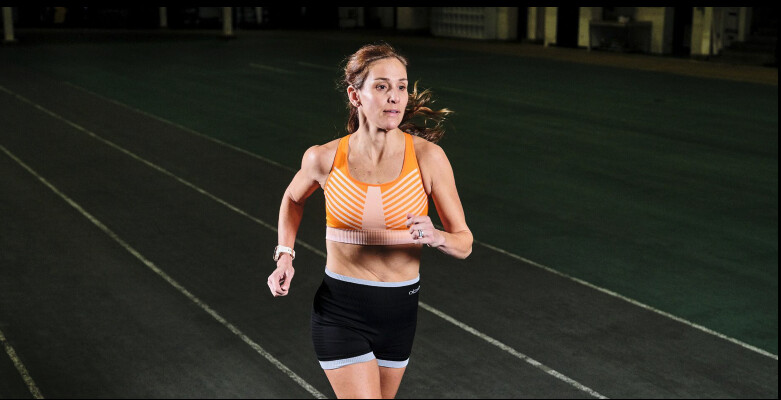
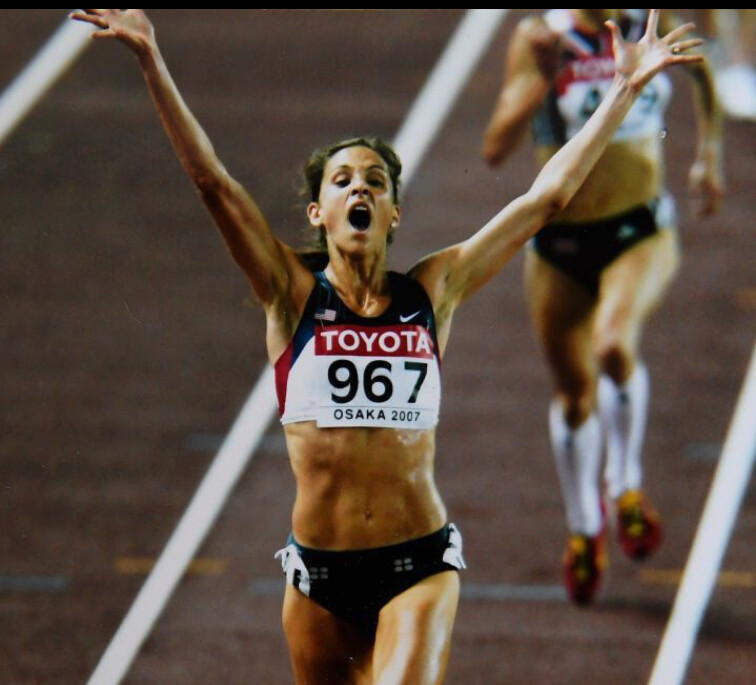
Goucher’s did, but she decided to reveal the information anyway—to be helpful to other athletes. “I just felt like it was very important to have those numbers in there,” she said in a phone call with Runner’s World. “How do you know what to ask for if you have no idea what anyone else is getting paid?” Here’s what we learned about Goucher’s pay and that of her husband, Adam Goucher, from the book:
In 2000, Adam Goucher was making a base payment of $50,000 from Fila, his first sponsor. In his first year, he ran so well that he earned $185,000 with bonuses. Goucher writes that the pay was a “welcome windfall that helped him pay off student loans.”
In 2001, Kara Goucher signed a four-year deal with Nike for $35,000 per year. This was her first professional contract after she graduated from the University of Colorado.
In 2003, Adam Goucher signed with Nike with a base pay of $90,000 per year. The Longest Race: Inside the Secret World of Abuse, Doping, and Deception on Nike's Elite Running TeamIn the fall of 2007, she ran the Great North Run, a half marathon in Newcastle, England. The race director paid her an appearance fee of $13,000 and made a deal with Goucher’s agent at the time, Peter Stubbs, to pay her $30,000 if she won. The money was “not far off the annual salary I had lived on for years,” Goucher wrote. She won the race.
In February 2008, Goucher signed a new Nike deal that paid her $325,000 per year for four years, with an option for Nike to extend to a fifth year. The contract included performance bonuses ranging from $10,000 to $500,000 for an Olympic gold medal. There were also reductions, which could cut her pay. She had to race 10 USATF-sanctioned events per year, and if she ended the year ranked lower than third in her event in the U.S. or out of the top 10 in the world, Nike could dock her pay.
Goucher told Runner’s World that, for her second shoe deal, she asked her agent to accept a commission of 8 percent for each year of the deal. The industry standard is 15 percent. He agreed. She continued to pay him 15 percent on her appearance fees and prize money. She also made sure that she was paid directly by Nike and then she paid her agent. (In most cases these days, the shoe company pays the agent, who then pays the athletes, because it’s less paperwork for the shoe company, having to deal with individual athletes.)
In November 2008, Goucher made her marathon debut at the New York City Marathon. She earned an appearance fee of $175,000. Nike also paid her bonuses paid on based on her place and time, but Goucher didn’t disclose those. She wrote, “One good marathon and I could easily walk away with more than my yearly contract salary.” In April 2009, Goucher ran the Boston Marathon, which, at the time, traditionally paid less in appearance fees to athletes than New York. (It is also the only major marathon in the U.S. in the spring.) Her appearance fee was $80,000, but when she learned another American, a male runner, was making $85,000, she asked the BAA to match that. Race organizers agreed.
In early 2010, Goucher learned she was pregnant with her son, Colt. Salazar confirmed with Nike executive John Capriotti on Goucher’s behalf that Goucher wouldn’t suffer a reduction in her pay as long as she remained “relevant,” she wrote. Her first of four quarterly payments from Nike arrived on time in January, as did her second in April. But in July, her accountant told her that her payment hadn’t arrived. Nor did her October payment.
This set off a lengthy battle between Goucher and Nike over money during her pregnancy. Ultimately, Nike docked her pay for six months and extended her contract to the end of 2013.
At the end of 2010, Adam Goucher’s contract with Nike ended.
In 2011, USA Track & Field (USATF) said it would be dropping the Gouchers’ health insurance, because her marathon ranking had dropped while she was pregnant. She appealed the decision, and the U.S. Olympic Committee stepped in and reinstated the health insurance. This rule has subsequently been changed—pregnant athletes can keep their health insurance—and today’s runners laud that change.
At the end of September 2011, Goucher left the Nike Oregon Project. She remained under contract with Nike and stayed in Portland, Oregon. Jerry Schumacher coached her, and she trained with Shalane Flanagan.
At the end of 2013, Goucher scrambled to race 10 times so Nike wouldn’t suspend her pay again. She ran a turkey trot to fulfill her obligations (and won a pie). Her contract with Nike ended at the end of the year, and she and Adam sold their house in Portland and moved to Boulder, Colorado.
In 2014, Goucher entertained contract offers from other companies, although Nike still had the option to match any offers. Saucony offered her $1 million total over 5 years, with bonuses and no reductions. Ultimately, she chose to sign with women’s clothing brand Oiselle for $20,000 per year, and a 2 percent stake in the company. She signed a separate deal for footwear with Skechers.
Today, Goucher encourages athletes to speak up and not be afraid to rock the boat, especially those who are lower-paid. She faults the secrecy around pay in track and field with creating difficult situations. It’s required to agree to the confidentiality clause in contracts in order to secure the deal, she said, and in some cases, that gives cover to companies that underpay talented athletes. The confidentiality clause “only harms the athlete and protects the brand,” she said. “Because then they can continue to pay you the least amount possible.”
Agent Hawi Keflezighi, who has never worked with Goucher, agreed with her assessment. “I think there are a lot of very bad contracts out there that footwear brands would probably be embarrassed to admit to,” he said. “There are some really bad deals out there that would probably create a backlash.”
by Runner’s World
Login to leave a comment
Kiptoo, Masai seeking big performances at Bolder Boulder
It's time to be bold for NAZ Elite.
The running team is sending Wesley Kiptoo and Alex Masai to the BOLDERBoulder 10K road race in Colorado set for Monday with the hopes of making some noise on the men's side of the prestigious event after producing some solid outings on the women's side the last few years.
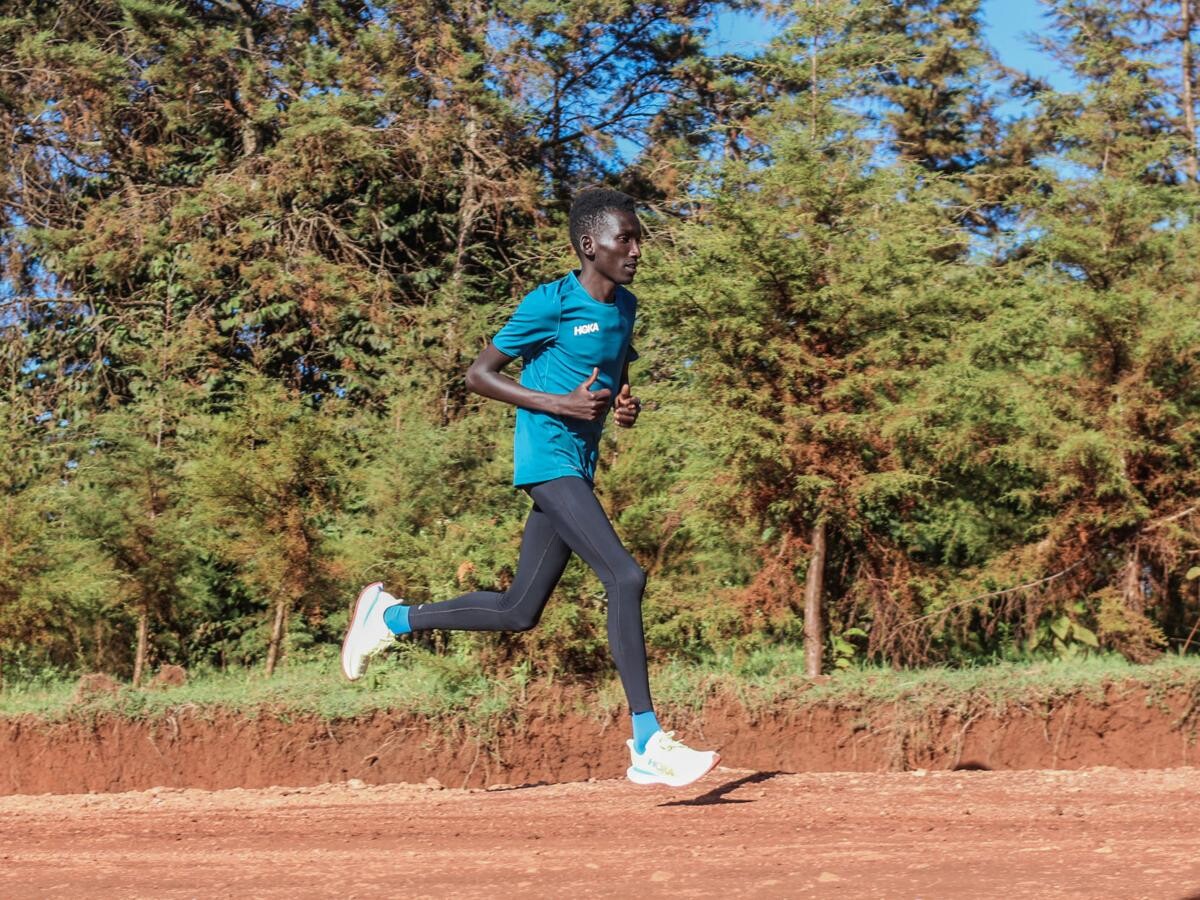
Last year's BOLDERBoulder champion, in fact, was NAZ Elite's Aliphine Tuliamuk, who finished in third place at the 2019 edition of the race and was runner-up in 2018.
“We would love to win on the men’s side, but it’s really, really hard," NAZ Elite Executive Director Ben Rosario said Wednesday.
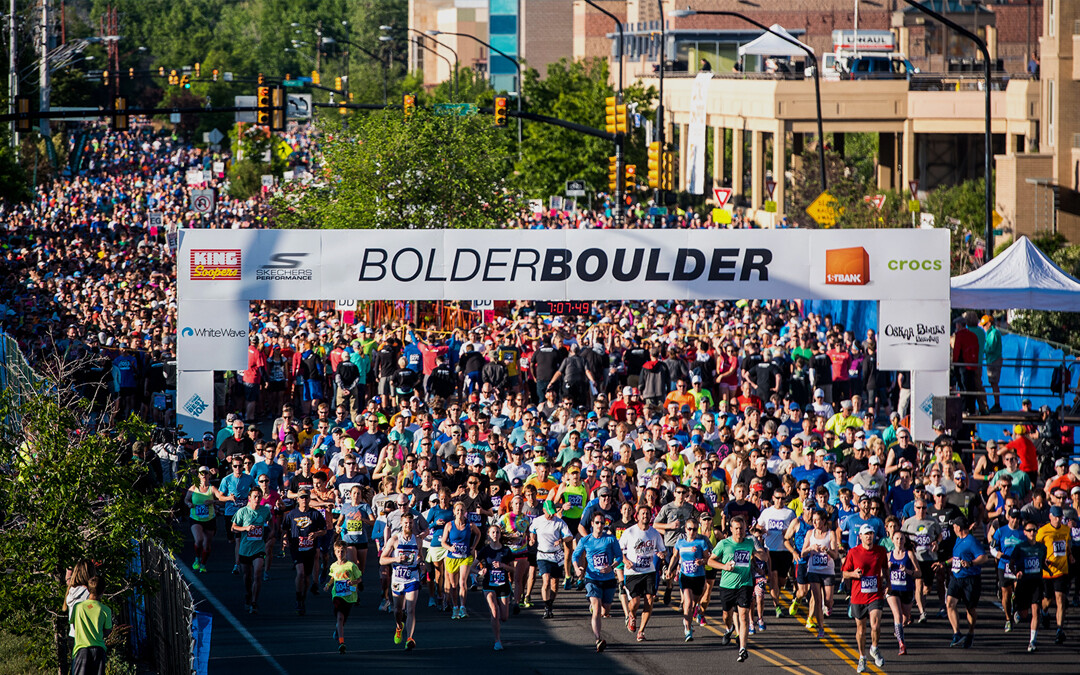
Only former member Scott Fauble has produced a top-10 finish in the men's race for NAZ Elite, taking sixth in 29:54 in 2016. This will be the eighth year that NAZ Elite has sent at least one athlete to the event since the team started racing in 2014.
The nature of the team-focused event typically leads to a loaded pack running up front, according to Rosario.
“When you have got three athletes from Kenya, three from Ethiopia, three from the U.S., et cetera, et cetera -- and they are all distance-running powerhouses -- it’s going to be hard to win the race because all these teams have somebody who could win.”
Rosario thinks that altitude also has something to do with how athletes perform at the race, which starts at 5,275 feet of elevation, peaks at 5,377 and ends at around 5,360 feet.
Fauble was born at altitude in Colorado, as was Tuliamuk, who is a Kenyan-born American. Both Kiptoo and Masai were born and raised in Kenya at an elevation higher than Flagstaff.
“It’s not a guarantee that they will run well, but I think they have a better chance to run well and race well at altitude than an athlete who was born and raised at sea level," Rosario said.
And both Kiptoo and Masai are in shape and coming off good performances.
Kiptoo won his last time out, repeating as the champion at the Pittsburgh Half Marathon on May 7. Meanwhile, Masai placed second in a 10,000-meter track event earlier this month and was fourth at the BAA 5K road race in mid-April with a time of 13:27.
“He’s look quite good in training over the last month," Rosario said of Masai, "and I would just say that he’s ready to go.”
Kiptoo normally draws energy from races that feature such strong talent up front, as the second-year pro likes competing with athletes who can produce the sort of times and results he hopes as his career unfolds.
“He’s certainly excited about the race. He’s shown so far in his young career that he enjoys these big road races, and when he is fresh and ready to go, he runs very, very well," Rosario said.
Before Monday's BOLDERBoulder, NAZ Elite will have two athletes in Krissy Gear and Katie Wasserman at Friday's USATF Distance Classic 1500m on the UCLA campus.
Rosario said there will be 17 athletes packed on the track for the "regular-season" race that will provided a chance for Wasserman to get some racing rust off her legs after a pause in racing due to illness and Gear to keep the momentum going and experience building.
Wasserman has not raced since mid-February at the USATF Indoor Championships, where she produced a 12th-place result in the 3000m.
by Mike Hartman
Login to leave a comment
BOLDER BOULDER
In 1979 we dreamt of attracting a few hundred of our friends to race though the streets of Boulder, Colorado to celebrate Memorial Day with our families. Fast forward almost 40 years and the Bolder BOULDER has grown to become one of the largest and most highly acclaimed 10K’s in the world. Almost 1.2 million runners, joggers, walkers and spectators...
more...Boston champions and U.S. record holders return for 2023 B.A.A. 10K
The Boston Athletic Association (B.A.A.) has announced professional fields for the 2023 B.A.A. 10K presented by Brigham and Women’s Hospital, to be run on Sunday, June 25 through Back Bay. Among the challengers set to compete are Boston Marathon champions Hellen Obiri (2023) and Benson Kipruto (2021), defending B.A.A. 10K winner Leonard Korir, as well as national record holder Emily Sisson. Complete field lists can be found below.
The B.A.A. 10K presented by Brigham and Women’s Hospital will be the second event of the 2023 B.A.A. Distance Medley, a year-long series featuring the B.A.A. 5K (April), B.A.A. 10K (June), and B.A.A. Half Marathon (November). Registration remains open with limited spots remaining.
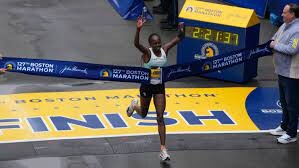
“Many fan favorites and global stars return to Boston for this year’s B.A.A. 10K, including Boston Marathoners, American record holders, Olympians and Paralympians,” said Mary Kate Shea, Director of Professional Athletes for the B.A.A. “The B.A.A. 10K course is flat, fast, and –most importantly—fun for our top contenders. We look forward to kicking off summer with a memorable competition on June 25.”
Obiri, a two-time Olympic silver medalist, won April’s Boston Marathon in her Boston debut, and will return to the roads hoping to extend her winning streak. Her 30:15 personal best at 10K is fourth fastest among the field, only trailing Sheila Chepkirui (Kenya, 29:46), Vicoty Chepngeno (Kenya, 30:14), and Joan Chelimo Melly (Romania, 30:14). Chelimo Melly won the B.A.A. 10K in 2017, while Chepkirui placed fourth at last month’s TCS London Marathon.
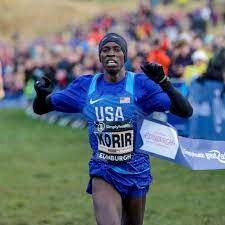
Korir, the reigning B.A.A. 10K champion, is fresh off a win at the USA 25K National Championships on May 13, and looks to become the fourth man to win back-to-back B.A.A. 10Ks. Sisson, the current American record holder in the marathon and half marathon also will return, joined by Olympic Marathon bronze medalist and former Boston resident Molly Seidel.
Among the international field squaring off are Boston Marathon winners Kipruto (2021), Edna Kiplagat (2017 and 2021), and Caroline Rotich (2015), all of Kenya. Gabriel Geay (Tanzania) will return after a runner-up finish at April’s Boston Marathon, and previously won the B.A.A. 10K in 2018.
Geoffrey Koech, winner of last year’s B.A.A. Half Marathon, will compete, as will Callum Hawkins of Great Britain, twice the fourth-place finisher at the World Championships marathon, plus decorated road racers Edward Cheserek (Kenya), a 17-time NCAA champion, and Zouhair Talbi (Morocco), most recently fifth at the Boston Marathon. From Team B.A.A. are Matt McDonald, Paul Hogan, Jonas Hampton, and Eric Hamer.
Mary Ngugi of Kenya, a two-time B.A.A. 10K winner and two-time Boston Marathon podium finisher, will aim for title number three, as fellow Kenyan Sharon Lokedi, the 2022 TCS New York City Marathon champion, looks for her first B.A.A. event victory. Team B.A.A.’s Annie Rodenfels, third place and top American at the 2023 B.A.A. 5K, will make her debut at the 10K distance leading a full contingent of Boston-based B.A.A. teammates including Bethany Hasz, Megan Hasz, and Jenna Magness.
Hermin Garic, the 2022 B.A.A. 10K winner, returns in the men’s wheelchair division, while Yen Hoang, third place at the 2021 Boston Marathon, leads the women’s wheelchair division. Brian Reynolds and Liz Willis will compete in the T61-64 (lower-limb impairment) division having already earned podium placings at the Boston Marathon in April. Reynolds, a Massachusetts native, set a world best 1:25:46 at the 2022 B.A.A. Half Marathon. Local Para athlete and last year’s T61-64 women’s winner, Adrianne Haslet, will also compete. Additional 2023 Boston Marathon Para division winners Andrew Thorson (T11-T13 vision impairment) and Atsbha Gebre (T45/T46 upper-limb impairment) are racing. The B.A.A. 10K presented by Brigham and Women’s Hospital has been certified by World Para Athletics as a record-eligible competition, paving the way for Para Athletes to set world and national records this year.
Media members interested in covering the B.A.A. 10K, presented by Brigham and Women’s Hospital, may apply for credentials here.
Registration for the 2023 B.A.A. 10K presented by Brigham and Women’s Hospital, is currently open through the B.A.A.’s online platform Athletes’ Village. All participants who enter will receive an adidas participant shirt, unique bib number, and finisher medal. Additional participant information can be found on baa.org. The race will start at 8:00 a.m. ET on Sunday, June 25 on Charles Street adjacent to Boston Common and Boston Public Garden.
Brigham and Women's Hospital, the B.A.A. 10K’s presenting sponsor and exclusive fundraising partner, will again field a team of fundraising runners. Since 2016, more than 2,100 runners and 180 teams have raised $1.2 million to fuel life-giving breakthroughs at Brigham and Women’s Hospital. Learn more and register at www.runbwh.org/10k.
Login to leave a comment
B.A.A. 10K
The 6.2-mile course is a scenic tour through Boston's Back Bay. Notable neighborhoods and attractions include the legendary Bull and Finch Pub, after which the television series "Cheers" was developed, the campus of Boston University, and trendy Kenmore Square. ...
more...The Quest for a Simpler Way to Boost Running Efficiency
Plyometrics can make you a more efficient runner, and it turns out they don’t need to be complicated or risky
It’s pretty clear, at this point, that plyometric training can make you a more efficient runner. There’s still plenty of debate about how it works. Does it streamline the signals traveling from brain to muscle? Does it make your tendons stiffer, enabling them to store and release more energy as they’re stretched with each stride? Does it alter your running style so that you take quicker and lighter steps? No one is sure, but there’s little debate that it does something.
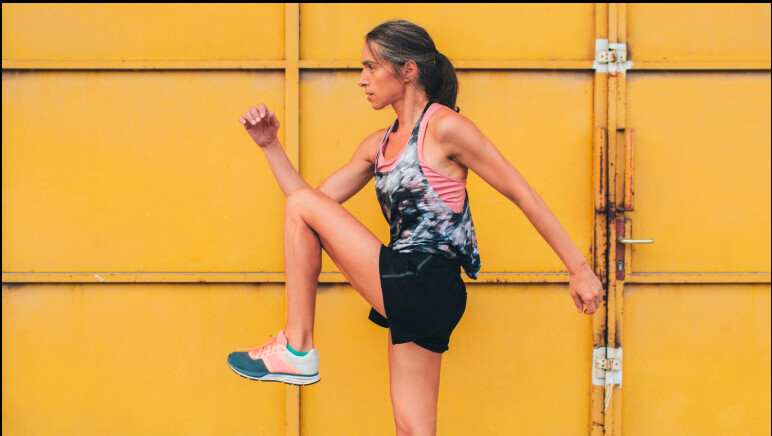
As a result, studies like this one in Sports Biomechanics, published last month by a group led by Aurélien Patoz of the University of Lausanne, don’t garner much attention. They found a 3.9 percent improvement in running economy after eight weeks of either plyometric or dynamic strength training, roughly comparable to what Nike’s original Vaporfly 4% shoe produced. (They also found no evidence that either form of training altered running stride in any significant way, for what it’s worth.)
Why no excitement about a free four-percent boost? As someone who has experimented on and off with various forms of plyometric training over several decades, let me venture a hypothesis: it’s perceived as too complicated, and possibly risky, for most of us. Plyometrics involve explosive movements in which you try to maximize the force produced in the shortest possible time. You often see people leaping off steps, bounding over hurdles, and performing various other feats of impressive coordination.
The subjects in Patoz’s study were amateurs with no prior experience with any form of structured strength training. As a result, the exercises they did weren’t especially daunting by plyometric standards. But they weren’t simple, either. Here’s an overview of the program:
Even if you think your hamstrings can handle drop jumps, plyometric lunges, bounding and so on without snapping, you still need various bits of equipment and a bunch of time. Does it need to be that complicated?
That’s the question tackled by another recent study, this one led by Tobias Engeroff of Goethe University Frankfurt and published in Scientific Reports. They stripped plyometric training down to its bare bones, tested it on a group of amateur runners—and still found a significant improvement in running economy after just six weeks. The exact size of the improvement depends on how you measure it and at what speed, but was between 2 and 4 percent.
Engeroff’s plyometric program involved nothing but hopping on the spot. Specifically, “participants were instructed to start with both feet no wider than hip width apart and to hop as high as possible with both legs, keeping the knees extended and aiming to minimize ground contact time.” They started by hopping for 10 seconds, resting for 50 seconds, and repeating five times for a total of five minutes. They did this five-minute program daily, decreasing the rest and increasing the number of sets each week: the second week was 6 sets of 10 seconds of hopping with 40 seconds of rest; the sixth and final week was 15 sets of 10 seconds hopping with 10 seconds of rest, still totaling five minutes.
This program was based on the idea that it’s tendon stiffness that boosts running economy. In particular, the stretch and recoil of the Achilles tendon provides between half and three-quarters of the positive work required for running, by some estimates. Engeroff’s short daily program draws on recent research by Keith Baar and others suggesting that connective tissue such as tendons responds best to brief, frequent stimulus rather than longer and harder workouts. Notably, this approach didn’t injure any of the runners.
The point here isn’t necessarily that daily hops are the new magic exercise that everyone should do. Indeed, it’s worth emphasizing that Patoz’s study found essentially the same improvements with both plyometrics and dynamic strength training. That’s a familiar result in studies that have tried to determine the best economy-boosting regimen: all sorts of different approaches seem to produce similar results. Patoz’s dynamic strength program involves a bunch of bodyweight exercises that focus on concentric contractions: lunges, step-ups, squats, stair jumps. Those are all components of my current strength routine, and I like the idea that, in addition to stiffening my tendons, I might also be strengthening my muscles.
It’s worth acknowledging that the subjects in both these studies were recreational runners with little prior experience of either plyometric or strength training. The minimalist program that works for them might not do much for a serious competitive runner with years of resistance training experience. Those are the people who might need to do the elaborate one-legged triple-axel hurdle hops that you see in online training montages. For the rest of us, though, the message seems to be: do something. It’s as effective as supershoes, and way cheaper.
by Outside Online
Login to leave a comment
Nikki Hiltz, Sam Prakel both become two-time winners at Usaft 1 mile road
The USATF Indoor 1,500-meter winners demonstrated they could also rule the roads Tuesday night at the USATF 1 Mile Championships.
Nearly 10 weeks after both winning USATF Indoor titles Feb. 18 in Albuquerque, N.M., adidas professional Sam Prakel and Lululemon athlete Nikki Hiltz each secured their second career national road championships as part of the annual Grand Blue Mile event.
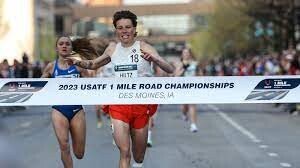
Hiltz produced the fastest performance in the history of the women’s race, which began in 2009, clocking 4 minutes, 27.97 seconds to edge reigning USATF Outdoor 1,500 champion Sinclaire Johnson of Nike’s Union Athletics Club in 4:28.70.
Hiltz, who prevailed in 2019 in Des Moines in 4:29.7, became the only athlete in event history to produce a pair of sub-4:30 efforts, benefitting from a 65-second opening quarter-mile and the pack reaching the midway point in 2:14.
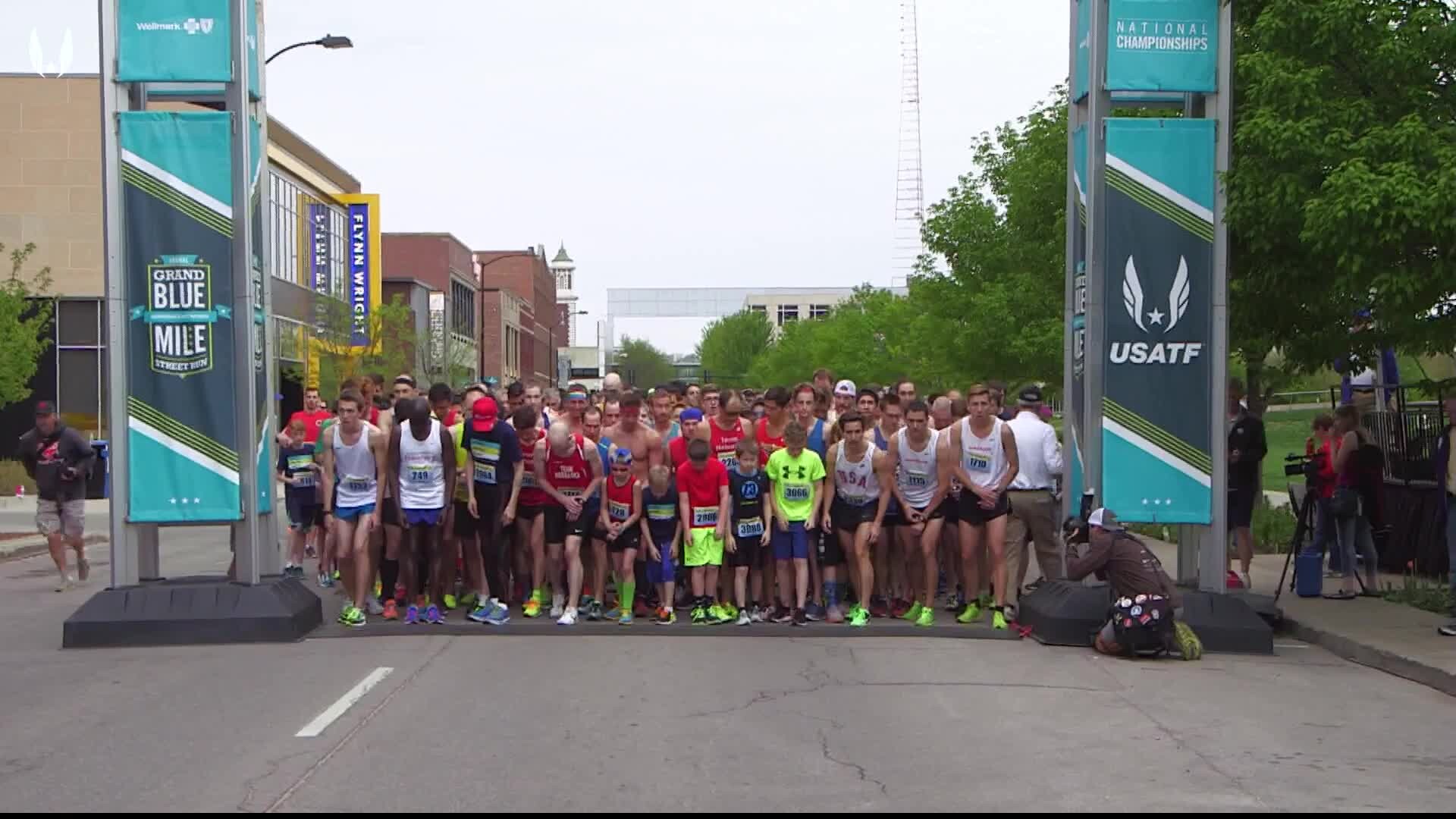
Emily Lipari, who had the previous all-time mark of 4:29.3 in 2020, and Johnson are the only other competitors to achieve a sub-4:30 performance in the race.
Hiltz, who ran a lifetime-best 1:59.03 in the 800 meters April 14 at the Bryan Clay Invitational at Azusa Pacific University, earned $5,000 for the victory and an additional $2,500 for the record bonus. Hiltz also joined Heather Kampf and Emily Lipari as the only three competitors to capture multiple women’s championships in event history.
Addy Wiley, a freshman at Huntington University in Indiana who secured five NAIA Indoor national titles March 2-4 in South Dakota, raced for the first time since that memorable showcase and took third in 4:30.94.
Wiley, 19, became the youngest top-three finisher in event history and achieved the No. 6 all-time performance in the nine years the competition has been held in Des Moines.
Wiley, who placed fourth in the 1,500 at the USATF Indoor Championships in February in Albuquerque, elevated to No. 7 in the history of the national road mile competition, including Sara Hall clocking 4:30.8 in Minnesota to secure the 2011 crown.
Colleen Quigley, representing Lululemon, finished fourth in 4:31.1 in her debut at the event, with Nike’s Shannon Osika and Alex Teubel also being credited with 4:31 performances to secure fifth and sixth.
Alli Cash (4:32), Jenn Randall (4:33), Micaela DeGenero (4:34) and Helen Schlachtenhaufen (4:37) completed the top 10 women’s competitors in the 23-athlete race.
Prakel prevailed in 4:01.21, remaining patient following an opening quarter mile of 61 seconds and a 2:05 split at the midway point, to take control in the final 500 meters and never relinquish his advantage.
Under Armour Mission Run Baltimore Distance athlete Casey Comber edged last year’s champion Vincent Ciattei by a 4:02.88 to 4:02.91 margin to grab second.
Prakel, who ran 13;22.78 in the 5,000 meters April 14 at Bryan Clay, also secured a $5,000 prize for the road mile title, becoming only the third male athlete in event history to capture multiple championships, joining David Torrence (2009-11) and Garrett Heath (2013 and 2015).
Prakel produced the fastest all-time mark in Des Moines with his 3:58.3 effort in 2020. Ben Blankenship holds the meet record with his title in 3:55.8 in 2016 in Minnesota.
Nick Randazzo, Kasey Knevelbaard and Jake Gillum were all credited with 4:04 performances to finish fourth, fifth and sixth, followed by Shane Streich and David Ribich both clocking 4:05 for seventh and eighth, Craig Nowak earning ninth in 4:06 and Colin Abert taking 10th in 4:08 in the 17-athlete race.
Login to leave a comment
Grand Blue Mile
The Grand Blue Mile was created by Wellmark Blue Cross and Blue Shield and the Drake Relays to encourage healthy habits and empower positive change. Held annually since 2010, the Grand Blue Mile has hosted more than 30,000 participants from 26 states, six countries, and four continents. The annual event brings friends and families together to celebrate wellness through a...
more...Elite Fields Released For USATF 1 Mile Road Championships At The Grand Blue Mile
Elite Fields Released For USATF 1 Mile Road Championships At The Grand Blue Mile.
On November 30, 2022, World Athletics, the international governing body of the sports of track and field and road running, announced that an official world record for the road mile would be introduced beginning on January 1, 2023.
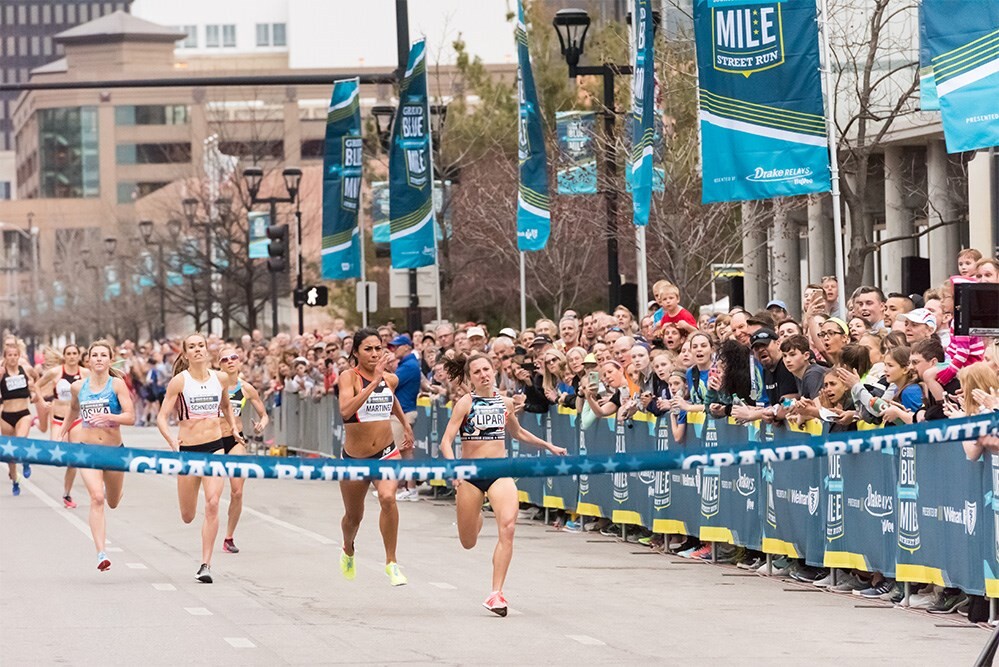
The flat and fast Grand Blue Mile course meets all requirements for World Record ratification, quickly distinguishing the 2023 USATF 1 Mile Road Championships as a destination for American athletes aspiring to make history. For immediate ratification, a World Record will require a performance of at least 3:50.00 for the men and 4:19.00 for the women. If the listed standards are not met by September 1, the fastest recorded, record-eligible performances will be recognized as the World Records.
After thousands of recreational and competitive runners have navigated the 1 mile course through downtown Des Moines, more than 40 elite runners will compete for the title of USA Road 1 Mile Champion. Those runners include four former 1 Mile Road Champions in Sam Prakel (2020), Katie Follett (2017), Nikki Hiltz (2019) and the defending men’s champion Vincent Ciattei.
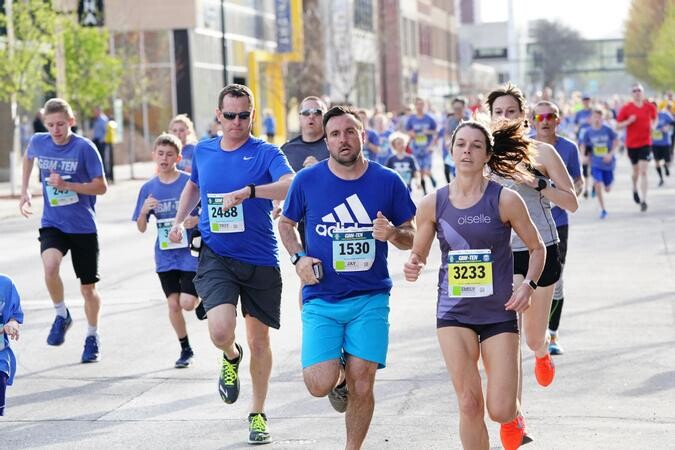
Ciattei won last year’s race in 4:03 but owns a personal best of 3:51 and was an NCAA runner-up in the mile and 1,500m as a collegian at Virginia Tech.
Prakel claimed the title in 2020 in a COVID pandemic-altered race that finished in Drake Stadium. He aims to add a third national title to his resume this year, as he recently claimed USATF indoor titles in the 3,000m and 1,500m. The men’s field also includes faces familiar to the Grand Blue Mile in Shane Streich, who finished third last year, and Abe Alvarado, who was fourth in 2021.
Nikki Hiltz, a champion in the event in 2019, returns to Des Moines fresh from the USATF Indoor Championship in the 1,500m they captured in March. The 2019 Pan-American Games gold medalist was also a 2019 World Championships qualifier.
Sinclaire Johnson joins the field to make her Grand Blue Mile debut after winning the USATF Outdoor 1,500m title in 2022 to earn her a spot at the 2022 World Championships, where she finished sixth.
The women’s lineup also includes a pair of Iowa talents returning to Des Moines in Alex Teubel and Abby Kohut-Jackson. Teubel, an assistant coach at UNI, finished third in last year’s race, and the Lisbon, Iowa, native was an Olympic Trials finalist in the 3,000-meter steeplechase. Kohut-Jackson is a product of Ballard, Iowa, who advanced to the USATF Outdoor Championships finals in the steeplechase and was Big Ten champion in the event at the University of Minnesota.
The fastest road mile ever run on Iowa soil was at the inaugural Grand Blue Mile in 2010, when Boaz Lalang won in 3:54.3. A special incentive has been created for the winner, who eclipses that time or 4:29.3 in the women’s championship race. A performance that is successfully ratified as a new World Record will earn an additional $5,000 bonus.
The full fields are listed below.
Men’s USATF 1 Mile Road Championship
Colin Abert
Abe Alvarado
Michael Brannigan
Jacob Brueckman
Luca Chatham
Vincent Ciattei
Casey Comber
Graham Crawford
Owen Hoeft
Austin Dalquist
Jonathan Davis
Kasey Knevelbaard
Nate Mylenek
Craig Nowak
Sam Prakel
Nick Randazzo
David Ribich
Nate Sloan
Shane Streich
Women’s USATF 1 Mile Road Championship
Stephanie Brokaw
Katie Camarena
Alli Cash
Anna Connor
Micaela DeGenero
Katie Follett
Eleanor Fulton
Jessa Hanson
Nikki Hiltz
Marisa Howard
Sinclaire Johnson
Abby Kohut-Jackson
Melissa Menghini
Shannon Osika
Angel Piccirillo
Colleen Quigley
Jenn Randall
Emily Richards
Helen Schlachtenhaufen
Alex Teubel
Emi Trost
Addy Wiley.
by Letsrun
Login to leave a comment
Grand Blue Mile
The Grand Blue Mile was created by Wellmark Blue Cross and Blue Shield and the Drake Relays to encourage healthy habits and empower positive change. Held annually since 2010, the Grand Blue Mile has hosted more than 30,000 participants from 26 states, six countries, and four continents. The annual event brings friends and families together to celebrate wellness through a...
more...Now nonbinary runners can compete at Boston Marathon
For nonbinary runners, this year’s Boston Marathon isn’t just a running event. It’s a major milestone in the race for inclusion.
The 2023 race will include a nonbinary division for the first time in the marathon’s storied 127-year history. While other major marathons, including New York City and Chicago, also have nonbinary divisions, Boston remains one of the most prestigious events on the marathon calendar.
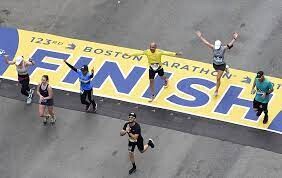
It’s considered a bucket-list marathon because the race requires most runners, including those in the new nonbinary division, to earn their way onto the course by meeting strict qualifying time standards.
“Hopefully this has ripples across the country and across the world — in the running world to begin and then hopefully beyond the running world,” said Cal Calamia, a 26-year-old inclusivity activist from San Francisco who will be one of 27 runners competing in the nonbinary division at Boston on April 17.
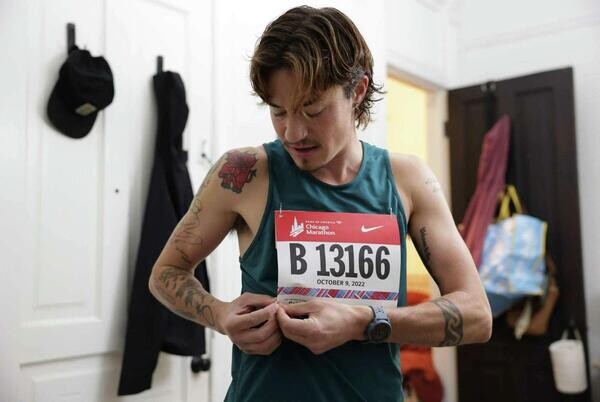
The London Marathon will also debut a nonbinary division at its race this year on April 23.
Setting nonbinary qualifying times
Calamia, who identifies as nonbinary transmasculine, had qualified to run the 2021 Boston Marathon in the women’s division but then tore their ACL playing soccer. The first thought that went through Calamia’s head was anguish at not being able to run Boston. But the delay offered a silver lining.
“I like to look back on it and just think I’m actually really grateful that things happened the way they did,” Calamia said. “Because I was gonna go in there as a nonbinary person in the female category, and it didn’t feel right.”
Now, Calamia says they don’t have to choose between running Boston and their gender identity. “I don’t have to deal with essentially choosing between two things that aren’t really true and trying to pretend that one of them fits when it doesn’t,” they said.
Calamia has run the Chicago Marathon, California International Marathon and San Francisco Marathon. Their personal best is 2:58:50 from last year’s Chicago Marathon. But to Calamia, Boston is special.
“When I started thinking about running marathons, I was thinking about Boston,” they said.
A big reason for the race’s mythical status is its strict qualifying standards. Qualifying times are now broken down by age groups, and qualifying for Boston — or “BQ” in running vernacular — has become a badge of honor for amateur runners around the world.
One of the challenges of adding a nonbinary division was figuring out the qualifying standards. Race organizers decided that the nonbinary time standards for this year would match those for the women’s division, said Jack Fleming, the chief executive and president of the Boston Athletic Association, which hosts the Boston Marathon.
This year, runners in the women’s and nonbinary divisions ages 18 to 34 needed to run a marathon at 3:30 or faster to qualify. The men in that age range were required to run three hours or faster.
“We landed on having the nonbinary qualifications match the female qualifications, because it was the most inclusive,” said Susie Cleary, the BAA director of athlete services.
The BAA said on its website that the organization does not yet have enough data to establish nonbinary qualifying times and that this first year will be used as an “opportunity to learn and grow together.”
Jake Fedorowski, a 27-year-old from Seattle who wrote a guide for nonbinary inclusion in running, called the decision a “good move.” “You’re doing this to start to collect data so that over time you can start to really tailor what those times need to be,” they said.
Awards but no prize money
Along with Calamia, Fedorowski will run in the nonbinary division. Both will be among the 30,000 runners competing at Boston this year. Of the 27 runners in the nonbinary division, 25 qualified through time standards, Cleary said. Two nonbinary runners applied through the marathon’s charity program, which waives time restrictions in exchange for raising at least $5,000 for a designated charity.
But unlike participants in other divisions, nonbinary runners will not receive prize money. The top three runners in the nonbinary division will be awarded trophies, similar to runners who place top three in their age groups. The winner in the nonbinary division at the NYC Marathon last year took home $5,000, while the Chicago Marathon did not give prize money for the nonbinary division.
The BAA didn’t explain why the nonbinary division won’t include prize money this year. “We will continue to listen to our participants, review our events and continue to strive for the best experience possible for all our athletes,” Fleming, the BAA chief executive, said in a statement.
The first-place finishers in the open division will receive $150,000, winners of the wheelchair division get $25,000, masters division winners get $5,000 and winners of the para divisions, for athletes with disabilities, get $1,500, according to the marathon website.
Login to leave a comment
Boston Marathon
Among the nation’s oldest athletic clubs, the B.A.A. was established in 1887, and, in 1896, more than half of the U.S. Olympic Team at the first modern games was composed of B.A.A. club members. The Olympic Games provided the inspiration for the first Boston Marathon, which culminated the B.A.A. Games on April 19, 1897. John J. McDermott emerged from a...
more...The Boston Marathon has never been easy, that’s why Des Linden keeps coming back
The conditions were wretched when Des Linden first toed the starting line in Hopkinton in 2007. An amped-up nor’easter brought rain, a 30-mile-per-hour headwind, and soggy, chilly misery for the runners.
“I was one probably of the few people who felt, that was one of the best things I’ve ever done,” Linden recalled years later. “I’m going to do this forever. I loved it.”
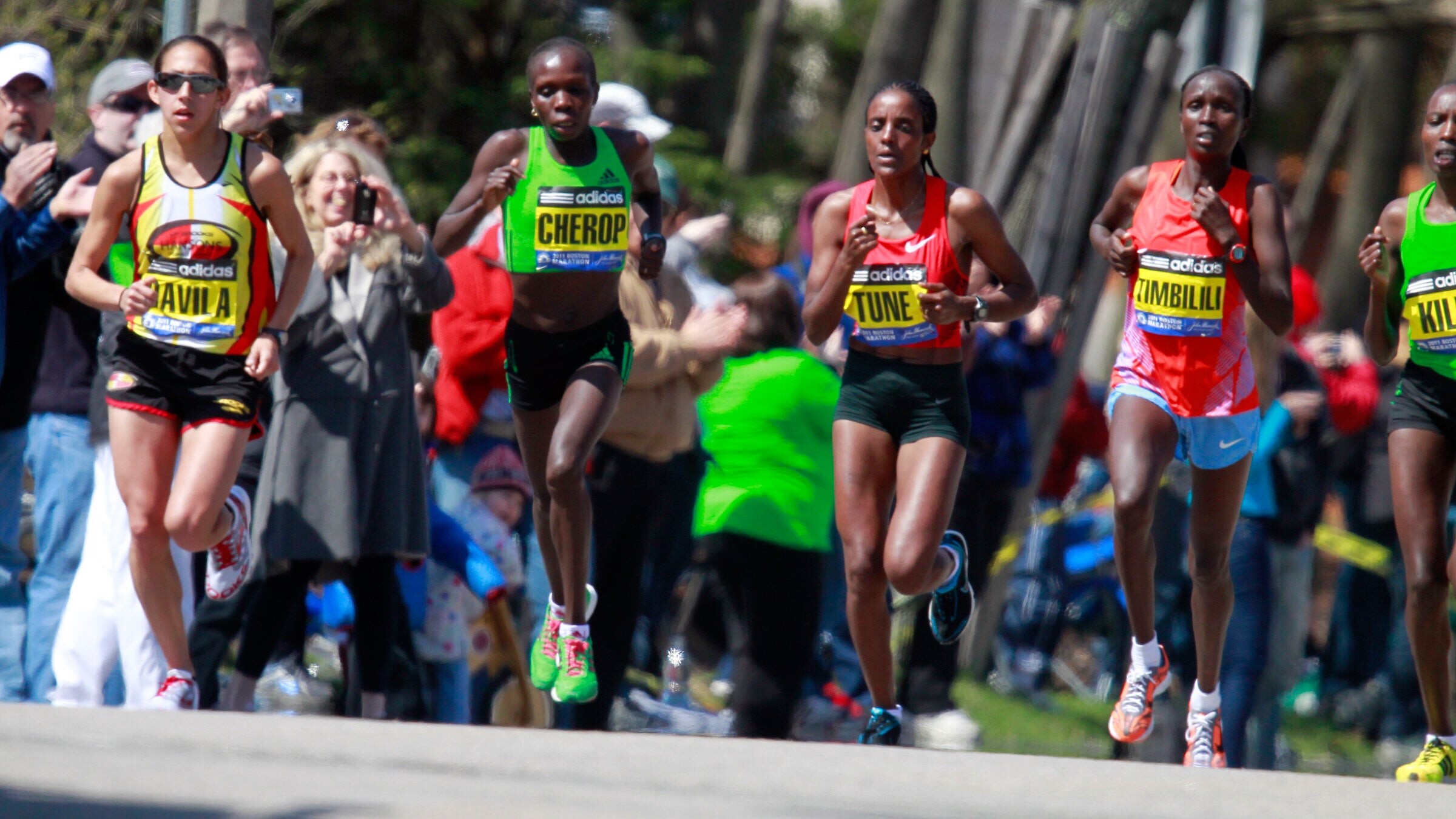
On Patriots Day Linden will lace up for her 10th Boston Marathon. During the 16 years since her first appearance here, which also was her 26-mile debut, Linden has won the laurel wreath (”storybook stuff”), lost by two seconds on a sprint down Boylston Street, finished fourth twice, and 17th in a “total suffer-fest.”
Every trip here is a homecoming, said the California native and Michigan resident who has a dog named Boston. What brings Linden back is the race’s incomparable history, the feeling of family that she gets from the Boston Athletic Association, the exuberant crowds along the course, “the greatest finish line in our sport,” and the unchanging challenge from the lumpy layout and mercurial weather.
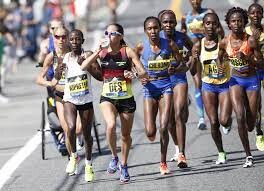
“We’re in this era where we want the marathon to be easier than ever before,” said Linden. “We want it faster, we want it flatter, we want wind blockers, we want shoes that bounce you forward, we want better gels. You name it, we’re trying to dumb this thing down. Boston is already not going to manage well with a lot of those things, then you throw in the weather conditions. I’ll take the tough one every time.”
Boston never has been easy. For decades there were no mile markers or water on the course. There was no prize money until 1986 — the reward was a medal and a bowl of canned beef stew. The starter fired the gun and sent you off. If you ended up sitting on the curb, cramped and blistered, the “meat wagon” picked you up.
Linden loves the purity of a race that always has the same course but rarely the same conditions. “A lot of people get surprised by it,” she said. “Well, it’s Boston in the spring.”
Boston is the recurring theme of “Choosing To Run,” Linden’s new memoir written with Bonnie D. Ford. Chapters recounting her 2018 triumph, the first by an American woman here in 33 years, are interspersed with a narrative of her evolution from a track racer to a marathoner.
Linden, who’ll officially become a master when she turns 40 in late July, is in the final stretch of her elite career, which she hopes will include a third Olympic team next year in Paris. Maybe she’ll run a fall marathon to prep for the Orlando trials in February. “Or maybe I just spin the legs and do some fast stuff,” she mused.
At this stage of her career it’s all about being smart and patient. “It’s a challenge letting go of your prime years, but there’s also a reality to it,” Linden said. “It’s recalibrating and readjusting what the goal is. I’m learning.”
One significant concession is her weekly mileage, which Linden has reduced from 120 to between 95 and 105. “I have this mentality that I’m being lazy if I’m not doing 115-120-mile weeks,” she said. “ ‘You’re not being lazy,’ my coach [Walt Drenth] said. ‘It’s just not practical.’ ”
At her age, maintaining speed and power are more important than training volume. “So work on what’s going away,” Linden said, “and rely on what you’ve done in the past as far as the volume goes.”
The lighter workload paid dividends at the recent New York City Half Marathon, where she placed fifth in 1 hour, 12 minutes, 21 seconds, the top American finisher. “It was the first time in a while that I got good momentum from a race,” she said.
Up against a stacked Boston field that includes Gotytom Gebreslase and Lonah Salpeter, the world gold and bronze medalists; two-time Boston victor Edna Kiplagat; returning medalists Ababel Yeshaneh and Mary Ngugi; two-time Olympic track medalist Hellen Obiri; and Amane Beriso, a sub-2:15er, Linden is realistic about her chances.
“Top 10 is a great goal at times and particularly this year — the field’s incredible,” said Linden, who was 13th last year. “Just mixing it up and racing is fun for me.”
At this point in her career Linden has little left to chase. She was seventh in the 2016 Olympics, cracked the top 10 at the 2009 world championships, and has posted top-five efforts in New York, Chicago, and Berlin.
But her crowning achievement came in Boston five years ago when she slogged her way through punishing wind and chilly rain to win a race that she didn’t plan on finishing. “It’s not gonna be my day,” Linden told Shalane Flanagan after 6 miles. “I think I’m going to drop out soon.”
But she pushed on, thinking more about survival than victory. “I was running in fear for most of the race,” Linden said. “Even halfway through Boylston I was thinking, if someone comes up on my shoulder I know I can respond.”
She won by more than four minutes, to her astonishment. Linden’s jacket and headband were added to the BAA memorabilia collection, whose artifacts date from the 19th century. “The same museum I had once viewed as an unattainable sanctum,” she wrote in “Choosing To Run.”
Gloria Ratti, the BAA’s longtime first lady, had given Linden the tour before her 2007 debut. That, she said, “made me fall in love with 26.2.”
“Everyone talks about Boston’s special history,” Linden said. “You can feel it on the course, you can see it on race day. But to have that collection of the very first medals and the shoes that were being worn … ”
by John Powers
Login to leave a comment
Boston Marathon
Among the nation’s oldest athletic clubs, the B.A.A. was established in 1887, and, in 1896, more than half of the U.S. Olympic Team at the first modern games was composed of B.A.A. club members. The Olympic Games provided the inspiration for the first Boston Marathon, which culminated the B.A.A. Games on April 19, 1897. John J. McDermott emerged from a...
more...Olympic Steeple Bronze Medalist Benjamin Kigen And World XC Champ Beatrice Chebet Lead Fields For BAA 5k
Patriots’ Day Weekend will kickoff with exciting competition, as international and U.S. stars take to the roads for the 2023 B.A.A. 5K presented by Point32Health, and the 2023 B.A.A. Invitational Mile on Saturday, April 15.
Among the professional athletes entered in the B.A.A. 5K are reigning champions Charles Philibert-Thiboutot (Canada), Marcel Hug (Switzerland), and Jenna Fesemyer (USA), while recently crowned world cross country champion Beatrice Chebet of Kenya will make her Boston road racing debut. Local Bay State stars Johnny Gregorek and Ellie Shea will compete in the B.A.A. Invitational Mile, a three-lap race starting and finishing on Boylston Street.
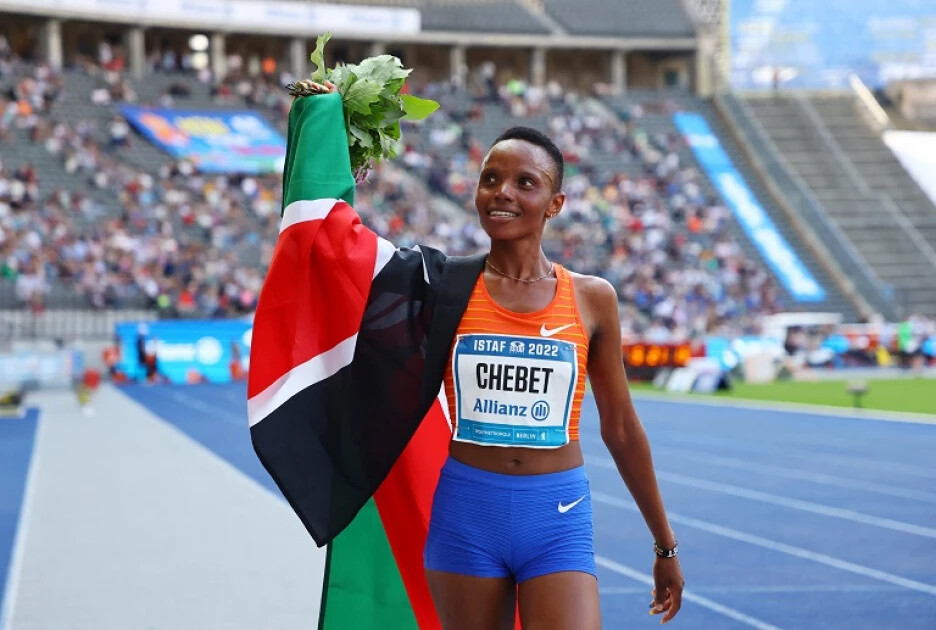
“This year’s professional fields blend together experience with up-and-coming stars for the B.A.A. 5K and B.A.A. Invitational Mile,” said Mary Kate Shea, B.A.A. Director of Professional Athletes. “Participants, spectators, and running enthusiasts will get to witness world class competition at shorter distances two days before the 127th Boston Marathon."
International standouts will be at the front of the B.A.A. 5K, led by Kenya’s Benjamin Kigen – an Olympic bronze medalist in the 3000m steeplechase from 2021—and Philibert-Thiboutot, who set a Canadian national record at the 2022 B.A.A. 5K en route to winning in 13:35. Philibert-Thiboutot’s countryman Ben Flanagan, a three-time Falmouth Road Race winner, as well as reigning B.A.A. Half Marathon champion Geoffrey Koech of Kenya, are also entered. Leading the American contingent is Olympian Mason Ferlic, two-time World Cross Country participant Emmanuel Bor, U.S. Road Mile champion Eric Avila, and NCAA All-American Morgan Beadlescomb.
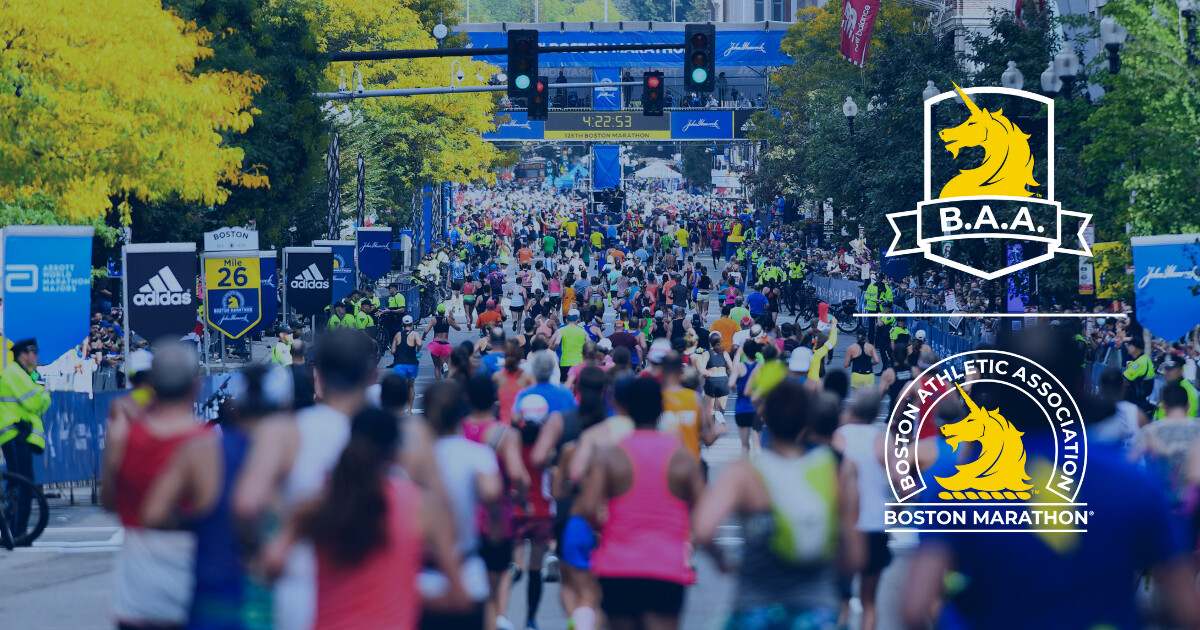
On the women’s side, 2023 World Cross Country champion Beatrice Chebet and bronze medalist Agnes Ngetich (Kenya) will take on World Athletics Championships 3000m steeplechase bronze medalist Mekides Abebe (Ethiopia), all racing the B.A.A. 5K for the first time. The United States will be well represented in the women’s professional ranks, with reigning USA 5K national champion Weini Kelati, defending B.A.A. Invitational Mile winner Annie Rodenfels, 2022 USA Club Cross Country champion Bethany Hasz, Olympian Marielle Hall, and 2022 USATF 10,000m bronze medalist Natosha Rogers all racing. Rodenfels and Hasz are members of the B.A.A. High Performance Team, training in Boston under coach Mark Carroll.
International standouts will be at the front of the B.A.A. 5K, led by Kenya’s Benjamin Kigen – an Olympic bronze medalist in the 3000m steeplechase from 2021—and Philibert-Thiboutot, who set a Canadian national record at the 2022 B.A.A. 5K en route to winning in 13:35. Philibert-Thiboutot’s countryman Ben Flanagan, a three-time Falmouth Road Race winner, as well as reigning B.A.A. Half Marathon champion Geoffrey Koech of Kenya, are also entered. Leading the American contingent is Olympian Mason Ferlic, two-time World Cross Country participant Emmanuel Bor, U.S. Road Mile champion Eric Avila, and NCAA All-American Morgan Beadlescomb.
On the women’s side, 2023 World Cross Country champion Beatrice Chebet and bronze medalist Agnes Ngetich (Kenya) will take on World Athletics Championships 3000m steeplechase bronze medalist Mekides Abebe (Ethiopia), all racing the B.A.A. 5K for the first time. The United States will be well represented in the women’s professional ranks, with reigning USA 5K national champion Weini Kelati, defending B.A.A. Invitational Mile winner Annie Rodenfels, 2022 USA Club Cross Country champion Bethany Hasz, Olympian Marielle Hall, and 2022 USATF 10,000m bronze medalist Natosha Rogers all racing. Rodenfels and Hasz are members of the B.A.A. High Performance Team, training in Boston under coach Mark Carroll.
Login to leave a comment
B.A.A. 5K
The B.A.A. 5K began in 2009, and became an instant hit among runners from far and wide. Viewed by many as the “calm before the storm,” the Sunday of Marathon weekend traditionally was for shopping, loading up on carbohydrates at the pasta dinner, and most importantly- resting. But now, runners of shorter distances, and even a few marathoners looking for...
more...B.A.A. announces pregnancy deferral accommodations for all B.A.A. events, including Boston Marathon
The Boston Athletic Association (B.A.A.) announced today accommodation enhancements pertaining to runners who are expecting or have recently welcomed a child into their families. Pregnancy and postpartum deferrals of entries will now be available for registered participants at all B.A.A. events, including the Boston Marathon (April), B.A.A. 5K (April), B.A.A. 10K (June), and B.A.A. Half Marathon (November).
“In listening to our participants and stakeholders, the desire from mothers and expecting mothers to participate in our races –particularly the Boston Marathon—while also focusing on building a family was clear,” said Jack Fleming, President and Chief Executive Officer of the B.A.A. “Women who are entered in a B.A.A. race and want to expand their family will be able to do just that without giving up a chance to participate at a future B.A.A. event.”
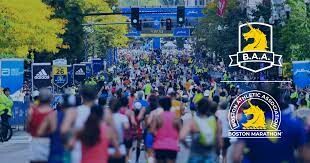
Any athlete who is a registered entrant in a B.A.A. event and is or becomes pregnant prior to race day and chooses not to participate due to such circumstances will be eligible to receive a deferred entry into one of the next two subsequent future races. The new pregnancy and postpartum deferment policy is effective immediately, and includes athletes who are entered in the Boston Marathon by way of qualifying time or invitational entry.
Athletes seeking a pregnancy or postpartum deferral may submit a request in writing to registration@baa.org any time between receiving confirmation of acceptance into the event and up to 14 days before race day. Upon receipt of a pregnancy or postpartum deferment request, the B.A.A.’s Athlete Services team will be in contact with the athlete and will request confirmation of pregnancy from a physician, registered midwife, or other medical professional.
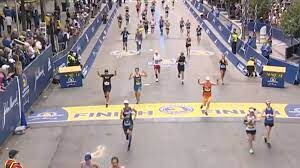
“We at the B.A.A. are always looking for ways to improve the participant experience starting at the point of registration, and have been collaborating to create this policy for many months,” said Susie Cleary, the B.A.A.’s Director of Athlete Services. “This new deferral accommodation has been implemented with the goal of supporting mother runners along their journey at all our events, from the 5K distance through the marathon.”
If an athlete becomes pregnant again during a pregnancy or postpartum deferral period, they may request a second consecutive pregnancy or postpartum deferral. This would permit the athlete to defer their race entry for a subsequent two-year period. The B.A.A. will allow up to two consecutive pregnancy deferral requests per athlete. Policy details will be posted on www.baa.org soon.
The pregnancy deferral opportunity is an accommodation in addition to the registration insurance currently offered to Boston Marathon participants, which covers refunds for a variety of situations, including pregnancy. All other rules and requirements for race entry after a pregnancy or postpartum deferral will apply, including payment for future registration entry fees.
In addition to deferrals, the B.A.A. will be enhancing accommodations for recent mothers on race weekend. For more than a decade, mothers have been provided the opportunity to utilize designated tents at the start and finish of the Boston Marathon for lactation pumping. In response to the overwhelming support of this program and the accompanying medical device transport program (where race officials transport devices such as breast pumps from the start to finish), the B.A.A. plans to share additional accommodations as race day approaches. The B.A.A. is currently consulting a group of mother runners to help facilitate best practices at our events. More information will be shared with participants over the coming months.
ABOUT THE BOSTON ATHLETIC ASSOCIATION (B.A.A.)
Established in 1887, the Boston Athletic Association is a non-profit organization with a mission of promoting a healthy lifestyle through sports, especially running. The B.A.A. manages the Boston Marathon, and supports comprehensive charity, youth, and year-round programming. The Boston Marathon is part of the Abbott World Marathon Majors, along with international marathons in Tokyo, London, Berlin, Chicago, and New York City. Since 1986, the principal sponsor of the Boston Marathon has been John Hancock. The 127th Boston Marathon is scheduled to take place on Monday, April 17, 2023. For more information on the B.A.A., please visit www.baa.org.
by Boston Athletic Association
Login to leave a comment
Boston Marathon
Among the nation’s oldest athletic clubs, the B.A.A. was established in 1887, and, in 1896, more than half of the U.S. Olympic Team at the first modern games was composed of B.A.A. club members. The Olympic Games provided the inspiration for the first Boston Marathon, which culminated the B.A.A. Games on April 19, 1897. John J. McDermott emerged from a...
more...2023 Doha Marathon by Ooredoo a huge success with record-breaking numbers
DOHA: Ooredoo – a longstanding supporter of major sports events in Qatar – has announced that the 13th edition of its annual marathon, this year renamed the Doha Marathon by Ooredoo, was a roaring success.
The event was a complete sell-out, with 8,000 runners taking their places at the start line on the morning of Friday, January 20, 2023. Runners took part in a variety of distance categories, from the 1km kids’ run to the full marathon.
Sheikh Ali Bin Jabor Al Thani, recently appointed CEO at Ooredoo Qatar, said:
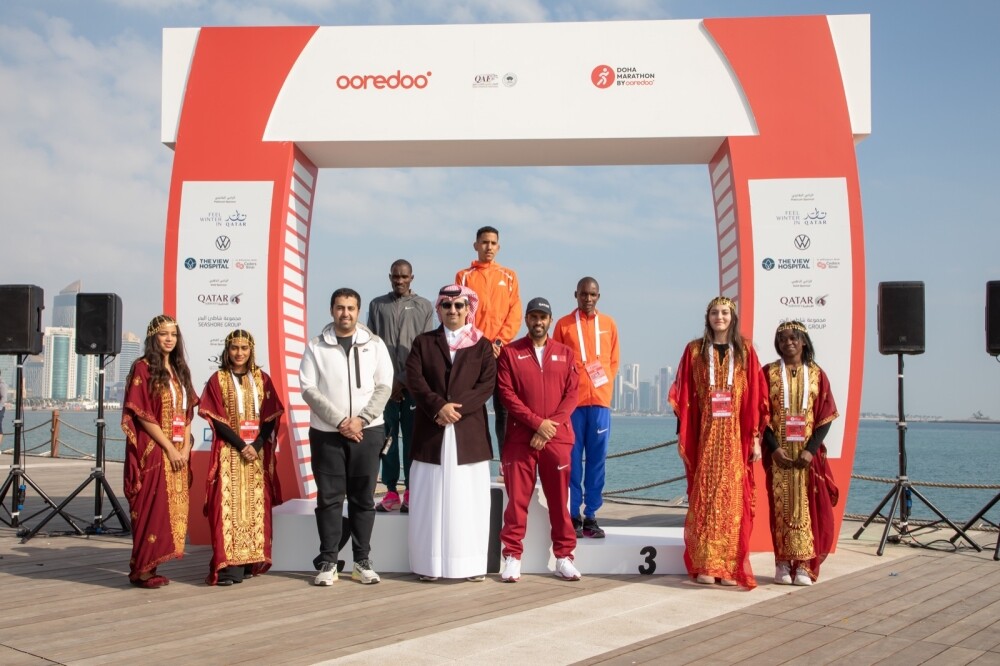
“Once again, we are delighted and proud to announce our annual marathon was a phenomenal success. As always, the event attracted some of the world’s top runners and was a complete sell-out, giving the opportunity for our local running enthusiasts to run alongside such sporting superstars. Thanks to the support of our partners and sponsors, we were able to ensure an incredible and upgraded experience for both runners and spectators alike, in line with Ooredoo’s commitment to promoting the importance of a healthy, active lifestyle as part of our corporate social responsibility strategy.”
A host of top international athletes took part, returning some incredible run times, with some athletes breaking their own personal records.
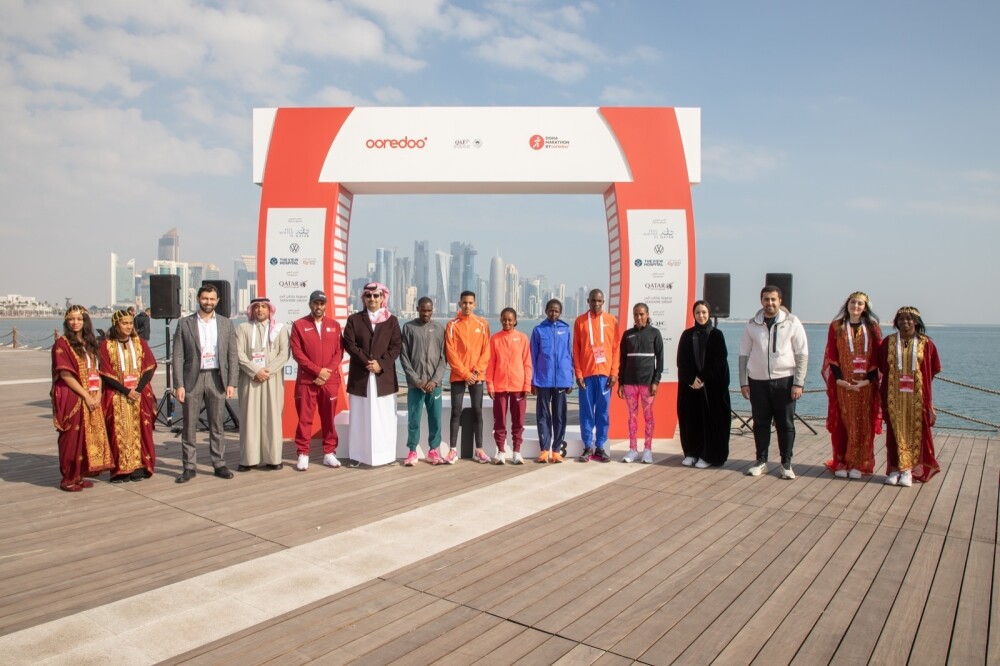
Morocco’s Mohcin Outalha crossed the finish line first in the men’s marathon in a time of 2:06:49, with Kenyan Gevin Kerich taking second place with 2:06:52 on the clock.
Kenyan Victor Kipchirchir and Ethiopian Adane Kebede finished in joint third place, registering a time of 2:06:54.
Ethiopian Meseret Belete took the top spot in the women’s marathon, clocking 2:20:45, with Desi Jisa Mokonin from Brunei finishing in second place with a time of 2:20:47. Kenyan Beatrice Cheptoo placed third with a time of 2:22:28.
In the open marathon category, the men’s race was won by Briton Michael Kallenberger with a time of 2:23:02, while the USA’s Abigail Cember took the top spot in the women’s race, clocking at 3:04:00.
Qatari runners were once again able to enter the AlAdaam category this year. Abdulla Fahad Al Zarra won the men’s marathon with a time of 2:48:21, while Rabaah Al Musleh finished first in the women’s marathon with a time of 3:50:55.
The men’s half marathon was won by Morocco’s Anouar El Ghouz in a time of 1:03:23, with Ukrainian Tetiana Pydoyna winning the women’s half marathon in 1:08:53.
Mohammed Issa Al Fadalah, President of the Qatar Athletics Federation, said:
“We extend our thanks to Ooredoo for once again hosting a phenomenal marathon that is consistently a highlight of Doha’s sporting calendar. Events such as these demonstrate Qatar’s suitability as the ideal venue for major sporting events, and this is only reinforced by the number of top international athletes who travel here to take part. We were delighted to see such an incredible turnout, and congratulate all runners on their sterling performances.”
A total prize fund of QR1 million was on offer across all categories, with event sponsor Q-Auto also offering a Volkswagen T-Roc as a raffle prize to one lucky winner drawn from all those who finished their race in the 5km category and above.
Sheikh Ali Bin Jabor Al Thani fired the starting gun for the Elite category and honored winners with their medals. Sabah Rabiah Al-Kuwari, Director PR at Ooredoo, joined QAF President Mohammed Issa Al Fadalah to present medals to winners in the other categories.
Spectators were able to enjoy the electric atmosphere from the many vantage points along the runner-friendly route, with the race village offering several food and beverage options and plenty of fun to be had by all.
Platinum sponsors for the Doha Marathon by Ooredoo 2023 were confirmed as Qatar Tourism, Q-Auto and Holding Group, with Qatar Airways and Seashore as Gold sponsors. Silver Sponsors are Al Rayyan Water, Aspetar, QIC, and Qommunication.
In line with Ooredoo’s commitment to supporting the community, all funds generated from registration fees for the 2023 Doha Marathon by Ooredoo will be donated to charitable organizations.
Login to leave a comment
Ooredoo Doha Marathon
The Ooredoo Doha Marathon was created to bring the community together, inspire healthier lifestyles, and contribute to impactful charitable causes in Qatar. This annual event is a celebration of fitness, unity, and giving back, attracting participants of all ages and abilities. All proceeds from entry fees are donated to a variety of local charities, ensuring that every step taken supports...
more...Kenya’s Edna Kiplagat upgraded to 2021 Boston Marathon champion
Edna Kiplagat of Kenya has officially become a two-time Boston Marathon champion. The BAA elevated Kiplagat to 2021 Boston Marathon winner on Tuesday after the Athletics Integrity Unit (AIU) handed down a six-year suspension to former 2021 champion Diana Kipyokei. Kipyokei tested positive for triamcinolone acetonide (a corticosteroid)–a banned anti-inflammatory substance–post-race in Boston.
Kipyokei was also suspended for providing misleading information in her attempts to explain her use of the substance, including “fake documentation which she alleged came from a hospital,” according to the AIU. Kipyokei’s provisional suspension was announced Oct.14, but began on June 27 and her six-year ban has been backdated to June.
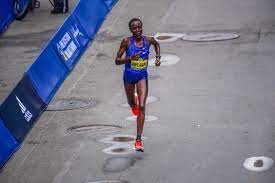
Kiplagat is now a two-time Boston Marathon champion, after winning the race in 2017 (she also ran to second in 2019). Kiplagat, 43, is widely regarded as one of the all-time greats in distance running.
Dubbed the “Queen of Persistence,” Kiplagat has competed at both the Olympic and World championship marathons, taking gold twice at the World champs in 2011 and 2013, and silver in 2017. Kiplagat has run all six of the Abbott World Marathon Majors.
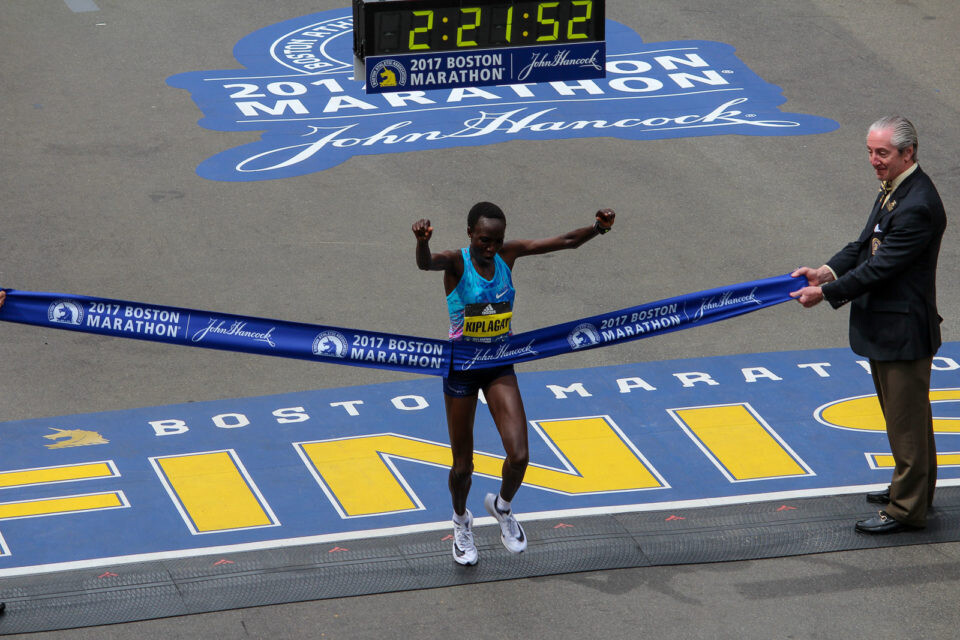
The Colorado-based athlete won the Abbott World Marathon Series VIII (2013–14) and was named the Series V (10–2011) champion following the disqualification of Russian athlete Liliya Shobukhova.
Kiplagat won both the London Marathon (2014) and New York Marathon (2010) with many second-place finishes. In 2021 she won the 7-mile (11.3 km) Falmouth Road Race, running away from the field in the second half of the race to break the tape in 36 minutes, 52 seconds.
by Keeley Milne
Login to leave a comment
Boston Marathon
Among the nation’s oldest athletic clubs, the B.A.A. was established in 1887, and, in 1896, more than half of the U.S. Olympic Team at the first modern games was composed of B.A.A. club members. The Olympic Games provided the inspiration for the first Boston Marathon, which culminated the B.A.A. Games on April 19, 1897. John J. McDermott emerged from a...
more...Molly Seidel returns to racing at BAA Half Marathon
Olympic bronze-medal marathoner and fan favorite Molly Seidel is back. Seidel jumped into the Boston Athletic Association’s (BAA) Half Marathon on Saturday, and in a post-race press interview shared that her 1:16:22 finish (16th woman) was “right in line with what I expected it to be.”
While Seidel said it was frustrating not to have been able to build the fitness she had wanted for the race, her priority had been making sure her health, both mental and physical, was strong enough to compete.
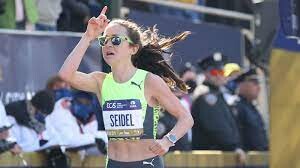
“Lots of nerves, but honestly just pumped to be back on the line in my favorite city,” she shared pre-race on social media, where the athlete has been a compelling force around mental health and eating disorder awareness for legions of fans.
With only two full weeks of running training before the race, Seidel said that while she knows she still has a long way to go, it’s nice to have a foundation of health to build on right now.
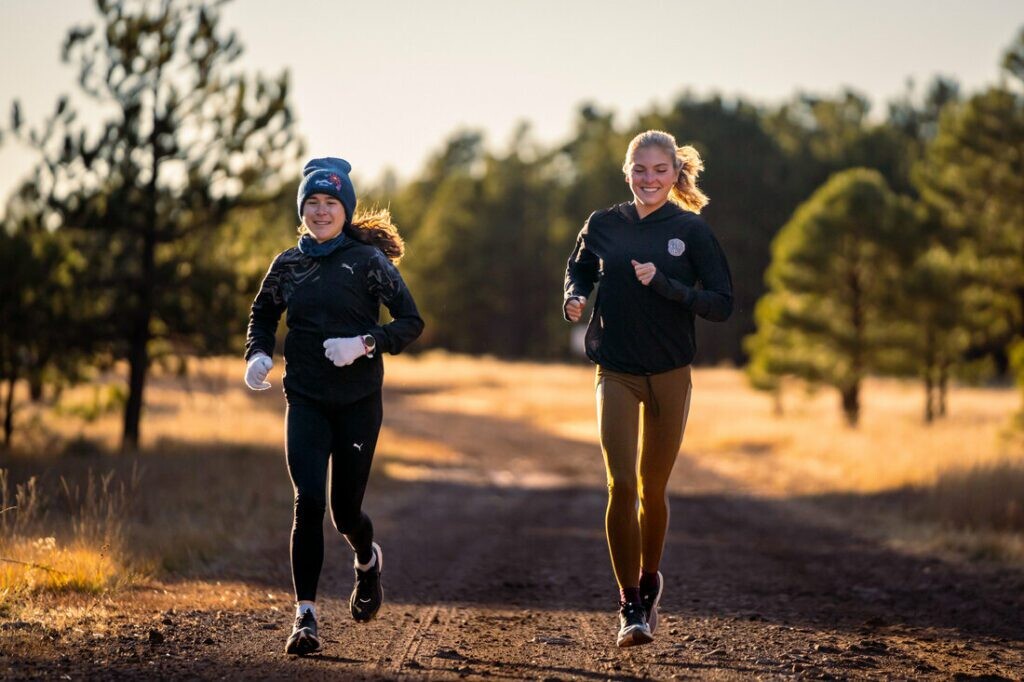
After pressing pause on competition pre-World championships in July due to a sacral stress reaction (later diagnosed as a full fracture), Seidel has courageously and candidly shared the ongoing mental health challenges she has been facing, discussing her eating disorder recovery on social media and stressing the importance of reaching out for help.
In February, the athlete was diagnosed with attention-deficit hyperactivity disorder (ADHD), and after having found some relief from the medication Adderall, dropped out of the NYC 10K Mini while waiting for a therapeutic use exemption (TUE) for the medication.
In October, Seidel went into further detail about the hurdles she was facing in an interview for Runner’s World, explaining that she had been dealing with a sense of shame after struggling throughout the summer with bulimia, a disease that she had first sought treatment for post-university and that she describes as “coming in waves.”
While Seidel felt pressure to be ‘cured’, eating disorder recovery is far from linear, and the athlete described an intense struggle after the 2022 Boston Marathon (where she was forced to drop out due to hip pain).
Seidel has also openly discussed her choices to step back from Strava and Instagram in the past year, and in sharing bravely about tough topics that are often hidden from view has undoubtedly given hope and courage to others facing similar personal challenges.
While the athlete hasn’t announced plans for her next event, fans and fellow athletes alike will be thrilled to see Seidel back in the racing game, looking healthy and happy.
by Keeley Milne
Login to leave a comment
B.A.A. Half Marathon
Dana-Farber and the Jimmy Fund have partnered with the B.A.A. in the Half Marathon for 13 years as the race’s presenting sponsor. Through this relationship, team members have collectively raised more than $5 million to support groundbreaking cancer research, and enabled Dana-Farber scientists and clinicians to positively impact the lives of cancer patients around the world. Dana-Farber runners often participate...
more...2022 B.A.A. Half Marathon Returns to Franklin Park on Sunday
The 2022 B.A.A. Half Marathon, presented by Dana-Farber Cancer Institute and the Jimmy Fund, will be held this Sunday, November 13, starting and finishing within Franklin Park. The event returns to an in-person format for the first time since 2019 and features a star-studded professional field leading the charge for 9,000 entrants from the Greater Boston area and beyond.
To support your coverage of this year’s event, please find event storylines and race information below. Media interested in covering the 2022 B.A.A. Half Marathon can submit credential requests here or email media@baa.org for more information. Credential pick-up will occur at the Media Tent within White Stadium on Sunday, beginning at 6:45 a.m. Additional details will be sent in the coming days to those who’ve requested credentials.
The B.A.A. Half Marathon will start at 8:00 a.m. this Sunday, November 13, from Franklin Park. The 13.1-mile course runs along the picturesque Emerald Necklace Park System, past area landmarks such as the Arnold Arboretum and Franklin Park Zoo, before finishing at White Stadium in Franklin Park. A detailed course map can be found here.
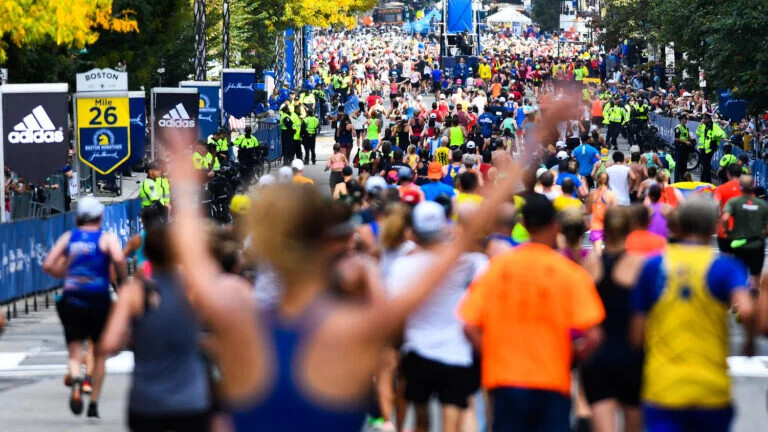
- Dana-Farber Cancer Institute and the Jimmy Fund has partnered with the B.A.A. Half Marathon since 2003 as the race’s presenting sponsor and exclusive charity team. Through this relationship, Dana-Farber runners have collectively raised more than $8 million to support groundbreaking cancer research, and enabled Dana-Farber scientists and clinicians to positively impact the lives of cancer patients around the world. A team of 400 athletes will be part of the Dana-Farber Cancer Institute and Jimmy Fund team for this year’s event, having already raised nearly $350,000 to defy cancer.
- At the front of the field, Olympic and Paralympic medalists, Boston Marathon champions, and top international contenders will square off in pursuit of finishing atop the podium. Among the notable professional athletes entered are Olympic marathon bronze medalist and former Boston resident Molly Seidel, two-time Boston Marathon champions Lelisa Desisa and Daniel Romanchuk, and USA Olympian and former American half marathon record holder Molly Huddle.
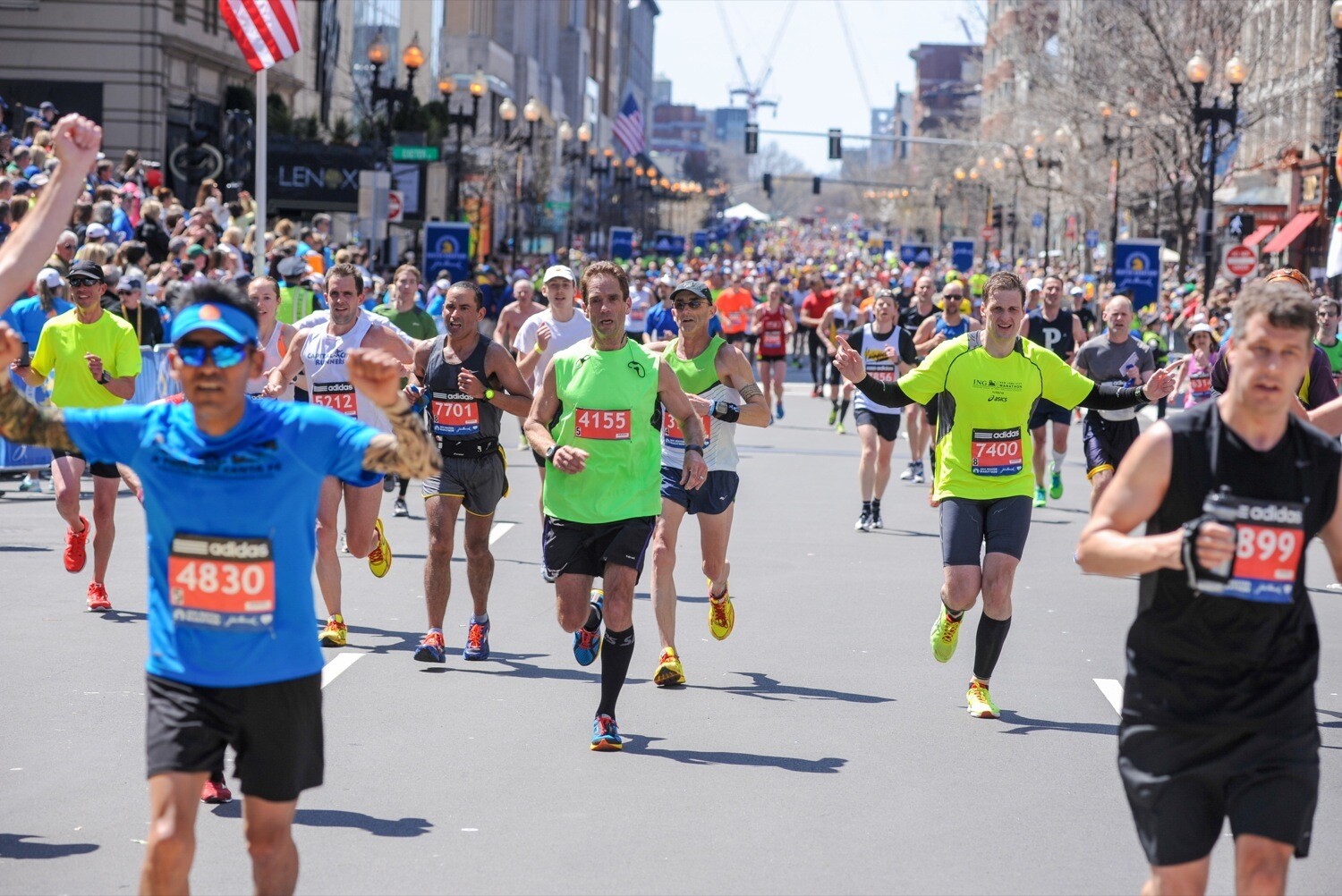
Seven women who’ve run under 1:08:30 and nine men with lifetime bests under 1:01:30 will compete on the roads of Boston. Desisa is also a two-time B.A.A. Half Marathon champion and the event record holder (1:00:34). Romanchuk aims to become the first athlete in history to podium at each of the B.A.A.’s four signature events (B.A.A. 5K, B.A.A. 10K, B.A.A. Half Marathon, and Boston Marathon). On Sunday he finished second at the TCS New York City Marathon in 1:27:38.
- For the first time, the B.A.A. Half Marathon will feature a Para Athletics Division showcasing athletes with lower-limb, upper-limb, and visual impairments. Competitors include Jacky Hunt-Broersma (T64, lower-limb impairment), who finished a Guinness World Record 104 marathons in 104 days this year; Marko Cheseto Lemtukei (T62, lower-limb impairment), who won the Para Athletics Division at the 2021 and 2022 Boston Marathons (timing 2:37:01 in April) and Brian Reynolds (T62, lower-limb impairment), who has run a world best 1:17 for the half marathon. The B.A.A. Half Marathon course is World Para Athletics record eligible, signaling that national or world records may be in jeopardy of falling on race day for wheelchair and Para athletes.
- Among the field of nearly 9,000 participants are 257 athletes also entered in April’s 127th Boston Marathon. Participants in this year’s B.A.A. Half Marathon are from 46 U.S. states (plus Washington, DC) and 95 countries.
- 1,418 participants are aiming to complete the 2022 B.A.A. Distance Medley, a three-race series which includes April’s B.A.A. 5K, June’s B.A.A. 10K, and November’s B.A.A. Half Marathon. The B.A.A. Distance Medley series provides athletes a year-long way to experience training and racing at three different distances, with the aim of improving fitness throughout the calendar year.
- The B.A.A. Half Marathon is a family-friendly event for athletes and spectators of all ages. Free youth events will be offered on race morning within Franklin Park, including races and medals for all. Youth track races will begin on the White Stadium track at 8:20 a.m. Registration will open at 7:00 a.m. on Sunday.
- Spectators and runners are encouraged to download the B.A.A. Racing App powered by TCS for live race day tracking, leaderboards, results, custom selfie stations, course maps, information, and more. The B.A.A. Racing App is available for free within Apple iOS and Android.
- On display for viewing at the 2022 B.A.A. Half Marathon will be an Indigenous Peoples' Day Banner, created by Boston Art Institute alum Yatika Fields (Osage/Cherokee/Creek) which honors the Boston Marathon's Indigenous runners, past and present. Following the Awards Ceremony on race day, the banner will be blessed as it is sent from Boston to its home with Wings of America in Albuquerque, New Mexico, where it will inspire young Native runners.
The blessing will be given by Hiawatha Brown (Narragansett), the longest serving Tribal Councilman, a Veteran of the United States Navy, and the nephew of two-time Boston Marathon Champion, Ellison 'Tarzan' Brown. Words will be offered from Robert Peters, a Mashpee Wampanoag artist who contributed his talent to the mural, on behalf of himself, Yatika Fields, and Wings of America Executive Director, Dustin Martin (Dine). Also in attendance will be Jordan Marie Daniel (Kul Wicasa Lakota) who is participating in the 2022 B.A.A. Half Marathon and is featured on the banner.
- A prize purse of $96,200 is available for professional athletes in the open, wheelchair, masters, and Para Athletics Divisions.
- Course records for the B.A.A. Half Marathon are:
Open Men: 1:00:34, Lelisa Desisa (Ethiopia), 2013 (Lelisa Desisa is competing in this year’s race, aiming to win his third B.A.A. Half Marathon title)
Open Women: 1:07:40, Brillian Kipkoech (Kenya), 2019
Wheelchair Men: 53:07, Tony Nogueira (New Jersey), 2008 and 2004
Wheelchair Women: 1:00:43, Katrina Gerhard (Massachusetts), 2019.
Login to leave a comment
B.A.A. Half Marathon
Dana-Farber and the Jimmy Fund have partnered with the B.A.A. in the Half Marathon for 13 years as the race’s presenting sponsor. Through this relationship, team members have collectively raised more than $5 million to support groundbreaking cancer research, and enabled Dana-Farber scientists and clinicians to positively impact the lives of cancer patients around the world. Dana-Farber runners often participate...
more...Lelisa Desisa, Vicoty Chepngeno, Molly Seidel, Molly Huddle Running 2022 BAA Half
The Boston Athletic Association today announced the professional field for the 2022 B.A.A. Half Marathon, presented by Dana-Farber Cancer Institute and the Jimmy Fund, to be held on Sunday, November 13.
Two-time Boston Marathon champions Lelisa Desisa and Daniel Romanchuk return, while 2021 Olympic Marathon bronze medalist Molly Seidel and two-time Olympian Molly Huddle lead the American charge. Seven women who’ve run under 1:07:30 and nine men with lifetime bests under 1:01:30 will compete on the roads of Boston.
The B.A.A. Half Marathon will be run for the first time in-person since 2019, beginning and finishing in Boston’s Franklin Park. The event begins at 8:00 a.m. with a field of nearly 9,000 participants. Open registration is already sold out, however entries remain available through presenting sponsor Dana-Farber Cancer Institute and the Jimmy Fund.
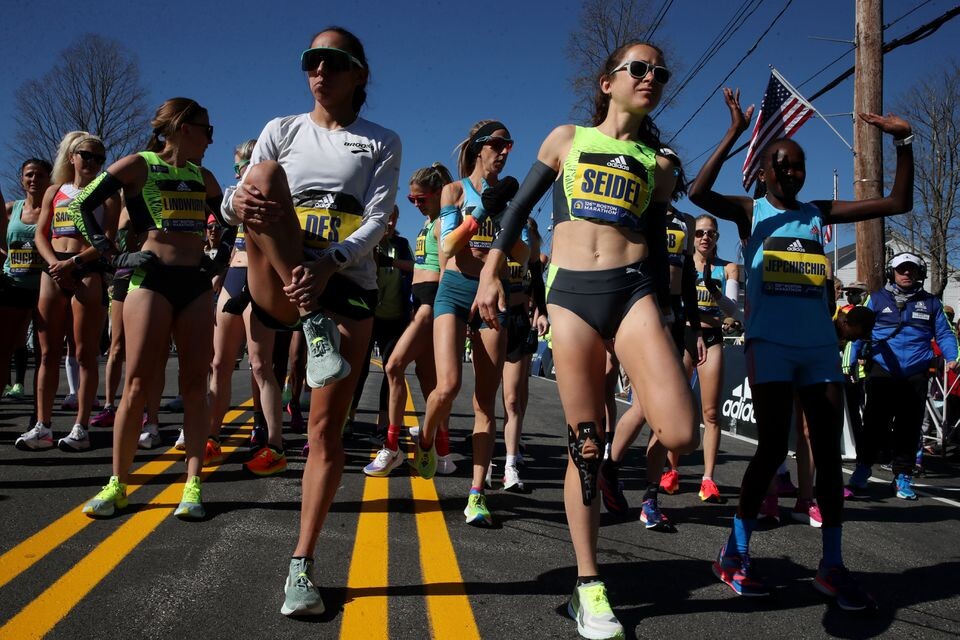
Seidel, a former Boston resident, will make her B.A.A. Half Marathon debut as she returns to racing. The 2:24:42 marathoner and former NCAA champion at Notre Dame finished fifth at the 2018 B.A.A. 5K and 10th at the 2019 B.A.A. 10K.
Huddle, a 28-time USA national champion, will race at the B.A.A. Half eight years after placing third in 2014. B.A.A. High Performance team member Erika Kemp –a two-time USA national champion at 20K and 15K— will also compete among the strong American field, fresh off a win at the Boston 10K for Women on October 8.
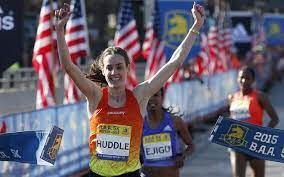
“The B.A.A. Half Marathon is always a fun fall event, and I’m eager to race again through Boston with hopes of returning to the podium,” said Huddle.
The international women’s contingent is led by 2022 Houston Half Marathon winner Vicoty Chepngeno of Kenya, who owns the fastest lifetime best (1:05:03), though is followed closely by Ethiopia’s Bosena Mulatie (1:05:46). Mulatie was eighth at the 2022 World Athletics Championships 10,000m in Oregon over the summer. Other athletes with world championships experience include Kenya’s Margaret Wangari and Cynthia Limo, and British duo Jess Piasecki and Calli Thackery. Wangari earned a silver medal at the 2022 Commonwealth Games Marathon, and placed fifth at the B.A.A. Half Marathon in 2018. Limo is the 2016 World Half Marathon Championships silver medalist.
On the men’s side, Desisa, winner of the Boston Marathon in 2013 and 2015, owns a pair of B.A.A. Half Marathon titles from 2013 and 2014, as well as the event record (1:00:34). The Ethiopian fan favorite is also the event record holder (1:00:34), and considers Boston his second home.
“Boston holds a special place in my heart and I’m excited to return again to race in the B.A.A. Half Marathon, where I have had great success before,” said Desisa. “I hope to run very well again!”
Kenyans Josphat Tanui (59:22) and Shadrack Kimining (59:27) have the two fastest personal bests in the field, which includes five men who have run under one hour for the half marathon. Geoffrey Koech, the 2022 Cardiff Half winner, and Ethiopian Tsegay Kidanu, 11th at the Copenhagen Half Marathon, are competing, as is Morocco’s Zouhair Talbi, the third-place finisher at the 2022 B.A.A. 5K. The top American entrant is Teshome Mekonen, who formerly represented Ethiopia internationally, has run 1:00:02, and won this year’s Brooklyn Half.
Daniel Romanchuk, two-time Boston Marathon wheelchair division champion and 2019 B.A.A. 10K winner, looks to win his first B.A.A. Half title, joined by Boston Marathon top-20 finishers Hermin Garic, Dustin Stallberg and Velera Jacob Allen. Jenna Fesemyer and Yen Hoang, both 2021 Paralympians for Team USA, will race as well. Fesemyer won this year’s B.A.A. 5K.
“I’m very much looking forward to racing the B.A.A. Half Marathon for the first time,” said Romanchuk, who finished runner-up at the Chicago Marathon on October 9. “I’ve raced the Boston Marathon, B.A.A. 5K, and B.A.A. 10K, and am excited to add the Half Marathon. I can’t wait to be back in Boston.”
For the first time, the B.A.A. Half Marathon course will be World Para Athletics certified, eligible for world or national records to be set by Para athletes. Marko Cheseto Lemtukei (T62), Brian Reynolds (T62), and Jacky Hunt-Broersma (T64) each have Boston Marathon Para Athletics Divisions experience and are eligible for prize money.
Login to leave a comment
B.A.A. Half Marathon
Dana-Farber and the Jimmy Fund have partnered with the B.A.A. in the Half Marathon for 13 years as the race’s presenting sponsor. Through this relationship, team members have collectively raised more than $5 million to support groundbreaking cancer research, and enabled Dana-Farber scientists and clinicians to positively impact the lives of cancer patients around the world. Dana-Farber runners often participate...
more...Some races are down since the pandemic took charge of road racing for a couple of years but there is some good news
Even marquee events have seen declines of 25 percent or more between 2019 and 2022.
Across the country, many road races are returning after the COVID-19 pandemic forced them into a two-year hiatus. But runners haven’t yet come back to those events in the same numbers as they were turning out in 2019.
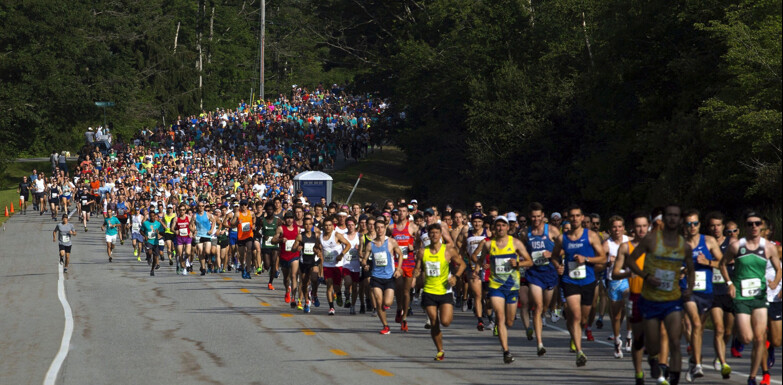
A few examples from the first eight months of 2022:
The BAA 10K in June had 5,144 finishers, down from 8,003 in 2019, a decrease of 35 percent.
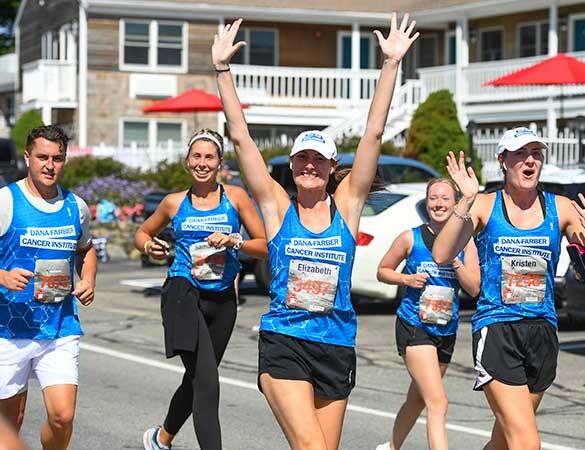
The Utica Boilermaker 15K in July had 5,848 finishers, which was up from 2021, when it had 3,480, but down from the 2019 tally of 11,194, for a three-year decrease of 47 percent.
In Colorado, the Cherry Creek Sneak, a 5K, 5-miler, and 10-miler in Denver, had its final running in 2022 after 40 years. Combined participation in the three events had already been falling before the pandemic, and it fell an additional 38 percent between 2019 and 2022 (from 3,390 finishers to 2,092).
Larger, well-known events haven’t been immune from the declines. The Cherry Blossom Ten Mile Run in April in Washington, D.C., had 2,700 fewer runners, for a decline of 15 percent.
The Falmouth Road Race in Massachusetts and the Beach to Beacon 10K in Cape Elizabeth, Maine, two popular destination summer road races, saw declines of 24 percent and 16 percent, respectively. The town of Falmouth reduced the field size of the race to 10,000 runners this year (from its usual 12,800) but only 8,610 finishers appear in the results.
Jean Knaack, CEO of the nonprofit Road Runners Club of America, wrote in an email to Runner’s World, “We are seeing a slow recovery in 2022, and we are tracking with participation data showing about 84 percent return.”
Why aren’t runners coming back to events? Industry experts cited many theories:
The economy: “I think inflation will be a factor for 2023 as events plan and people pick what events they can afford to run,” wrote Knaack. The cost of travel to races—for flights, hotels, rental cars, gas—has gone up. So, too, have race entry fees for many events, especially for runners who wait until the last minute to register.
Competing events: Long-postponed weddings are back on. So are family vacations. The annual road race might need to take a back seat this year.
COVID concerns: Many runners worry about contracting COVID at a race, or they get sick at an inopportune time, keeping them from the starting line.
Shifting priorities: Erin Vandenberg, 42, for years raced at least monthly, often more, at distances from 5K to the marathon. Running a race with coworkers and then getting drinks after in downtown Chicago was a common occurrence. But she always felt a certain pressure to be training hard and performing well, worried what the time read on the clock at the finish.
Since the pandemic, she has taken a new approach to running. “I want to enjoy it; not stress myself out about it,” she said. “I don’t know that getting up at 5 a.m. to hit a certain pace and worry whether I’m fueling correctly is how I want to spend my time.”
Vandenberg has run three races in 2022—including one with her dog.
Not every race is down. Michelle La Sala, president of race management company Blistering Pace, says two of the events her company works on—the Big Sur Marathon and the Napa Marathon—have emerged largely unscathed from the pandemic. Big Sur was down only 240 runners (6.8 percent) and registration is tracking strongly for 2023. Same for Napa, which “should grow significantly this year,” La Sala said.
The bigger “bucket list” marathons, with a few exceptions, are not having any problems at all, she said, while smaller, regional races, without a compelling point of differentiation, are “on the struggle bus.”
Grandma’s Marathon along Lake Superior in Minnesota was off only 6.4 percent in 2022 from its 2019 tally, and well up from 2021. The Eugene Marathon, in May in Oregon, and the Missoula Marathon, in June in Montana, were both well ahead in finisher numbers, although many might have been deferred entries from the cancellations of 2020 and 2021. Vandenberg has a deferred entry from the Chicago Marathon in 2020, and she plans to use it in 2023.
John Mortimer, owner and founder of Millennium Running in Bedford, New Hampshire, sounded an optimistic note as well. Millennium has 30 of its own events of varying distances, manages and times others, and it has a running store. Sales are strong at the retail location, showing him that people continue to walk and run, even those who took it up during the pandemic.
And race participation in Millennium events continues to be robust, in part, because the company developed a time trial start system during the pandemic as an alternative to a mass start race. For many months, they had the only events happening in New England.
The company kept in frequent contact with runners and tried to make the race experience safe and convenient for them. They continue to offer the option to make any race a virtual race, up until the last minute, if runners would otherwise have to be a no-show at an event—thereby ensuring the runners would at least be mailed their tee shirts and medals.
That policy will continue, Mortimer said. “Every week we’re shipping out apparel and medals and bibs,” he said. “We’re trying to make it easy for the participant to be a part of the running community.”
The effort aimed at keeping relevant has paid off, Mortimer said, and registrations for most of the company’s events haven’t declined. The same can’t be said, he knows, for races that have been off for two years.
For them, “It’s out of sight, out of mind,” he said. “People have moved on.”
by Runner’s World
Login to leave a comment
Boston Marathon creates nonbinary division for 2023 race
Nonbinary athletes will be able to run in next year's Boston Marathon without having to register as members of the men's or women's divisions, race organizers announced Monday.
The Boston Athletic Association, which administers the prestigious marathon, said it's been working to expand opportunities for nonbinary people — not just for the marathon but for the BAA's other races, which include a 5K, a 10K and a half marathon.
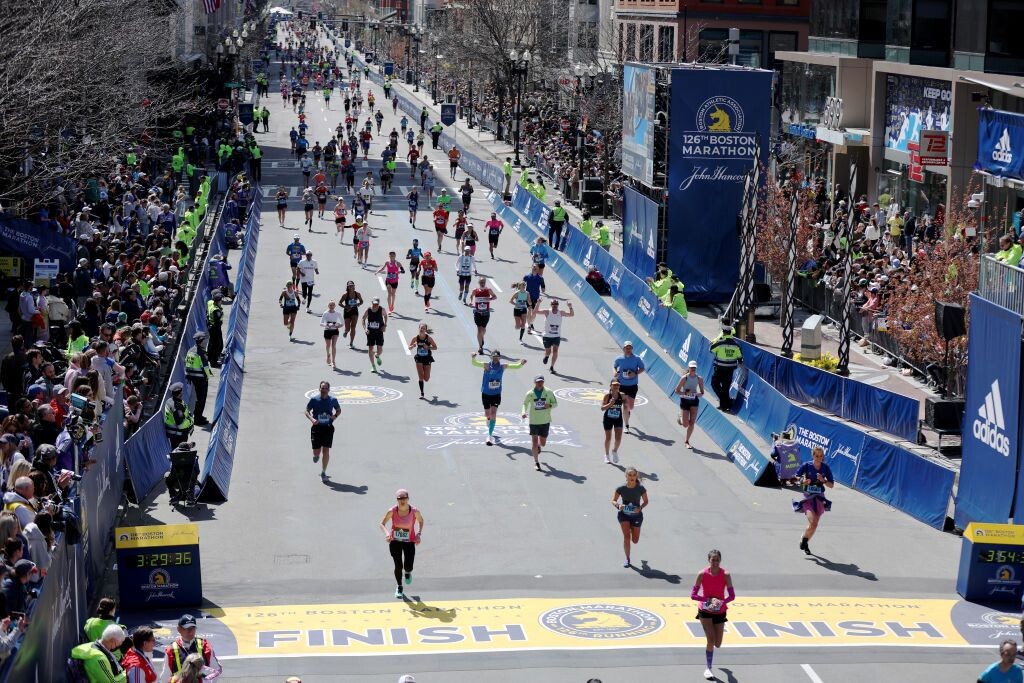
Organizers confirmed the change as registration opened Monday for the 127th running of the marathon on April 17, 2023. A field of about 30,000 is expected for next spring's edition of the storied race.
Nonbinary athletes can submit entry applications if they've completed a marathon as a nonbinary participant during the current qualifying window, the BAA said. It said it's still working to establish qualifying standards for nonbinary participants, but that its online applications will include 'nonbinary' as a gender option.
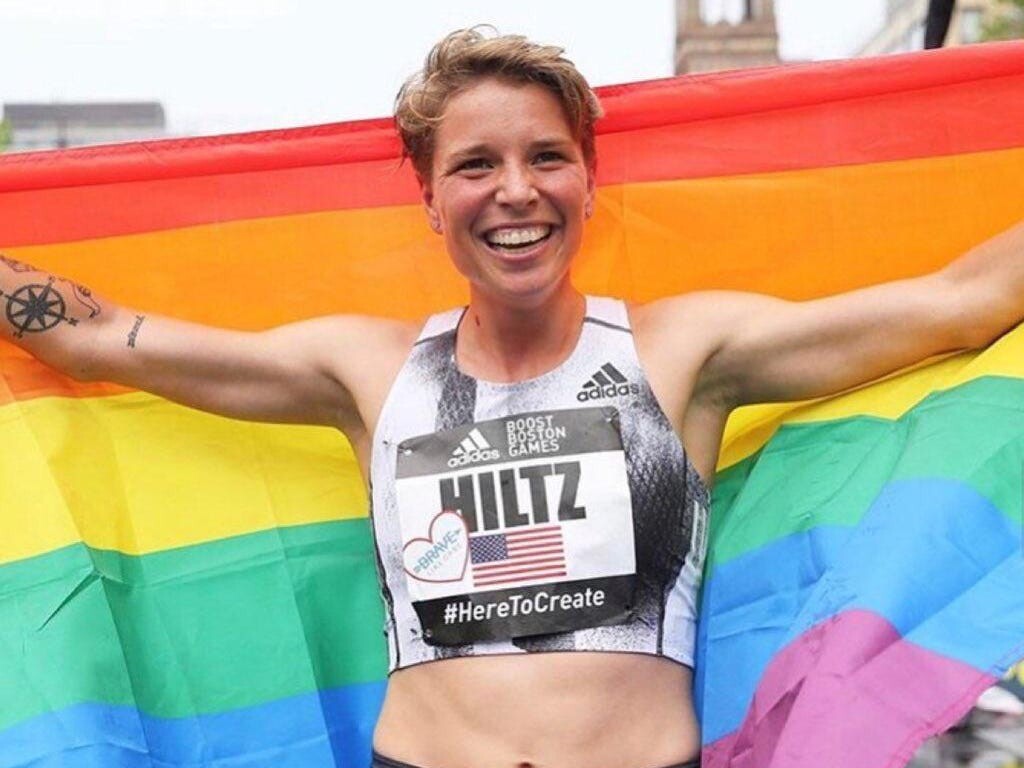
"Discussions are ongoing with nonbinary athletes in an effort to further promote inclusion at all BAA events,' the organization said, adding, 'We view this first year as an opportunity to learn and grow together.'
Nonbinary pro miler and 1,500 runner Nikki Hiltz, who came out as transgender last year and narrowly missed a spot on the US team for the Tokyo Olympics, lauded the move.
'There's still so much work to be done but I'm thrilled that nonbinary runners are being acknowledged by the Boston Marathon and BAA,' Hiltz tweeted.
One Twitter user wrote that he saw the decision as a 'good compromise' on the issue of gender divisions in sports, but others disagreed with the move.
'I'm sure no one will abuse this,' another Twitter user remarked sarcastically. 'Especially for a race that is notoriously tough to get qualified for.'
The Boston Marathon is the latest major marathon to begin adding nonbinary divisions.
Last year's Philadelphia Distance Run, a premier event offering a half marathon and a 5K, became the first large race in the US to establish a nonbinary division and offer equal prize money.
The Brooklyn Marathon and Half Marathon followed in April. Eighty-two competitors who had registered as nonbinary participants were among the finishers, including Jacob Caswell, a middle-distance runner for Columbia University.
'Being able to not even win but just compete as yourself, it's just been freeing,' Caswell, who won the nonbinary division in Brooklyn, told The New York Times.
by Alex Raskin
Login to leave a comment
Boston Marathon
Among the nation’s oldest athletic clubs, the B.A.A. was established in 1887, and, in 1896, more than half of the U.S. Olympic Team at the first modern games was composed of B.A.A. club members. The Olympic Games provided the inspiration for the first Boston Marathon, which culminated the B.A.A. Games on April 19, 1897. John J. McDermott emerged from a...
more...John Hancock dropping Boston Marathon sponsorship after 2023 race
Insurance company John Hancock is saying goodbye to its role as sponsor of the Boston Marathon after nearly four decades.
It's a relationship that the company said helped to raise $426 million for charity over 37 years. The contract will end after the 127th running of the iconic marathon, which is scheduled for April 17.
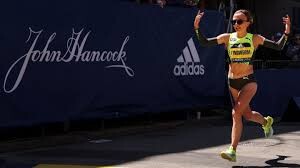
"Our contract with the Boston Athletic Association (B.A.A.) was expiring in 2023 and after careful review we have chosen not to renew our principal sponsorship of the Boston Marathon after next year’s race," a John Hancock spokesperson said in a statement. "We are honored to have served as a steward for this historic race and thank the B.A.A. for their continued partnership over the years. We are looking forward to the 2023 race as principal sponsor and will work with the B.A.A. to ensure a smooth transition to its next partner."
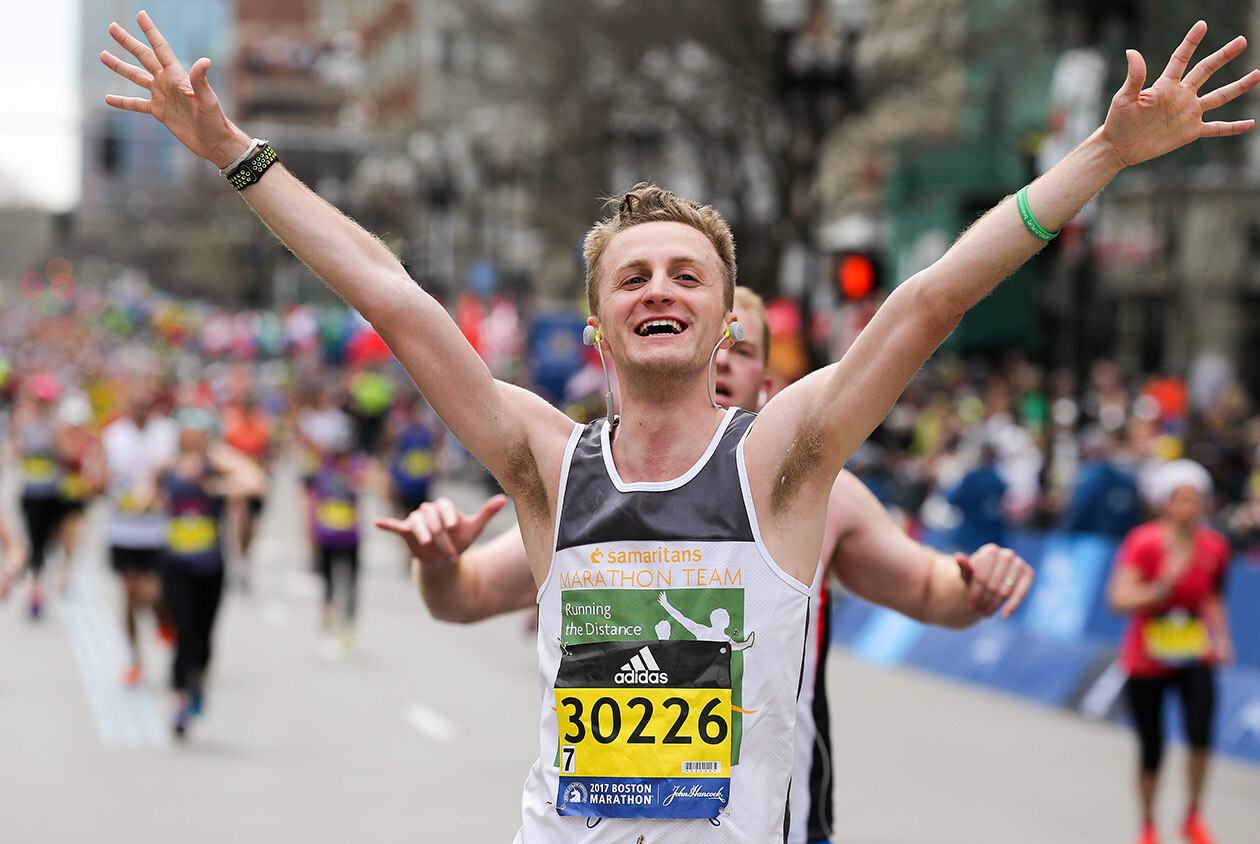
"The B.A.A. thanks John Hancock for 37 years of partnership, and we continue to work hand in hand in advance of next April’s 127th Boston Marathon," BAA officials said in a written statement. "We're excited to find our next Boston Marathon principal sponsor, and look forward to partnering with an organization who shares our passion for athletic excellence, community engagement, and growing the Boston Marathon to new heights."
John Hancock is also on the verge of ending another decades-long partnership with an iconic Boston institution. The company's lighted sign over the Fenway Park outfield will be coming down at the end of this season, as that 30-year partnership comes to an end.
Starting in 2023, coverage of the annual Massachusetts Patriots' Day race from Hopkinton to Boylston Street will be handled locally by WCVB Channel 5 and nationally by ESPN.
Full statement from the BAA:
"John Hancock has served as principal sponsor of the Boston Marathon for nearly four decades, helping to make the Boston Marathon the global and iconic race it is today. Together with the B.A.A., John Hancock has helped elevate all aspects of our event, from world-class professional athletes to fundraising for hundreds of non-profit programs. The B.A.A. thanks John Hancock for 37 years of partnership, and we continue to work hand in hand in advance of next April’s 127th Boston Marathon.
"At the B.A.A., our commitment to expanding events and creating more running opportunities has never been greater. We're excited to find our next Boston Marathon principal sponsor, and look forward to partnering with an organization who shares our passion for athletic excellence, community engagement, and growing the Boston Marathon to new heights. For 126 years, the Boston Marathon has been the world’s preeminent and most historic marathon. We're enthusiastically eager to embark on the next generation of Boston Marathon partnership."
Login to leave a comment
Boston Marathon
Among the nation’s oldest athletic clubs, the B.A.A. was established in 1887, and, in 1896, more than half of the U.S. Olympic Team at the first modern games was composed of B.A.A. club members. The Olympic Games provided the inspiration for the first Boston Marathon, which culminated the B.A.A. Games on April 19, 1897. John J. McDermott emerged from a...
more...Bahamian athlete Sprinter Shavez Hart killed in Abaco
The track and field community of The Bahamas was hit hard over the weekend as it lost one of its own to a senseless act on his home island of Abaco in The Bahamas.
According to a police report, Shavez ‘Sparky’ Hart, one of the best all-around sprinters in Bahamian history, was gunned down shortly after 2 a.m. on Saturday morning near a business establishment situated in Mount Hope, North Abaco.
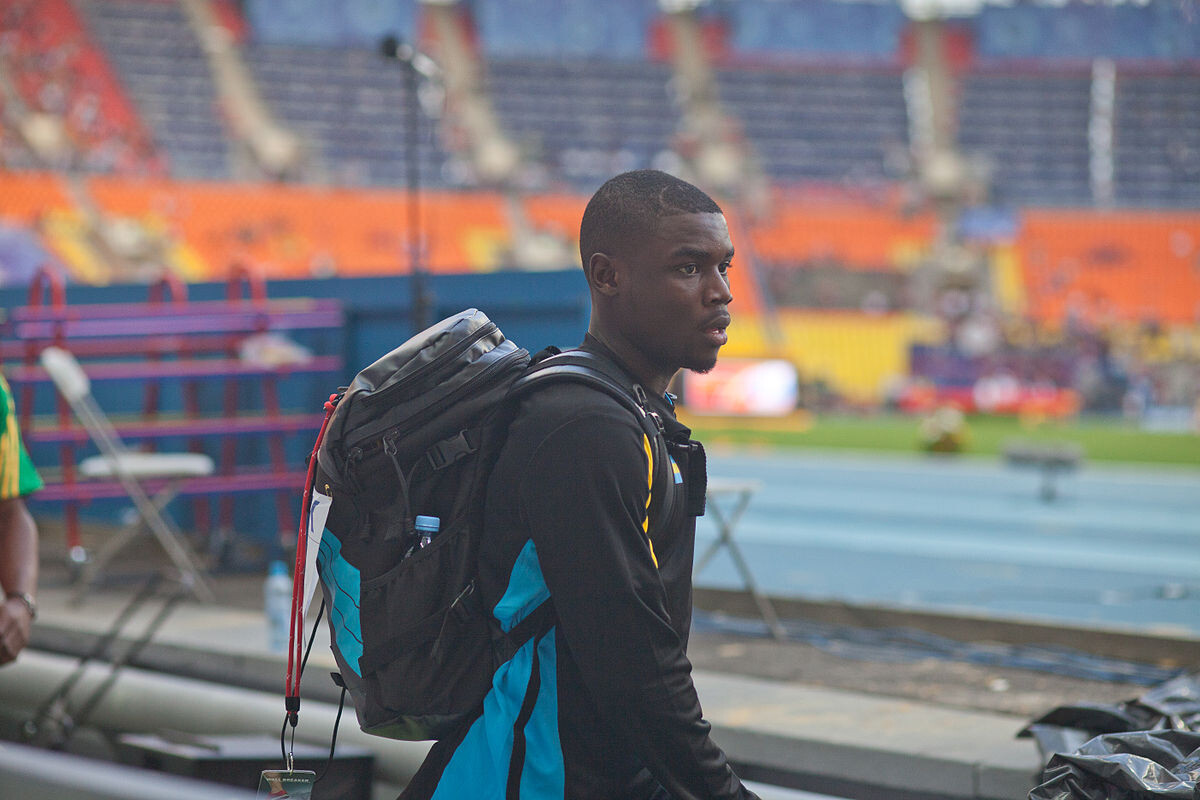
Hart, just three days short of his 30th birthday, represented The Bahamas at all levels of track and field, reaching as high as the world championships and the Olympic Games. He had personal best times of 10.10 seconds and 20.23 seconds in the 100 and 200 meters (m) respectively, and was a formidable 400m runner as well, thereby setting his mark as one of the best 100-200-400 combo runners in Bahamian history. Indoors, he had personal best times of 6.60 seconds in the 60m and 20.57 seconds in the 200m.
Hart was more known for his accomplishments in the short sprints, but it’s actually in the 400m, as a part of a relay squad, in which he achieved his most prestigious medal. Stepping in with two of The Bahamas’ ‘Golden Knights’, Chris ‘The Fireman’ Brown and Michael Mathieu, Hart won a silver medal in the men’s 4x400m relay at the 16th International Association of Athletics Federations (IAAF) World Indoor Championships in March 2016 in Portland, Oregon, United States. Hart teamed up with Brown, Mathieu and Alonzo Russell, and they ran a national record time of 3:04.75 for the silver medal.
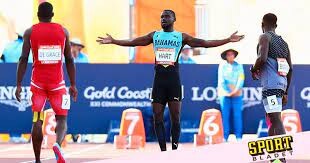
Hart never really reached his full potential on the senior side at global meets, but his times have him listed in the top five in Bahamian history in the short sprints. He is at number four in the 100m and tied for fifth with another of the ‘Golden Knights’, Demetrius Pinder, in the 200m.
According to the police report, a group of men were involved in a physical altercation in the parking lot of a local night club on North Abaco early Saturday morning. One of the men left, returned with a firearm and discharged the weapon, shooting Hart in the chest. EMS (Emergency Medical Services) attended to the victim and found no signs of life. He was later transported to the Marsh Harbour Clinic where he was seen and examined by a doctor and pronounced dead. The report continued, stating that the suspect in this matter was later arrested and taken into police custody, and that investigations are continuing.
Shavez’s mother said her son was trying to defuse an altercation between two men when he was caught in the middle and shot. It was reported that the subject attempted to shoot another man and ended up shooting Hart.
“He was such a good son – very quiet and always helpful,” said his mother Shammaine Hart. “He did a lot of work in the community and was always trying to give back. I will certainly miss him.”
Hart was well-loved in local track and field circles.
Speaking from Europe where she is busy running on the circuit, Anthonique Strachan who represents the athletes locally, and who was just elected as a Member-at-Large for the North American, Central American and Caribbean Athletic Association (NACAC) Athletes’ Commission, said she is devastated by the news.
“This is just too much. Shavez was the sweetest, most kind-hearted person you would ever meet. He was dedicated in everything he did and he was a guy who wore his heart on his sleeve even though he showed minimal emotions,” said Strachan. “I’m still very shocked. I wish the best for his son and his family and will continue to pray for them during this most difficult time. His son, who I believe hasn’t turned one yet, will never really get to experience his father – just knowing what is told to him. He will never get to see the great person that his dad was, and how driven and dedicated his father was in everything that he put his mind to – from school, to sports to becoming an entrepreneur.
“It’s very hard to grasp that something like this happened. Condolences to his mom, his dad, his son and his entire family. This is so heart-wrenching and so sickening. There are a lot of innocent people being killed and I hope the government does something to put a serious clamp on the gun violence that is happening in the country.”
Strachan said she last spoke to Hart via phone during the NACAC Championships in Freeport, Grand Bahama, in August, and he vowed to attend the event for the weekend but it never materialized. She said in speaking to the athletes, they have decided to make a donation to the family, setting up a GoFundMe account.
NACAC President and former BAAA President Mike Sands said he was saddened by the news of Hart’s unfortunate and unexpected demise.
“He was a great athlete who competed with true grit and determination. It was always a pleasure being in his presence,” said Sands. “He was a very humble and a mannerly young man who always greeted you with a smile. My condolences goes out to his immediate family and the wider track and field family. Let fond memories of ‘Sparky’ comfort us all during this difficult period. I also take this opportunity to urge everyone and our young men, in particular, to seek conflict resolution rather than violence that all too often ends tragically.”
by Sheldon Longley
Login to leave a comment
Molly Seidel Out, Keira D’Amato in for World Championships Marathon
Seidel said last month she had sought a therapeutic use exemption for Adderall, which is banned in competition.
Keira D’Amato, the American record holder in the marathon, was named to Team USA for the World Championships today, replacing Molly Seidel, according to multiple sources.
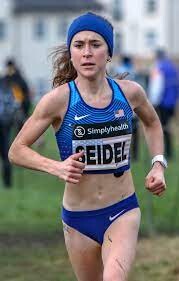
The women’s marathon at the World Championships, to be held in Eugene, Oregon, is on July 18.
Seidel, who won Olympic bronze last year in Sapporo, Japan, was named to the U.S. squad for the marathon based on that performance. But a hip impingement caused her to drop out of the Boston Marathon in April.
On June 8, Seidel, 27, posted to her Instagram account that she had been taking Adderall for ADHD since Boston. Adderall is banned for in-competition use by the World Anti-Doping Agency (WADA). Seidel wrote that taking the medication was “life changing,” and she was able to “get the quiet, functioning brain in my day-to-day life that I could previously only achieve with intense physical activity.”
Seidel had applied to WADA for a therapeutic use exemption (TUE) to be able to take the medication when she was competing, but it had not been granted before the New York Mini 10K—and it wasn’t clear if it would be granted—so she withdrew.
The reason why her spot is going to D’Amato is not clear, and Runner’s World sought clarification from Seidel, her coach, and her agent.
D’Amato, 37, has less than three weeks to prepare for a marathon, but she “is in great shape,” according to her agent, Ray Flynn. She ran 2:19:12 in setting the American marathon record in January in Houston.
She won the BAA 10K last Sunday on a hot day in 31:17. Her Strava training shows she did an 18-miler on June 27 and has been averaging 73 miles per week for the last four weeks. She’s also been racing frequently, finishing third at the New York Mini on June 11.
On June 21, Runner’s World asked D’Amato if, in light of Seidel’s post, she was doing marathon training and was told she was an alternate for the Worlds team. “No one has contacted me,” she said at that time.
Emma Bates and Sara Hall are the other two American women in the World Championships marathon. Galen Rupp, Elkanah Kibet, and Colin Mickow are the men.
USA Track & Field usually names its World Championships marathoners based on a descending order time list. But given many marathons were canceled or postponed in 2021, it announced it would pick top 10 finishers from the Games (Seidel and Rupp) and then top finishers from the Chicago, Boston, and New York City marathons last fall. That decision was controversial because the selection criteria were announced in October after the Chicago and Boston marathons had already taken place.
Login to leave a comment
Boston Marathon Champions & National Record Holders Headline Professional Field for 2022 B.A.A. 10K
The Boston Athletic Association (B.A.A.) has announced a star-studded field for the 2022 B.A.A. 10K, presented by Brigham and Women’s Hospital, to be held on Sunday, June 26. Evans Chebet, the 2022 Boston Marathon men’s open division champion, will return to Boston, while recently crowned American half marathon record holder Emily Sisson will lead the women’s field on the roads of Back Bay. Four-time B.A.A. 5K champion and American 5K record holder Ben True will also make his B.A.A. 10K debut.
The B.A.A. 10K starts and finishes on Charles Street adjacent to Boston Common and Boston Public Garden, and is widely regarded as one of the fastest 10K races in the world. Registration remains open at www.baa.org, while athletes interested in supporting Brigham and Women's Hospital, the B.A.A. 10K’s presenting sponsor and exclusive fundraising partner, are encouraged to visit www.runbwh.org/10k.
“We’re excited to continue to showcase the world’s most accomplished runners at our B.A.A. events,” said Mary Kate Shea, the B.A.A.’s Director of Professional Athletes and Technical Support. “We’re looking forward to cheering on all participants as they race towards the finish.”
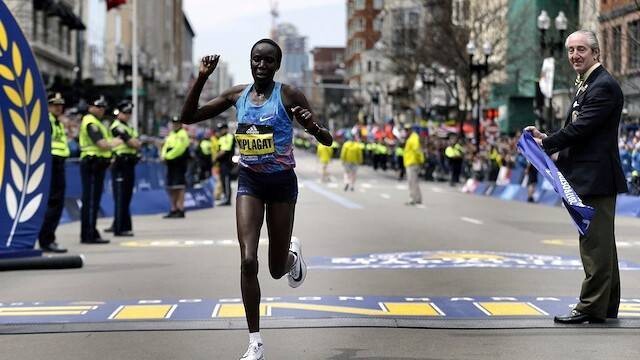
The B.A.A. 10K women’s race brings together Boston Marathon champions Des Linden (2018) and Edna Kiplagat (2017), American record holder Sisson, 2017 B.A.A. 10K winner Joan Chelimo Melly, 2022 Boston Marathon top American Nell Rojas, 2016 USA Olympian Marielle Hall, and USA 15K runner-up Emily Durgin.
Sisson, a Providence College graduate and 2021 Olympian, ran 1:07:11 on May 7 to win the USATF Half Marathon Championships in a new national record. She’s also the defending USA 15K champion.
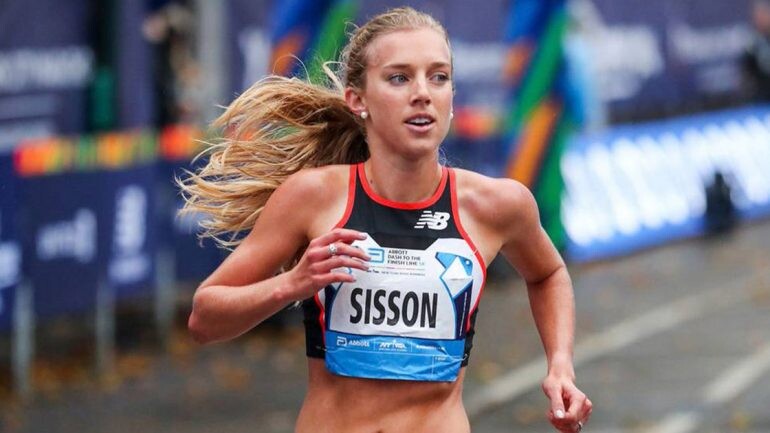
“Breaking the American record in the half marathon was very exciting and I'm now looking forward to switching things up and racing different distances,” said Sisson. “The 10K is a fun and different challenge and I always love racing in Boston.”
Additional international entrants include Biruktayit Degefa of Ethiopia, who has won a quartet of American road races this spring, and Kenya’s Sharon Lokedi, who placed third at the 2022 B.A.A. 5K in April. From the B.A.A. High Performance team are Erika Kemp and Abbey Wheeler; Kemp is a two-time national champion.
In the men’s race, Chebet looks to become only the second Boston Marathon champion to win the B.A.A. 10K, joining the likes of 2011 winner and course record holder Geoffrey Mutai. Chebet stormed to his first Boston Marathon victory in 2:06:51 on April 18.
“After winning the 2022 Boston Marathon, I’m excited to return to the city to run the B.A.A. 10K with a world class field,” said Chebet. “Boston feels like a second home to me now.”
Challenging Chebet from Kenya are David Bett, the reigning 2019 B.A.A. 10K winner; Kennedy Kimutai, the fastest man in the field with a 27:09 lifetime best; Bravin Kiptoo, the 2019 African junior 10,000m champion; and Nicholas Kosimbei, winner of this year’s Cherry Blossom 10 Miler in Washington, D.C. Brothers Jake and Zane Robertson, a dynamic pair from New Zealand who have lived and trained in Kenya, will also race. Recent Iowa State graduate and NCAA champion Wesley Kiptoo will make his Boston road racing debut.
Maine-native Ben True will return to familiar territory, having won the B.A.A. 5K four times, including a national-record setting run of 13:20 in 2017. Fellow American contenders include Olympians Leonard Korir and Shadrack Kipchirchir, Princeton, Mass.-native Colin Bennie, and a quartet of B.A.A. High Performance Team members in Jerrell Mock, Matt McDonald, Jonas Hampton, and Paul Hogan. Korir enters the B.A.A. 10K hot off a pair of national title wins at the USATF Half Marathon and USATF 25K Championships in May.
In the wheelchair division, Jenna Fesemyer, the 2022 B.A.A. 5K women’s winner, Susannah Scaroni, the 2022 Boston Marathon runner-up, and 2020 Paralympian Yen Hoang are entered. Scaroni earned a gold medal on the track at the 2021 Paralympic Games in the 5000m, and is the fastest women’s wheelchair marathoner in U.S. history. James Senbeta and Hermin Garic are the top men’s wheelchair entrants.
For the first time in race history, Para Athletics Divisions will be offered for athletes with upper-limb, lower-limb, and visual impairments. Among the entrants confirmed include Marko Cheseto Lemtukei, Chaz Davis, and Liz Willis, each of whom won Para Division titles at April’s 126th Boston Marathon. Jacky Hunt-Broersma, who ran 104 marathons in 104 consecutive days for a Guinness World Record, and local Para athlete Adrianne Haslet are also entered.
In addition to racing, top professional athletes will participate in the first-ever B.A.A. 10K Fest & Field Day on Saturday, June 25, one day prior to the race. From 2:00 p.m. to 6:00 p.m. at Boston Common, 10K Fest & Field Day will feature youth fitness activities, games, appearances by professional athletes, running clinics, and more. Participants will also be able to pick-up their participant shirts and bib numbers at 10K Fest. Additional details will be available on baa.org in the coming weeks.
Registration for the 2022 B.A.A. 10K, presented by Brigham and Women’s Hospital, is currently open through the B.A.A.’s online platform Athletes’ Village. All participants who enter will receive an adidas participant shirt, unique bib number, and finisher medal. Additional participant information can be found on baa.org. The race will start at 8:00 a.m. ET on Sunday, June 26 on Charles Street adjacent to Boston Common and Boston Public Garden.
Brigham and Women's Hospital, the B.A.A. 10K’s presenting sponsor and exclusive fundraising partner, will again field a team of fundraising runners. Since 2016, more than 2,100 runners and 180 teams have raised $1.2 million to fuel life-giving breakthroughs at Brigham and Women’s Hospital. Learn more and register at www.runbwh.org/10k.
On June 1, the B.A.A. will celebrate Global Running Day with a special pop-up location at the Boston Marathon Finish Line between 3:00-6:00 p.m. Runners can take a picture with the Boston Marathon trophy, receive giveaways, refreshments, and more! RSVP for the free event on our Facebook page, and log miles throughout the day as part of the Abbott World Marathon Majors Global Running Day Challenge. Visit https://bstnmar.org/GRD22 to sign up for free, track your miles, and print a bib to wear as you join a global community of athletes around the world logging miles.
2022 B.A.A. 10K WOMEN’S FIELD (NAME, COUNTRY, ROAD 10K PB)
Joan Chelimo Melly, Romania, 30:14^
Edna Kiplagat, Kenya, 31:06*
Sharon Lokedi, Kenya, 31:06
Mary Munanu, Kenya, 31:20
Biruktayit Degefa, Ethiopia, 31:23
Emily Sisson, USA, 31:47
Emily Durgin, USA, 31:49
Diane Nukuri, USA, 31:49
Lanni Marchant, Canada, 31:49
Vibian Chepkirui, Kenya, 31:49
Nell Rojas, USA, 31:52
Erika Kemp, USA, 32:18
Laura Thweatt, USA, 32:20
Elaina Tabb, USA, 32:40
Rachel Schneider Smith, USA, 32:47
Abbey Wheeler, USA, DB (32:53.50 10,000m)
Grayson Murphy, USA, 32:55
Fiona O’Keeffe, USA, 32:57
Katie Kellner, USA, 33:05
Des Linden, USA, 33:06*
Taylor Werner, USA, 33:35
Marielle Hall, USA, 33:36 (31:05.71 10,000m)
Allie Hackett, USA, 35:17
Jesca Chelangat, Kenya, DB (15:16 5K)
Courtney Hawkins, USA, DB (37:59.99 10,000m)
^ = Previous B.A.A. 10K Champion
* = Previous Boston Marathon Champion
2022 B.A.A. 10K MEN’S FIELD (NAME, COUNTRY, ROAD 10K PB)
Kennedy Kimutai, Kenya, 27:09
Bravin Kiptoo, Kenya, 27:12
Philemon Kiplimo, Kenya, 27:23
Zane Robertson, New Zealand, 27:28
Jake Robertson, New Zealand, 27:28
Wesley Kiptoo, Kenya, N/A (27:37.29 10,000m)
Ben True, USA, 27:51
Nicholas Kosimbei, Kenya, 27:52
John Dressel, USA, N/A (27:57.51 10,000m)
David Bett, Kenya, 28:08^
Dominic Korir, Kenya, 28:08
Leonard Korir, USA, 28:09
Shadrack Kipchirchir, USA, 28:12
David Nilsson, Sweden, 28:13
Tsegay Tuemay, Eritrea, 28:13
Bethwell Yegon, Kenya, 28:24
Reuben Mosip, Kenya, 28:28
Paul Hogan, USA, N/A (28:49.55 10,000m)
Johannes Motschmann, Germany, 28:51
Alex Masai, Kenya, 28:53
Colin Bennie, USA, 28:55
Futsum Zienasellassie, USA, 29:03
Matt McClintock, USA, 29:02
Jacob Thomson, USA, 29:07
John Raneri, USA, 29:19
Evans Chebet, Kenya, 29:30*
Jerrell Mock, USA, 29:36
Aaron Dinzeo, USA, 29:37
Matt McDonald, USA, 29:38
Diego Estrada, USA, 29:41
Fabiano Sulle, Tanzania, 29:53
Jonas Hampton, USA, 30:15
Tim McGowan, USA, 30:17
Connor McMillan, USA, 30:20
Josh Kalapos, USA, N/A (14:33.88 5,000m)
^ = Previous B.A.A. 10K Champion
* = Previous Boston Marathon Champion
Login to leave a comment
B.A.A. 10K
The 6.2-mile course is a scenic tour through Boston's Back Bay. Notable neighborhoods and attractions include the legendary Bull and Finch Pub, after which the television series "Cheers" was developed, the campus of Boston University, and trendy Kenmore Square. ...
more...2022 Carlsbad 5000 Announces Its Elite Field
eigning champion and 17-time NCAA All-American Edward Cheserek headlines men’s race; Olympians Kim Conley and Dom Scott lead women’s elite fields
36-Year Southern California Running Tradition Returns with over 6,000 runners on Sunday, May 22
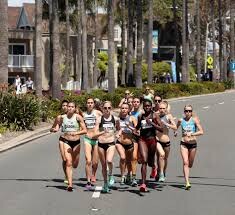
One by one, America’s most famous road races have returned after being waylaid by COVID. The Boston Marathon, Peachtree Road Race, New York City Marathon.
Familiar images unfolded. Runners excitedly talked to friends and strangers in corrals. Spectators delivering high-fives. Medals draped around necks.
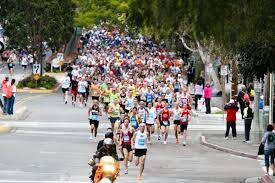
Bolder Boulder, Bay to Breakers, the Los Angeles Marathon.
Come Sunday, the last of the United States’ iconic road races returns after a three-year pandemic hiatus when the Carlsbad 5000 presented by National University celebrates its 36th running. Over 6,000 runners and joggers will enjoy the splash of the surf and clean salt air along the traffic-free Pacific Coast Highway 101, then sipping brews in the Pizza Port Beer Garden.
“I’m excited to return to the Carlsbad 5000,” said reigning champion Ed Cheserek of Kenya. “Last time in 2019 was a lot of fun and after everything our running community has been through since then, I’m really looking forward to being back at the beach in sunny Southern California.”
The Carlsbad 5000 is renowned as “The World’s Fastest 5K” and the moniker was earned.
Sixteen world records have been set on the seaside course, plus a slew of national records and age group bests. Olympic gold medalists Tirunesh Dibaba, Meseret Defar and Eliud Kipchoge have run Carlsbad.
So have U.S. Olympic medalists Deena Kastor and Meb Keflezighi. Keflezighi, the San Diego High product and only male runner in history to win the Boston and New York City marathons, plus an Olympic medal, is now co-owner of the race.
“The San Diego community is very proud of the fact that Carlsbad hosts the world’s most famous 5k race,” said San Diego Track Club coach Paul Greer, a former sub-4-minute miler. “We’re proud of the race. And local runners are endeared by the fact that Meb is involved in the event because he’s one of our own.”
Many people deserve credit for the Carlsbad 5000’s success. Chief among them are Tim Murphy, the race’s creator, Steve Scott, the former American mile record holder who designed the course, and the late Mike Long, the beloved man who built relationships with African athletes and recruited them.
When the race was first held in 1986, the 10K and marathon were road racing’s popular distances. The 5K was considered a casual fun run.
“That’s how innovative Tim was,” said Scott. “He was going to start something when there wasn’t anything there.”
Scott not only designed the course. He won the first three races.
Another plus for The ’Bad: the race fell perfectly on the calendar, with the elite runners being in peak fitness after running the World Cross Country Championships.
“The world records were produced by the quality of the fields and the expectations of running fast,” said road racing historian and announcer Toni Reavis.
It may have been three years since the Carlsbad 5000 was held live (there was a virtual race in 2020), but all the charms will be back Sunday. The custom beer garden IPAs, the ocean views, the left-hand, downhill turn onto Carlsbad Village Drive, and the sprint to the finish.
The race’s official charity is the Lucky Duck Foundation, a local non-profit dedicated to fighting homelessness in San Diego County.
“Homelessness is San Diego’s number one social issue right now, and I couldn’t be prouder to partner with Lucky Duck Foundation as an official charity of the Carlsbad 5000,” said Keflezighi.
As in the past, the Carlsbad 5000 will feature a series of age-group races, starting with the Men’s Masters at 6:55 am, the Women’s Masters at 8:00 am, Open Men at 9:15 am, Open Women at 10:08 am, Junior Carlsbad Kids Mile at 11:20 am, Junior Carlsbad Kids Half-Mile at 12:13 pm, Elite Men at 1:20 pm and Elite Women at 1:23 pm.
The morning-long races create a cheering audience for the pros.
“That’s the other thing that made the elites run fast,” said Reavis. “The crowds.”
So after a three-year pause, the Carlsbad 5000 is back. For why the race continues to maintain its iconic appeal, Reavis said, “It’s those ocean breezes, the lapping waves, the laid-back lifestyle. It is perfect for this little Southern California town which gets transformed into a race course.”
For a complete race day schedule and more, visit Carsbad5000.com.
— Elite Rosters Follow —
Elite Men
Bib Number , Name, Country, Career Highlight, Birthday
1. Edward Cheserek, KENYA, Defending Champion . 17x NCAA Champion, 02/02/1994
2. Kasey Knevelbaad, USA – Flagstaff, 13:24.98 5000M(i) Personal Best, 09/02/1996
3. Reid Buchanan, USA – Mammoth, 2019 Pan American Games 10,000m Silver, 02/03/1993
4. Jose Santana Marin, MEXICO, 2019 Pan American Marathon Silver Medal, 09/03/1989
5. Eben Mosip, KENYA, Road 5k Debut, 12/31/2002
6. James Hunt, GREAT BRITAIN, 4-time Welsh Champion, 04/28/1996
7. Dennis Kipkosgei, Kenya, 2021 Philadelphia Broad Street 10 Miler Champion, 12/20/1994
8. Sean Robertson, USA, Butler University Athlete, 09/16/2001
9. Tate Schienbein, USA – Portland, 2013 U.S. Junior Steeplechase Champion, 04/04/1994
10. Hosava Kretzmann, USA – Flagstaff, AZ, 14:15 5000m PB, 09/02/1994
11. Dylan Belles, USA – Flagstaff, AZ, 2X Olympic Trials Qualifier, 05/16/1993
12. Dylan Marx, USA, San Diego’s Fastest Marathoner, 01/14/1992
13. Steven Martinez, USA – Chula Vista, 2x U.S. Olympic Trials Qualifier, 09/15/1994
14. Spencer Johnson, USA – San Diego, 14:39.09 (2022 Oxy Distance Carnival), 03/20/1995
15. August Pappas, USA – San Diego, 14:05 PB, Big Ten Indoor Track Champs, 04/10/1993
16. Dillon Breen, USA – San Diego, 14:43 Virtual Carlsbad 2020, 09/01/1992
17. Dante Capone, USA – San Diego, Phd Student at Scripps Institute, 11/07/1996
18. Jack Bruce, AUSTRALIA, 13:28.57 5000m Best on Track, 08/31/1994
Elite Women
Bib Number , Name, Country, Career, Highlight, Birthday
20. Kim Conley, USA, One of America’s best 5000m runners, 03/14/1986
21. Dominique Scott, SOUTH AFRICA, Two-time Olympian, 05/24/1992
22. Grace Barnett, USA – Mammoth, Silver at 2021 USATF 5k Championships, 05/29/1995
23. Carina Viljoen SOUTH AFRICA, 5k Road Racing Debut, 04/15/1997
24. Ayla Granados, USA – Castro Valley, 15:53 Personal best, 09/18/1991
25. Biruktayit Degefa, ETHIOPIA, 2022 Crescent City 10k Champion, 09/09/1990
26. Andrea Ramirez Limon, MEXICO, 2021 National 10000m Champion, 11/05/1992
27. Claire Green, USA – San Francisco, NCAA All-American, 05/12/1996
28. Caren Maiyo, KENYA, 5k Road Debut. 7th At 2022 Houston Half Marathon, 04/17/1997
29. Nina Zarina, RUSSIA, California resident, 3rd at the 2021 LA Marathon, 03/17/1987
30. Emily Gallin, USA – Malibu, Finished 4th 2022 LA Marathon, 10/30/1984
31. Lauren Floris, – USA – Oak Park, 2020 U.S. Olympic Trials Qualifier, 07/07/1990
32. Sara Mostatabi, USA – Los Angeles, 09/27/1993
33. Ashley Maton, – USA – Toledo, 16.37 PR at U.S. Road 5k Championships, 11/20/1993
34. Judy Cherotich. KENYA, 16:50 PR
35. Lindsey Sickler, USA – Reno, 16:59 PR, 09/05/1997
36. Megan Cunningham, USA – Flagstaff, 15:53 Track Best 5000M, 03/01/1995
37. Jeannette Mathieu, USA – San Francisco, 2020 Olympic Trials Qualifier, 04/19/1990
38. Bre Guzman, USA – San Diego, 17:37 5k/ 36:00 Road 10k PR, 10/30/1992
39. Aubrey Martin, USA – San Diego, 17:33 5k /1:19 Half Personal Best, 10/10/1997
40. Chloe Gustafson, USA – San Diego, Division II – NCAA All-American, 11/10/1992
41. Sammi Groce, USA – San Diego, 2021 Rock ‘n’ Roll Marathon Winner, 04/29/1994
42. Kristi Gayagoy, USA – San Diego, 17:06 PR
43. Annie Roberts, USA – San Diego, 16:58 5k, 07/10/1996
44. Alexa Yatauro, USA – San Diego, 17:40 5k, 10/18/1995
45. Jessica Watychowicz, USA – Colorado Springs, 15:47.51 5000m Track PB, 02/27/1991
About the Carlsbad 5000
The Carlsbad 5000 annually attracts amateur, competitive and professional runners from around the world. The 36th running of the iconic race will take place on the weekend of May 21-22, 2021. The inaugural 1986 event helped establish the 5K as a standard road running distance, and today, the 5K is the most popular distance in the United States. Throughout its history, the Carlsbad 5000 has seen 16 World records and eight U.S. records, as well as numerous national and age group marks. Race day begins at 7:00 am with the Masters Men (40 years old and over), the first of seven races to take place on Sunday. The “Party by the Sea” gets started as soon as the first runners cross the finish line with participants 21 and older celebrating in the Pizza Port beer garden with two complimentary craft brews and runners of all ages rocking out to live music on the streets of the Carlsbad Village. Further information about the Carlsbad 5000 can be found online at Carlsbad5000.com and on Facebook, Instagram and Twitter.
by Running USA
Login to leave a comment
Carlsbad 5000
The Carlsbad 5000 features a fast and fun seaside course where 16 world records have been set. Both rookie runners and serious speedsters alike enjoy running or walking in Carlsbad. Weekend festivities kick off Saturday morning with the beloved Junior Carlsbad, a kids-only event in the heart of Carlsbad Village featuring fun runs, toddler trots, and diaper dashes! On Sunday,...
more...Des Linden is going to be running the 2022 BAA 10K
The Boston Athletic Association (B.A.A.) announced today that 2018 Boston Marathon champion and two-time Olympian Des Linden will return to compete in the 2022 B.A.A. 10K, presented by Brigham and Women’s Hospital, on Sunday, June 26. The B.A.A. 10K is the second event of the 2022 B.A.A. Distance Medley, a three-race series which also includes April’s B.A.A. 5K and November’s B.A.A. Half Marathon.
Earlier today, Linden announced on Instagram her participation in the upcoming event.
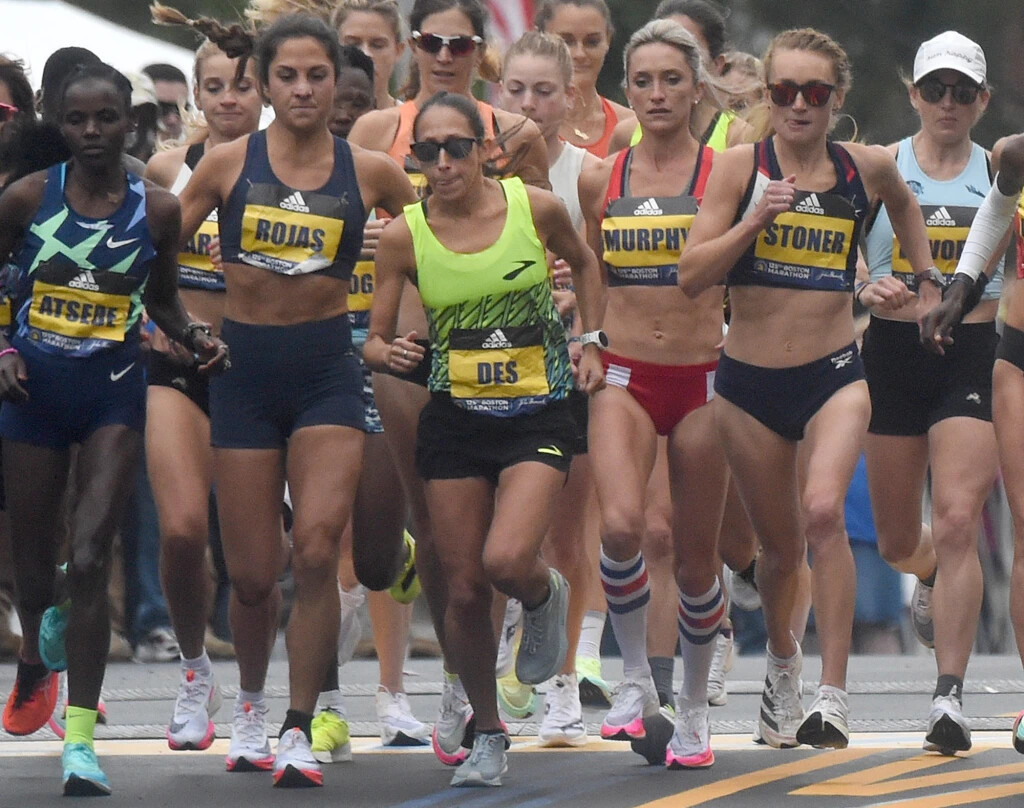
In 2018 Linden won the Boston Marathon, the first time an American woman claimed the open division title in 33 years. She has placed in the top five at the Boston Marathon five times and last ran the B.A.A. 10K in 2018 when she ran among the masses and finished hand in hand with B.A.A. runner Katsuhiro Togami.
Registration for the 2022 B.A.A. 10K, presented by Brigham and Women’s Hospital, is currently open through the B.A.A.’s online platform Athletes’ Village. All participants who enter will receive an adidas participant shirt, unique bib number, and finisher medal. Additional participant information can be found on baa.org. The race will start at 8:00 a.m. ET on Sunday, June 26 on Charles Street adjacent to Boston Common and Boston Public Garden.
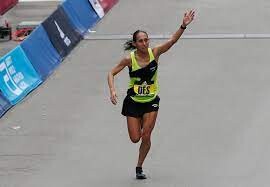
Athletes interested in supporting Brigham and Women's Hospital, the B.A.A. 10K’s presenting sponsor and exclusive fundraising partner, are encouraged to visit www.runbwh.org/10k. Since 2016, more than 2,100 runners and 180 teams have raised $1.2 million to fuel life-giving breakthroughs at Brigham and Women’s Hospital.
Linden will also be participating in the first-ever B.A.A. 10K Fest & Field Day on Saturday, June 25, one day prior to the race. From 2:00 p.m. to 6:00 p.m. at Boston Common, 10K Fest & Field Day will feature youth fitness activities, games, appearances by professional athletes, running clinics, and more. Participants will also be able to pick-up their participant shirts and bib numbers at 10K Fest. Additional details will be available on baa.org in the coming weeks.
ABOUT THE BOSTON ATHLETIC ASSOCIATION
Established in 1887, the Boston Athletic Association is a non-profit organization with a mission of promoting a healthy lifestyle through sports, especially running. The B.A.A.’s Boston Marathon is the world's oldest annual marathon, and the organization manages other local events and supports comprehensive charity, youth, and year-round running programs.
Since 1986, the principal sponsor of the Boston Marathon has been John Hancock. The Boston Marathon is part of the Abbott World Marathon Majors, along with international marathons in Tokyo, London, Berlin, Chicago, and New York City. For more information on the B.A.A., or the B.A.A. club, racing team, and High Performance Team, please visit www.baa.org.
Login to leave a comment
B.A.A. 10K
The 6.2-mile course is a scenic tour through Boston's Back Bay. Notable neighborhoods and attractions include the legendary Bull and Finch Pub, after which the television series "Cheers" was developed, the campus of Boston University, and trendy Kenmore Square. ...
more...World Record Holders, Olympians, National Champions set to Race B.A.A. 5K
The B.A.A. 5K and B.A.A. Invitational Mile will make a triumphant return to Patriots’ Day weekend, with professional fields featuring world record holders, Olympians, Paralympians, national champions, and local standouts. Held on Saturday, April 16, the B.A.A. 5K and B.A.A. Invitational Mile will kick-off festivities leading up to the 126th Boston Marathon on April 18.
“The B.A.A. 5K and B.A.A. Invitational Mile are two events entrenched in the fabric of Boston Marathon weekend, and each features a field which will lead to fast competition,” said Tom Grilk, President and Chief Executive Officer of the B.A.A. “With three years having passed since our last in-person edition of these races, we’re eager to return to the roads to crown champions.”
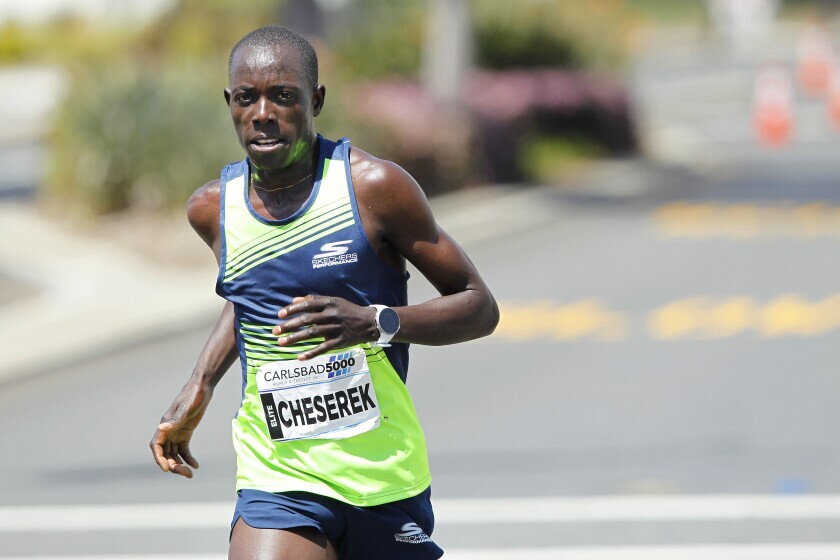
In the B.A.A. 5K, Ethiopia’s Senbere Teferi will make her Boston road racing debut. A two-time Olympian and two-time World Athletics Championships silver medalist, Teferi holds the women’s-only 5K world record of 14:29. She’ll be up against recently crowned American marathon record holder Keira D’Amato, 2021 U.S. Olympians Emily Sisson and Rachel Schneider, reigning U.S. 5K national champion Weini Kelati, and B.A.A. High Performance Team member Erika Kemp. The B.A.A. 5K course and American record of 14:50 –set by Molly Huddle in 2015—could very well be in jeopardy.
On the men’s side, 2019 B.A.A. 10K champion David Bett and 17-time NCAA champion Edward Cheserek, both of Kenya, will square off against New Zealand 5,000m indoor national record holder Geordie Beamish and 2021 U.S. Olympians Mason Ferlic and Joe Klecker. Stanley Kebenei, a World Athletics Championships finalist in the 3000m steeplechase, will also be part of the strong American charge. The B.A.A. 5K course and American record is 13:20, established by Ben True in 2017.
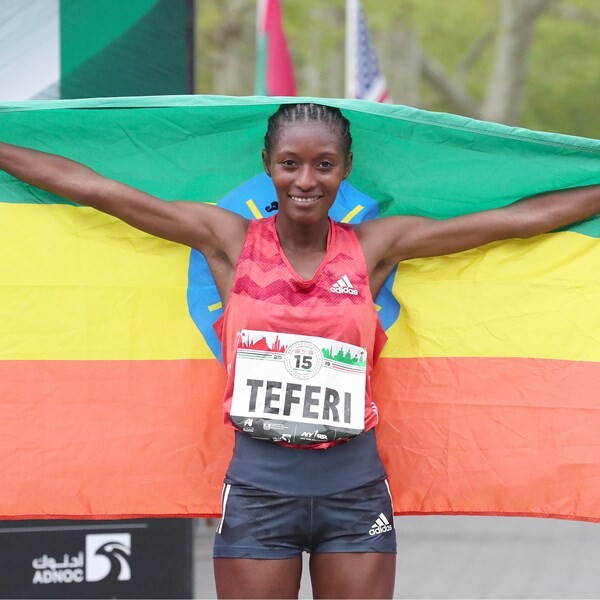
Boston Marathon wheelchair division champions Marcel Hug, Daniel Romanchuk, and Joshua Cassidy will all compete in the B.A.A. 5K less than 48 hours in advance of racing the 126th Boston Marathon. Vanessa de Souza, Shelly Oxley-Woods, and Jenna Fesemyer are top women’s wheelchair entrants.
Following the B.A.A. 5K, the B.A.A. Invitational Mile will take center stage on Boylston Street. U.S. Olympian, Bostonian, and reigning indoor 1,500m national champion Heather MacLean will race for the first time on the three-lap course that finishes at the Boston Marathon finish line. Among her competitors are B.A.A. High Performance Team member Annie Rodenfels, 2019 runner-up Emily Lipari, and Great Britain Olympian Katie Snowden. MacLean and Rodenfels won’t be the only Massachusetts residents toeing the line, as Belmont High School standout Ellie Shea will race among the professionals. Shea ran 9:08.54 for 3,000m during the indoor season, a time that stands as No. 5 on the all-time high school list and is a Massachusetts state record.
Shane Streich, fresh off an indoor American record at 1,000m, will lead the American men in the B.A.A. Invitational Mile along with 3:54 miler Colby Alexander. Neil Gourley of Great Britain is entered, as are Canadian William Paulson, the 2019 Pan-Am 1500m bronze medalist, B.A.A. racing team member Kevin Kelly of Ireland, and local standout James Randon of Rhode Island.
A complete professional field list for the B.A.A. 5K and B.A.A. Invitational Mile can be found below. Preceding the professional divisions of the B.A.A. Invitational Mile will be a scholastic mile and middle school 1K featuring student-athletes from the eight cities and towns along the Boston Marathon route. Entries for the high school and middle school events will be available on race weekend.
2022 B.A.A. 5K WOMEN’S FIELD (NAME, COUNTRY, ROAD 5K PB, TRACK 5000M PB)
Carmela Cardama-Baez, Spain, N/A, 15:25.41 (NR)
Kim Conley, USA, 15:29, 15:05.20
Keira D’Amato, USA, 15:08, 16:09.86
Emily Durgin, USA, 16:05, 15:24.19
Annie Frisbie, USA, 16:35, 16:05.78
Sammy George, USA, 15:53, 15:19.66
Tori Gerlach, USA, 15:56, 15:44.13
Marielle Hall, USA, 15:08, 15:02.27
Elly Henes, USA, N/A, 15:03.27i
Emma Grace Hurley, USA, 16:13, 15:57.23
Katie Izzo, USA, 16:00, 15:41.33
Weini Kelati, USA, 15:18, 14:58.24
Erika Kemp, USA, 15:45, 15:10.10
Melissa Lodge, USA, N/A, 15:53.81i
Sharon Lokedi, Kenya, 15:48, 15:13.04i
Betty Sigei, Kenya, N/A, 15:37.80
Emily Sisson, USA, 15:38, 14:53.84
Rachel Smith (Schneider), USA, N/A, 14:52.04
Emma Spencer, USA, 16:41, 16:04.95
Susanna Sullivan, USA, 16:35, 15:42.59i
Senbere Teferi, Ethiopia, 14:29 (WR), 14:15.29
Abbey Wheeler, USA, N/A, 15:40.67i
2022 B.A.A. 5K MEN’S FIELD (NAME, COUNTRY, ROAD 5K PB, TRACK 5000M PB)
Eric Avila, USA, 13:55, 13:18.68
Geordie Beamish, New Zealand, N/A, 13:12.53i (NR)
David Bett, Kenya, 13:54, 13:06.06
Ben Blankenship, USA, 13:56, 13:33.07
Robert Brandt, USA, N/A, 13:19.11
Sam Chelanga, USA, 13:43, 13:09.67
Edward Cheserek, Kenya, 13:29, 13:04.44
Adam Clarke, Great Britain, 13:42, 13:39.21
Graham Crawford, USA, 13:54, 13:22.68i
Aaron Dinzeo, USA, 14:25, 13:58.37
Brandon Doughty, USA, N/A, 13:39.06
Mason Ferlic, USA, 13:52, 13:24.94
Sydney Gidabuday, USA, 13:53, 13:22.66
Eric Hamer, USA, 14:43, 13:29.60
Brian Harvey, USA, 14:01, 14:13.93
Stanley Kebenei, USA, 13:53, 13:45.87
Joe Klecker, USA, N/A, 13:06.67
Kasey Knevelbaard, USA, 13:56, 13:24.98i
Lawi Lalang, USA, 13:30, 13:00.95
Matt McClintock, USA, 13:49, 13:47.68
Tim McGowan, USA, 14:11, 13:54.20
Reuben Mosip, Kenya, 13:34, 13:50.80a
Charles Philbert-Thiboutot, Canada, 14:04, 13:22.44
Brian Shrader, USA, 13:57, 13:29.13
Zouhair Talbi, Morocco, N/A, 13:18.17i
Aaron Templeton, USA, 13:48, 13:39.39
Josef Tessema, USA, 14:05, 13:22.28.
by Running USA
Login to leave a comment
B.A.A. 5K
The B.A.A. 5K began in 2009, and became an instant hit among runners from far and wide. Viewed by many as the “calm before the storm,” the Sunday of Marathon weekend traditionally was for shopping, loading up on carbohydrates at the pasta dinner, and most importantly- resting. But now, runners of shorter distances, and even a few marathoners looking for...
more...How to Qualify for the Boston Marathon
So you want to qualify for the Boston Marathon? You’re not alone. As an age-group or recreational runner, it’s one of the noblest (and most common) goals to set your sights on.
The history and prestige of the Boston Marathon are unparalleled in the world of running, which is why getting the opportunity to run the famed 26.2-mile route from the start in Hopkinton to the finish line on Boylston Street in downtown Boston is a top-shelf bucket list goal for many runners.
And rightly so. With the challenge it requires to qualify, the experience of running Boston is all that and more.
6 Tips on Qualifying for Boston
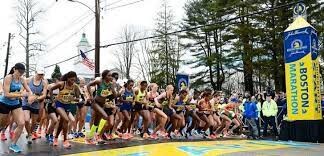
For most age-group runners, qualifying for Boston isn’t a simple task. Every athlete’s journey to trying to earn a Boston-qualifying time (BQ) is unique, and your approach needs to be specifically catered to who you are as a runner. And, like with all things running, there are no shortcuts for earning a BQ—but there are some key points to consider on your quest.
1. State Your Intention.
If you’re truly interested in qualifying for Boston, it’s a good idea to make it one of your primary goals (both in running and in life) so you can focus as much energy as possible toward it and take a smart and healthy approach to achieving it. That doesn’t mean you have to post it on Instagram, but it’s something you should share with your significant other, family members, and running buddies to generate long-term excitement and support as well as keeping you accountable on your journey.
Every age group has a different qualifying time that needs to be attained in a two-year window prior to registration opening in the fall prior to the next race the following April. For women, the age groups and times are:
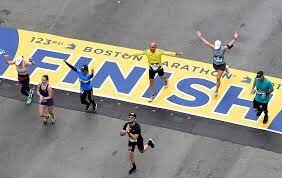
18–34: 3:30.00 (3 hours, 30 minutes, and zero seconds)
35–39: 3:35.00
40–44: 3:40.00
45–49: 3:50.00
50–54: 3:55.00
55–59: 4:05.00
60–64: 4:20.00
65–69: 4:35.00
70–74: 4:50.00
75–79: 5:05.00
80 and over: 5:20.00
Men
18-34: 3 hrs 00 min 00 sec
35-39: 3 hrs 5 min 00 sec
40-44: 3 hrs 10 min 00 sec
45-49: 3 hrs 20 min 00 sec
50-54: 3 hrs 25 min 00 sec
55-59: 3 hrs 35 min 00 sec
60-64: 3 hrs 50 min 00 sec
65-69: 4 hrs 5 min 00 sec
70-74: 4 hrs 20 min 00 sec
75-79: 4 hrs 35 min 00 sec
80 & over: 4 hrs 50 min 00 sec
There’s also the added complication that just hitting the time doesn’t guarantee entry to the race. Runners typically need to also meet faster cut-off times if registration exceeds the race capacity (see tip #6).
“It’s a great goal and a very relevant goal for a lot of a marathoners,” says New York City–based running coach Elizabeth Corkum. “When it’s your first Boston, it’s a big deal and definitely something you should be excited about.”
2. Set a Realistic Goal
For many runners, it takes a full year or two—or maybe even five or more—to develop the aerobic strength and overall fitness to be in position to reach the qualifying time in your age group.
The first step: Understand that the path to running fast enough to earn a BQ standard isn’t a quick process of instant gratification.
“A lot of runners will come to me and say I want to qualify for Boston this year because a lot of runners are always eager to do it now, but the reality is that it might take a few years,” says Chicago-area coach Jenny Spangler, who won the 1996 U.S. Olympic Trials Marathon. “It’s a great goal for many people, but it’s a commitment and you have to be realistic about where you are and where you need to get. For some runners, it will take a while. Sometimes I’ll have runners aim for running a fast half marathon first and then next year start to focus on a fast marathon.”
If you’re serious about qualifying for Boston, it’s best to connect with a coach or local training group that has a history of helping runners achieve a BQ. You’ll want to find a coach who will take into consideration both your history as a runner and as an athlete as well as your current fitness level, previous races, monthly mileage volume, injury history, and, perhaps most important, your ability to commit to a complicated training program amid your work-life balance.
“You don’t like to discourage anyone, but a Boston qualifying time is hard,” Spangler says. “So for people who can’t commit the time for training or maybe just don’t enjoy running or don’t want to put in the mileage, it might not be possible. It’s a commitment and it’s just not for everybody.”
3. Pick a Qualifying Race
One of the keys to qualifying for Boston is running a fast, USATF-certified course with a high probability of running your goal time. Typically, the races with the most qualifiers are the New York City Marathon and the Chicago Marathon, and, of course, Boston itself, but that’s largely based on the volume of runners in those races. However, those marathons can be hard to get into, so unless you already secured an entry, you should plan on another race with a high propensity of Boston-qualifying times.
One of the best options is the California International Marathon (CIM), where 25 to 35 percent of the field typically earns a BQ. The only challenge about qualifying at CIM is that it’s held the first Sunday in December, so you’ll have to wait and enter for the next Boston Marathon 16 months later.
Another great option among mid-sized races is the mid-June Grandma’s Marathon in Duluth, Minnesota, which typically has both a large number of qualifiers and a relatively high percentage of BQers. In 2019, 1,108 of its finishers (18.2 percent) earned BQ qualifiers. From 2010-2021, an average of 15.8 percent of Grandma’s finishers earned BQ times.
“Usually when people come to me, they already know which race they want to run,” says Nell Rojas, a Boulder, Colorado–based professional runner for Adidas who also coaches age-group runners. “But if not, I usually recommend California International Marathon or Grandma’s Marathon, which are fast marathons that are easy to get into with a lot of people that will be running their same speed. And that’s key because that means there will be people to run with at the pace you want to run the whole way.”
Since 2017, some of most prevalent qualifying races have been “last chance” races designed to get runners qualified right before the opening of Boston registration in mid-September. The Last Chance BQ.2 race in Grand Rapids, Michigan, has had an average of about 60 percent BQ’ers every year since 2015, while its sister event, Last Chance BQ.2 race in Geneva, Illinois, has typically had at least 50 percent of its field qualify. But both of those races are small, usually 350 runners, and registration fills up fast every spring. (The Geneva race added a spring race in 2018 and it has also typically had a 50 percent qualifying rate.)
Other small, early September races with high BQ percentages include the Erie Marathon at Presque Isle (Erie, Pennsylvania), Via Marathon (Allentown, Pennsylvania), and Tunnel Light Marathon (North Bend, Washington). A few key marathons with downhill profiles and high qualifying percentages are the St. George Marathon (St. George, Utah), Revel Big Bear Marathon (Big Bear, California), and Mountains 2 Beach Marathon (Ojai, California). Cities with mid-sized marathons that are known to have good courses for qualifying: Philadelphia; Indianapolis; Houston; Eugene, Oregon; and Santa Rosa, California.
4. Get Some Super Shoes
If you’re interested in maximizing your race-day performance, then you should consider investing in a pair of shoes enhanced with carbon-fiber plates. Yes, they’re expensive, ranging in price from $180 to $275, but the technology works—and can give you 3 to 6 percent advantage over shoes with typical foam midsoles. Nike, Adidas, Skechers, ASICS, On Brooks, HOKA, New Balance, and Saucony all make super shoes, and some of their models are among the best. But each fits and feels slightly different, so visit a local running store, if possible, and try on several pairs before buying.
“Super shoes definitely allow you to run faster,” says ASICS-sponsored pro Emma Bates, who was second at the 2021 Chicago Marathon in 2:24:20 wearing a pair of ASICS Metaspeed Sky. “I love them because they’re so comfortable, but the biggest thing is that I feel that I can recover so much quicker after a workout or a race. After Chicago, I felt like I could do a workout the next weekend. That’s insane. I love the shoes and would never imagine running in anything else ever again.”
5. Train Methodically and Consistently
Going through significant training adaptations is a key part of the process for most runners, especially if they’re new to the sport or don’t have a lot of experience with the various types of workouts in most marathon build-ups. Progress occurs based on how well you handle training volume, how much you recover, and how much time and focus you put toward non-running elements like strength work, nutrition, and rest.
“All of those things factor into how you’re going to direct someone to get to that goal, and it’s different for everyone, for sure,” Corkum says. “Some people have all the time in the world to train and that’s fantastic because we can probably stress their bodies a little bit more with training, knowing that they can rebound. But someone who is only able to sleep four hours a night and has a newborn at home, they already have that additional stress so they have to be careful about adding training stimulus so they don’t get injured or burn out.”
Most coaches recommend going through a 16-week training plan to build up to a marathon, though it could be shorter if you’re already pretty fit or longer if you need more time to get used to the rigors of high-mileage running. A good plan will include periodized segments that include two to three weeks of gradual building of aerobic fitness followed by a slightly relaxed week to allow for recovery and the training adaptations to take place.
Depending on your background and fitness, you’re likely going to be running between 50 and 80 miles per week during the peak weeks of your training plan, Rojas says. While pro runners run between 100 and 120 miles per week, she warns that excessive running volume for age-group runners can lead to fatigue, burnout, and injuries.
A training plan should include a once-a-week long run, one or two faster workouts like a tempo run or an interval session, and several recovery runs. As the training plan progresses, there will be a greater emphasis on up-tempo workouts and your long runs will approach 18 to 22 miles and start getting faster.
But even if you’re following a plan that’s the same or very similar to your running partner’s, your quest to reach a Boston qualifying time will be an individual one.
“Runners come from all different levels of fitness,” Rojas says. “It all depends on what a runner can handle, what their strengths are, what their weaknesses are.”
Spangler says most age-group runners who come to her for help in achieving a Boston qualifier typically need more mileage than intensity in their training, but sometimes it’s both. In addition to ramping up mileage gradually, she’ll sprinkle in spicier workouts like fartlek intervals or hill repeat sessions—as much as she thinks an athlete can handle.
She’ll also prescribe periodic longer tempo runs of 8 to 10 miles at marathon race pace and often have them race a half marathon midway through their training program as a way to gauge a runner’s fitness and boost confidence.
“You can just kind of see how they’re starting to handle workload hitting the paces of the workouts they’re doing and feeling good doing it,” Spangler says. “That’s when you start to get a sense that they’re going to be ready, and that’s when I start getting confident they’re ready to handle the marathon at that pace.”
6. Don’t Get Discouraged
Even if you’re well trained and in the best shape of your life, you need everything to go right on a race day to run your best. Achieving a Boston Marathon–qualifying time can take several years and, if you miss it once or twice, it can start to feel like a never-ending process. Unfortunately, even when you achieve the time, you still might not be able to run the race. Because of field size limitations and increased interest, runners usually need to also meet faster cut-off times than the time listed in tip #1 to get in.
While every runner who applied for the 2022 race was granted entry—likely because of a downturn in interest because of the still-lingering COVID-19 pandemic—in the previous 10 years runners needed to be 1 minute, 2 seconds to 7 minutes, 47 seconds faster than their qualifying time to get in. Depending on the year and the volume of qualified runners, that’s meant that the BAA has had to reject between 1,947 and 9,215 qualified runners.
“It’s such a tough thing and to recreational runners, I think it’s a bit jarring because they’re not used to that,” Corkum says. “One of the beautiful things about Boston is that it’s one of those few marathons where you can’t just send in your credit card number and know that you have it on your calendar. You have to earn it. But the other side of that is the emotional investment and highs and lows that you’re accepting along with it.”
Developing an indefatigable sense of optimism and a love for running will be helpful in your quest to qualify for the Boston Marathon and eventually running it. There will be plenty of hiccups along the way (missed workouts, injuries, life events) so it’s best to make it part of the fabric of your life and not merely a box to check off, Corkum says.
“Running is a patient person’s sport and I think that’s why you really have to love it,” Corkum says. “I think some people might not necessarily love running but they love the idea of achieving ‘that thing,’ and you have to realize there are so many hours and steps that go into making it a lifelong thing, and for a lot of us it becomes that.”
by Brian Metzler
Login to leave a comment
Boston Marathon
Among the nation’s oldest athletic clubs, the B.A.A. was established in 1887, and, in 1896, more than half of the U.S. Olympic Team at the first modern games was composed of B.A.A. club members. The Olympic Games provided the inspiration for the first Boston Marathon, which culminated the B.A.A. Games on April 19, 1897. John J. McDermott emerged from a...
more...What are the Fastest Marathons in the UK?
The marathon distance is something that many runners aspire to. It’s a lot more taxing than a half marathon and requires serious mental and physical resilience to complete. Most people can run a 5k or 10k without a lot of training. It’s even possible to get around a half marathon on minimal training, although it won’t be a pleasant experience! But if you want to bag a coveted marathon medal, you’ll need to train hard and long.
Chasing a PB
Completing a marathon isn’t enough for some runners, since they are intent on chasing a personal best. If you fall into this category, a fast marathon course is essential. After all, you have zero chance of achieving a PB if you enter the Snowdonia Marathon, which includes 1,685 metres of ascent. You’re also likely to end up with very sore calves and quads!
Luckily, there are a few flat marathons for runners hoping to smash their personal records over a 26.2-mile course. And if you can’t face the idea of all that training, visit OnlineCasinos and find an online casino where you can place a bet on one of the pro athletes who will be out to break a record or two. OnlineCasinos lists casinos with the best welcome bonuses and rates them too.
Read on to discover which marathon races are the flattest, with the best PB potential.
Edinburgh Marathon

Edinburgh has a flat and very fast course and Runners World voted it the fastest marathon in the UK. If you are chasing a PB, this is the race for you.
Edinburgh Marathon is extremely popular, with both casual runners and elite runners. It attracts more than 30,000 runners each year and is the second-largest marathon after London, so it is a good idea to get your entry in early if you want to compete.
One of the great things about Edinburgh is that the support is excellent. Some less popular marathons have large sections with few spectators, which makes it hard for any runners who are struggling. In a typical year, tens of thousands of people line the route to cheer runners on, and it makes a big difference!
Another reason to sign-up for Edinburgh is that the course is very scenic and takes in a lot of the most famous parts of the Old Town. You will pass Greyfriars Bobby, run along the Royal Mile, and go through the Prince’s Street Gardens. It’s a fantastic course!
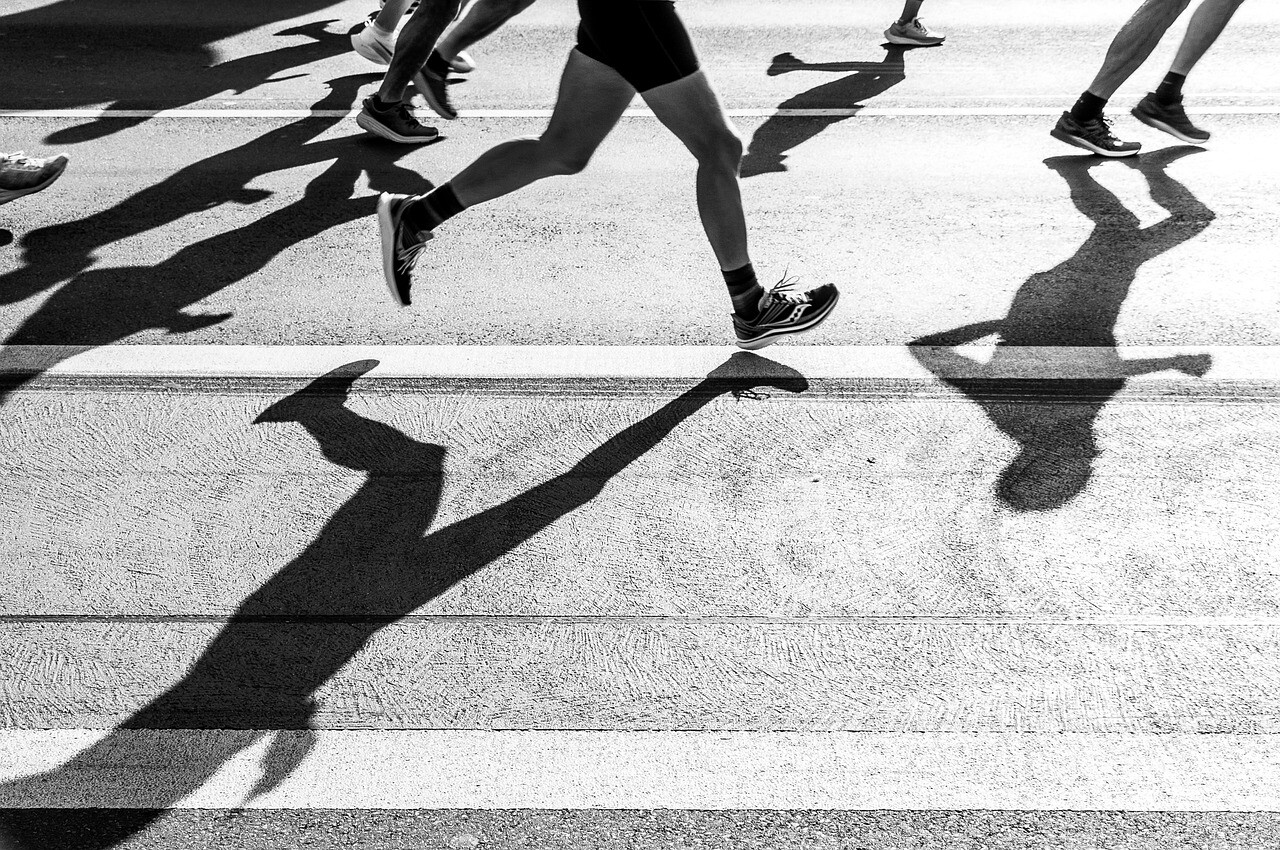
Manchester Marathon
Manchester Marathon has a fantastic reputation for being fast, flat, and very well supported. This one takes place in the spring and is an excellent race to target if you don’t get a place at London. In 2015, Manchester Marathon was voted the Best Marathon in the UK for the second time, which goes to show just how amazing this race is. It’s also the fourth most popular marathon in Europe, in a strong field that contains the Rome Marathon, Paris Marathon, and Berlin Marathon.
Why is Manchester so popular? Aside from the speed of the course, with no horrific hills to sap your will to live, there is entertainment around the course, with bands and singers there to keep tired legs going. In addition, the race finishes in Man United’s home at Trafford Park, which is sure to appeal to footy fans.
If you do enter Manchester, keep an eye out for Olympians, as the course usually attracts some of the world’s best elite runners.
Blackpool Marathon
The seaside resort town of Blackpool is famous for its promenade light displays, but it is equally famous for the annual Blackpool Marathon. The course is fast and flat, and you can score a PB running down the iconic promenade.
The Blackpool Marathon is a two-lap course, which might not appeal to everyone. But it attracts thousands of runners and there is lots of support along the course. You get to run along the famous Golden Mile, with amusement arcades on one side and the sea on the other. The course then takes runners out to Lytham St Annes, where there is a turnaround point, all the way back through Blackpool to Cleveleys, before heading back into town again.
Enter this race if you fancy making a weekend of it. You can run the marathon while the rest of your family chills on the beach or blow their pocket money in the arcades.
Milton Keynes Marathon
MK Marathon starts in the city centre, but soon winds out into the countryside. It’s a great race for novices new to the marathon distance, but equally, because the course is fast and flat, the Milton Keynes marathon also attracts more experienced runners.
As well as lovely scenery along the route, which takes runners through country parks, woodland, and past lakes, you can look forward to a fantastic stadium finish. The race is limited to 3,000 runners, so the route won’t be too crowded if you dislike having to fight through the crowds, but there is still plenty of atmosphere to keep runners motivated.
This event is also a qualifier for London and Boston if that’s important to you.
Yorkshire Marathon
The Yorkshire Marathon is one of the newer full-distance races on the racing calendar, with the first event taking place in 2013. Not surprisingly, thanks to a fast course, this marathon has proven popular and each year, the event grows bigger and more prestigious.
The route is very scenic. It winds through some historic parts of York before meandering out into the adjacent villages, along pretty country lanes. There is plenty of entertainment and support along the route, which will distract you from the pain of the last six miles.
If the Yorkshire Marathon is on your bucket list, make sure you enter early, as places usually sell out quickly.
Other flat marathons for PB chasers include Chester Marathon, Abingdon Marathon, and the most iconic of them all, London Marathon. And if a marathon is a step too far, why not enter a half-marathon instead?
Login to leave a comment
Olympic Medalists Will Headline 2022 Boston Marathon Women’s Field
Peres Jepchirchir of Kenya, the 2021 Olympic gold medalist in the marathon, and her countrywoman Joyciline Jepkosgei, who ran the fastest marathon of 2021, 2:17:43, when she won the London Marathon, headline the Boston Marathon elite women’s field for 2022.
American Molly Seidel, who won Olympic bronze last summer, will also line up in Hopkinton on April 18.
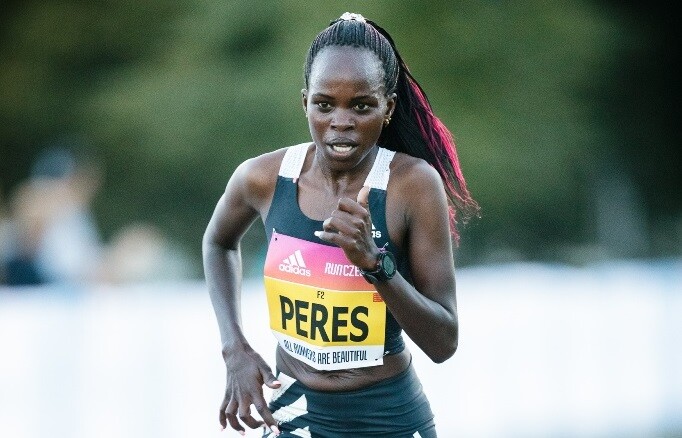
The race marks the 50th anniversary of the first official women’s field at the Boston Marathon. This year’s elite women entrants include Olympic and Paralympic medalists, World Major Marathon champions, and sub-2:20 marathoners.
The race will include four Ethiopians with sub-2:20 credentials: Degitu Azimeraw, Roza Dereje, Zeineba Yimer, and Tigist Girma.
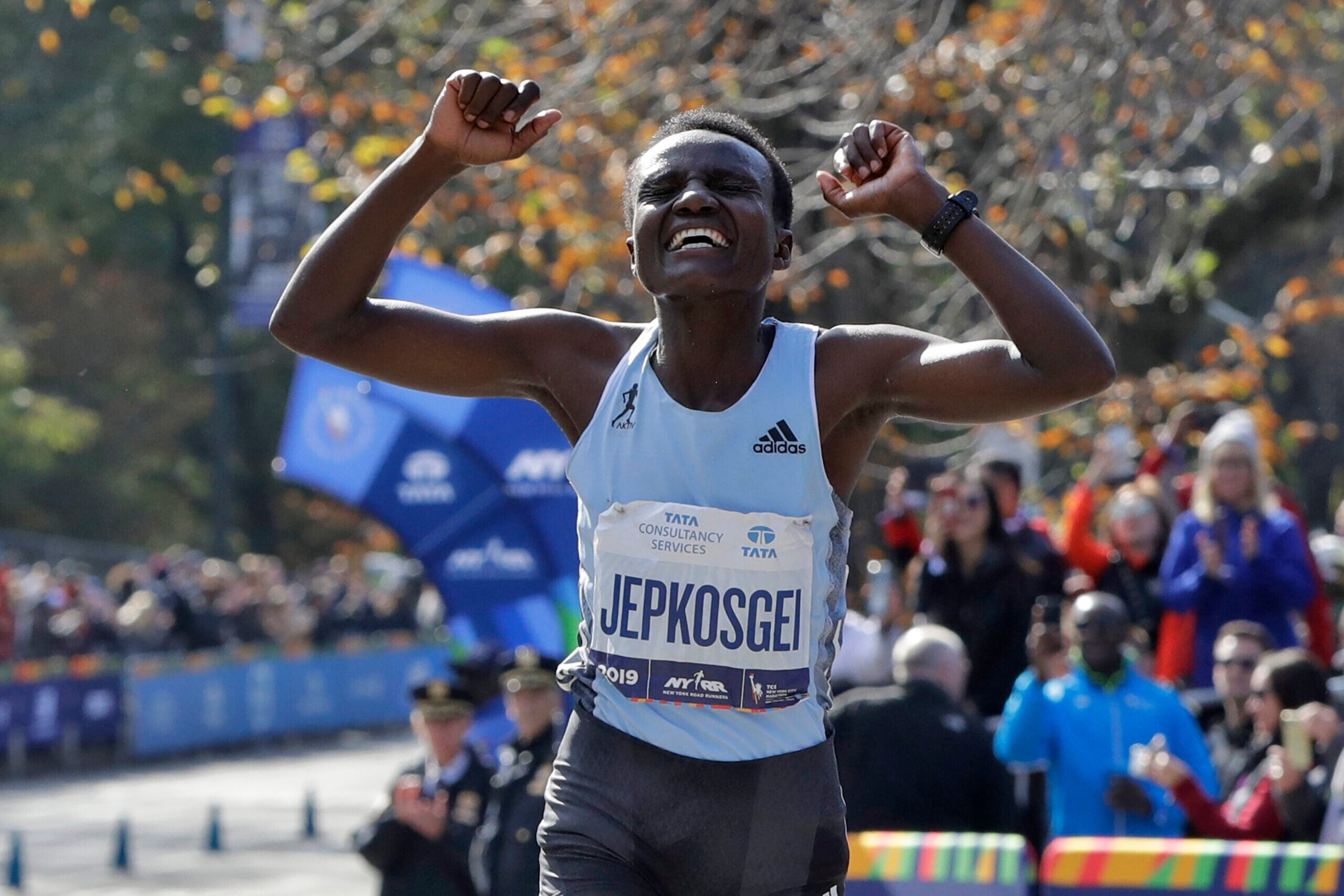
Former Boston Marathon champions Des Linden (2018) and Edna Kiplagat (2017) will race, as will Mary Ngugi of Kenya, who was third in Boston last October.
In addition to Linden, Sara Hall, who is the second-fastest woman in American marathoning history, is part of a strong crop of American talent. Nell Rojas, who was the top American finisher at Boston last year, and top-10 2020 Olympic Trials finishers Kellyn Taylor and Stephanie Bruce are also scheduled to run.
Other notable competitors include Canadian Olympian and national record-holder Malindi Elmore, two-time Canadian Olympian Natasha Wodak, and Charlotte Purdue, who is the third-fastest woman in British marathon history.
The Boston Marathon benefits from being the only World Marathon Major race on the calendar in the spring.
“As we look to celebrate the trailblazing women of 1972, we are delighted to welcome the fastest and most accomplished women’s field in the history of the Boston Marathon,” BAA President and CEO Tom Grilk said in a press release. “Though there have been many milestones in the five decades since the women’s division was established in Boston, this field of Olympic and Paralympic medalists, Boston champions, and global stars will make this a race to remember on Patriots’ Day.”
Elite field
Peres Jepchirchir (KEN) 2:17:16Joyciline Jepkosgei (KEN) 2:17:43Degitu Azimeraw (ETH) 2:17:58Roza Dereje (ETH) 2:18:30Zeineba Yimer (ETH) 2:19:28 Edna Kiplagat (KEN) 2:19:50Tigist Girma (ETH) 2:19:52Maurine Chepkemoi (KEN) 2:20:18Sara Hall (USA) 2:20:32Desiree Linden (USA) 2:22:38Viola Cheptoo (KEN) 2:22:44 Purity Changwony (KEN) 2:22:46Charlotte Purdue (GBR) 2:23:26Kellyn Taylor (USA) 2:24:28Molly Seidel (USA) 2:24:42Malindi Elmore (CAN) 2:24:50Mary Ngugi (KEN) 2:25:20 Monicah Ngige (KEN) 2:25:32Natasha Wodak (CAN) 2:26:19Nell Rojas (USA) 2:27:12 Stephanie Bruce (USA) 2:27:47Dakotah Lindwurm (USA) 2:29:04Roberta Groner (USA) 2:29:09Angie Orjuela (COL) 2:29:12Bria Wetsch (USA) 2:29:50Maegan Krifchin (USA) 2:30:17Elaina Tabb (USA) 2:30:33Lexie Thompson (USA) 2:30:37Kate Landau (USA) 2:31:56
by Chris Hatler
Login to leave a comment
Boston Marathon
Among the nation’s oldest athletic clubs, the B.A.A. was established in 1887, and, in 1896, more than half of the U.S. Olympic Team at the first modern games was composed of B.A.A. club members. The Olympic Games provided the inspiration for the first Boston Marathon, which culminated the B.A.A. Games on April 19, 1897. John J. McDermott emerged from a...
more...Boston Athletic Association Announces 2022 Boston Marathon Official Charity Program Members
The Boston Athletic Association (B.A.A.) has announced that 43 organizations have been selected for the B.A.A.’s Official Charity Program for the 2022 Boston Marathon. Five new organizations are joining the B.A.A.’s Official Charity Program for the 126th running, to be held on Monday, April 18, 2022, the first Patriots’ Day edition of the race in three years.
Entering the 33rd year of the Official Charity Program, the B.A.A. provides select nonprofit organizations with entries into the Boston Marathon, which are used to raise millions of dollars for worthwhile causes. A total of $14.2 million was raised through the B.A.A. Official Charity Program this year, with an average of more than $10,000 raised per entry. Combined with the John Hancock Non-Profit Program and other qualified and invitational participants, $26.6 million was raised for nonprofits surrounding the 2021 race. The B.A.A. Official Charity Program and the John Hancock Non-Profit Program have combined to raise more than $426 million since the charity program’s inception at the 1989 Boston Marathon.
The five new organizations joining the B.A.A.’s Official Charity Program for the 2022 Boston Marathon include America Scores New England, Boston Bulldogs Running Club, Play Ball Foundation, The BASE, and The Hoyt Foundation. A total of 38 organizations will return as members of the B.A.A.’s Official Charity Program. A complete list of B.A.A. Official Charity Program members can be found below. (Click on each organization for more information.)
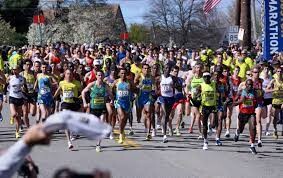
261 Fearless, Inc.
America Scores New England*
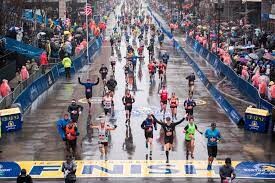
American Liver Foundation, N.E. Division
American Red Cross of Massachusetts
B.A.A. Charity Team
Back on My Feet
Boston Bruins Foundation
Boston Bulldogs Running Club*
Boston Celtics Shamrock Foundation
Boston Children’s Hospital
Boys & Girls Clubs of Dorchester
Brigham and Women’s Hospital
Camp Shriver at UMass Boston
Community Rowing
CYCLE Kids, Inc.
Dana-Farber Cancer Institute
Doug Flutie Jr. Foundation for Autism, Inc.
Dream Big!
Esplanade Association
Girls on the Run Greater Boston
Good Sports, Inc.
Hale
Herren Project
IMPACT Melanoma
Massachusetts Association for the Blind and Visually Impaired
MEB Foundation
MetroWest YMCA
Michael Lisnow Respite Center
Multiple Myeloma Research Foundation
National MS Society, Greater New England Chapter
New England Patriots Foundation
Play Ball Foundation*
Red Sox Foundation
Semper Fi Fund
Spaulding Rehabilitation Hospital
Squashbusters
TB12 Foundation
Tedy’s Team
The BASE*
The Hoyt Foundation*
Thompson Island Outward Bound
Trinity Boston Connects
Tufts Medical Center
*Indicates New B.A.A. Official Charity Program Member in 2022
B.A.A. official charities will begin to accept registration submissions on Monday, December 6. For more information about the B.A.A. Official Charity Program, and to apply to participate in the 2022 Boston Marathon as a member of one of their teams, please visit www.baa.org.
The B.A.A. annually provides non-profits associated with the B.A.A. Official Charity Program and John Hancock’s Non-Profit Program with invitational entries into the Boston Marathon. Each non-profit organization directly manages its own application process, athlete selection, and fundraising minimums, deadlines, and requirements.
For the fourth consecutive year, the Boston Athletic Association will field its own fundraising team for the Boston Marathon. B.A.A. Charity Team members fundraise to help expand the B.A.A.’s youth and community initiatives, bringing the benefits of running and healthy lifestyles to the greater Boston community. Applications will be accepted for 2022 B.A.A. Official Charity Team beginning on December 6.
The B.A.A. is committed to a world where all people can access and benefit from running and an active lifestyle.
Login to leave a comment
Boston Marathon
Among the nation’s oldest athletic clubs, the B.A.A. was established in 1887, and, in 1896, more than half of the U.S. Olympic Team at the first modern games was composed of B.A.A. club members. The Olympic Games provided the inspiration for the first Boston Marathon, which culminated the B.A.A. Games on April 19, 1897. John J. McDermott emerged from a...
more...Organizers of the Boston Marathon will be paying tribute to 2-time Indigenous champion, Ellison “Tarzan†Brown
Organizers of the Boston Marathon publicly apologized for running the 125th edition of the planet's most celebrated footrace on Indigenous Peoples Day.
Now they're seeking to make amends by throwing the spotlight on a member of Rhode Island's Narragansett tribe who won the race twice in the 1930s and inspired the name “Heartbreak Hill” to describe the most iconic — and dreaded — section of the course.
The Boston Athletic Association, which administers the marathon, said Monday it will honor the legacy of the late Ellison “Tarzan” Brown, Boston's champion in 1936 and 1939, in the run-up to the race's pandemic-altered Oct. 11 staging.
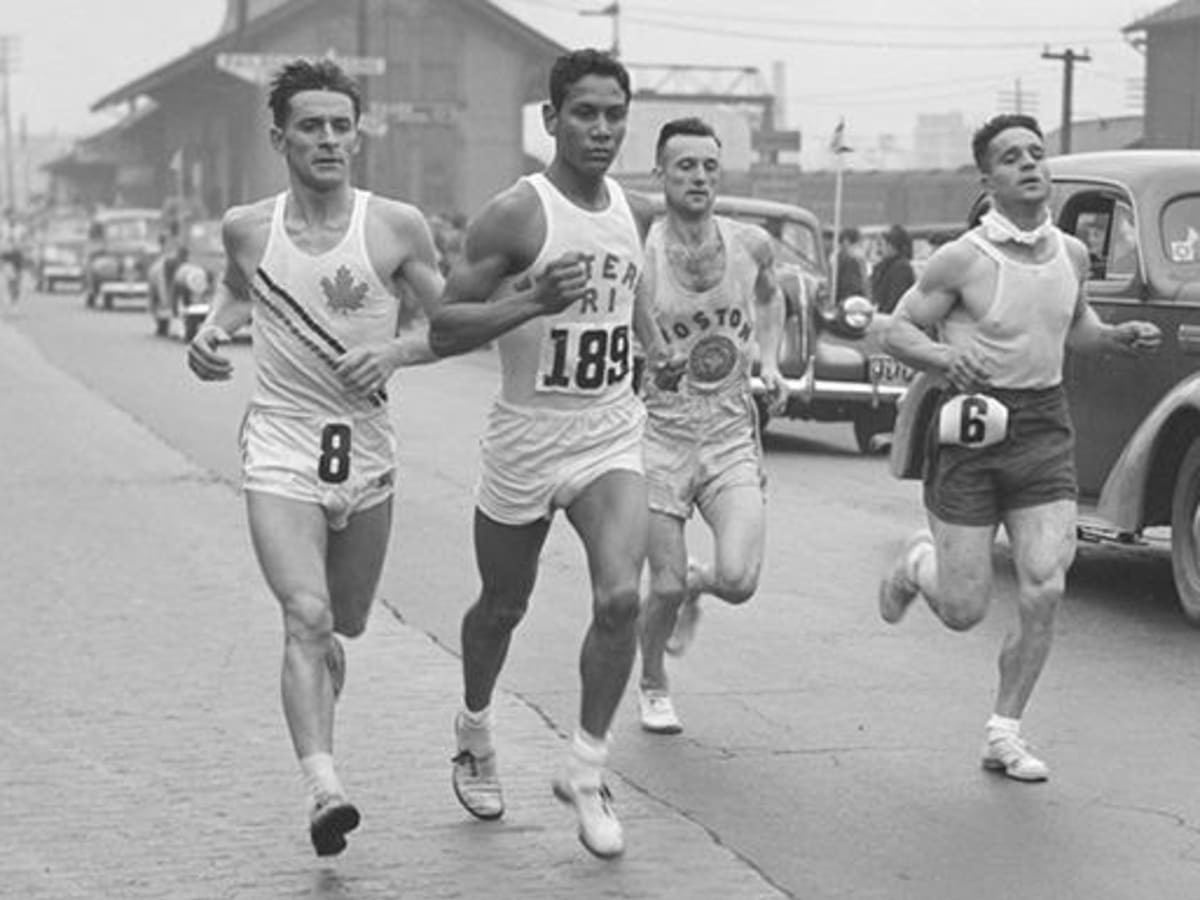
The Boston Marathon traditionally is held in mid-April on Massachusetts’ unique Patriots' Day holiday. In 2020, it was canceled in its traditional format for the first time because of the coronavirus pandemic, and because of a resurgence of COVID-19 cases, it's being run this year in the autumn rather than the spring.
Next month's running falls on Indigenous Peoples Day — observed in some places as an alternative to Columbus Day — and that rankled enough people for the BAA in August to issue “sincere apologies to all Indigenous people who have felt unheard or feared the importance of Indigenous Peoples’ Day would be erased.”
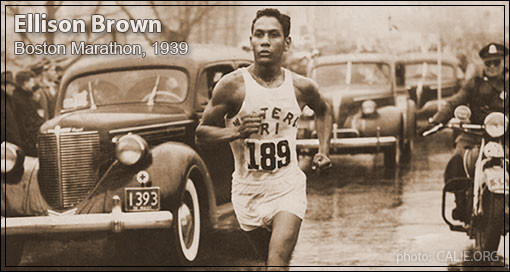
Massachusetts does not officially recognize Indigenous Peoples Day, but Newton — which lies on the marathon course — does.
Eighty-five years after his historic first win, Brown's descendants cheered the recognition of their acclaimed ancestor.
“Running and winning the Boston Marathon was something grandpa loved," said Anna Brown-Jackson, a granddaughter of Brown.
“Being an Indigenous person meant everything to Grandpa because he was very competitive to begin with,” she said. “If someone told him he couldn’t do something, whether it was winning the marathon or crossing through a path of land to gather shellfish for his family, he’d make sure to prove them wrong and do it.”
Patti Catalano Dillon, a member of the Mi’kmaq tribe, a three-time Boston Marathon runner-up and a former American marathon record holder, also will be honored at next month’s race.
Brown, whose tribal nickname was Deerfoot, set a world record with his second victory at Boston and represented the U.S. in Hitler’s 1936 Olympics in Berlin alongside the great Jesse Owens.
Brown became an instant hero to native people across North America. But like other top Indigenous athletes of his era, he struggled greatly with discrimination and marginalization.
In 1975, he died at age 60 after he was deliberately run over by a car in the parking lot of a Rhode Island bar.
by William J. Kole
Login to leave a comment
Boston Marathon
Among the nation’s oldest athletic clubs, the B.A.A. was established in 1887, and, in 1896, more than half of the U.S. Olympic Team at the first modern games was composed of B.A.A. club members. The Olympic Games provided the inspiration for the first Boston Marathon, which culminated the B.A.A. Games on April 19, 1897. John J. McDermott emerged from a...
more...BAA will Highlight Indigenous Runners At This Year's Marathon
The Boston Athletic Association says it will celebrate Native Americans during this year's Boston Marathon, which is being held on Indigenous People's Day.
The announcement comes after members of Brookline's Select Board criticized the BAA for scheduling the race on the holiday, also known as Columbus Day.
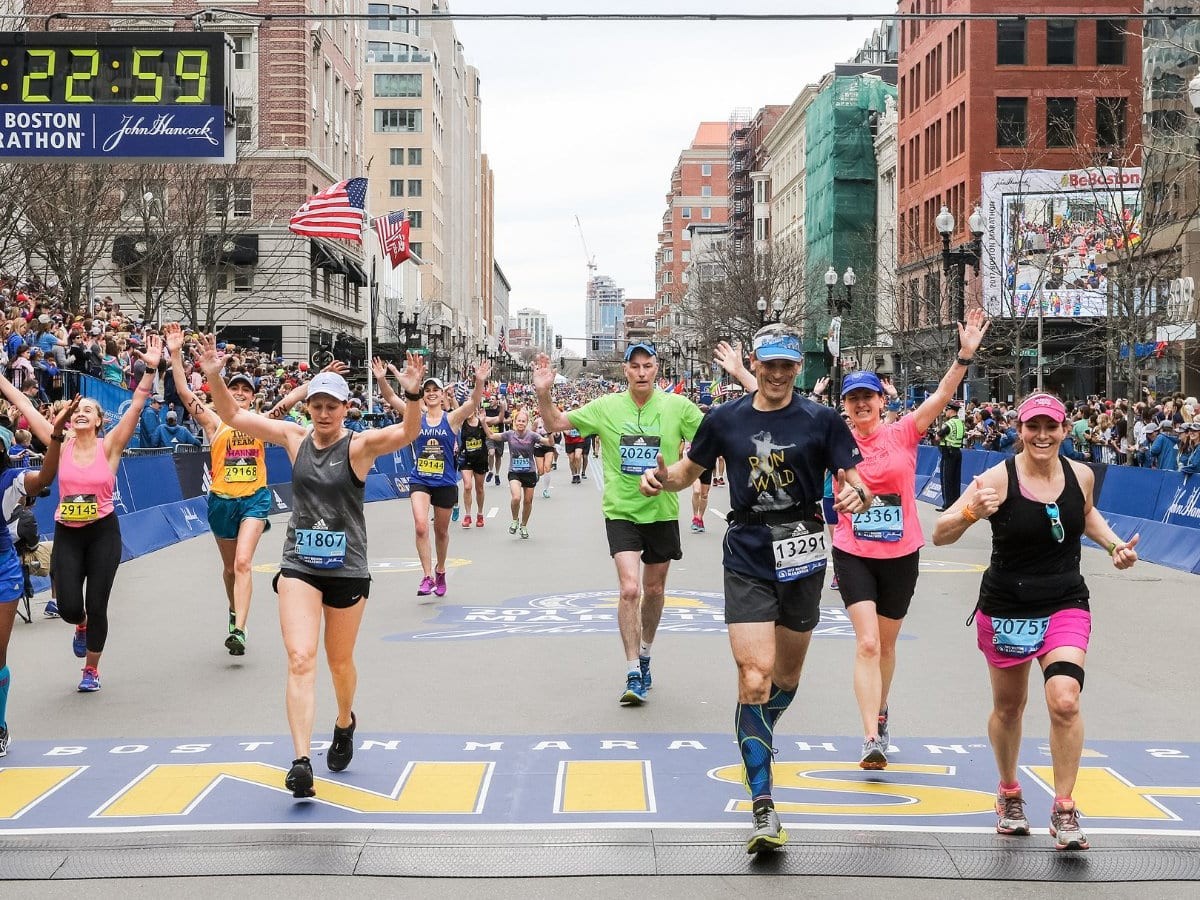
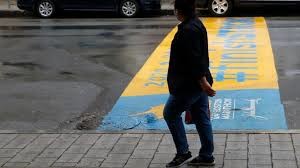
The BAA said in a statement that it will highlight indigenous people who have participated in past marathons and that it will work with Indigenous peoples' committees along the marathon route.
"As our planning to organize the road race progresses, we look forward to a continuing collaboration with many — including Indigenous Peoples groups — to best highlight the unique characteristics of this year’s October marathon," the BAA said.
by Sara-Rose Brenner
Login to leave a comment
Boston Marathon
Among the nation’s oldest athletic clubs, the B.A.A. was established in 1887, and, in 1896, more than half of the U.S. Olympic Team at the first modern games was composed of B.A.A. club members. The Olympic Games provided the inspiration for the first Boston Marathon, which culminated the B.A.A. Games on April 19, 1897. John J. McDermott emerged from a...
more...Gloria Ratti, ‘first lady’ of the Boston Marathon, dies at 90
The Boston Athletic Association is mourning the loss of vice president, historian, and archivist Gloria Ratti, who died Saturday at 90 “after a courageous battle with cancer,” the organization said in a statement.
Ms. Ratti, a South Boston native, served the BAA and Boston Marathon runners in a variety of roles over more than half a century of involvement with the organization, according to the statement.
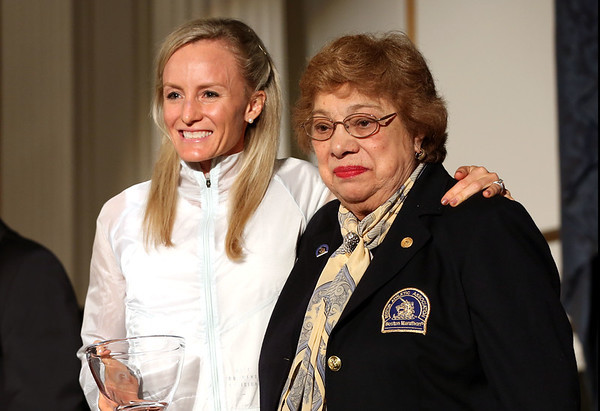
“Gloria in essence was the First Lady of our sport, no matter where she went,” Guy Morse, former BAA executive director and a longtime colleague to Ms. Ratti, said in the statement.
“From champions to common runners, Gloria personally cared for everyone and represented the human side of running,” he said. “It was her mission to make the Boston Marathon more than a single-day event; she strived to make it a personal experience for so many. She did that, but also was the moral authority that helped propel the entire organization forward.”
by Nick Stoico, The Boston Globe
Login to leave a comment
Boston Marathon
Among the nation’s oldest athletic clubs, the B.A.A. was established in 1887, and, in 1896, more than half of the U.S. Olympic Team at the first modern games was composed of B.A.A. club members. The Olympic Games provided the inspiration for the first Boston Marathon, which culminated the B.A.A. Games on April 19, 1897. John J. McDermott emerged from a...
more...Elite field for 125th Boston Marathon will include 13 former champions
The field for the 125th Boston Marathon will include 13 former champions with a combined 30 first-place Boston finishes, the Boston Athletic Association announced on Wednesday. The group competing on Oct. 11 includes World Athletics Marathon champions, Paralympic medalists, Abbott World Marathon Majors winners, and Olympians.
Four of the last five women’s open champions are scheduled to run: American Desiree Linden (2018), a two-time Olympian; Kenyan Edna Kiplagat (2017), a two-time World Athletics Marathon Championships gold medalist; Kenyan Caroline Rotich (2015); and Atsede Baysa (2016).
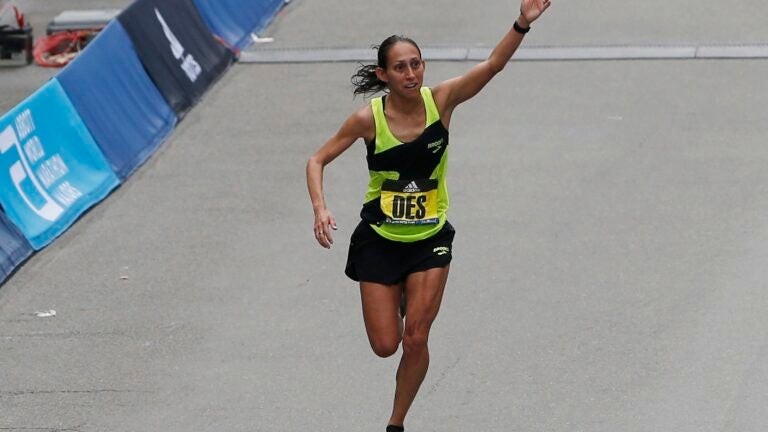
Two-time champion and course record holder Manuela Schär returns to defend her title in the women’s wheelchair race. Schär, a three-time Paralympic medalist from Switzerland, won Boston in 2017 and 2019 and is the only woman to have clocked a sub-1:30 marathon. Also among the wheelchair contenders is five-time Boston champion and 17-time Paralympic medalist Tatyana McFadden, who will race the 400 meters, 800 meters, 1500 meters, 5000 meters, and the marathon at the Tokyo Paralympic Games for Team USA.
The three returning men’s champions have all posted lifetime bests under 2:07:30. They are Kenya’s Geoffrey Kirui (2017), Ethiopia’s Lemi Berhanu (2016), and Yuki Kawauchi (2018), who will attempt to become the first man from Japan since Toshihiko Seiko in 1987 to earn two Boston Marathon titles.
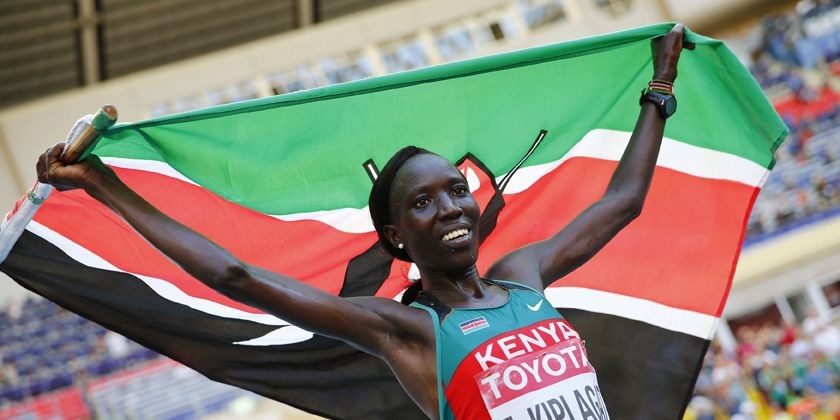
Four men’s wheelchair champions with a combined 16 titles will return, including defending champion Daniel Romanchuk of Illinois. The 2016 and 2021 Paralympian for Team USA made history by winning the 2019 race and Abbott World Marathon Majors Series XII at just 20 years old. Course record holder Marcel Hug of Switzerland, who had four straight wins from 2015-18, is back. Ernst van Dyk of South Africa, the most decorated champion in race history with 10 titles, also will compete, as will 2012 winner and former course record holder Josh Cassidy of Canada.
The race also features restructured prize money awards that will include equal course record bonuses for the open and wheelchair divisions and the introduction of prize money for the inaugural para athletics divisions. Boston will be the first Abbott World Marathon Major event to offer equal $50,000 course record bonuses across open and wheelchair divisions, and the first event to provide a designated prize purse for athletes with upper limb, lower limb, and visual impairments.
“We are delighted to welcome so many champions from such a diverse range of competition back to Boston for the 125th running of the Boston Marathon,” said Tom Grilk, BAA president and CEO. “While October’s race marks a long-awaited return to racing, it will also recognize and celebrate the many world-class athletes competing for an historic prize purse across multiple divisions.”
by Andrew Mahoney
Login to leave a comment
Boston Marathon
Among the nation’s oldest athletic clubs, the B.A.A. was established in 1887, and, in 1896, more than half of the U.S. Olympic Team at the first modern games was composed of B.A.A. club members. The Olympic Games provided the inspiration for the first Boston Marathon, which culminated the B.A.A. Games on April 19, 1897. John J. McDermott emerged from a...
more...With no Boston Marathon on Patriots' Day 2021, there was a different feel
For the second year in a row, businesses in Boston had a much different experience on Patriots' Day without the Boston Marathon being run.
Last October, the Boston Athletic Association made the decision to postpone the 2021 Boston Marathon from April 19 to the fall. In January, the BAA announced the race would be scheduled for Oct. 11.
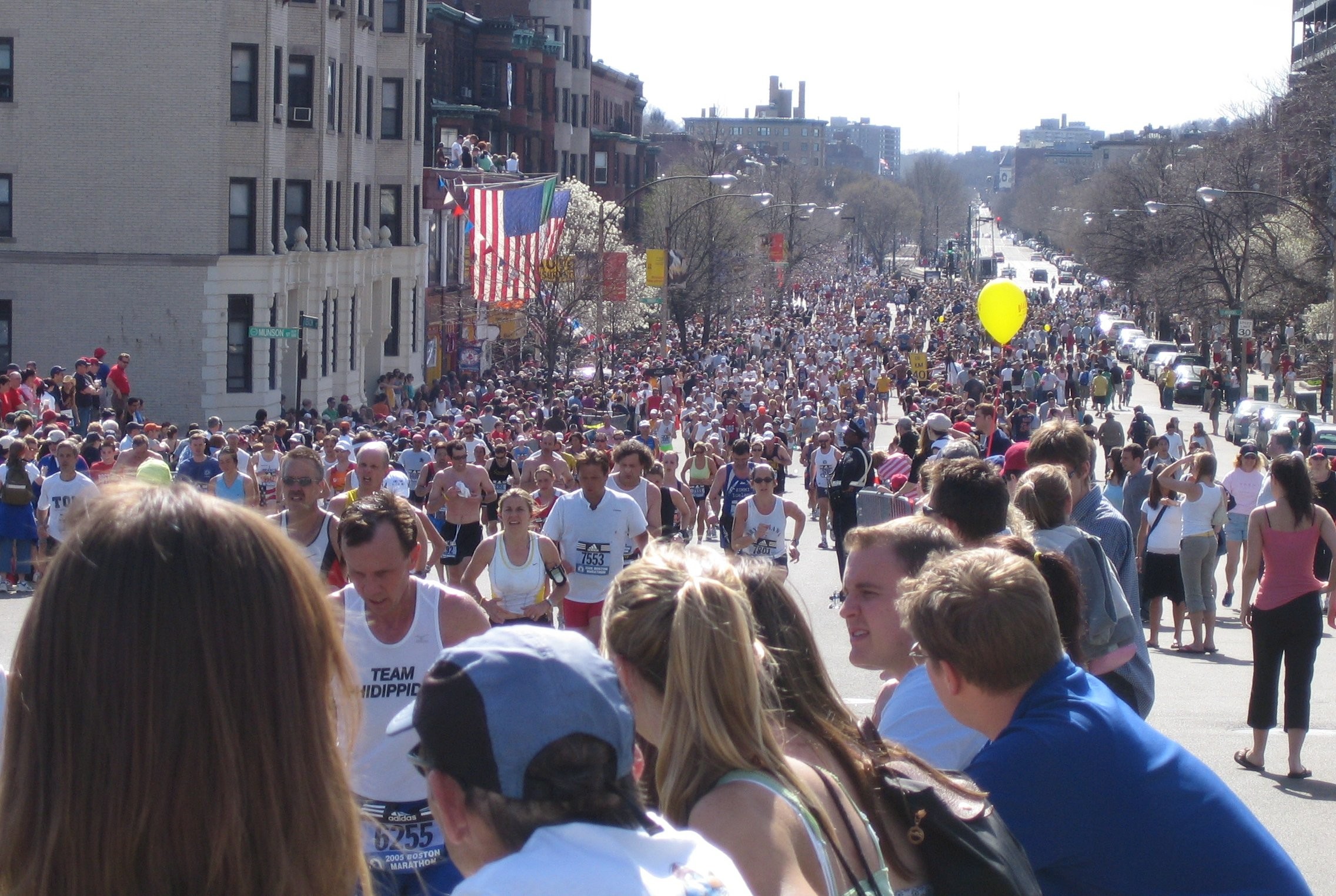
On a typical Marathon Monday, Marathon Sports marketing director Dan Darcy says the streets are packed with people and the company's Boylston Street store would have a line out the door.
"Marathon weekend around here is always the best weekend of the year," Darcy said.
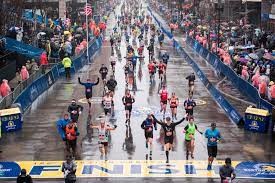
Restaurants like Rochambeau, which is just a block from the finish line on Boylston, would normally be swamped.
"You have lines, you turn people away, you have waiting lists and callbacks," said Chef Nick Calias, culinary director for the Lyons Group, which runs Rochambeau. "It was, obviously, an incredible time for an incredible time for our restaurants and for all restaurants in the industry itself."
Overall, the Boston Marathon pumps in about $200 million into the local economy, according to Martha Sheridan, president and chief executive officer of the Greater Boston Convention and Visitors Bureau.
"People fly into the airport. They use transportation to get into the city, whether that's taxi cabs or Ubers. They stay in hotels. They eat at restaurants. They shop," Sheridan said.
For many businesses in other communities along the race route, the economic boost from the marathon isn't necessarily as strong.
"You don't get a lot of customers coming in. You get window shoppers," said Demian Wendrow, head of the Wellesley Square Merchants Association and owner of two Wellesley businesses. "It's great to be here during that day to help support all the runners, which is wonderful, but business, generally, is nonexistent."
Business owners who spoke with NewsCenter 5 on Monday say they are optimistic that business is picking up in Boston and across the state, and that they are planning ahead for the scaled-down 2021 Boston Marathon in October.
by Mary Saladna
Login to leave a comment
Boston Marathon
Among the nation’s oldest athletic clubs, the B.A.A. was established in 1887, and, in 1896, more than half of the U.S. Olympic Team at the first modern games was composed of B.A.A. club members. The Olympic Games provided the inspiration for the first Boston Marathon, which culminated the B.A.A. Games on April 19, 1897. John J. McDermott emerged from a...
more...Indigenous community calls for Boston Marathon date change
Native Americans in Massachusetts are calling on the organizers of the Boston Marathon to move the already rescheduled date for the storied race because it now conflicts with a day meant to commemorate the contributions of Indigenous people.
The Boston Athletic Association announced in January that the 125th edition of the marathon would be pushed back from its traditional April running to Oct. 11, assuming road races are allowed to take place under Massachusetts’ COVID-19 restrictions by then.
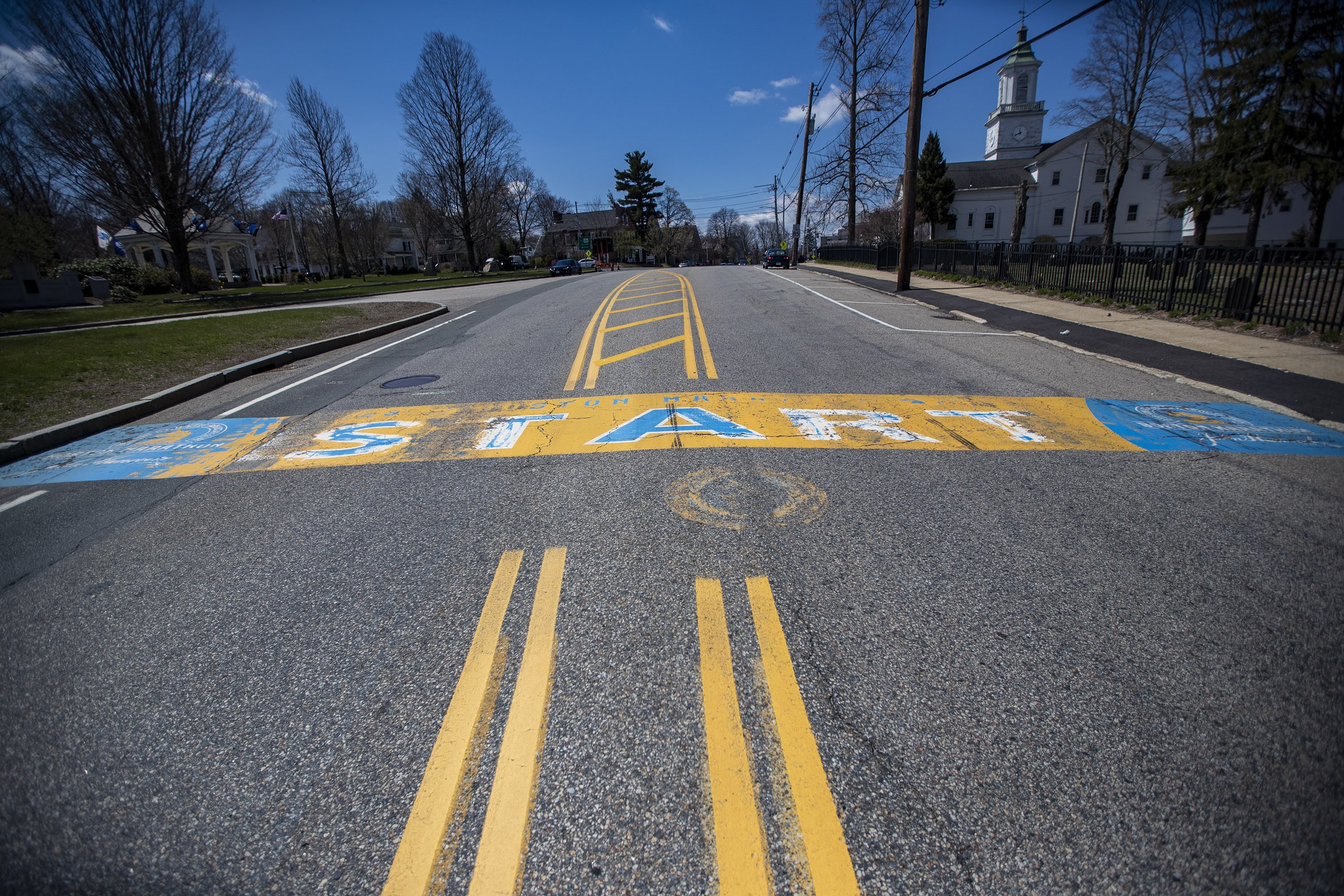
But the Indigenous Peoples Day Committee in the Boston suburb of Newton complained the new day undercuts a day reserved for recognizing the contributions of Native Americans, past and present. The group said its first planned celebration of the Oct. 11 holiday has to be canceled because of the marathon’s new date.
“Unfortunately, the Boston Athletic Association has decided that Indigenous Peoples Day is a ‘side’ holiday that can be usurped," the committee said in a recently launched online petition. "By doing this, they are perpetuating the myth that Indigenous peoples are part of the past and irrelevant.”
The BAA didn't directly address the complaints, but said Thursday that the new date was selected in close coordination with the eight cities and towns along the marathon route. Those communities include Newton as well as Hopkinton, Ashland, Framingham, Natick, Wellesley, Newton, Brookline and Boston.
“During the date selection process, the Boston Athletic Association regularly met with representatives from the eight cities and towns for feedback and guidance on potential dates and collaboratively selected Monday, October 11,” the organization said in a statement. "We will continue working with city and town officials, as well as with organizations planning events during the October 9–11 weekend.”
Newton Mayor Ruthanne Fuller and members of the city council didn’t respond to emails seeking comment Thursday.
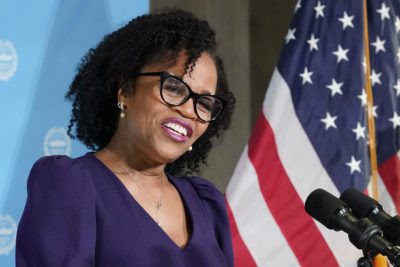
The Native American organization said marathon organizers should reschedule the race to give Indigenous communities the space they deserve.
“Indigenous Peoples Day is a time for everyone to learn more about the history of America as it relates to Indigenous Peoples — because we are all on Indigenous Land," the organization said in its petition. “The BAA has the chance to acknowledge the importance of keeping the spotlight on Indigenous Peoples Day rather than steal the spotlight for the Marathon.”
The BAA has said this year's race will have space for 20,000 entrants — a smaller field than prior years to allow for social distancing. There will also be a virtual race from Oct. 8-10 that will allow up to 70,000 more entrants.
First run in 1897, the Boston Marathon was canceled last year for the first time in its history. Instead, almost 16,000 people ran in a virtual race, completing the 26.2-mile distance on their own over a 10-day period.
Login to leave a comment
Boston Marathon
Among the nation’s oldest athletic clubs, the B.A.A. was established in 1887, and, in 1896, more than half of the U.S. Olympic Team at the first modern games was composed of B.A.A. club members. The Olympic Games provided the inspiration for the first Boston Marathon, which culminated the B.A.A. Games on April 19, 1897. John J. McDermott emerged from a...
more...Native Americans in Massachusetts want to reschedule Boston Marathon from Oct. 11 holiday
Native Americans in Massachusetts are calling on the organizers of the Boston Marathon to move the already rescheduled date for the storied race because it now conflicts with a day meant to commemorate the contributions of Indigenous people.
The Boston Athletic Association announced in January that the 125th edition of the marathon would be pushed back from its traditional April running to Oct. 11, assuming road races are allowed to take place under Massachusetts’ COVID-19 restrictions by then.
But the Indigenous Peoples Day Newton Committee complained the new day undercuts a day reserved for recognizing the contributions of Native Americans, past and present. The group said its first planned celebration of the Oct. 11 holiday in the Boston suburb of Newton has to be cancelled because of the marathon’s new date.
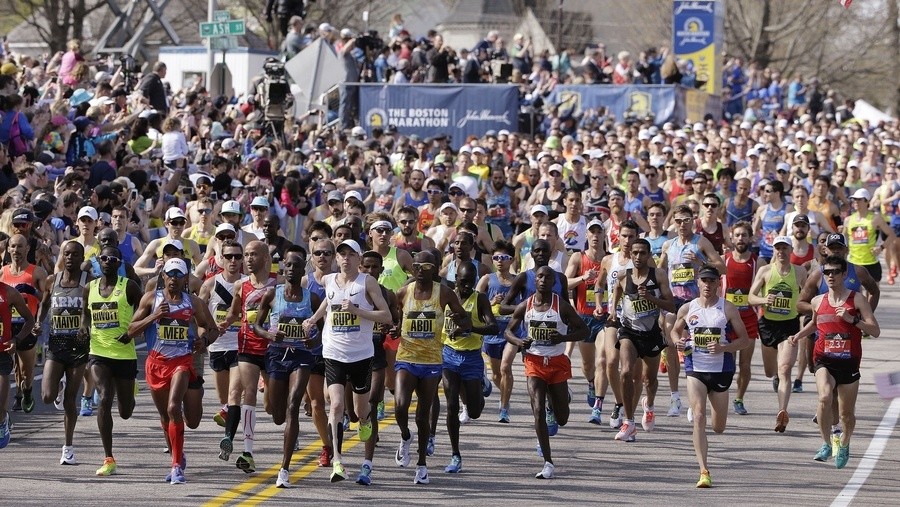
“Unfortunately, the Boston Athletic Association has decided that Indigenous Peoples Day is a ‘side’ holiday that can be usurped," the committee said in a recently launched online petition. "By doing this, they are perpetuating the myth that Indigenous peoples are part of the past and irrelevant.”
The BAA didn't directly address the complaints, but said the new date was selected in close co-ordination with the eight cities and towns along the marathon route. Those communities include Newton as well as Hopkinton, Ashland, Framingham, Natick, Wellesley, Newton, Brookline and Boston.
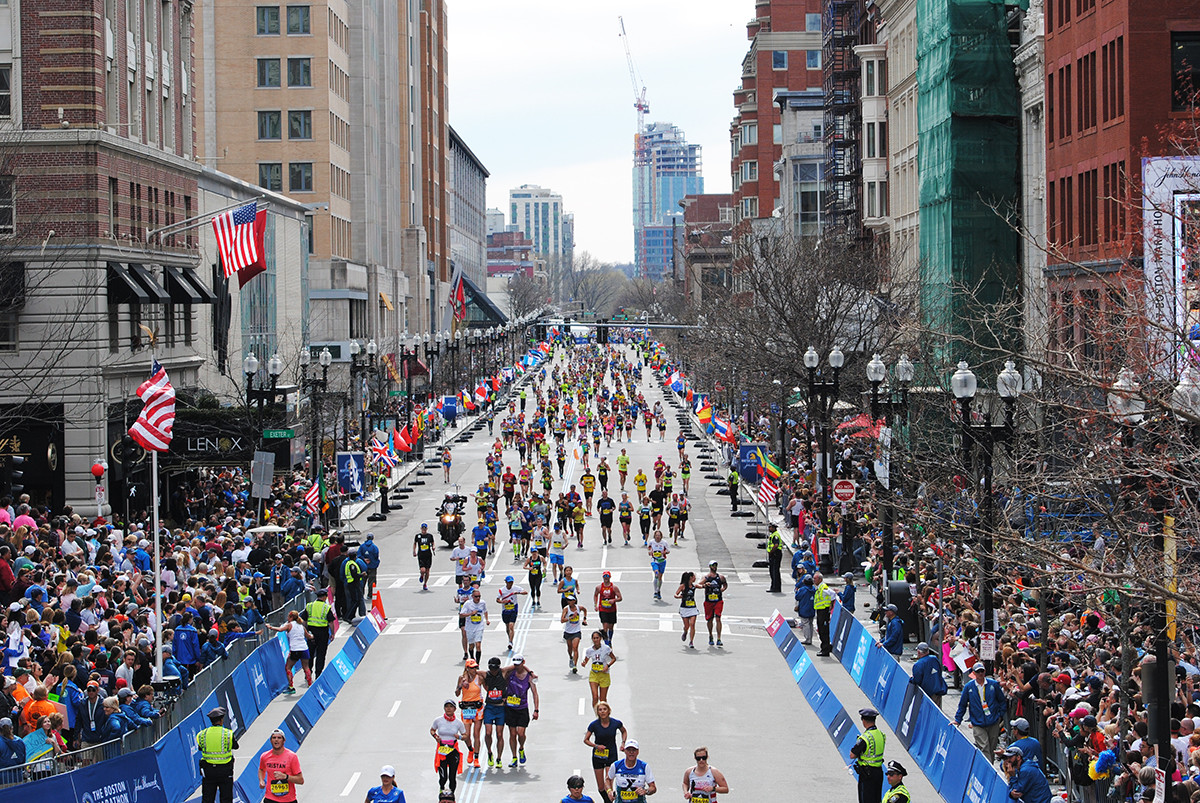
“We will continue working with city and town officials, as well as with organizations planning events during the October 9–11 weekend,” the organization said in a statement.
Newton Mayor Ruthanne Fuller said the city, which has the longest stretch of the marathon course, can handle both events. She said the city is offering to host an Indigenous Peoples Day celebration on a field at Newton South High School.
“While the pandemic has made so many things more complicated, we are excited to celebrate both Indigenous Peoples Day and the Boston Marathon in Newton on October 11, 2021,” Fuller said in a statement.
But City Councilor Emily Norton said she's disappointed at the chosen date. “It was insensitive at best and disrespectful at worst,” she said.
by Canadian Press
Login to leave a comment
Boston Marathon
Among the nation’s oldest athletic clubs, the B.A.A. was established in 1887, and, in 1896, more than half of the U.S. Olympic Team at the first modern games was composed of B.A.A. club members. The Olympic Games provided the inspiration for the first Boston Marathon, which culminated the B.A.A. Games on April 19, 1897. John J. McDermott emerged from a...
more...Registration for virtual Boston Marathon opens today
Registration opens Tuesday for the 2021 virtual Boston Marathon.
The Boston Athletic Association opens registration at 10 a.m. to the first 70,000 people who register. Rules will require participants to complete the 26.2 miles in one, continuous attempt in order to earn their finishing medal.
“For the first time in our history, most everyone will have the opportunity to earn a Unicorn finisher’s medal for every B.A.A. race in 2021—no matter whether they choose to walk or run," said Tom Grilk, president and CEO of the BAA.
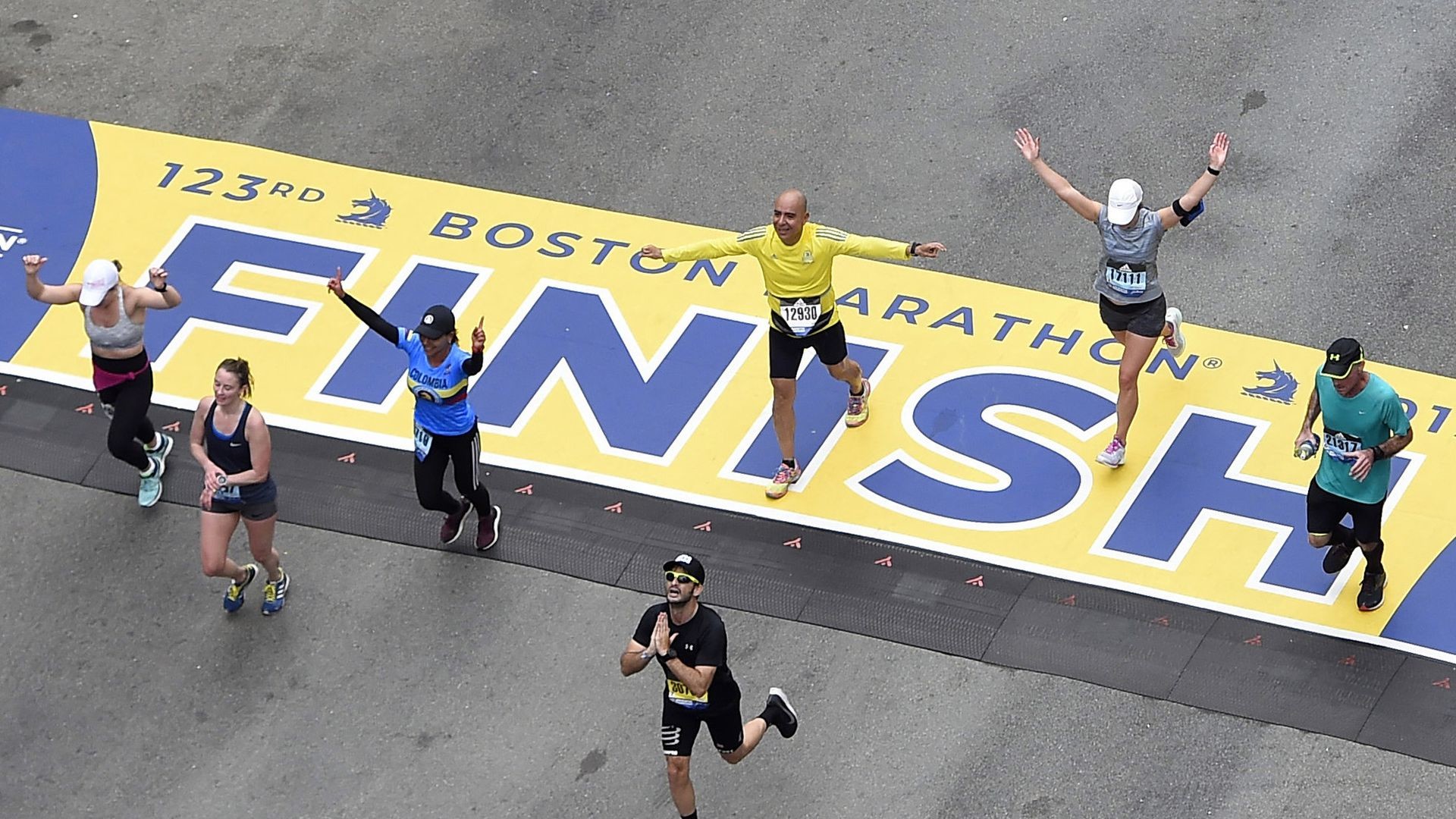
The virtual race will be held Oct.8 to Oct. 10, followed by the in-person race that will be held on Oct. 11, 2021, as long as state reopening rules allow.
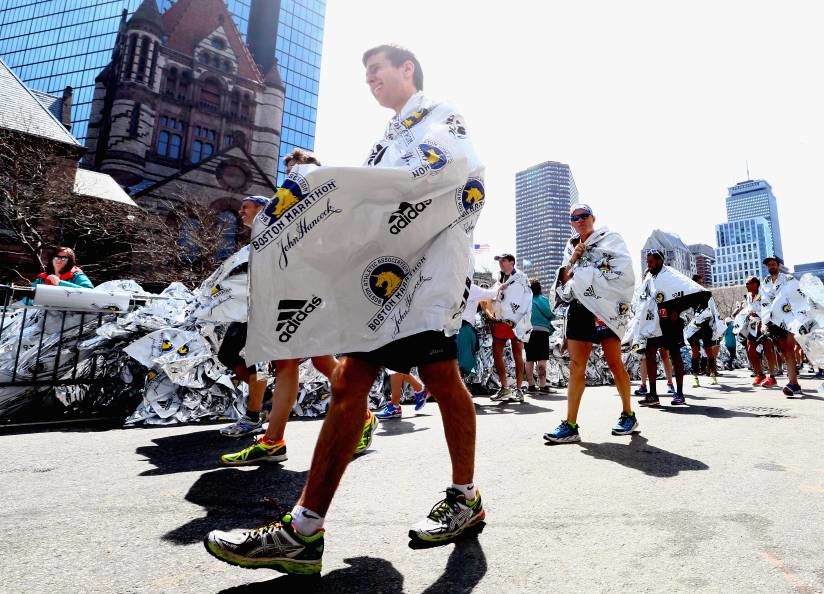
The 2020 Boston Marathon, the 124th running of the race, was initially postponed to September before it was ultimately cancelled because of the COVID-19 pandemic.
Last year, instead of 30,000 runners covering the course from Hopkinton to Boston on Patriots Day in April, more than 16,000 people from all 50 states and 83 countries covered the required 26.2 miles in their own neighborhoods during a 10-day period in September.
Login to leave a comment
Boston Marathon
Among the nation’s oldest athletic clubs, the B.A.A. was established in 1887, and, in 1896, more than half of the U.S. Olympic Team at the first modern games was composed of B.A.A. club members. The Olympic Games provided the inspiration for the first Boston Marathon, which culminated the B.A.A. Games on April 19, 1897. John J. McDermott emerged from a...
more...

